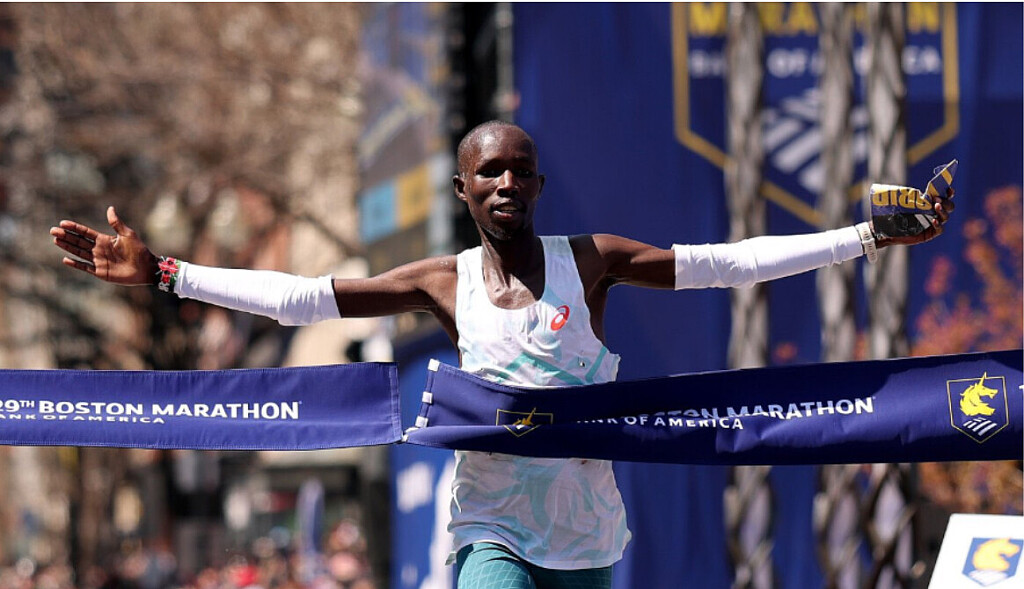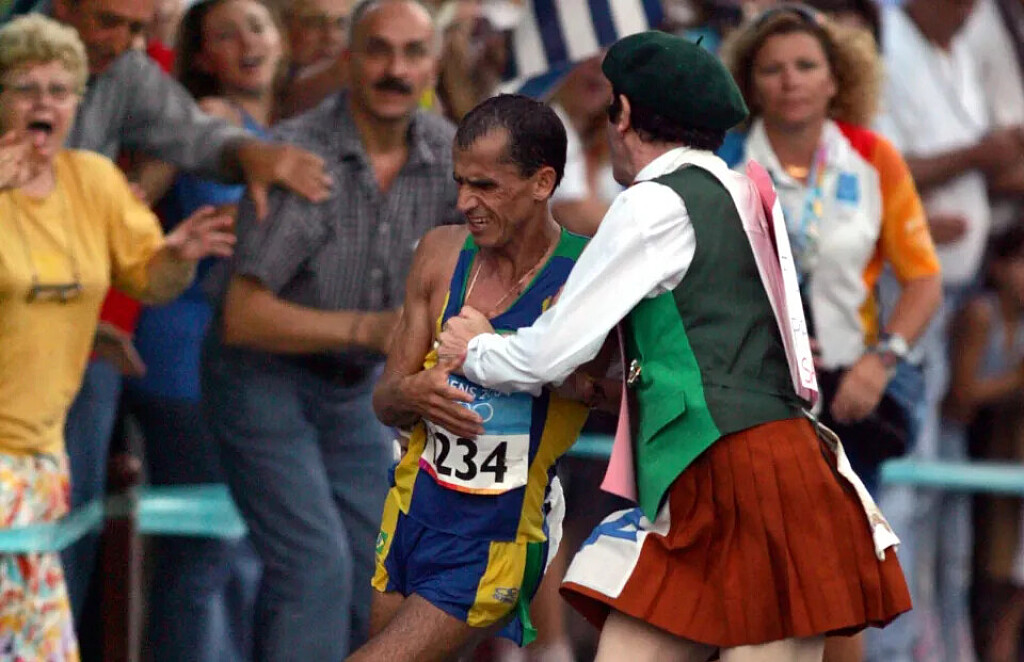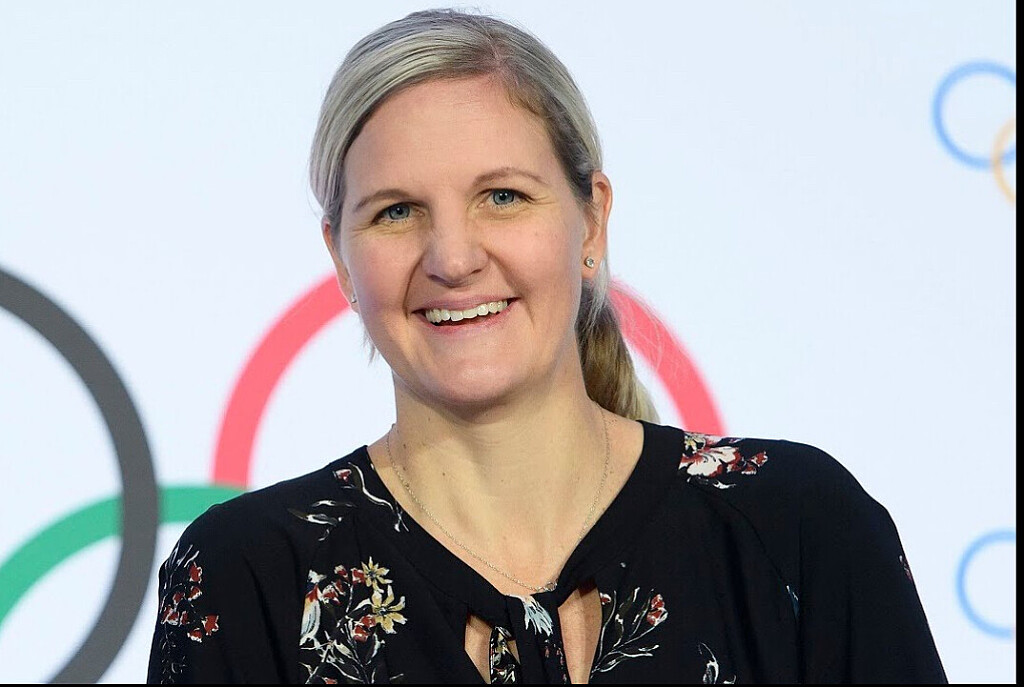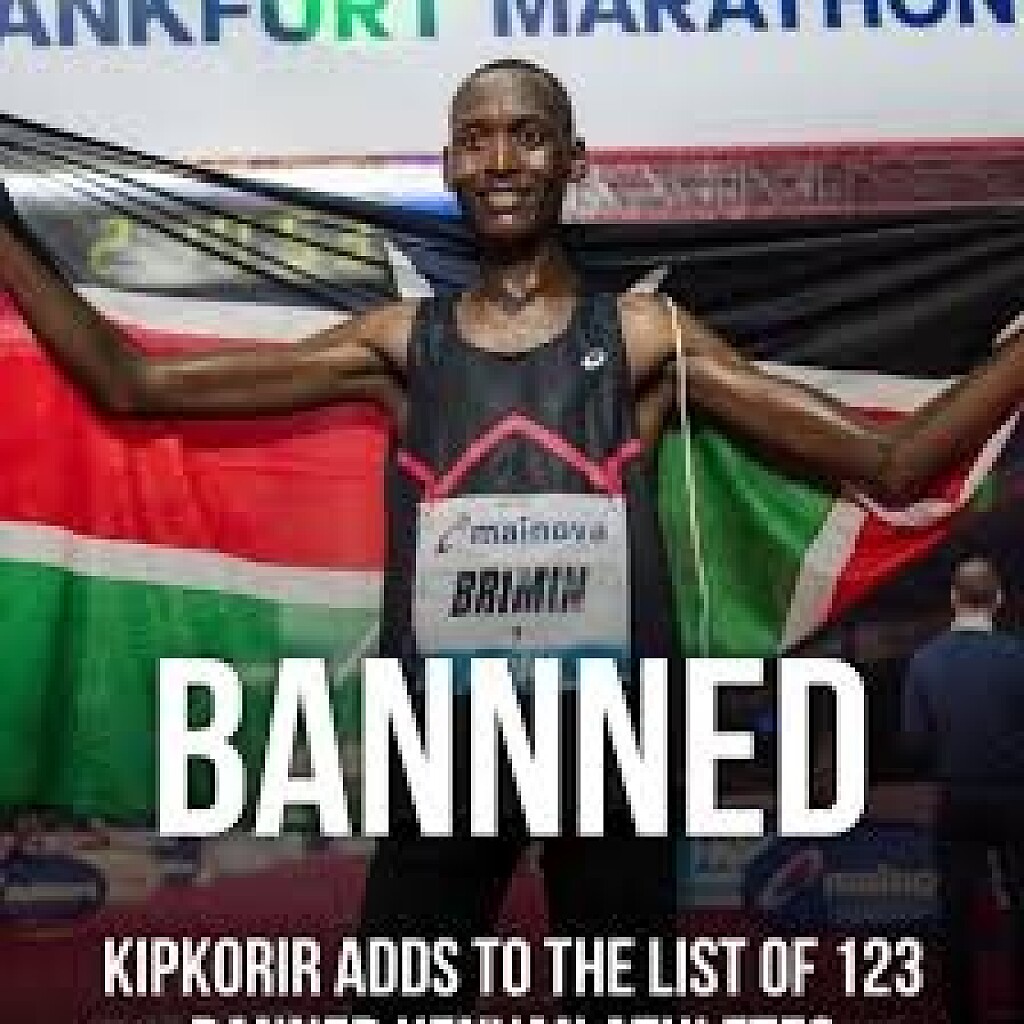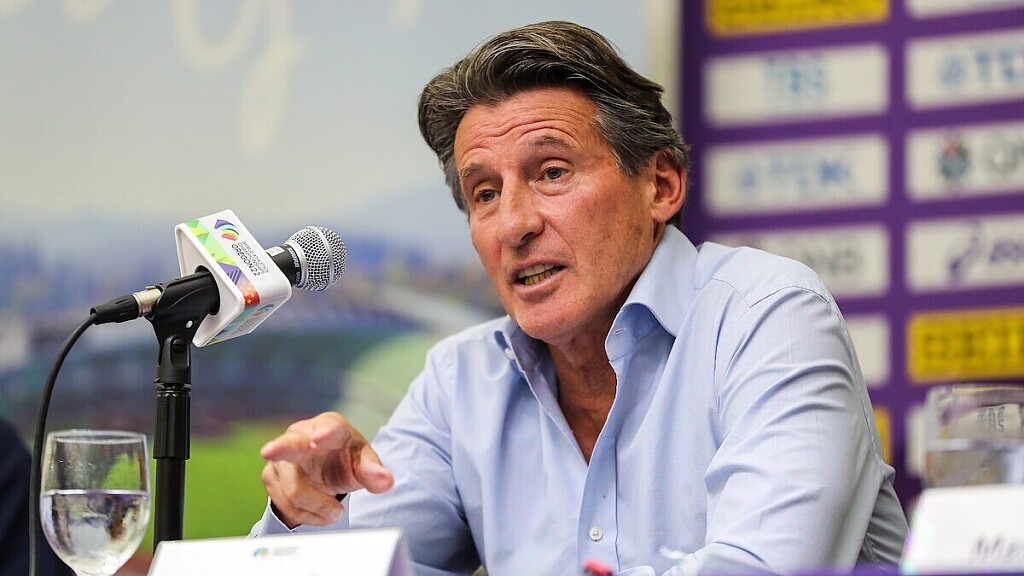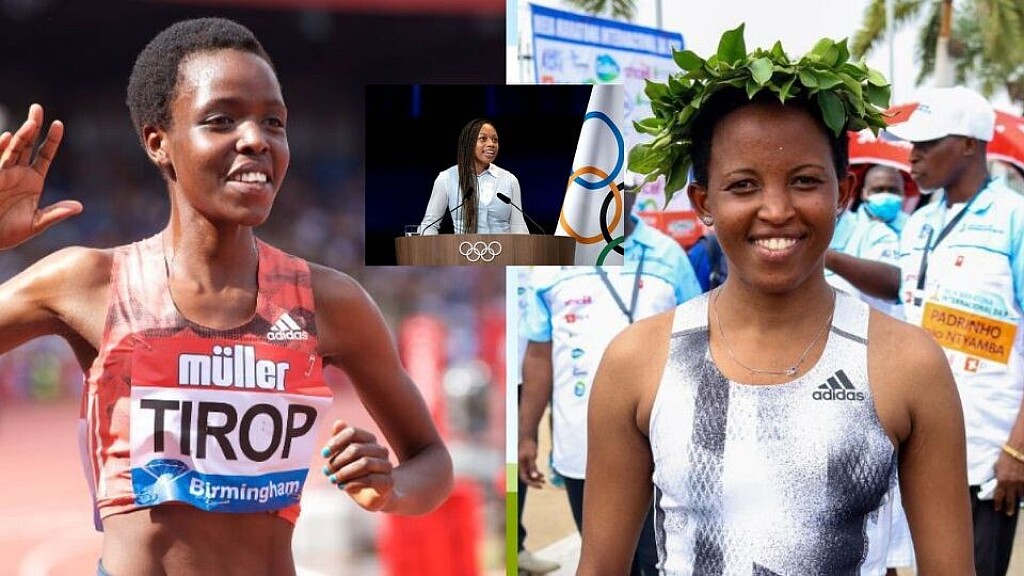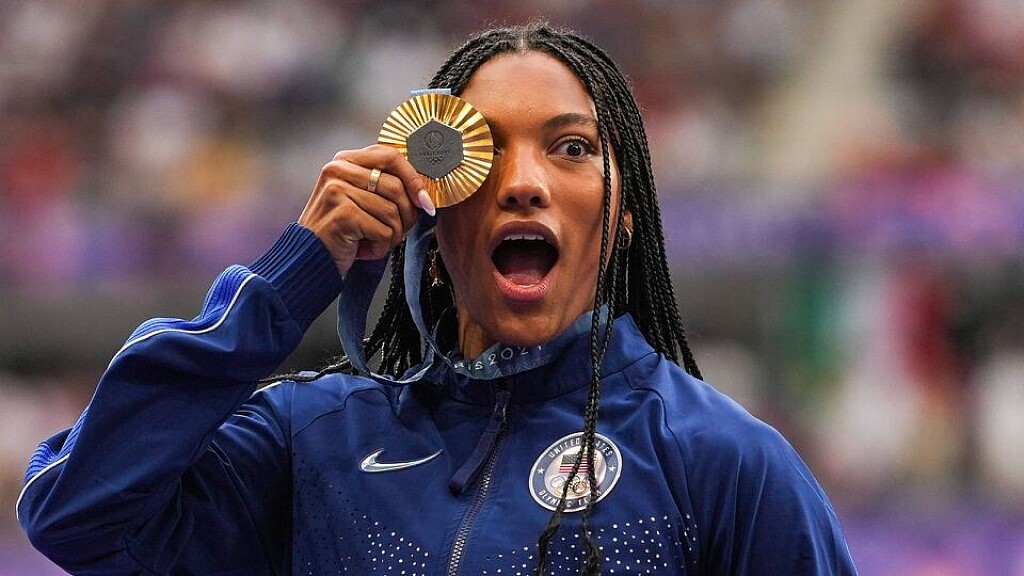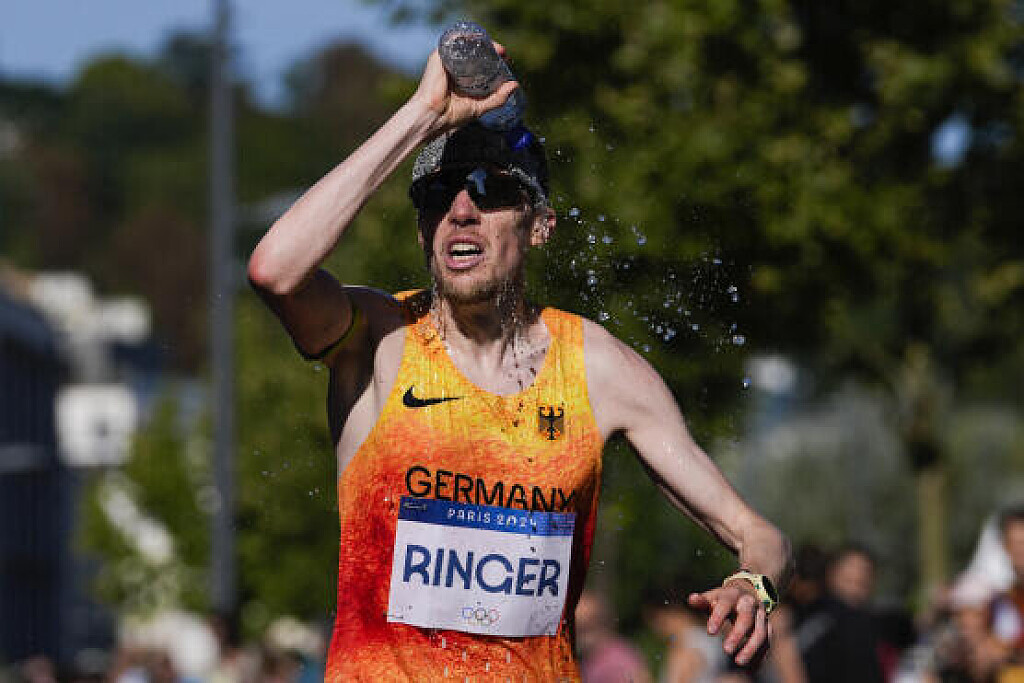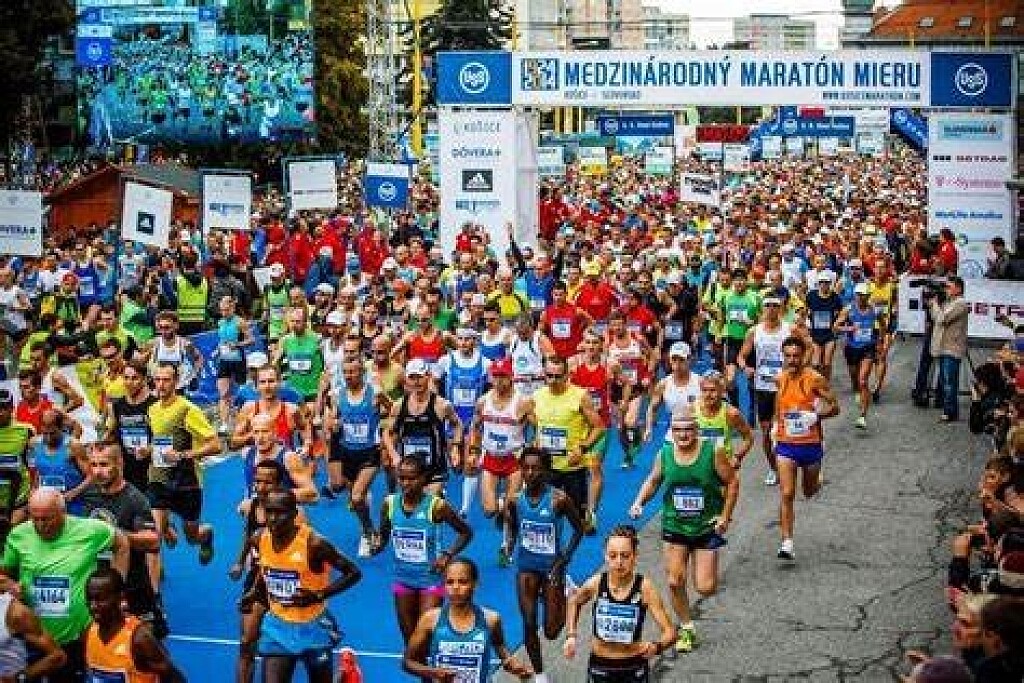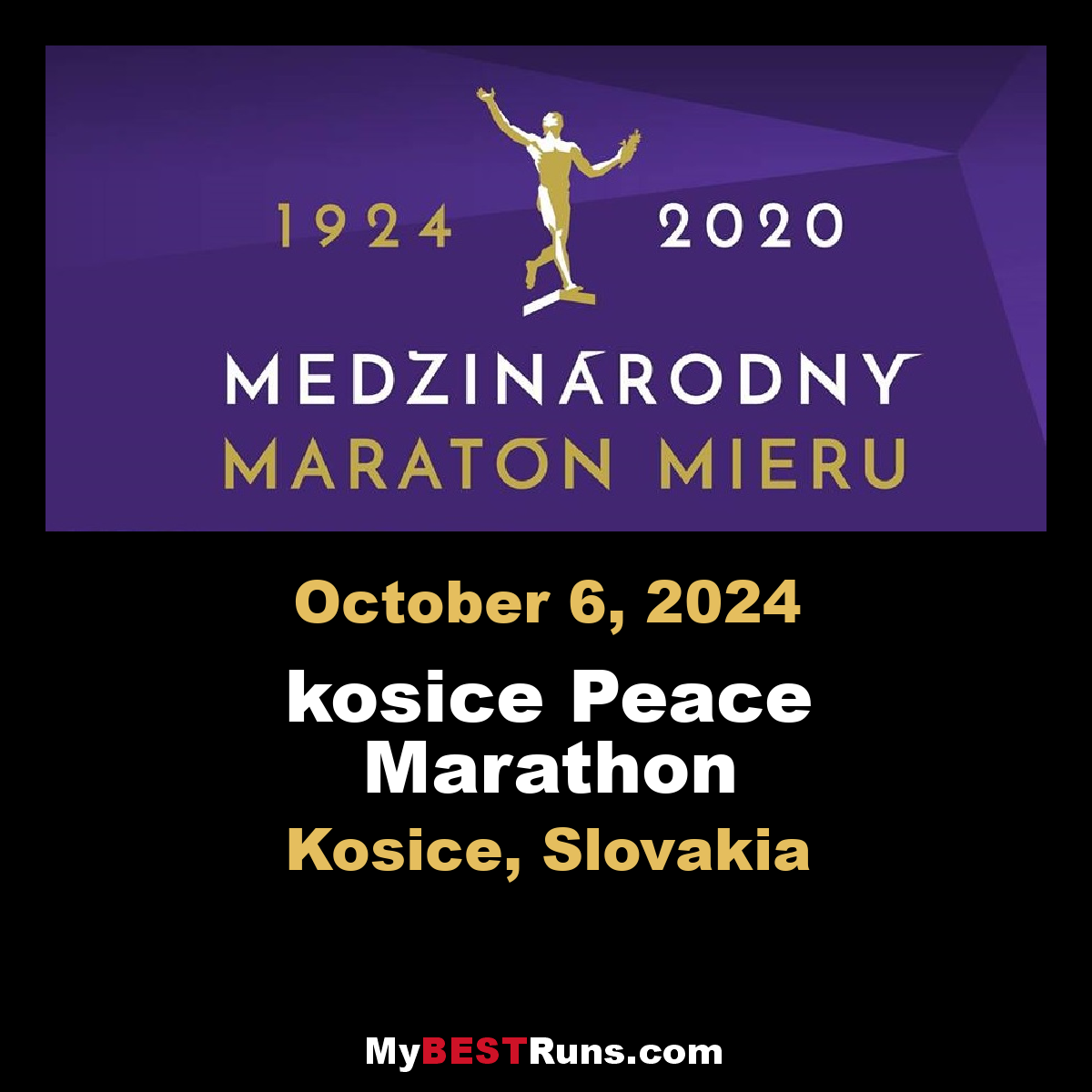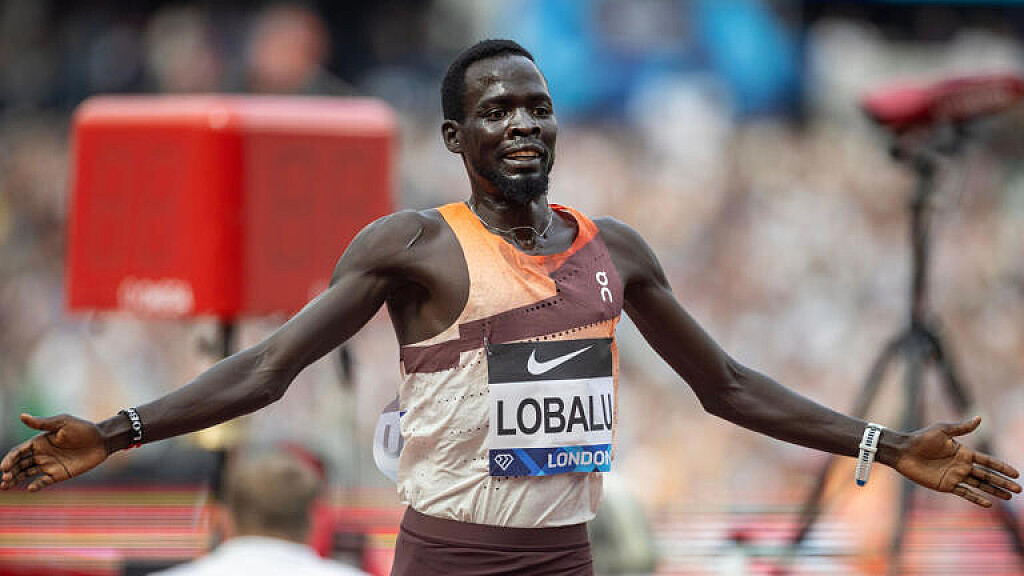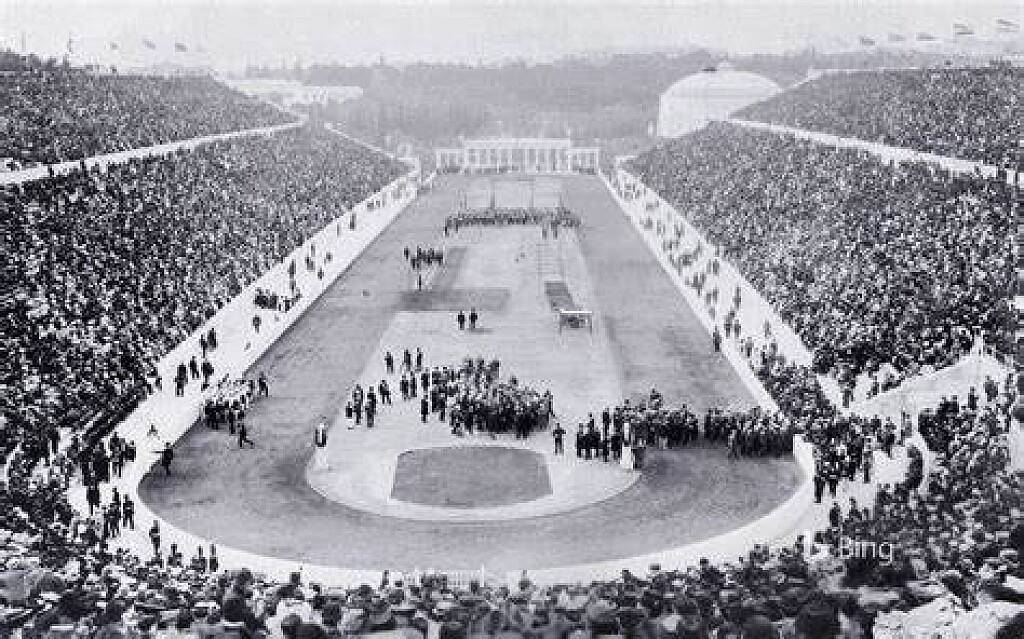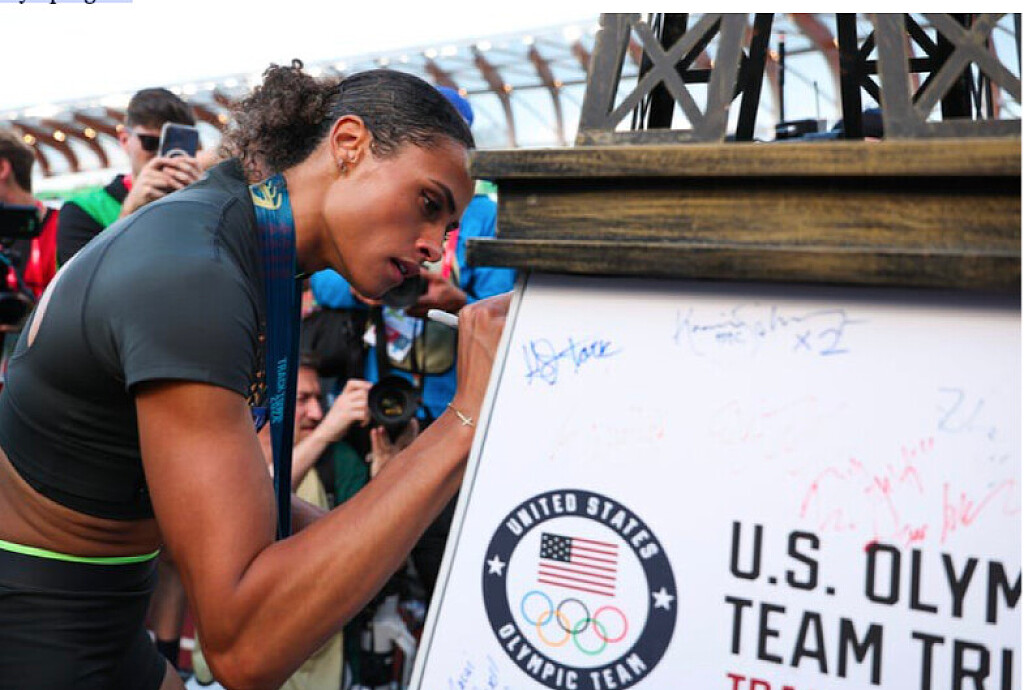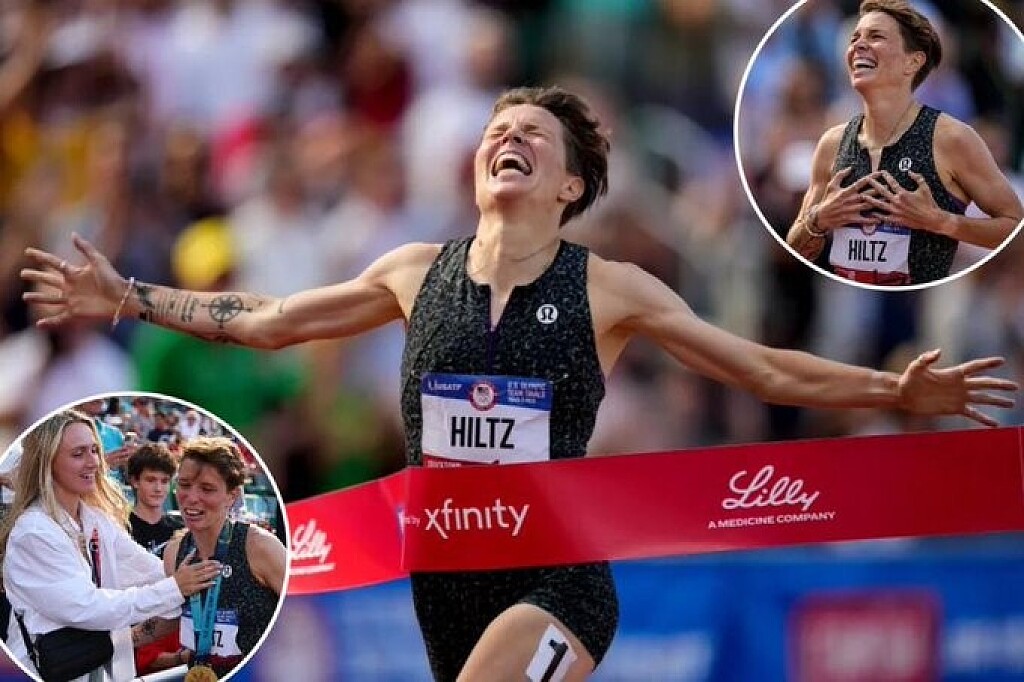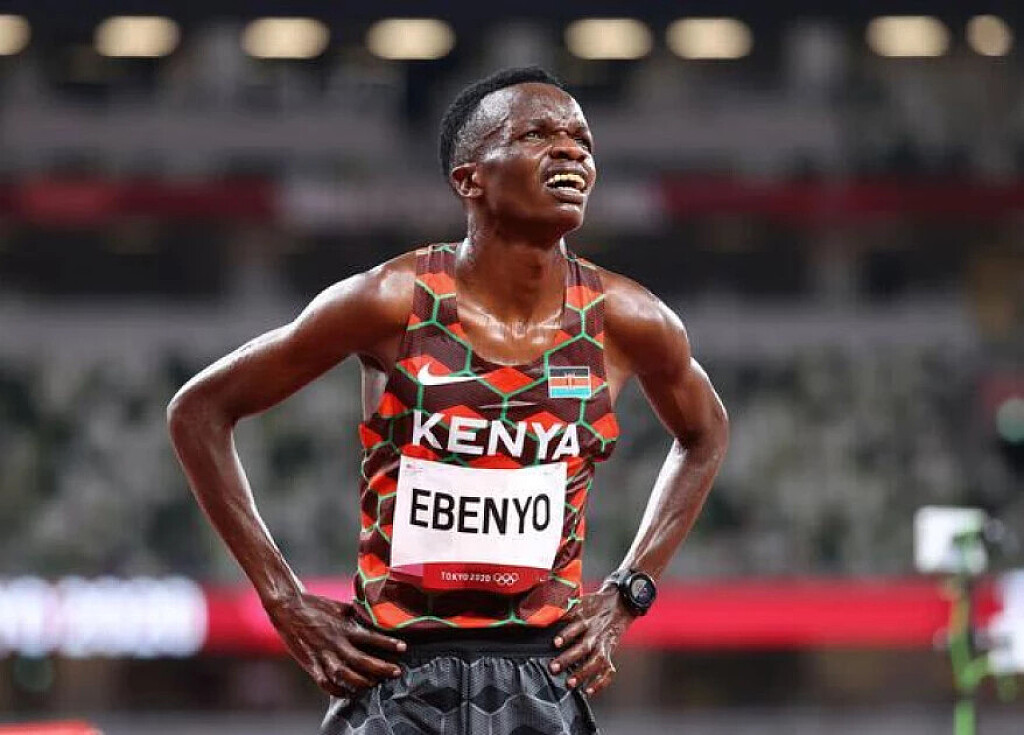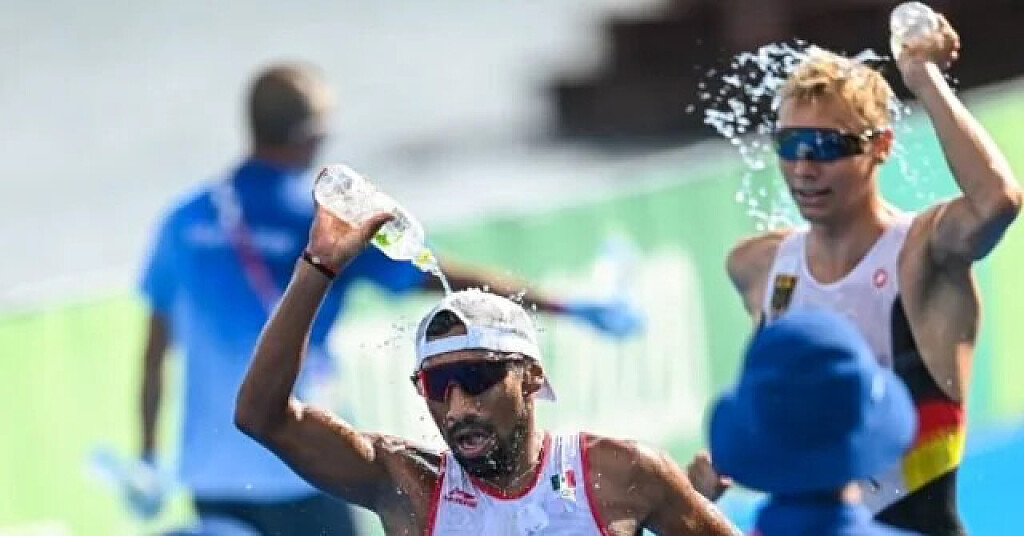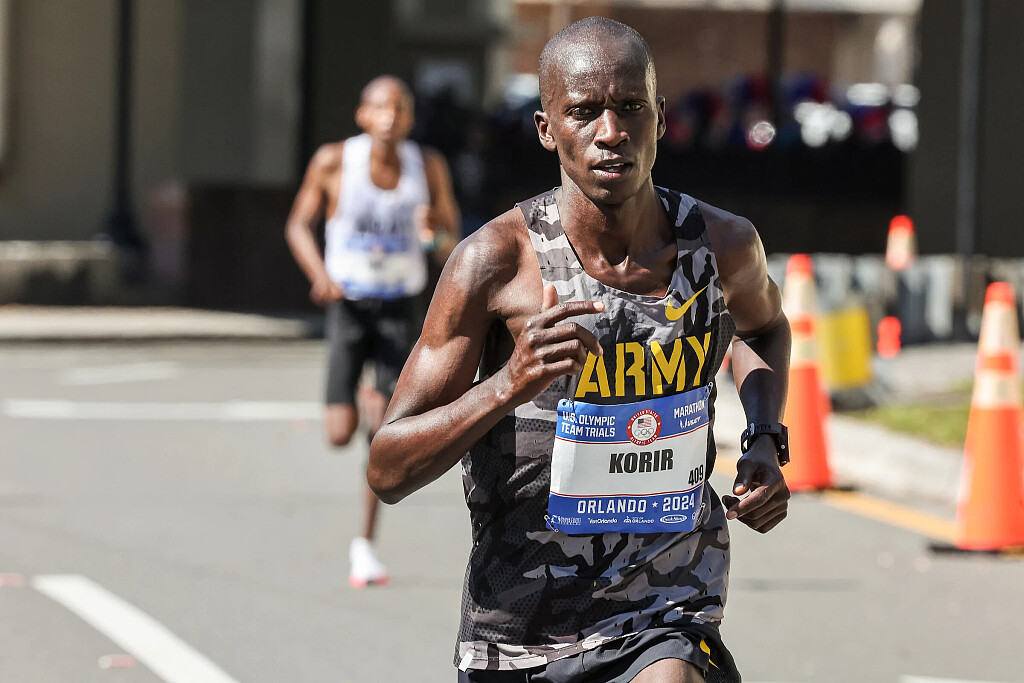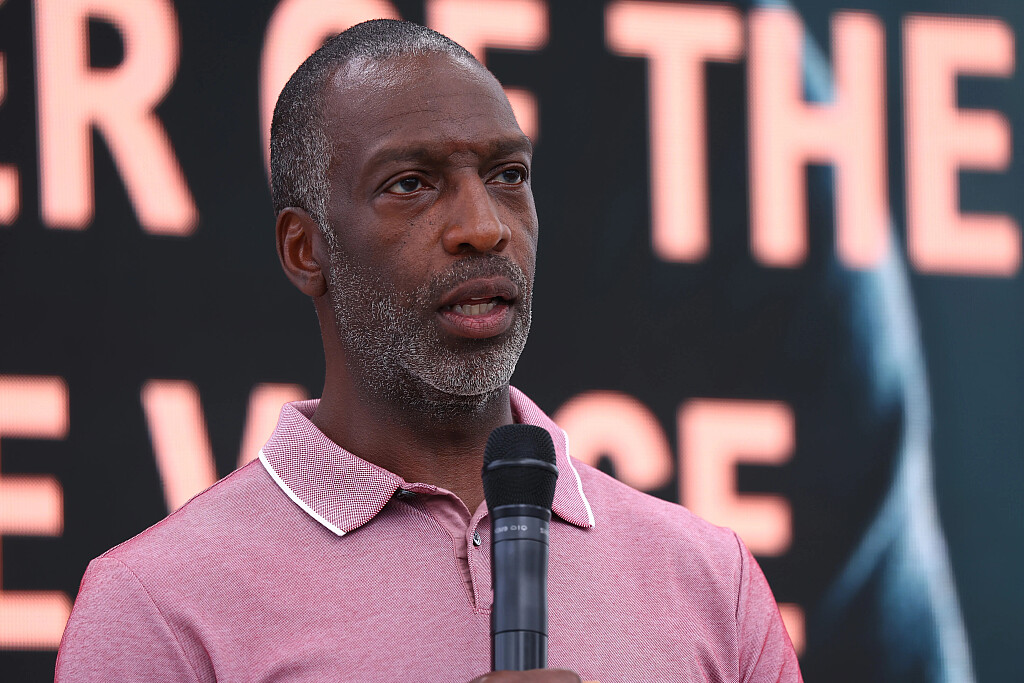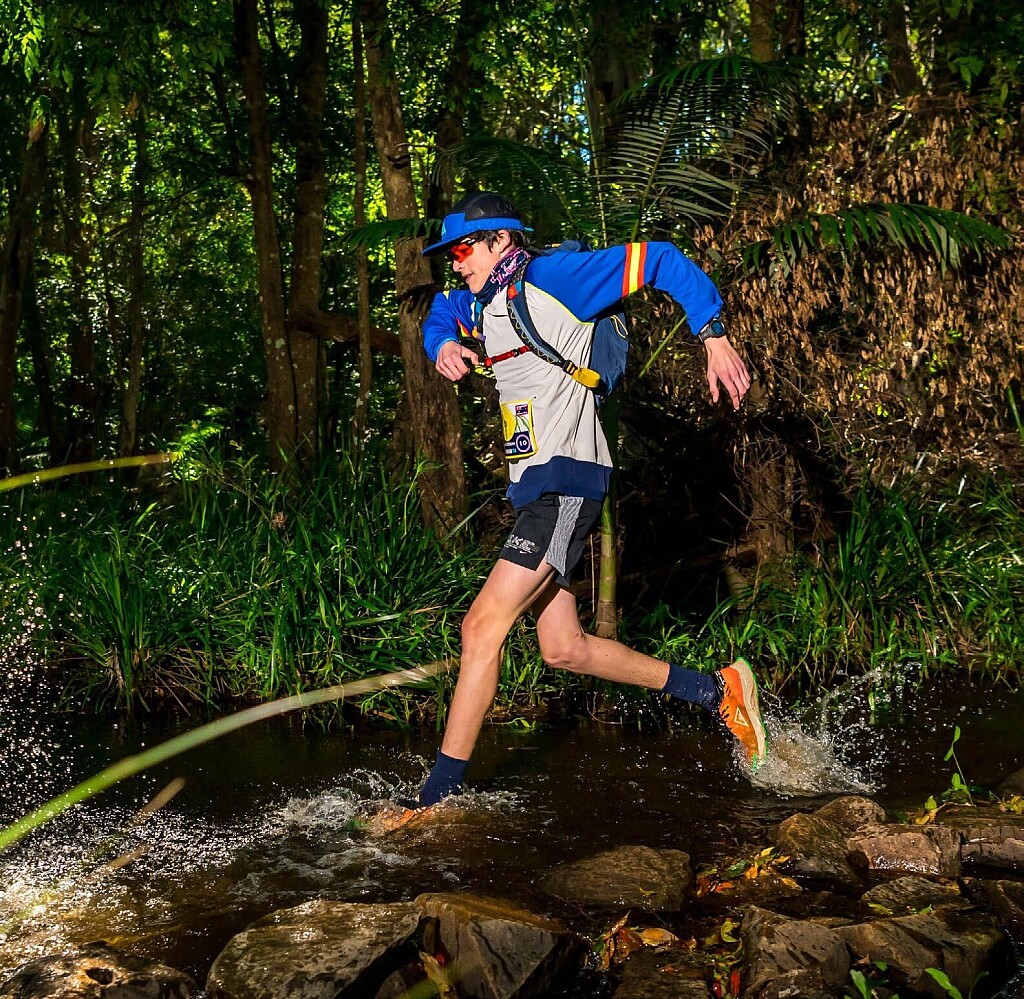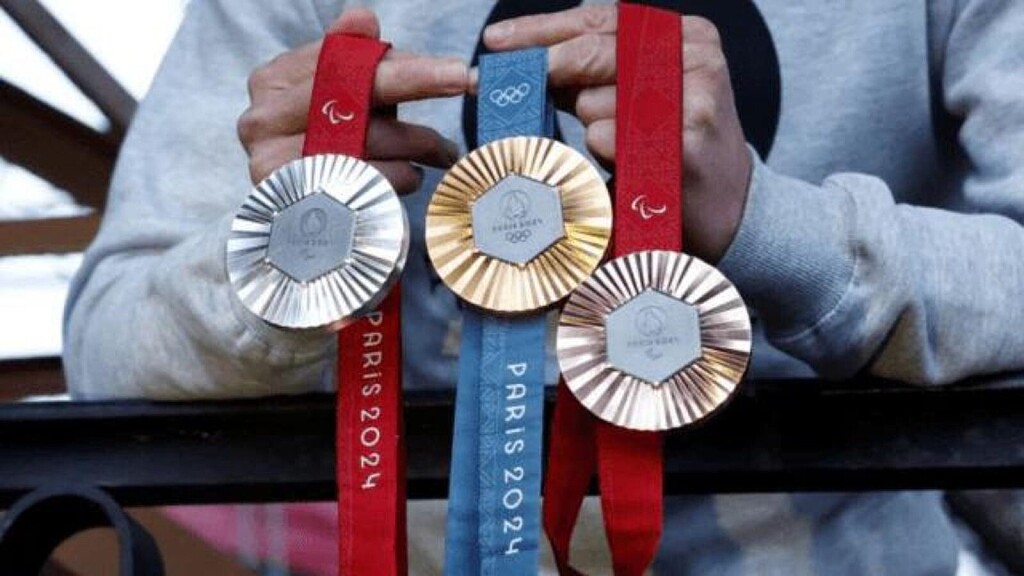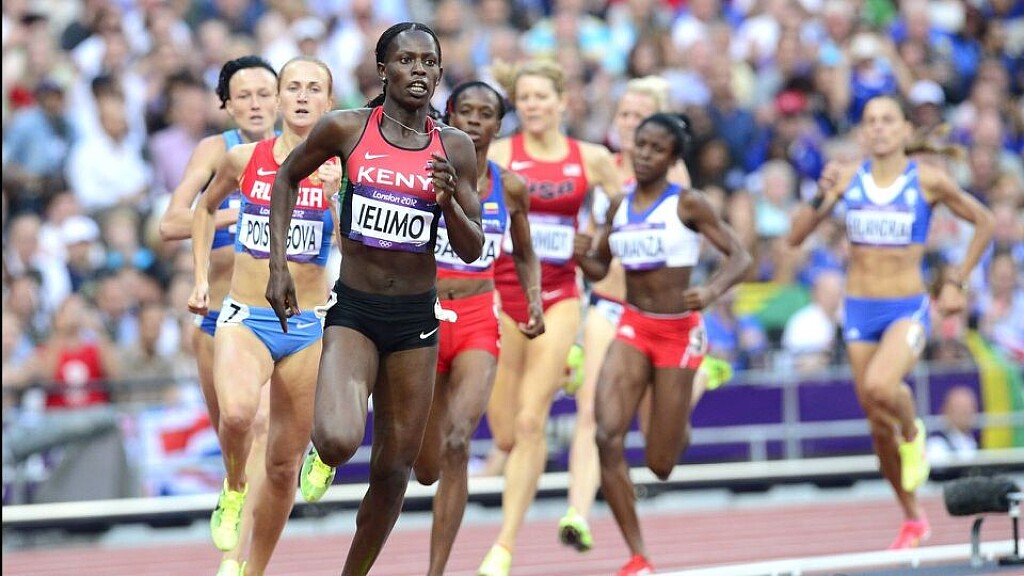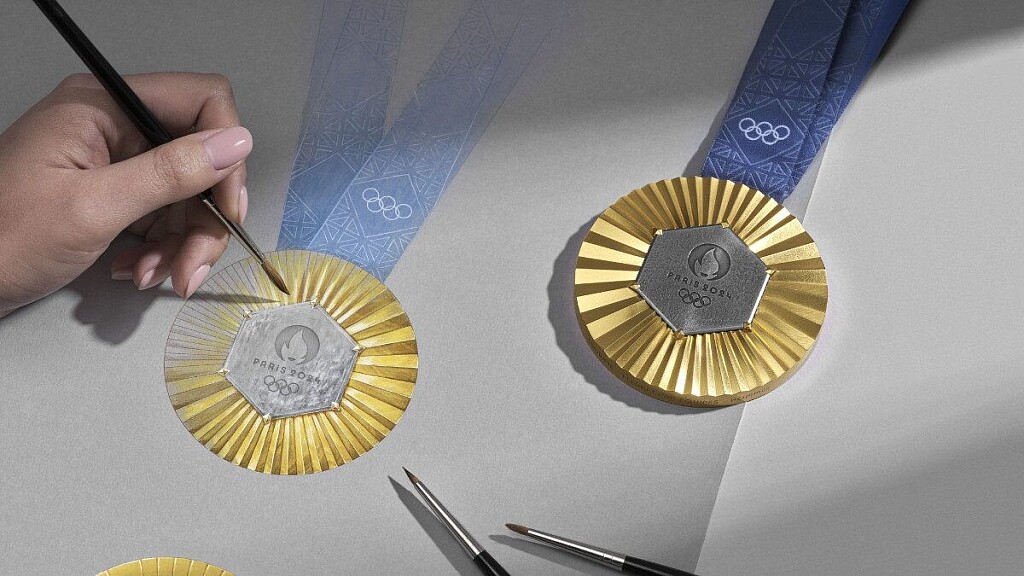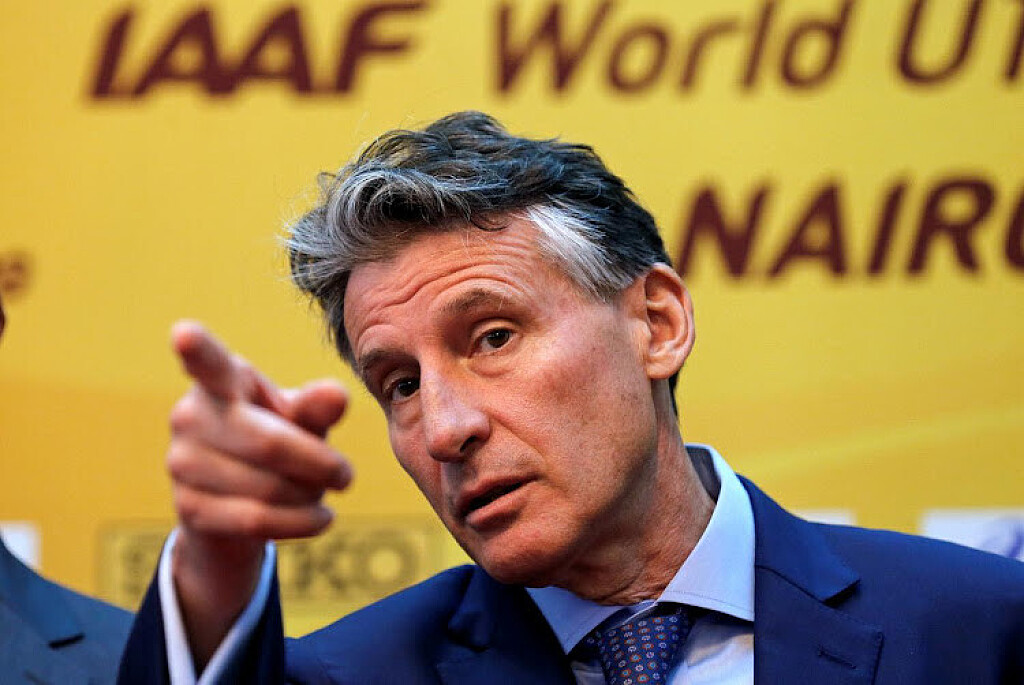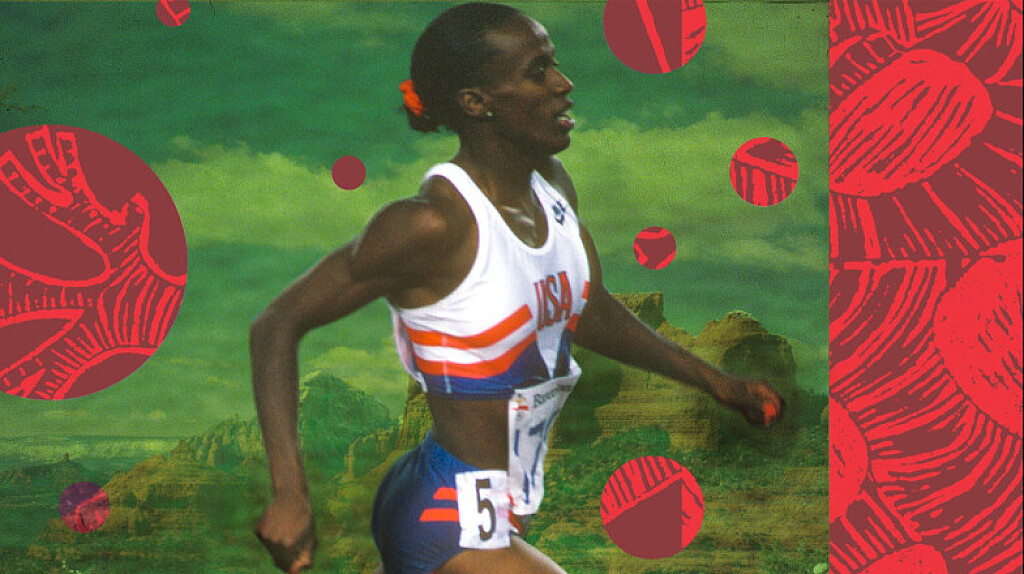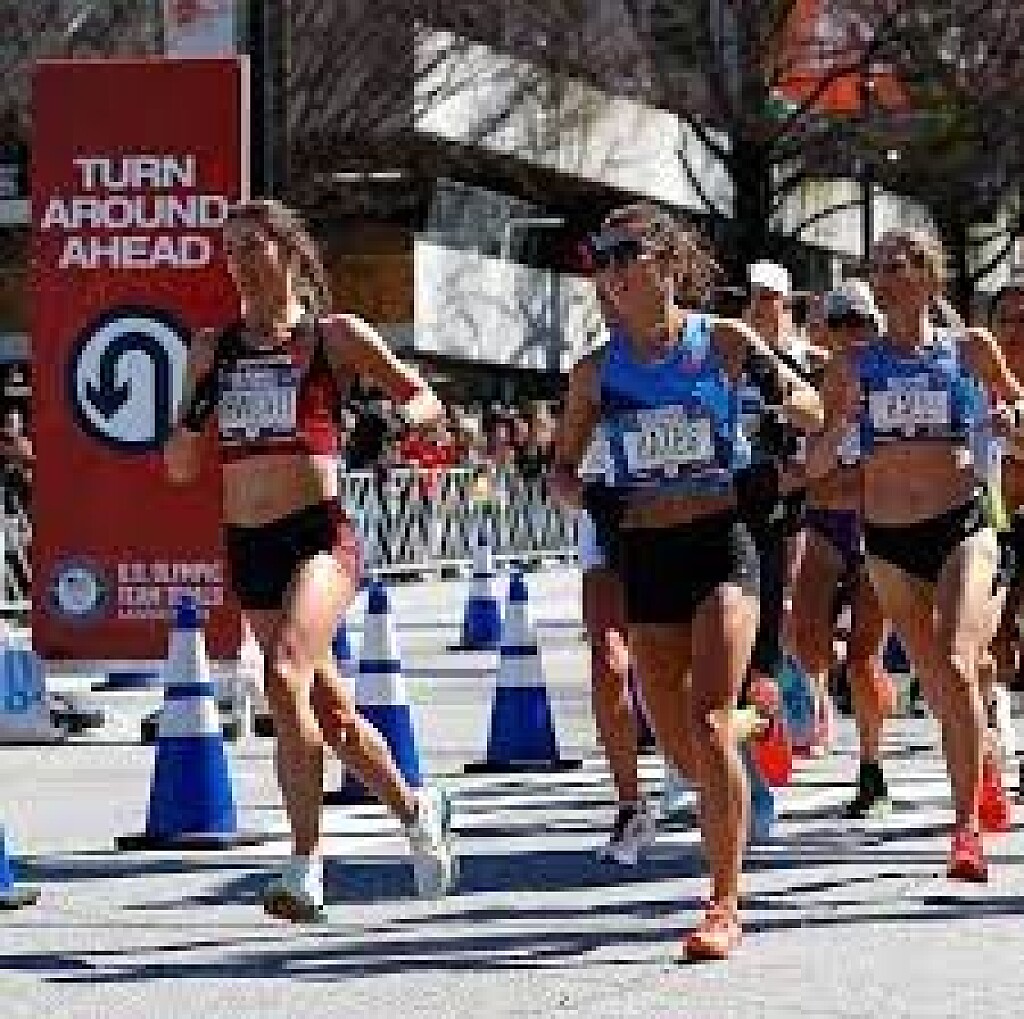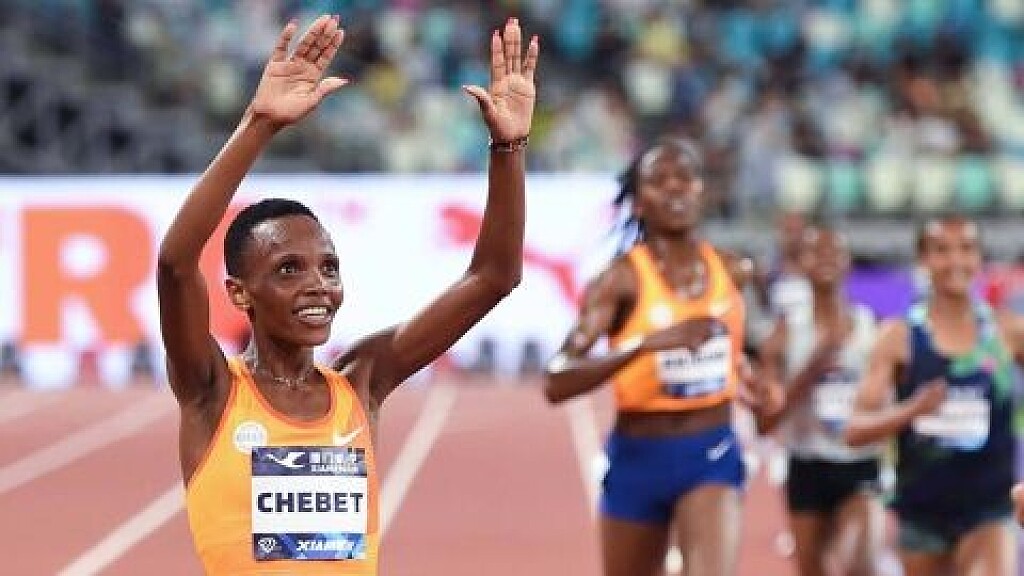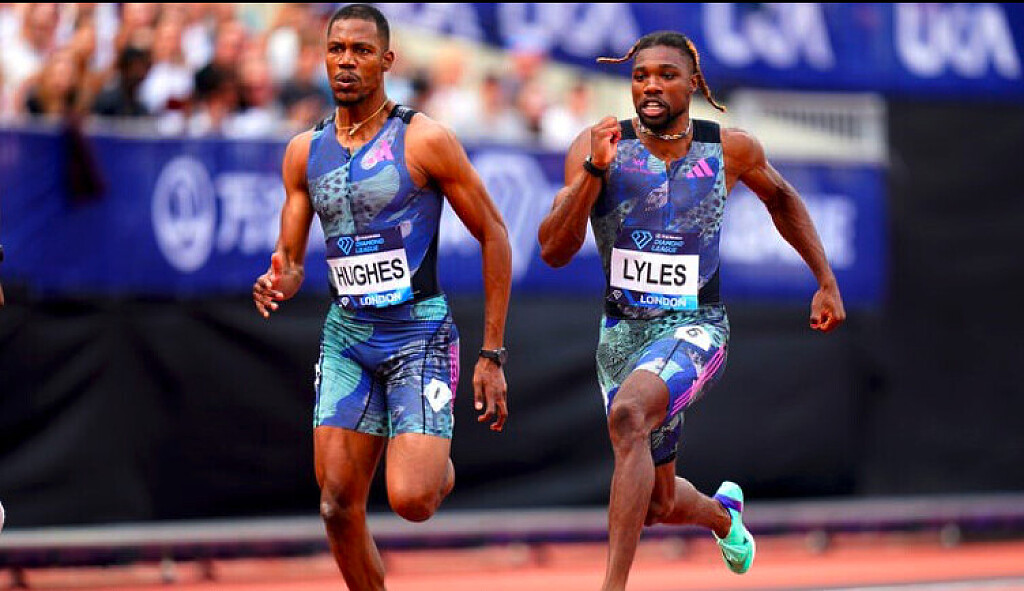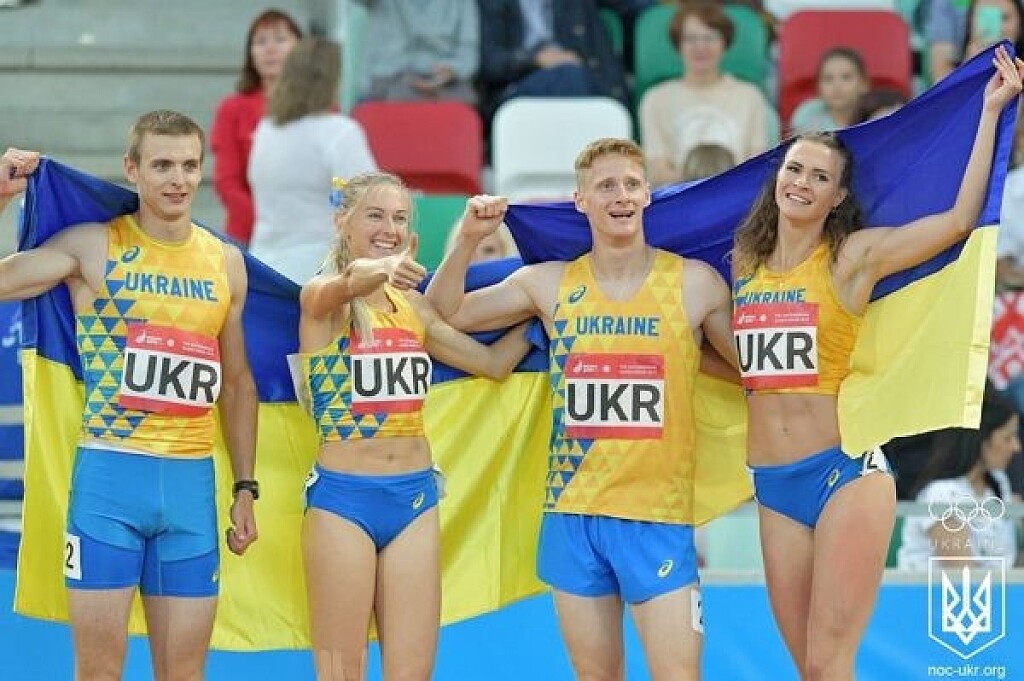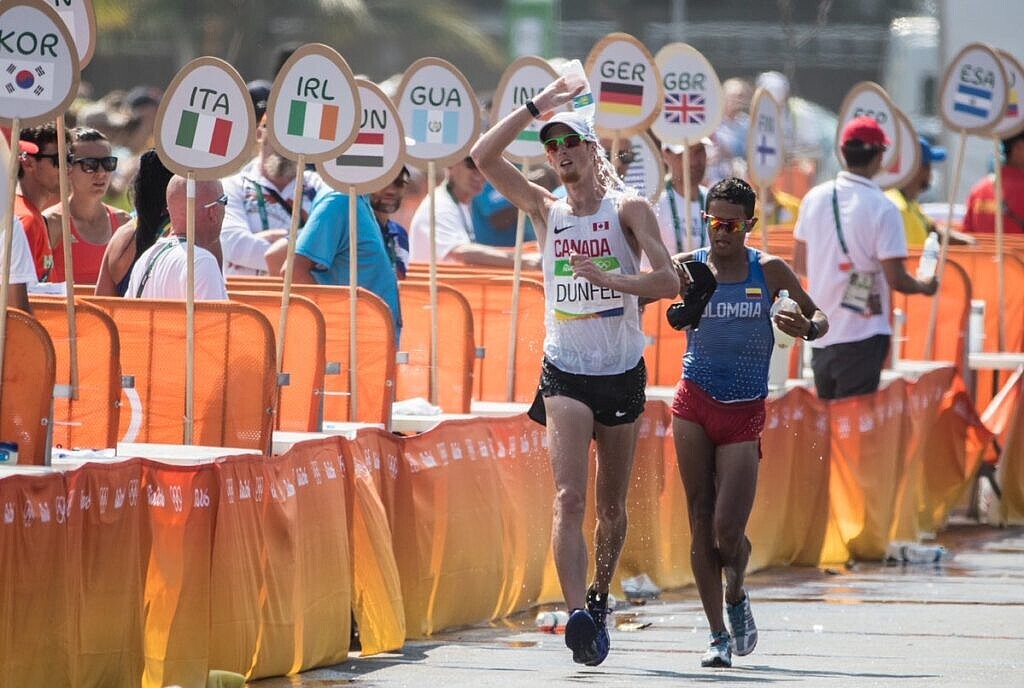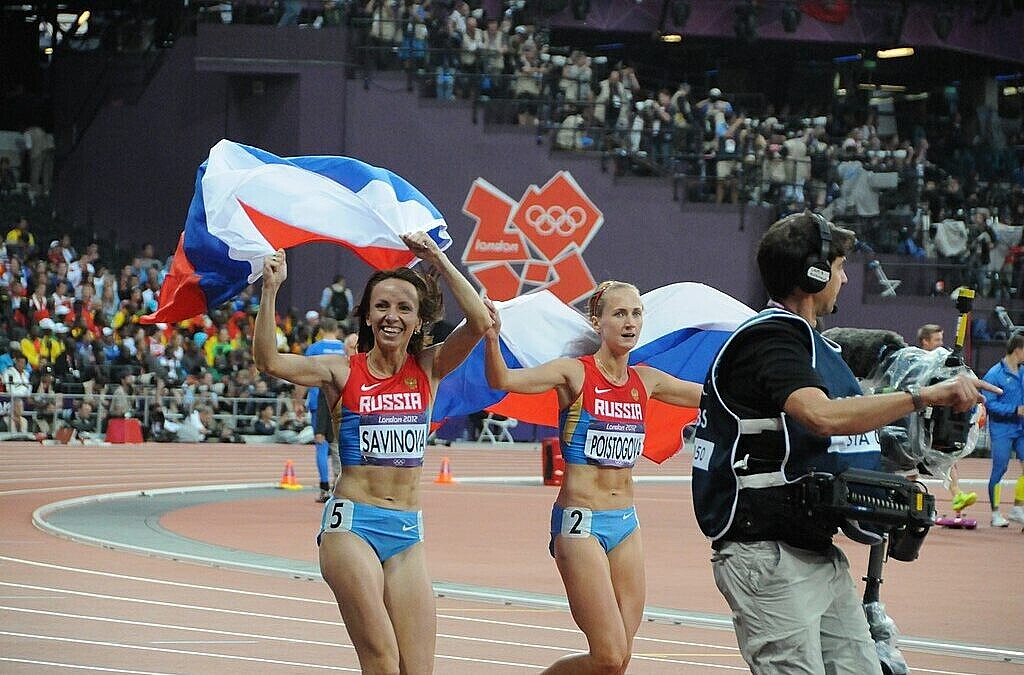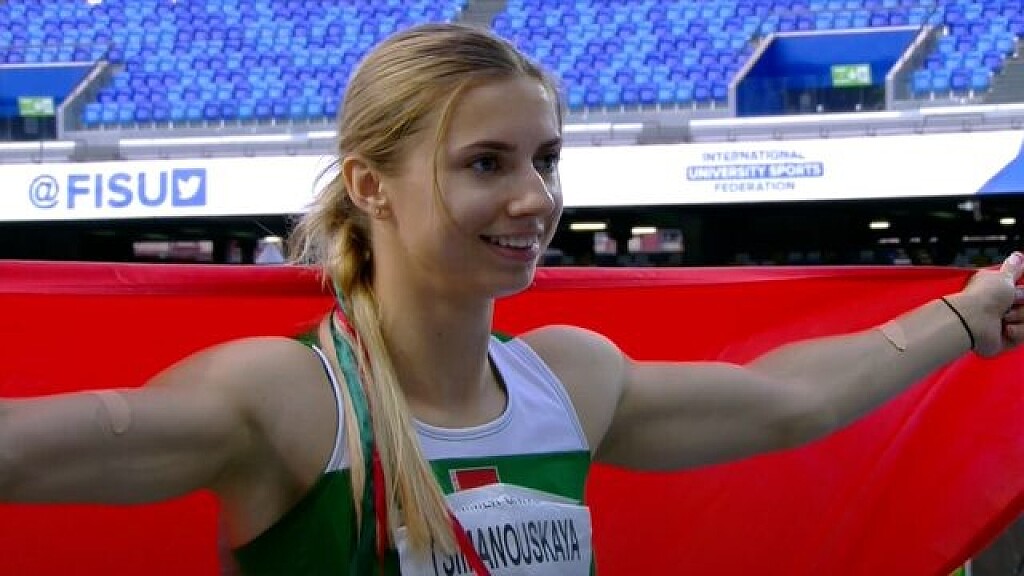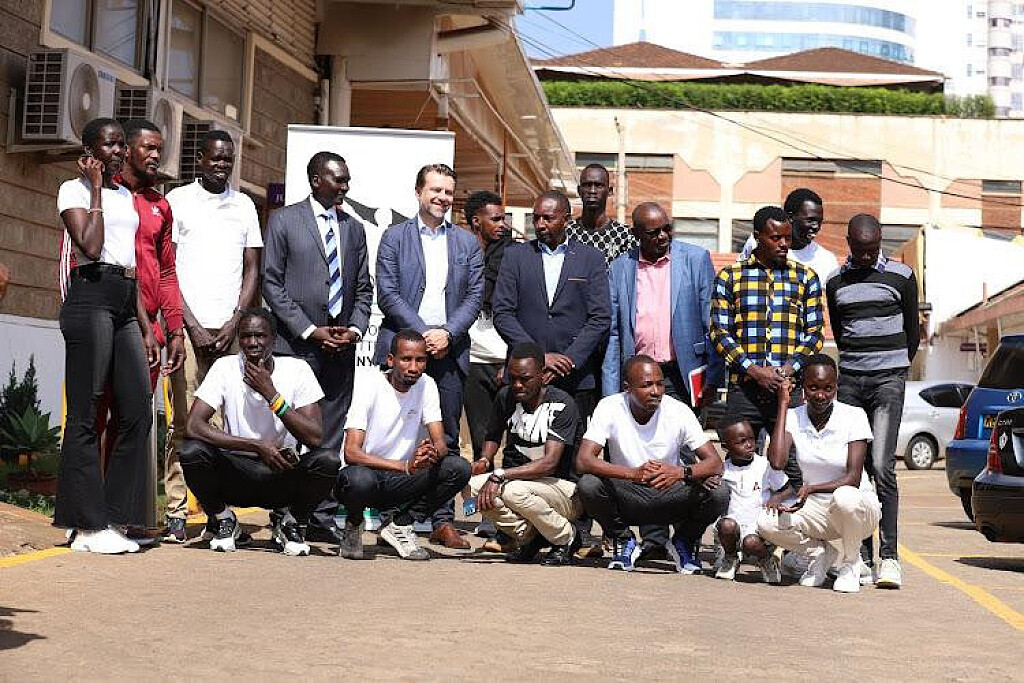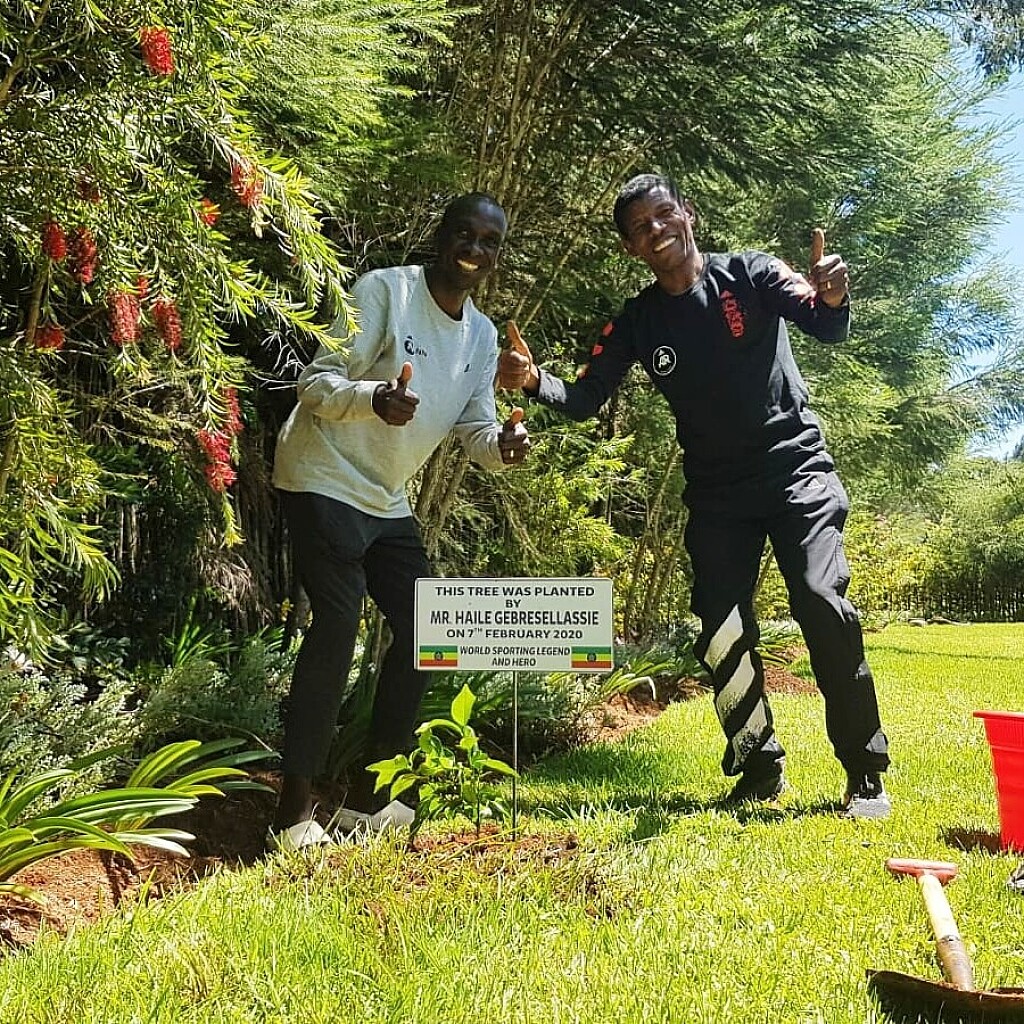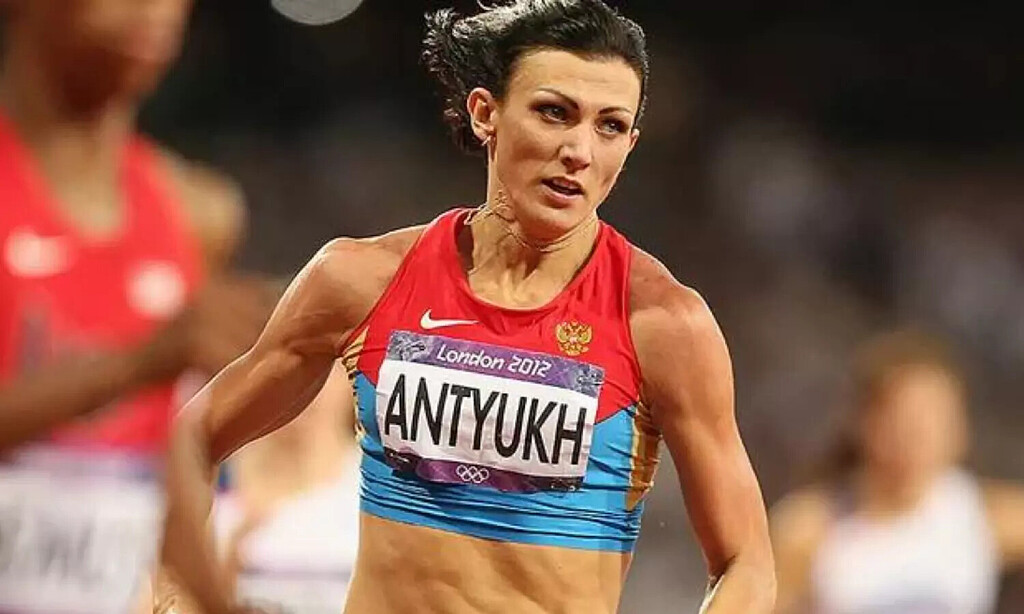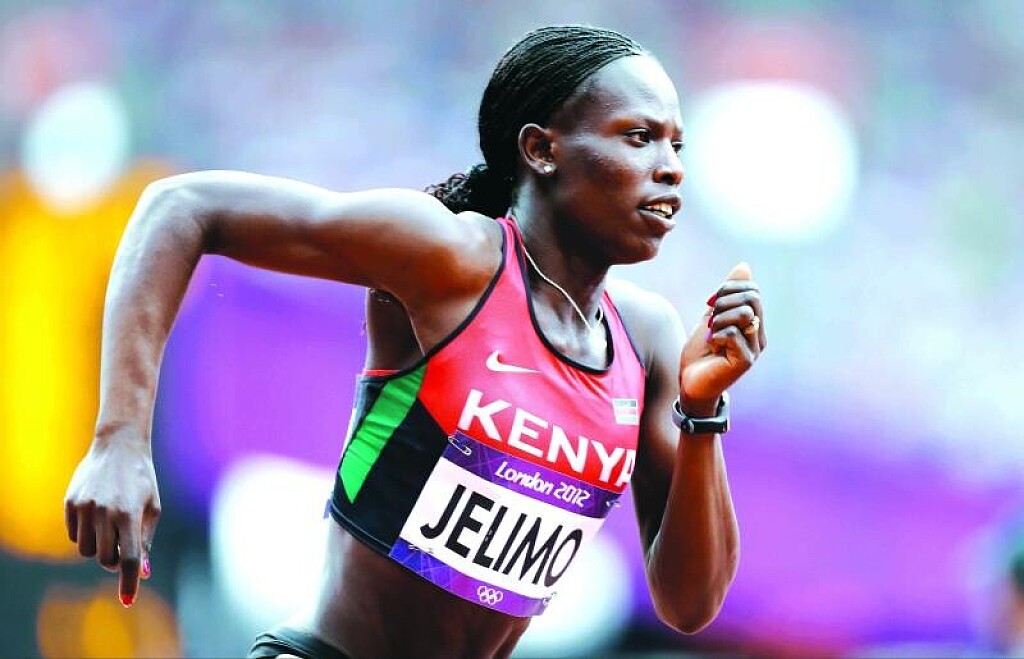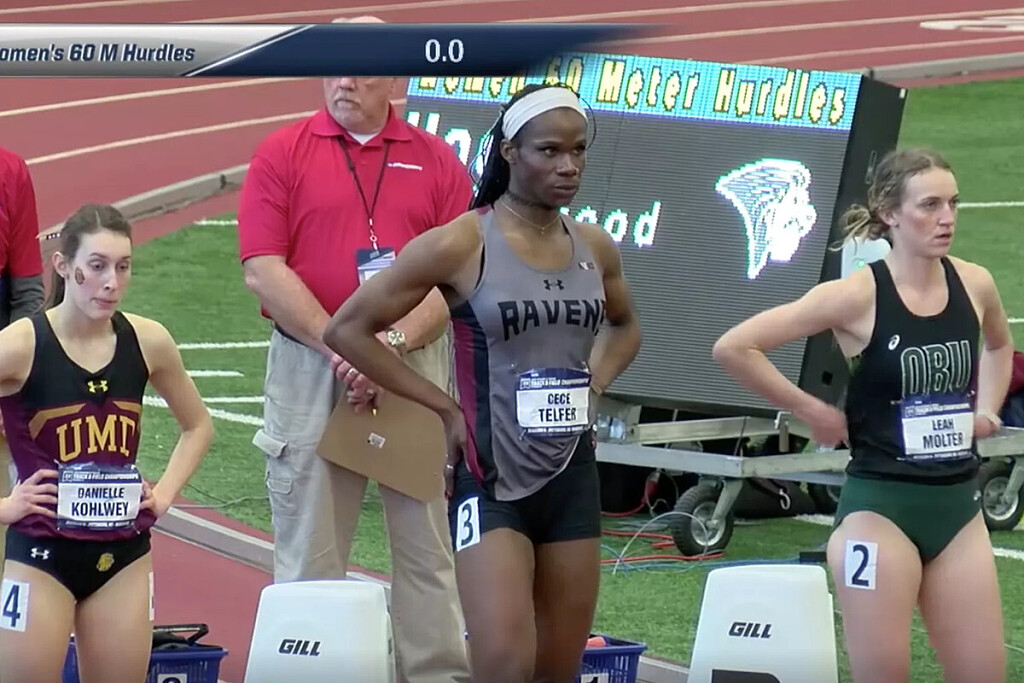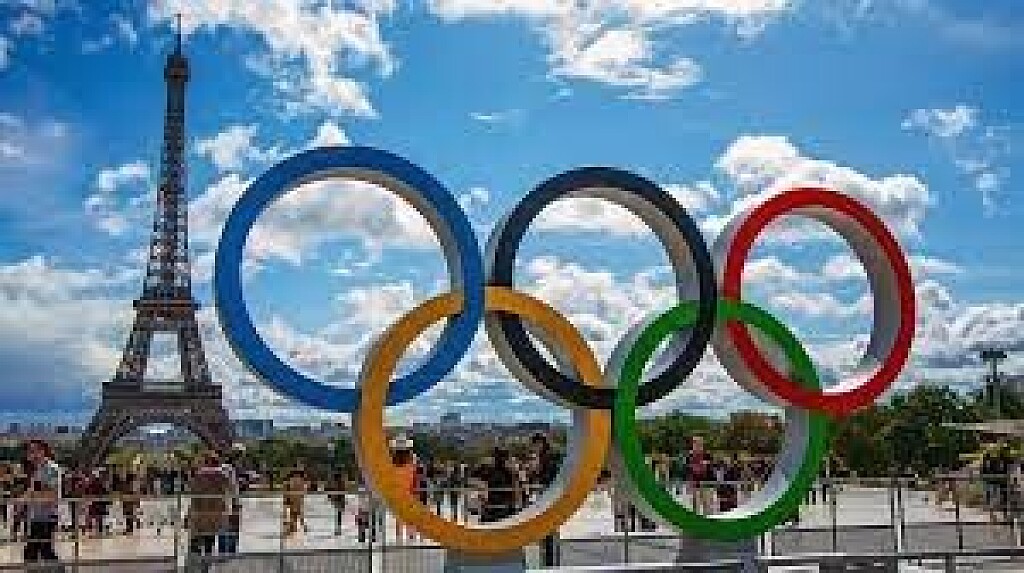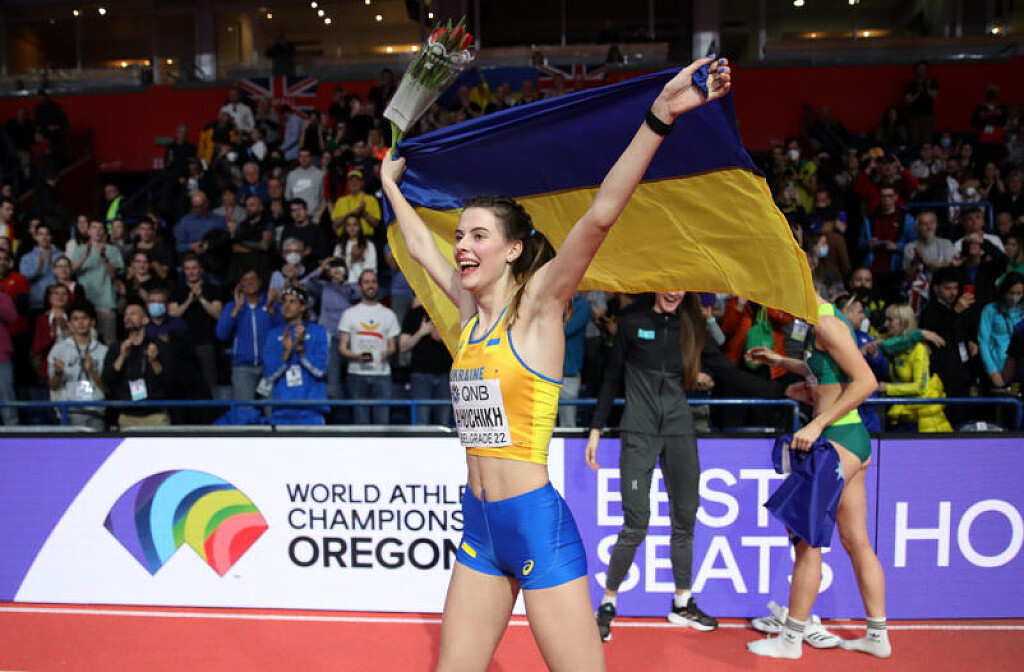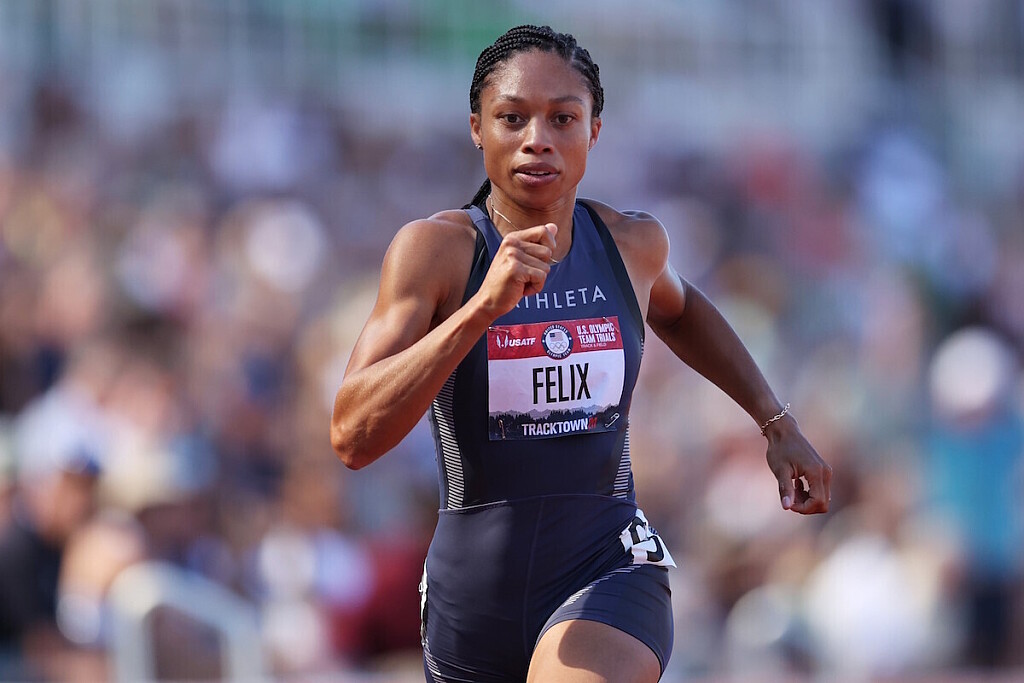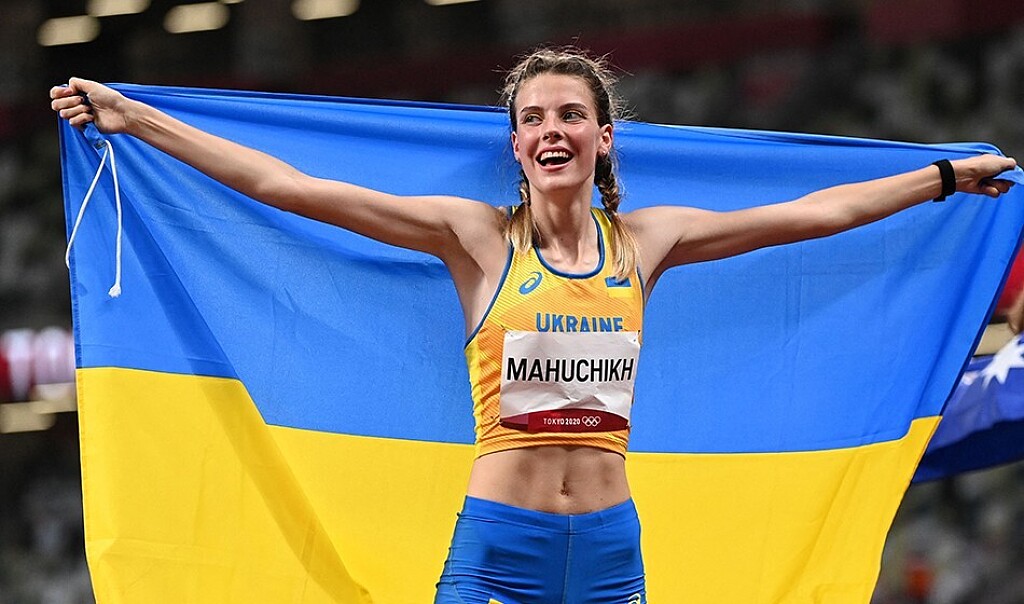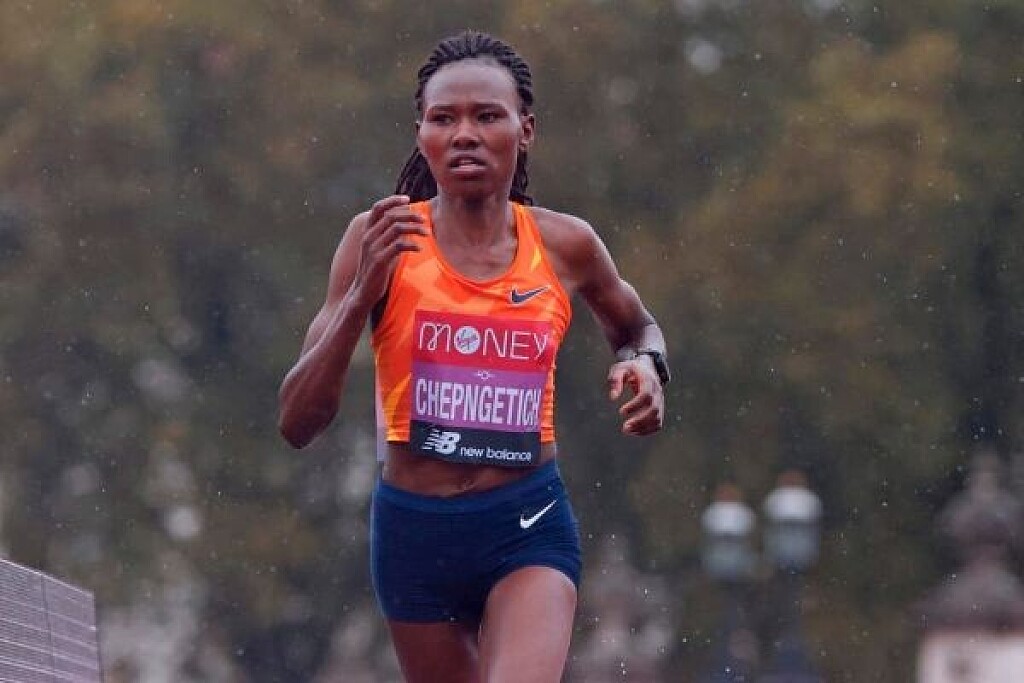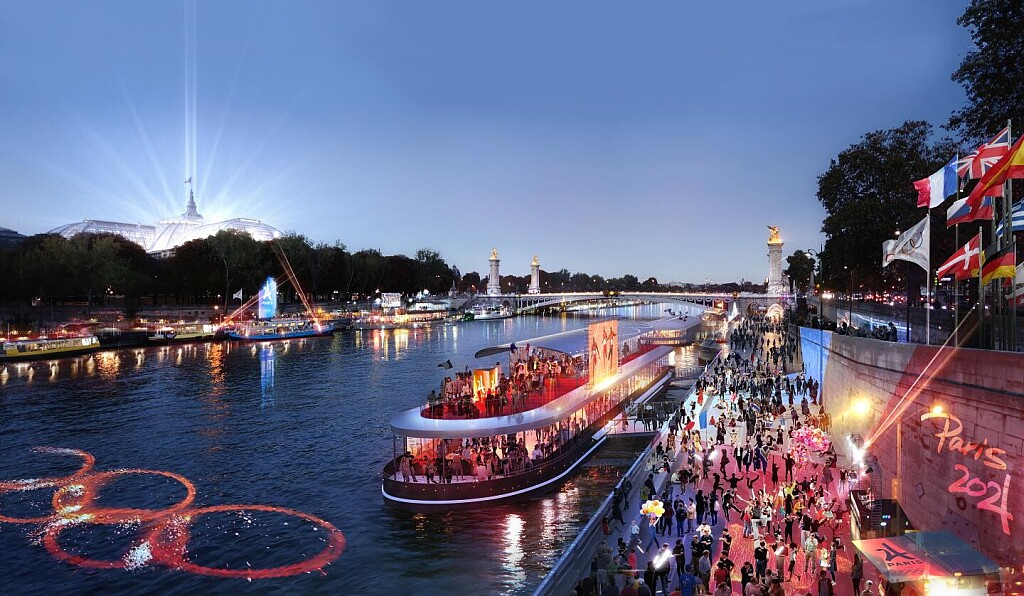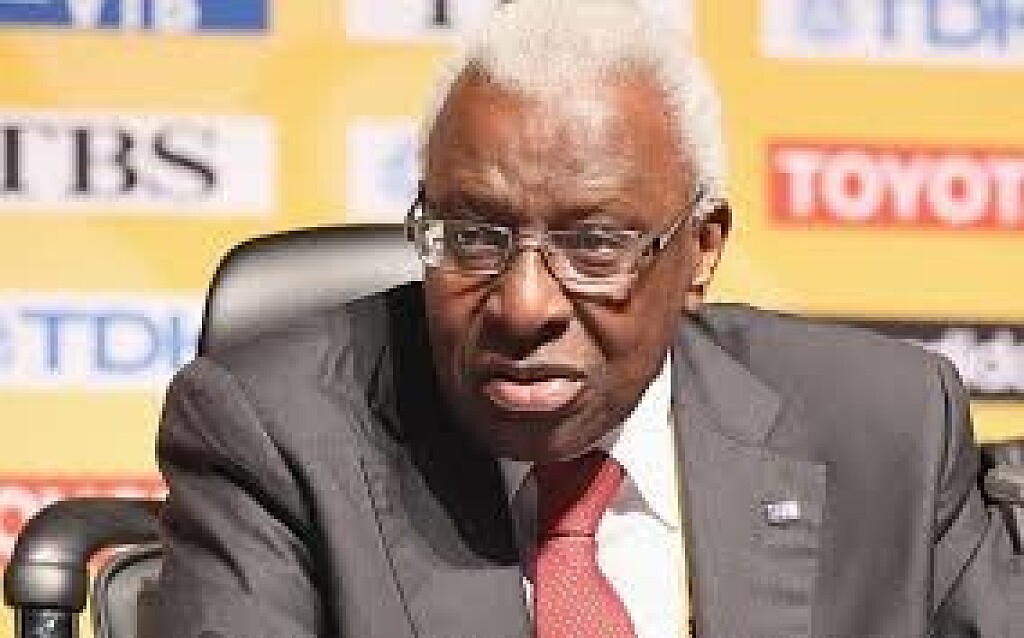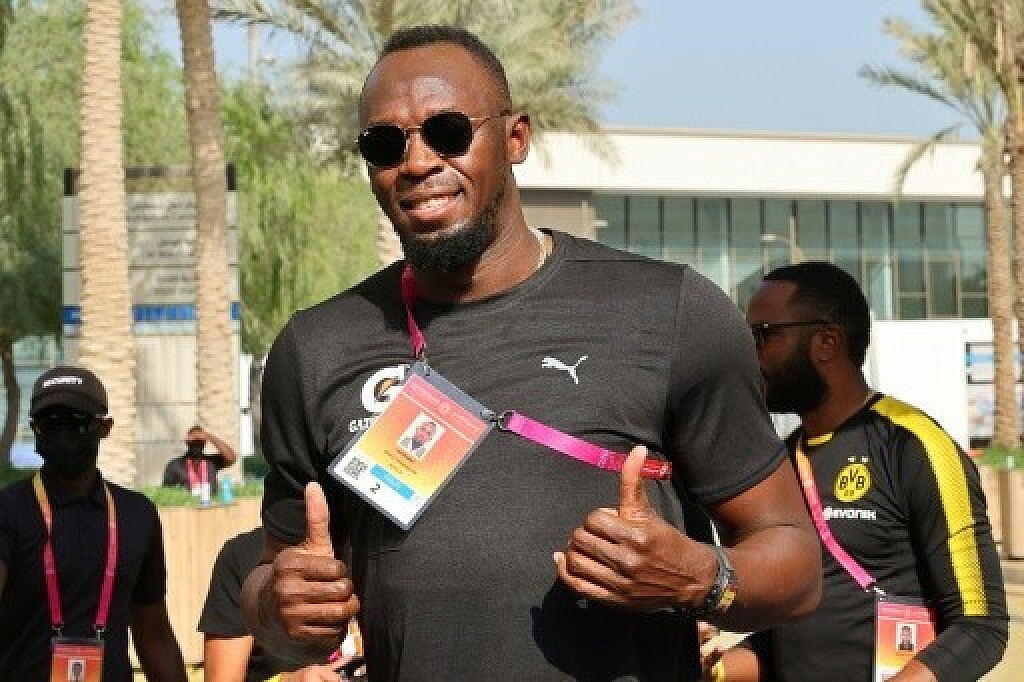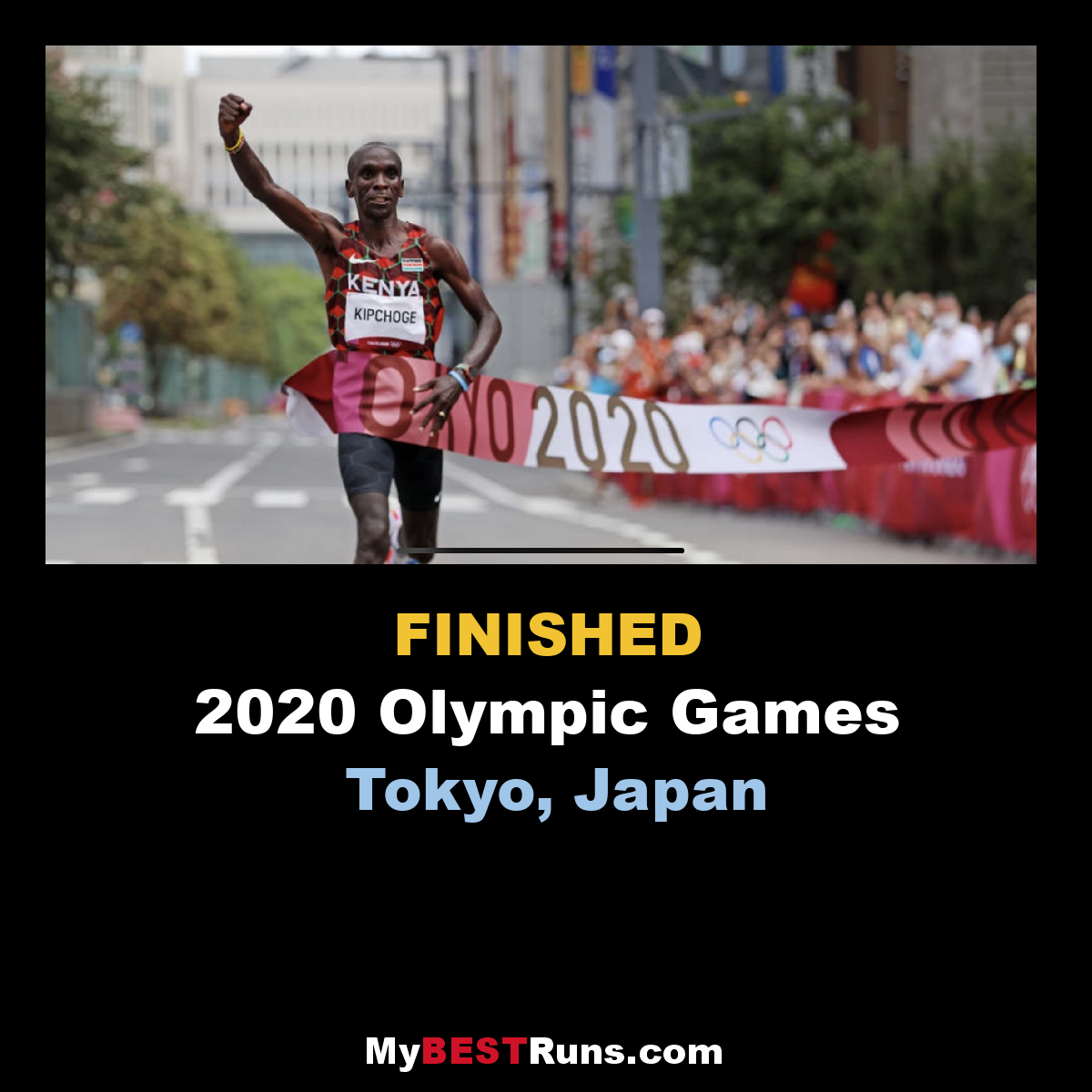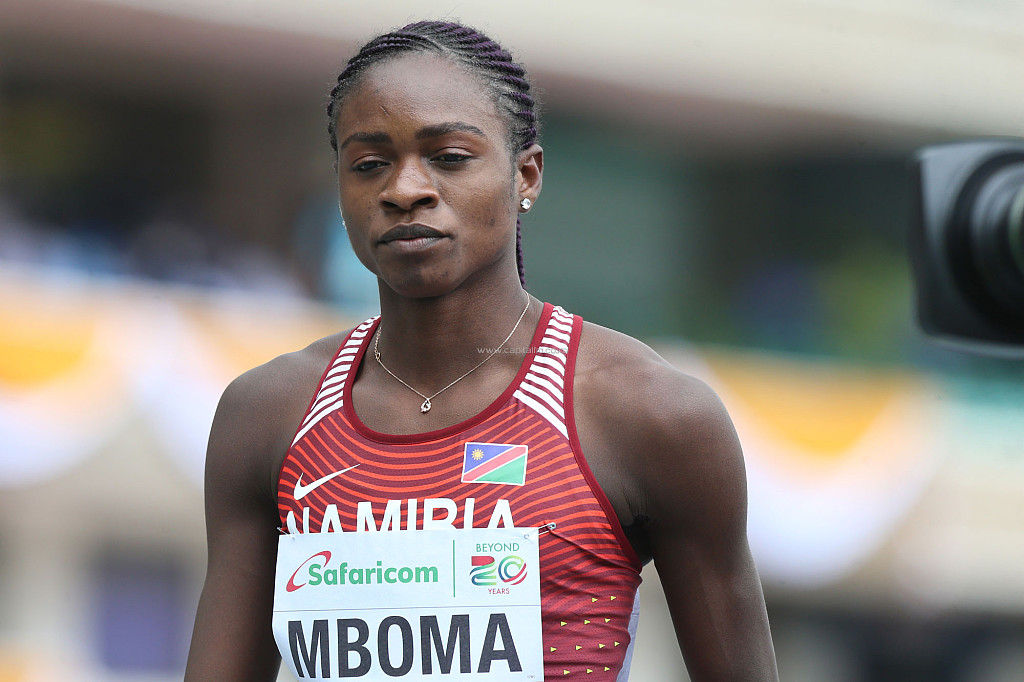Running News Daily
Running News Daily is edited by Bob Anderson. Send your news items to bob@mybestruns.com Advertising opportunities available. Train the Kenyan Way at KATA Kenya and Portugal owned and operated by Bob Anderson. Be sure to catch our movie A Long Run the movie KATA Running Camps and KATA Potato Farms - 31 now open in Kenya! https://kata.ke/
Index to Daily Posts · Sign Up For Updates · Run The World Feed
Articles tagged #International Olympic Committee
Today's Running News
John Korir Aims to Break Kelvin Kiptum’s World Record at the 2025 Chicago Marathon
Reigning Boston Marathon champion John Korir is preparing for the race of his life — an attempt to break the late Kelvin Kiptum’s marathon world record of 2:00:35, set on the streets of Chicago in 2023.
Korir, 28, will return to defend his title at the Chicago Marathon on October 12, but this time with a bold target in mind: a new personal best of 2:00:30. Achieving it would not only secure back-to-back victories in Chicago but also eclipse Kiptum’s mark by five seconds.
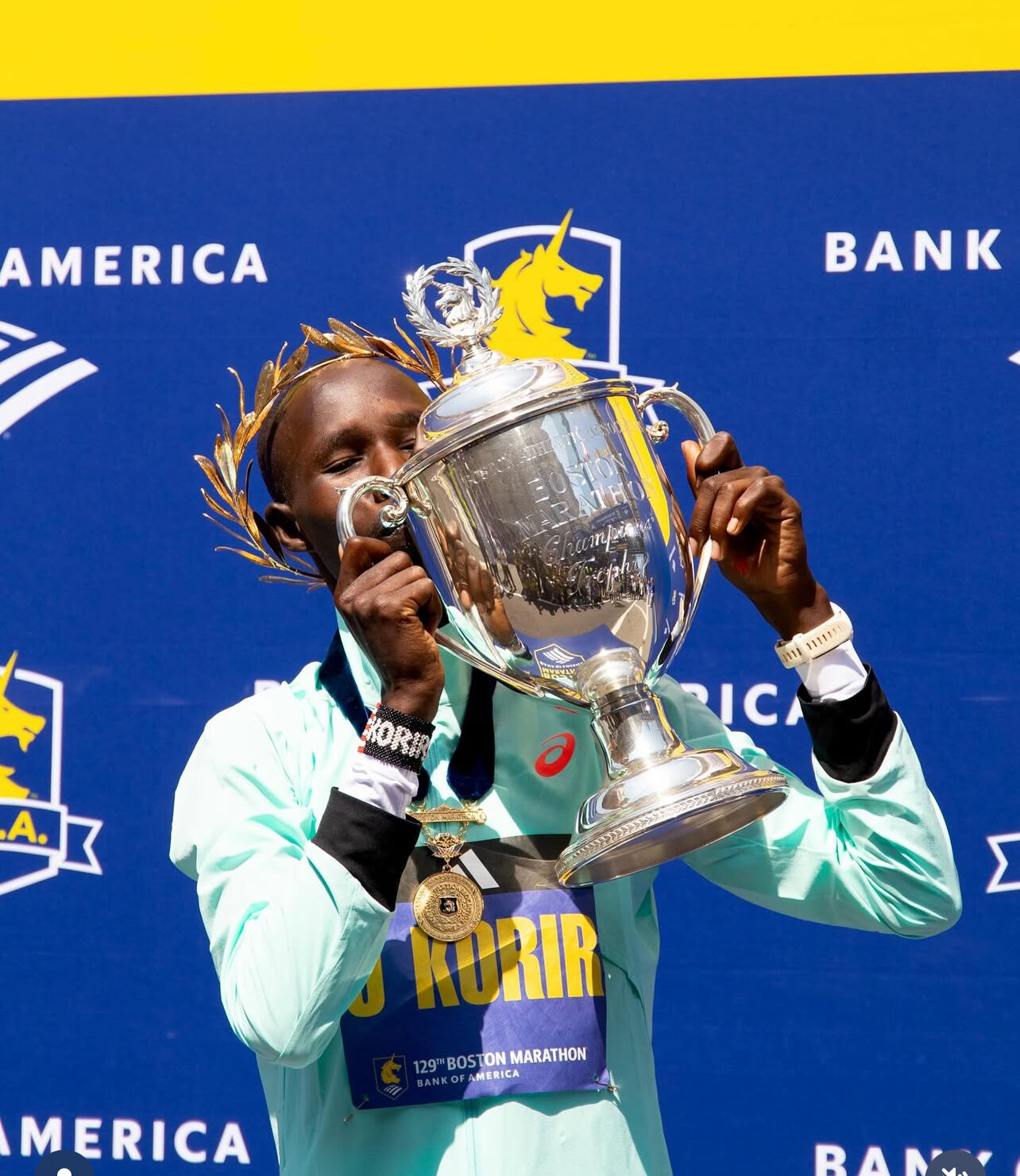
“The target my coach and I have set for ourselves in Chicago is to lower my personal best and clock 2:00:30,” Korir told The Star. “My body is in good shape, I am injury-free, and I feel great.”
Chicago’s course is renowned for producing fast times — flat, competitive, and recognized by the International Olympic Committee as a “historical world record course.” Korir believes its layout, combined with his current form, offers the perfect stage for a record-breaking run.
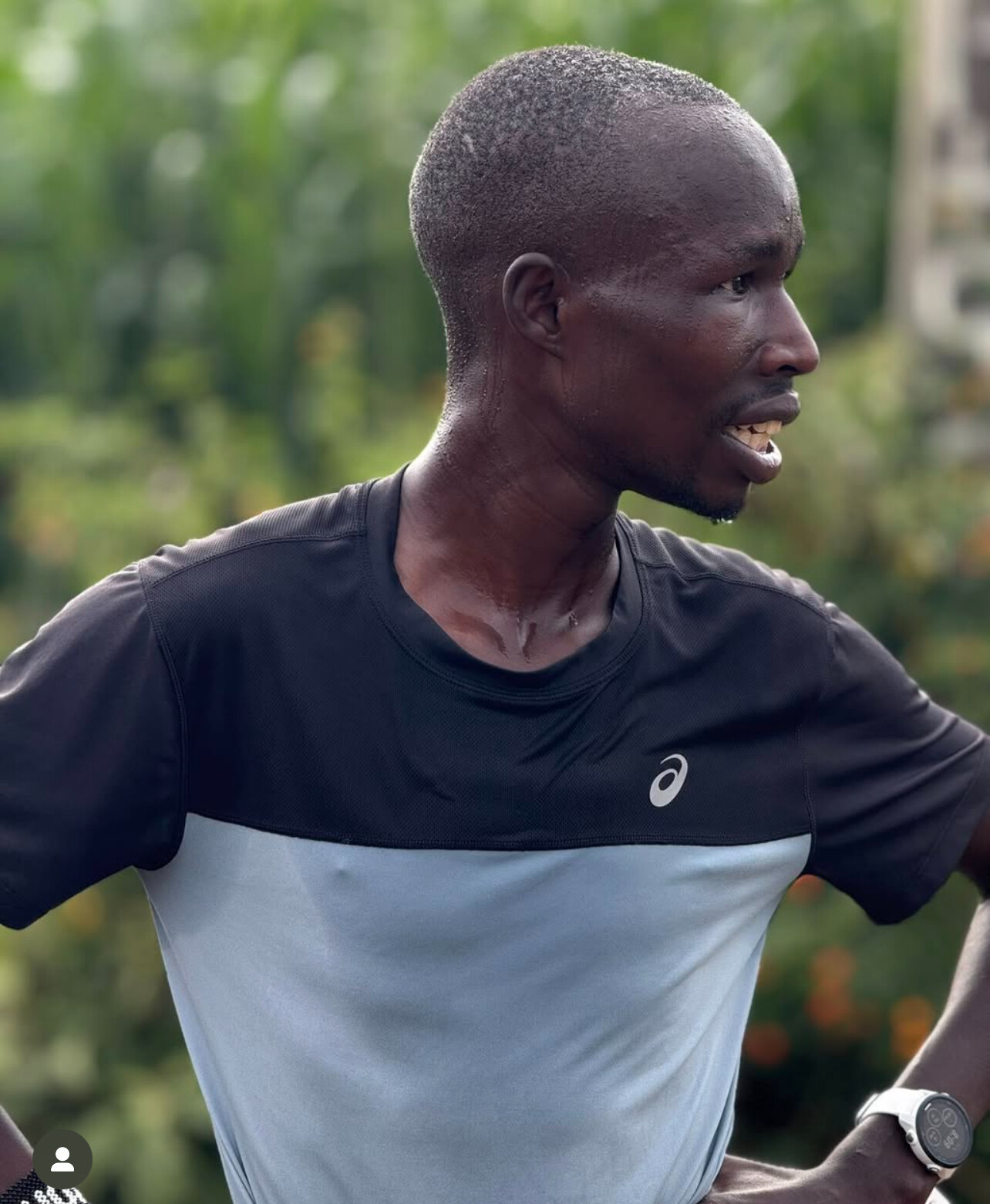
His 2025 season has already been outstanding. In April, Korir won the Boston Marathon in 2:04:45, becoming, alongside his brother Wesley Korir (the 2012 Boston champion), the first siblings ever to claim Boston titles. In July, he added another victory at the Boilermaker 15K, clocking 42:44 ahead of a strong field that included Hillary Kipkoech and Abbabiya Simbassa.
In last year’s Chicago Marathon, Korir set his current personal best of 2:02:44, leading Ethiopia’s Mohamed Esa (2:04:39) and Kenya’s Amos Kipruto (2:04:50) to the podium. This year, he expects even fiercer competition but remains focused on the ultimate goal.
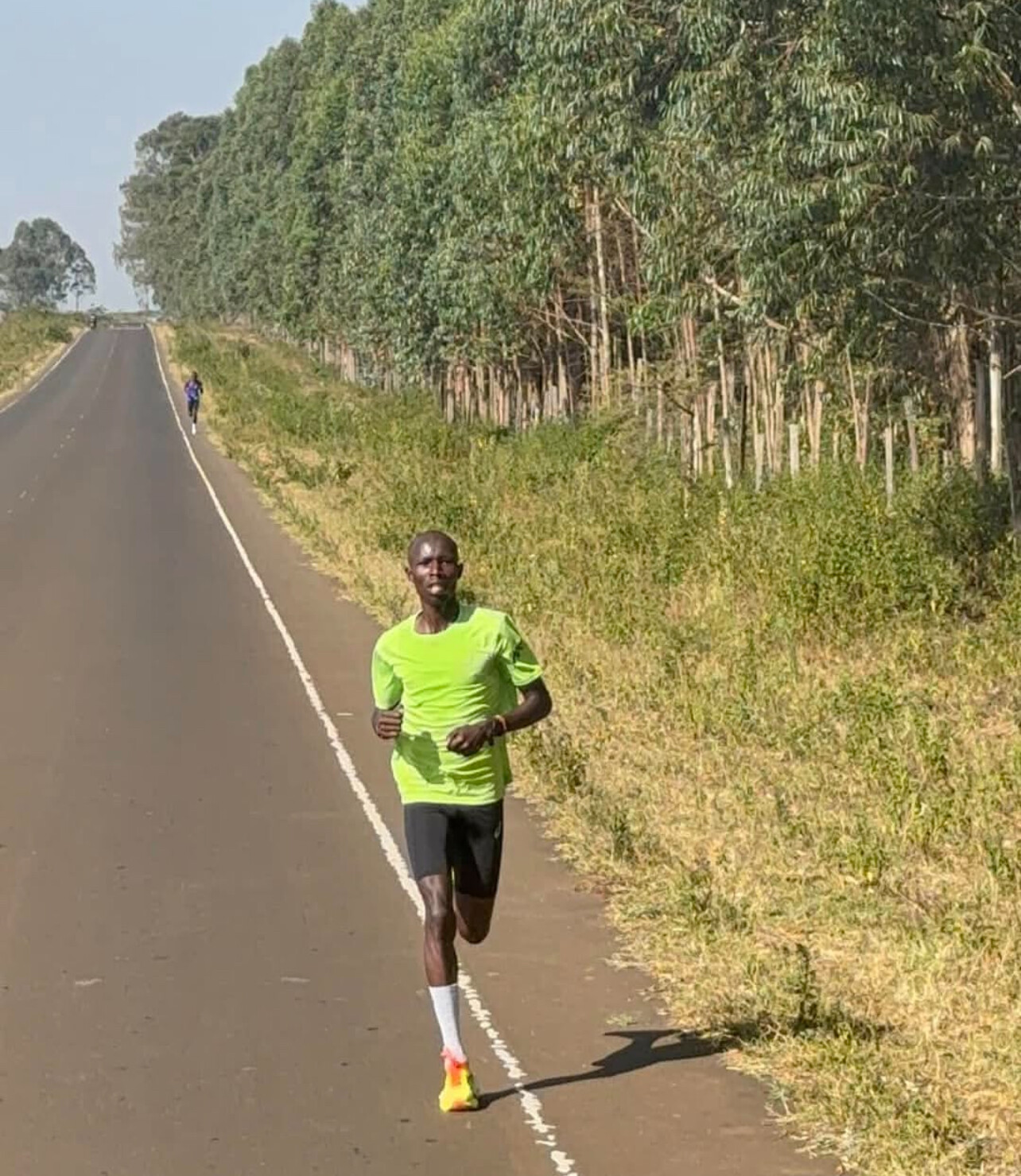
“All eyes will be on me because I am the defending champion,” Korir said. “My coach and my brother keep telling me I can do it, and I believe I can.”
If Korir succeeds, he will not only defend his Chicago crown but also become the first man in history to run under 2:00:30 in a record-eligible marathon.
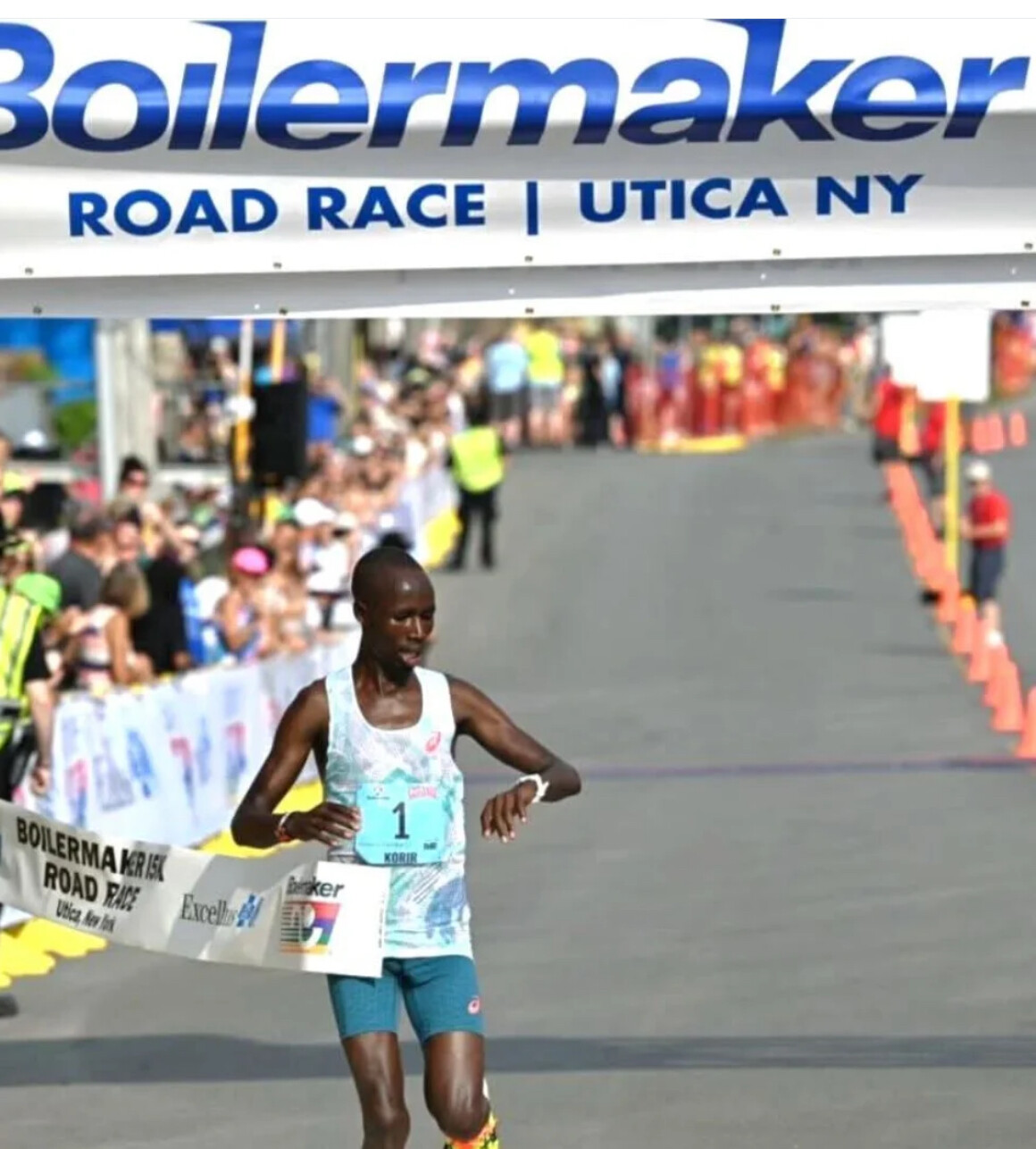
by Boris Baron
Login to leave a comment
The Champion Who Was Shoved Off Course but Won Our Hearts
He Lost Gold but Won the World’s Respect
In one of the most unforgettable moments in Olympic history, Brazil’s Vanderlei de Lima was on the brink of glory at the 2004 Athens Olympic Marathon—until a shocking intrusion changed everything.
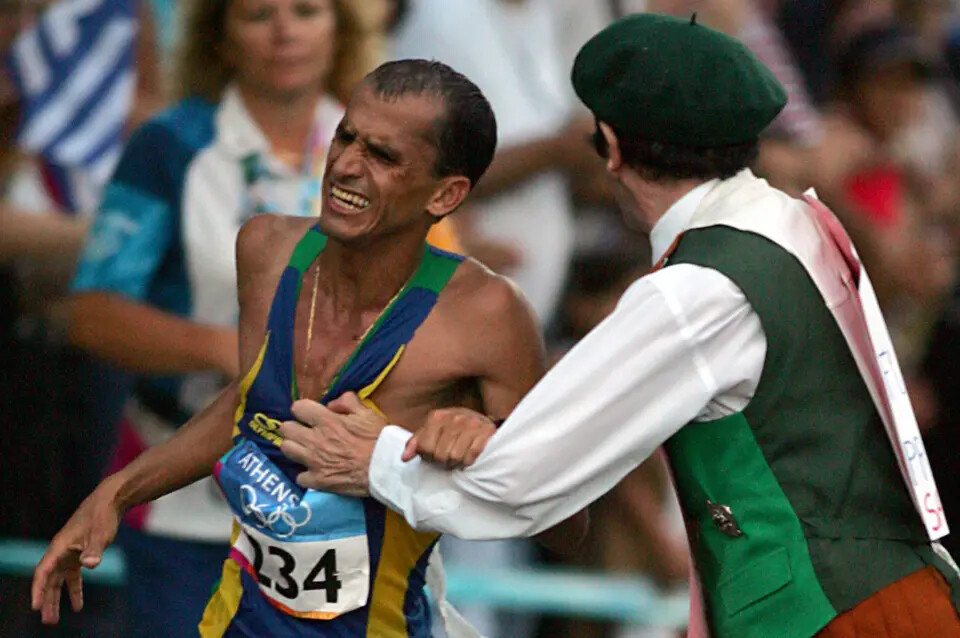
With just over four miles to go and a commanding 25-second lead, de Lima appeared destined to capture Brazil’s first-ever Olympic gold in the marathon. Then, without warning, a man leapt from the crowd and forcefully pushed him off the course.
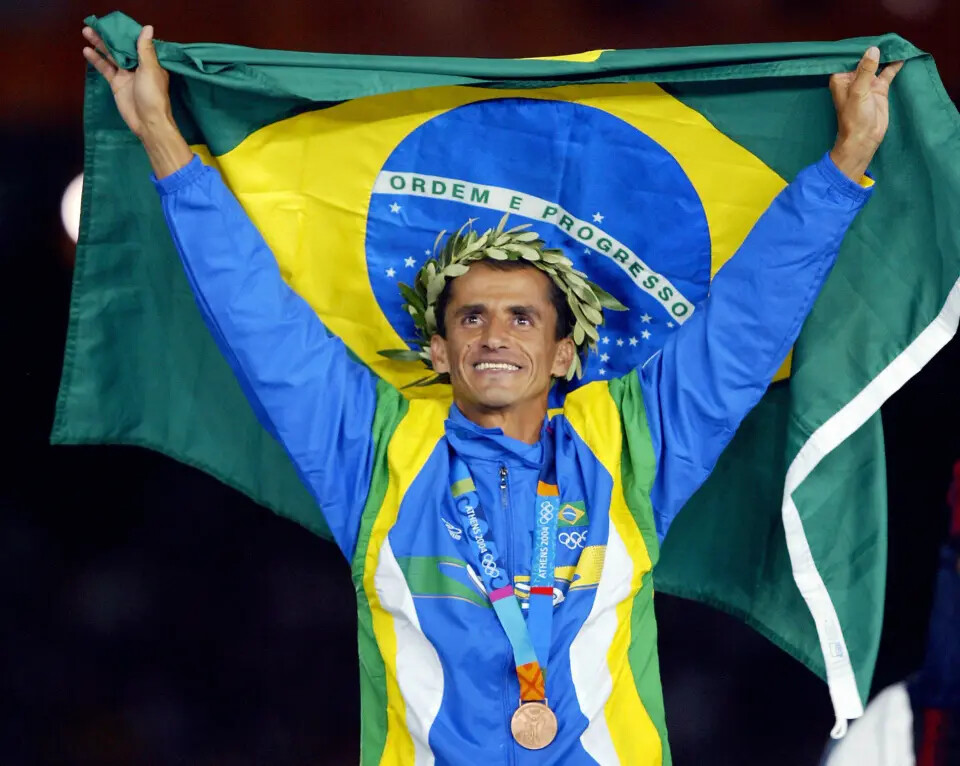
The assailant was later identified as Neil Horan, a former Irish priest already notorious for disrupting the 2003 British Grand Prix. Though a bystander quickly intervened to help free de Lima, the damage was done—his rhythm was broken, precious seconds were lost, and his chance at gold began slipping away.
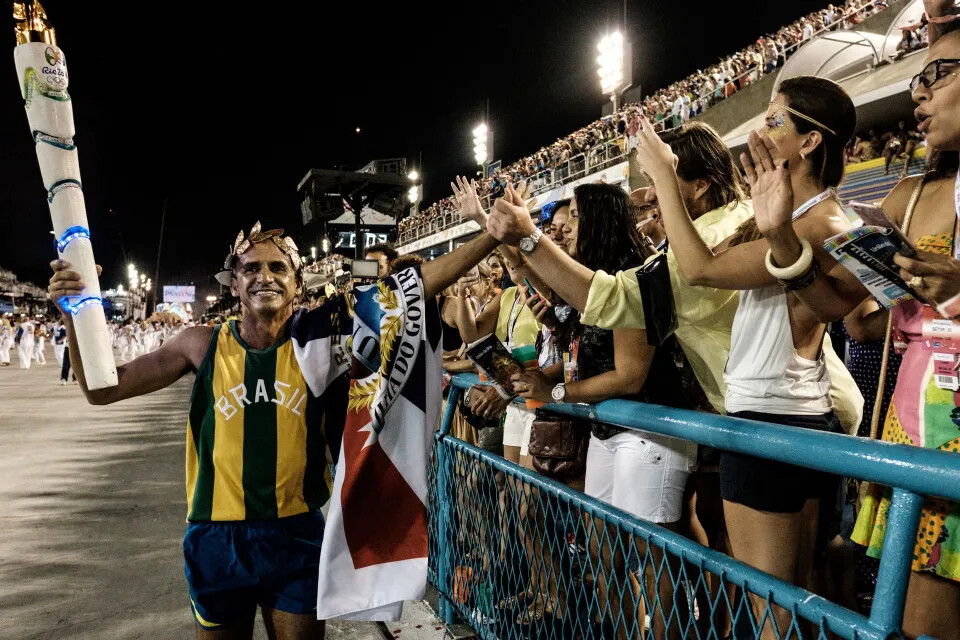
Still, de Lima didn’t stop.
He returned to the course, running with remarkable resolve and even smiling and waving to the crowd as he entered the stadium. He crossed the line in third place, claiming the bronze medal—but earning something even greater in the eyes of the world.
His grace under pressure became a symbol of true sportsmanship. For his extraordinary display of dignity, Vanderlei de Lima was later awarded the Pierre de Coubertin Medal, a rare honor given by the International Olympic Committee to those who embody the Olympic spirit.
Though he was robbed of a gold medal, de Lima’s legacy endures as a timeless reminder: sometimes the greatest victories are not measured by the color of the medal, but by the strength of the human spirit.
What Happened to Neil Horan?
The man who infamously shoved Vanderlei de Lima off course was identified as Neil Horan, a former Irish priest with a history of disrupting major sporting events. He had previously interfered with the 2003 British Grand Prix and was known for spreading extreme religious views.
For the Athens incident, Horan was arrested and later convicted, receiving a 12-month suspended sentence from Greek authorities. Though he didn’t serve jail time, he was globally condemned for robbing de Lima of a likely gold medal. Horan was defrocked by the Catholic Church in 2005 and has since appeared sporadically in the media, showing little remorse for his actions.
Vanderlei de Lima, meanwhile, earned something far more enduring: the world’s respect.
by Boris Baron
Login to leave a comment
Kirsty Coventry Becomes First Female IOC President in a Controversial Election
In a historic and contentious election, Kirsty Coventry has been elected as the first female and first African president of the International Olympic Committee (IOC). The election, held in Costa Navarino, Greece, saw Coventry secure 49 out of 97 votes in the first round, defeating other high-profile candidates, including Juan Antonio Samaranch Jr. and Lord Sebastian Coe.
Her victory marks a significant milestone in the IOC’s 131-year history, but it has not come without controversy. While she is celebrated as one of the greatest Olympic athletes from Africa, her political ties to Zimbabwe have raised concerns about how she will lead the Olympic movement into the future.
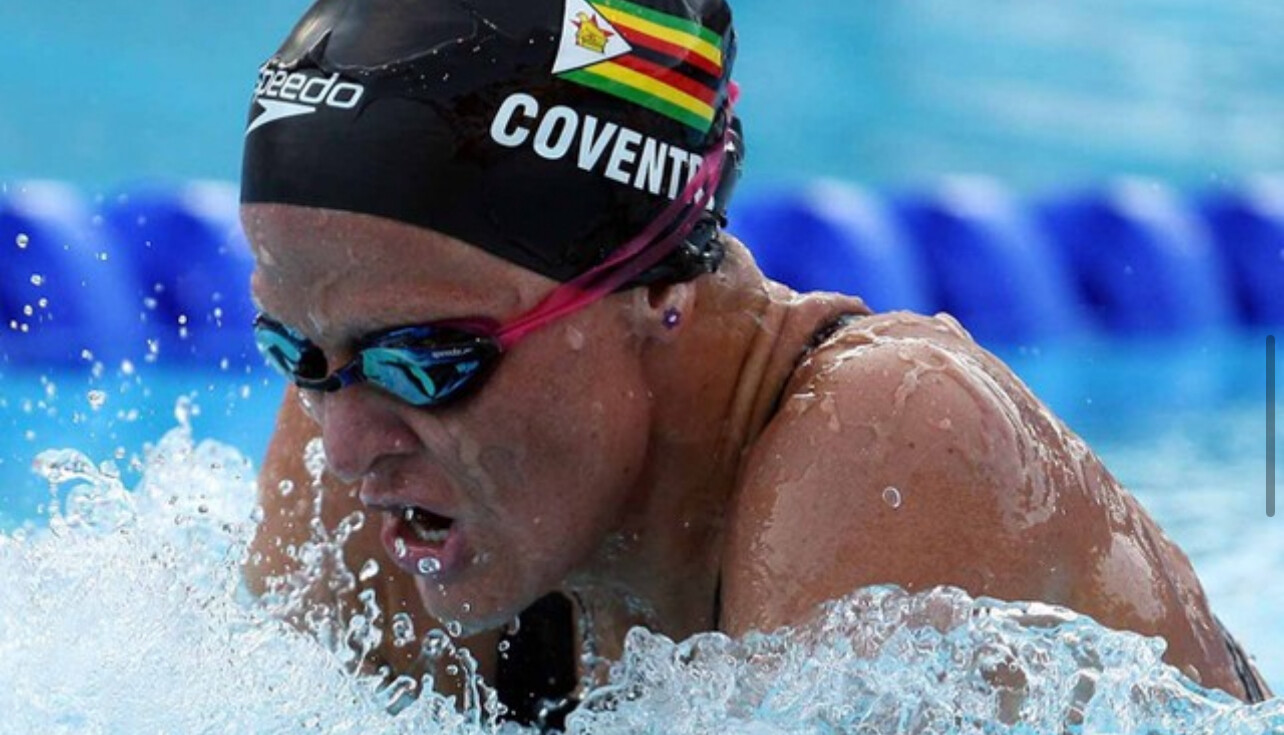
Kirsty Coventry: An Olympic Champion Turned Global Sports Leader
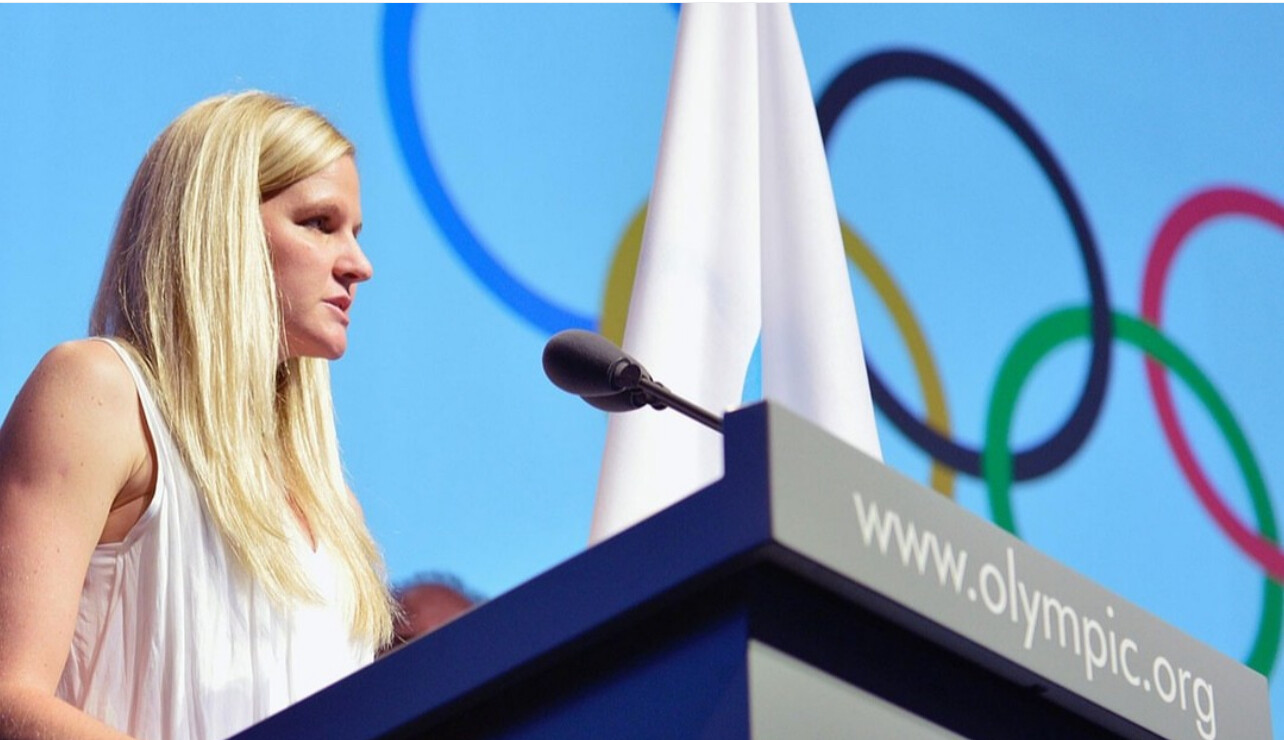
Before stepping into sports administration, Kirsty Coventry was a dominant force in competitive swimming. Born in Zimbabwe, she became one of the greatest backstrokers of all time, earning seven Olympic medals across five Olympic Games.

Her breakthrough moment came at the 2004 Athens Olympics, where she won gold in the 200m backstroke, along with silver and bronze medals in other events. Four years later, at the 2008 Beijing Olympics, she added four more medals to her collection, solidifying her reputation as Africa’s most decorated Olympian.
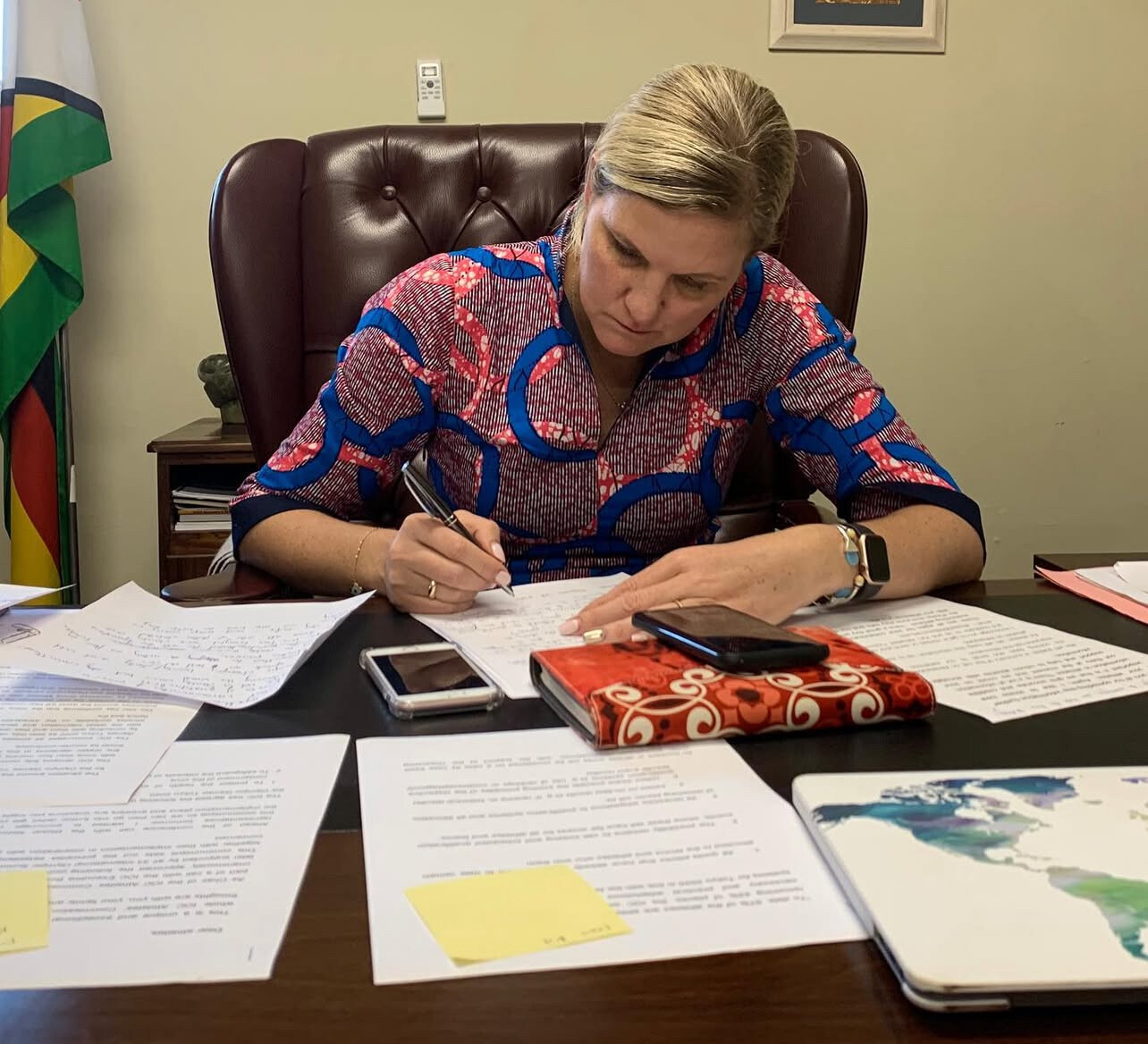
Beyond her success in the pool, Coventry set multiple world records, won two World Championship titles, and became a role model for young athletes across the African continent. After retiring from competition, she transitioned into sports governance, serving as Chair of the IOC Athletes’ Commission and playing a key role in Olympic policy-making.
However, her political involvement in Zimbabwe—where she served as Minister of Youth, Sport, Arts, and Recreation—has generated criticism. Some view her efforts as beneficial for youth sports development, while others argue that her association with a government accused of human rights violations could impact the IOC’s credibility.
Unexpected Results and IOC Power Struggles
Coventry’s election defied many expectations. Sebastian Coe, the two-time Olympic gold medalistand president of World Athletics, was widely seen as a frontrunner. However, he received only eight votes, a shocking defeat that underscores the complex political dynamics within the IOC.
Coe’s supporters believed his leadership in global athletics and Olympic advocacy would make him the ideal candidate, but the vote suggests that power within the IOC is shifting in new directions. Coventry’s victory signals a desire for a fresh perspective, though questions remain about how she will navigate the challenges ahead.
Challenges Ahead for Coventry’s Leadership
As she prepares to take office on June 23, 2025, Coventry faces several pressing issues that will shape her presidency:
• Financial and Sponsorship Issues – The IOC’s business model is under scrutiny, with shifting audience engagement and declining sponsorship deals requiring new revenue strategies.
• Doping and Fair Play – Strengthening anti-doping policies and restoring trust in fair competition remain major concerns.
• Inclusion and Political Tensions – The debate over transgender athletes, athlete activism, and geopolitical tensions around upcoming Games demand careful navigation.
• Upcoming Olympic Games – With the 2028 Los Angeles Olympics and 2032 Brisbane Games ahead, Coventry must oversee event planning, sustainability efforts, and global participation.
The Future of the IOC Under Coventry
Kirsty Coventry’s election is both a groundbreaking achievement and a contentious decision. As the first woman and first African to lead the world’s most powerful sports organization, she carries the weight of expectation, scrutiny, and Olympic tradition.
Will she modernize the Olympic movement and steer it into a new era of inclusivity and transparency? Or will her political controversies and IOC power struggles overshadow her leadership?
One thing is certain—Coventry’s presidency will shape the future of the Olympic Games in ways never seen before.
For more updates on this developing story and the world of Olympic sports, stay tuned to My Best Runs.
by Boris Baron
Login to leave a comment
LA 2028 Summer Olympics Games
Discover how the Los Angeles Candidature Committee describes their vision for the Games and the legacy they plan to leave behind: For centuries, people have been following the sun to California – to a coastal paradise of beautiful weather, inspiring landscapes and an ocean of possibilities. Since it was first settled, LA – the City of Angels – has built...
more...Sebastian Coe Advocates for Olympic Rescheduling and Tackles Online Abuse
In light of escalating global temperatures, Lord Sebastian Coe, President of World Athletics and a prominent candidate for the International Olympic Committee (IOC) presidency, has proposed a reevaluation of the traditional summer scheduling of the Olympic Games.
He suggests that, by 2040, it may be necessary to adjust the global sports calendar to accommodate these climatic shifts. Drawing parallels to events like the 2022 FIFA World Cup in Qatar, which was held successfully in November and December to avoid extreme heat, Coe emphasizes the need for flexibility in scheduling major sporting events. He questions the feasibility of hosting events like the World Athletics Championships in cities such as Budapest or Paris during August, given the rising temperatures.
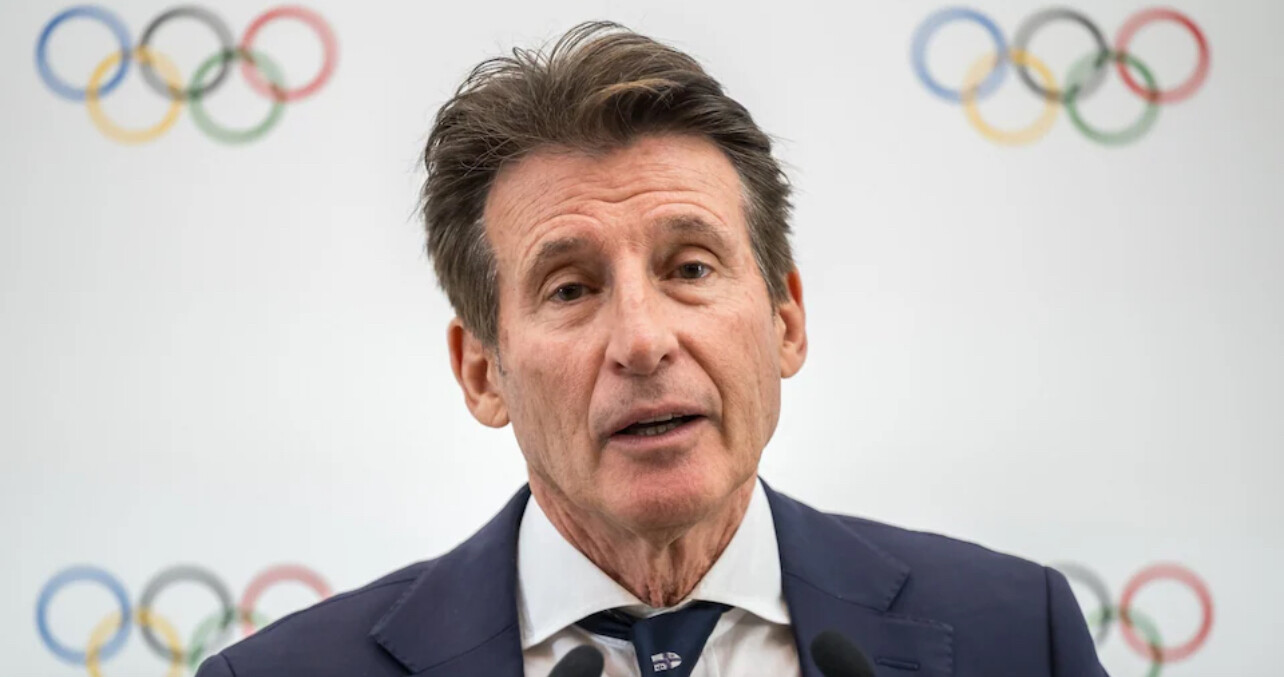
In addition to climate concerns, Coe has expressed a strong commitment to combating online abuse directed at athletes. He has labeled the perpetrators of such abuse as “pond life” and underscored the necessity for more robust measures to protect athletes, especially women, from harassment on social media platforms.

Highlighting incidents involving athletes like Emma Raducanu and Eilish McColgan, Coe has pledged to engage with tech industry leaders, including Elon Musk and Mark Zuckerberg, to enhance safeguards against online abuse. He also proposes the establishment of a task force dedicated to protecting female athletes from gender-based violence.

These initiatives reflect Coe’s broader vision for the future of global sports, emphasizing adaptability in the face of environmental challenges and a proactive stance against the misuse of digital platforms to harm athletes.

Upcoming Summer Olympics
• 2028: Los Angeles, United States, from July 14 to July 30, 2028.
• 2032: Brisbane, Australia, from July 23 to August 8, 2032.
These dates and locations have been confirmed by the International Olympic Committee.
Additionally, Coe has proposed bold ideas, such as potentially moving some indoor sports from the Summer Olympics to the Winter Games, to modernize the event and address challenges posed by climate change.
While these proposals are not directed specifically at the Los Angeles 2028 or Brisbane 2032 Games, they reflect Coe’s broader vision for the future of the Olympics.
Login to leave a comment
Doping Dilemma: How WADA's Policies Are Failing Our Sport
I am alarmed by how the World Anti-Doping Agency (WADA) is policing our sport. It's disheartening to see athletes win races only to be stripped of their titles months later due to delayed doping allegations. This approach undermines the integrity of athletics and, in the long run, does more harm than good.
Having dedicated my life to running—I ran my first mile on February 16, 1962, and I discovered my passion for our sport after clocking a 2:08.5 in a 880-yard race JUne 1, 1963—I've witnessed the sport's evolution firsthand. As the founder and publisher of Runner’s World for 18 years and, since 2007, the editor and publisher of My Best Runs, I am concerned about the professional side of athletics.
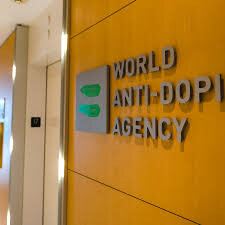
The Flaws in WADA's Zero-Tolerance Policy
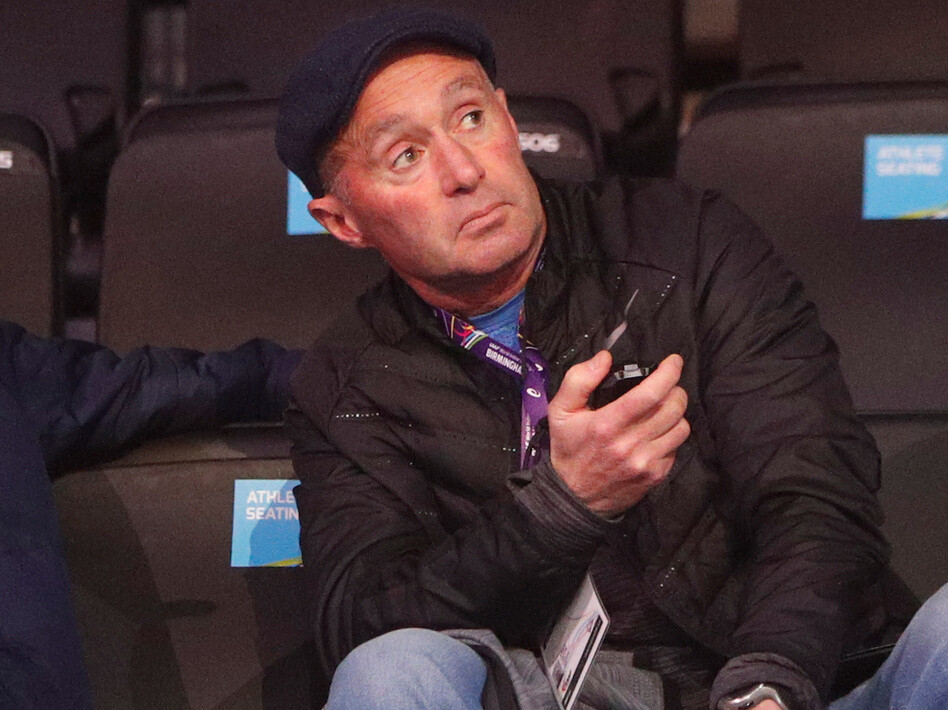
WADA's strict liability standard holds athletes accountable for any prohibited substance in their system, regardless of intent. This has led to controversial sanctions, such as the four-year ban of American runner Shelby Houlihan. She tested positive for the steroid nandrolone, which she attributed to consuming a pork burrito. Despite her defense, the ban was upheld, raising questions about the fairness of such rigid policies.
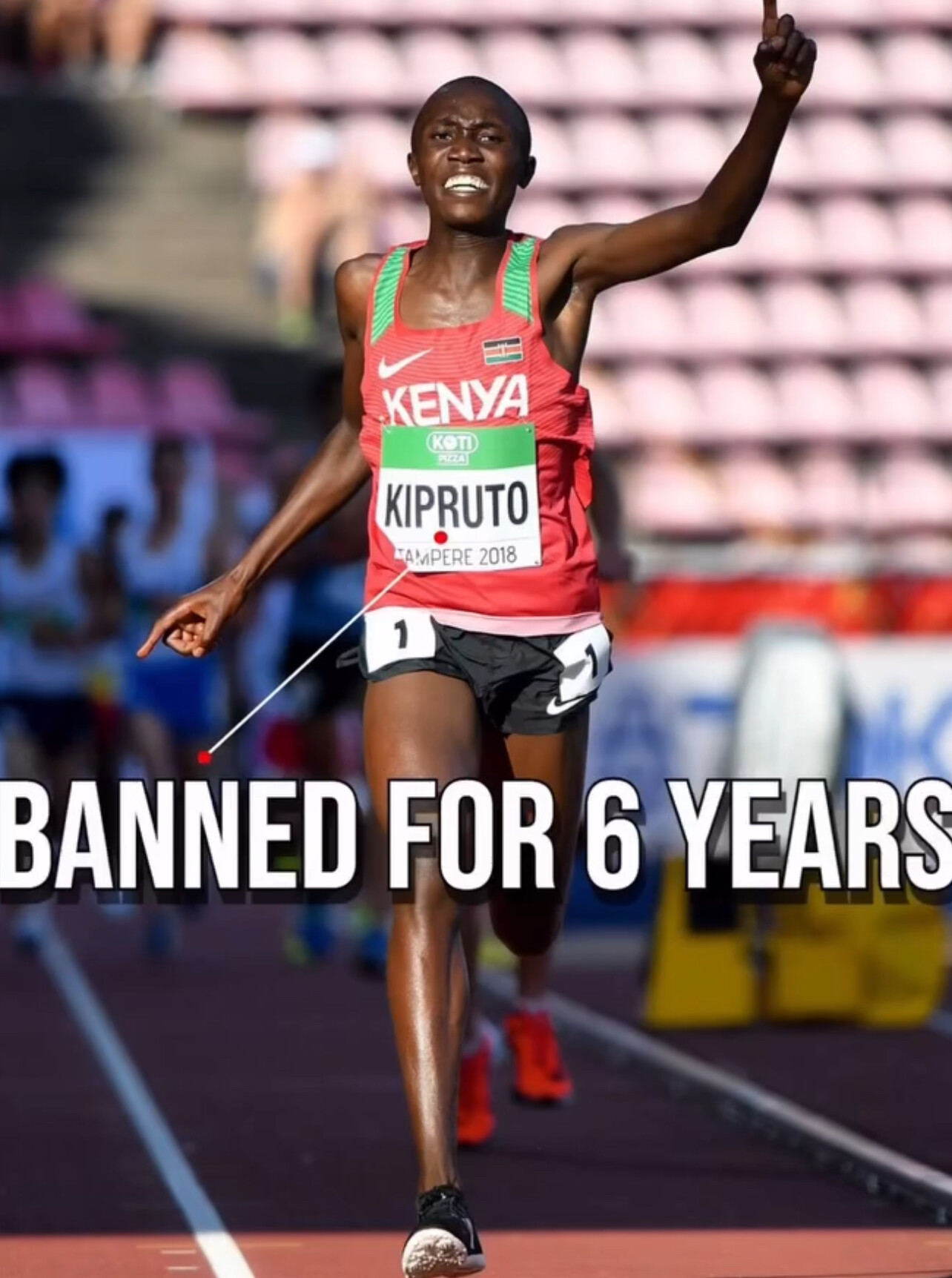
Overhauling the Banned Substances List
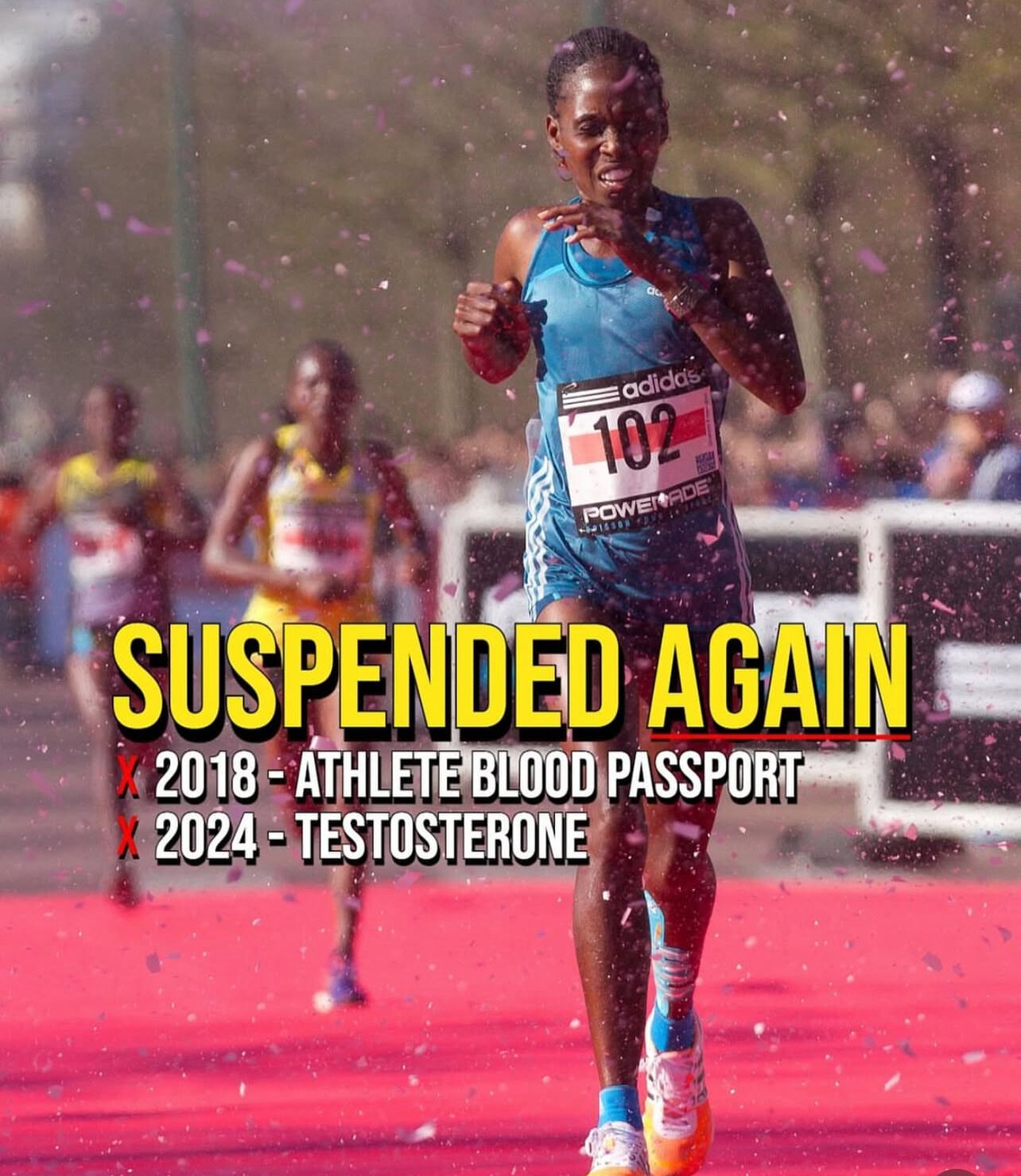
The extensive list of prohibited substances maintained by WADA includes compounds with minimal or no performance-enhancing effects. By focusing on substances with proven performance benefits, we can prevent athletes from being unjustly penalized for trace amounts of inconsequential substances.
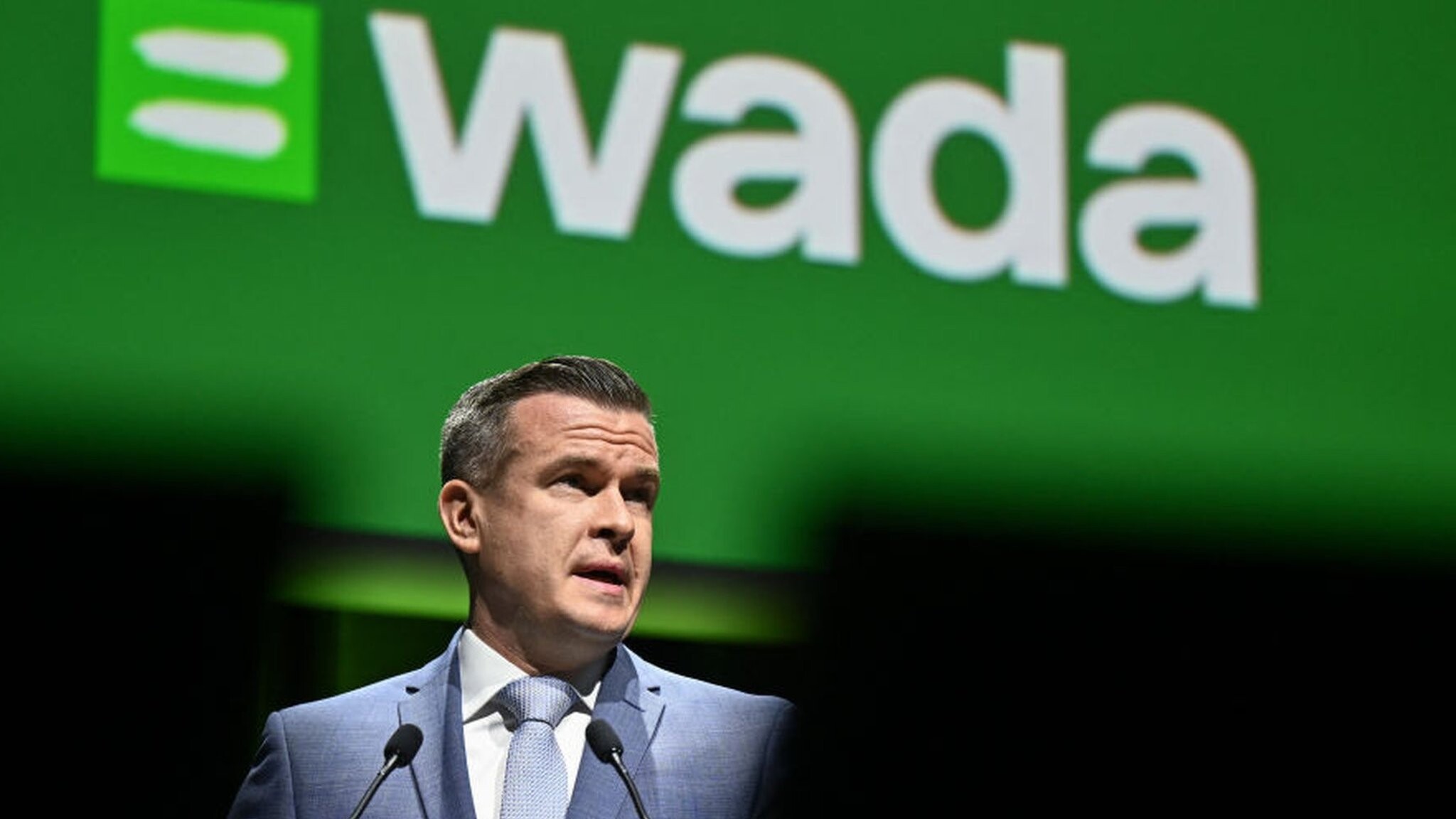
The Problem with Retroactive Disqualifications
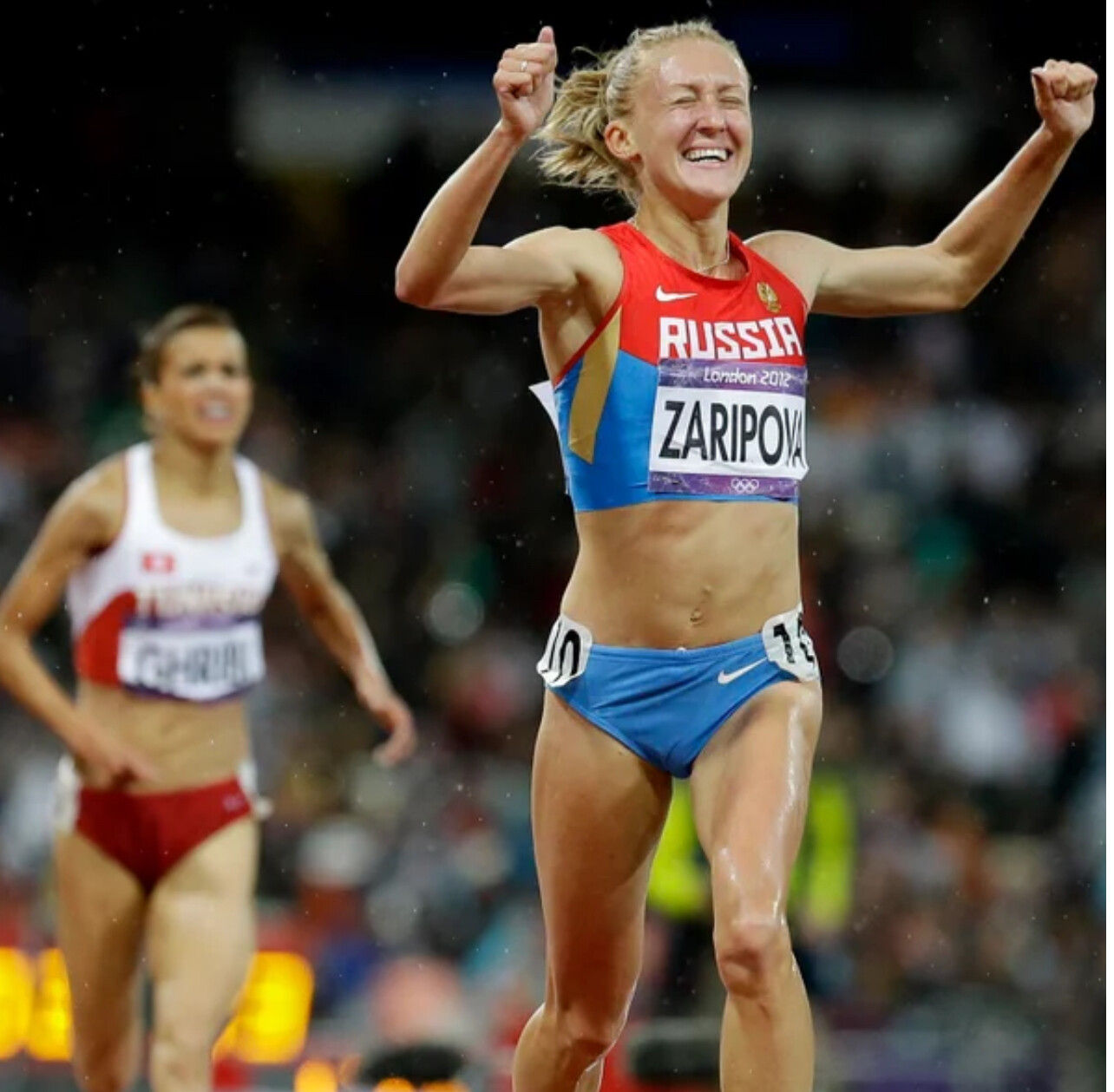
Delayed disqualifications due to retroactive positive tests cause significant disruptions. Athletes are stripped of titles months or even years after competitions, leading to uncertainty and diminished trust in the sport. Investing in faster, more sensitive testing methods is crucial to detect violations promptly, ensuring that competition results are reliable and fair.
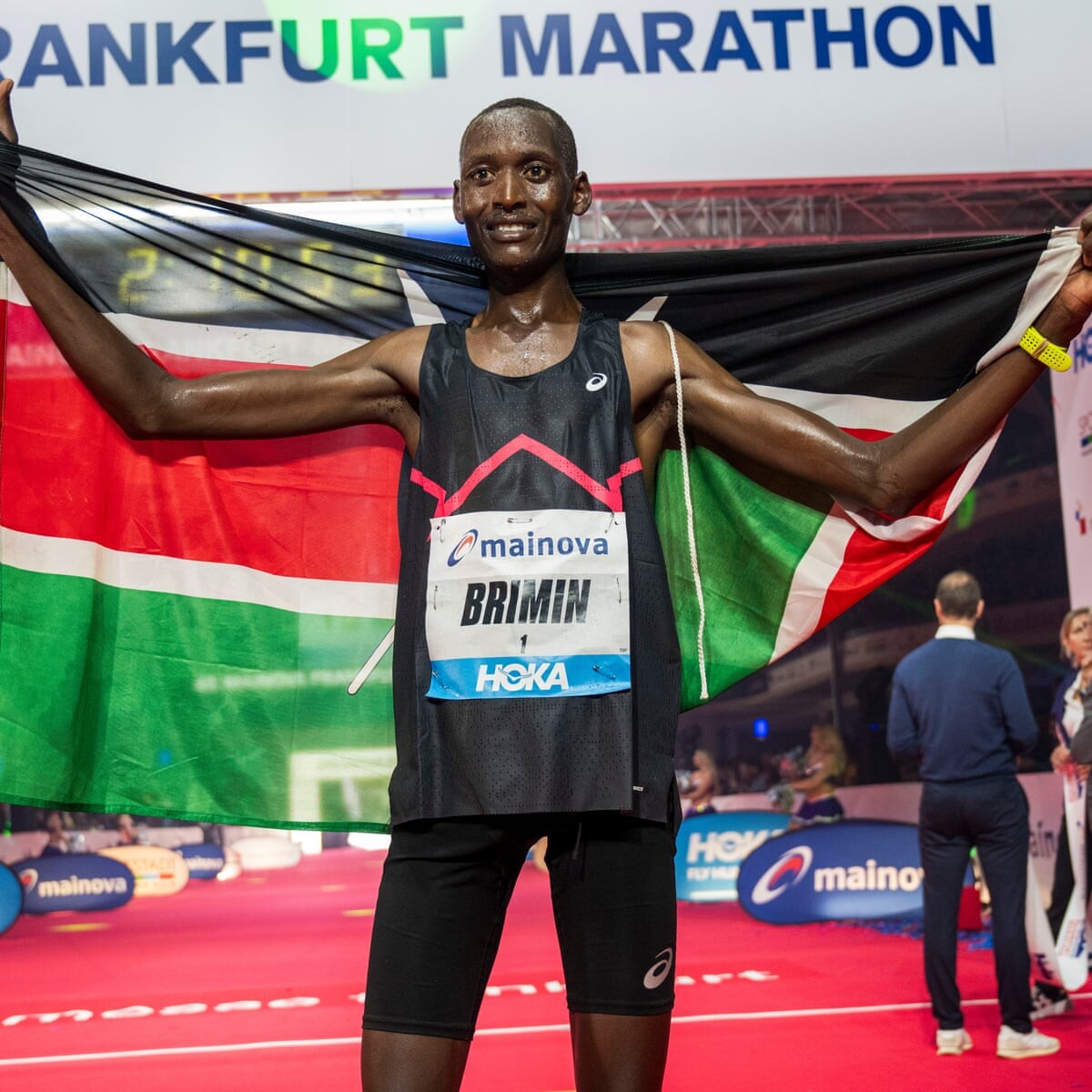
Rethinking the "Whereabouts" Requirement
WADA's "whereabouts" rule mandates that athletes provide their location for one hour each day to facilitate out-of-competition testing. This constant monitoring infringes on athletes' privacy rights and imposes an unreasonable burden. Reevaluating this policy could help balance effective anti-doping measures with respect for personal freedoms.
Understanding Blood Doping and Its Implications
Blood doping, which involves increasing red blood cells to enhance performance, poses significant health risks, including blood clots, stroke, and heart attack. While it's linked to deaths in sports like cycling, there is no documented case of a runner dying directly from blood doping.
Interestingly, many doping violations involve substances like erythropoietin (EPO), which, despite health risks, haven't been directly linked to fatalities among runners. In contrast, alcohol—a legal substance—is responsible for approximately 3 million deaths worldwide annually. This disparity raises questions about the consistency of current substance regulations in sports.
The Business of Anti-Doping
Established in 1999 with an initial operating income of USD 15.5 million, WADA's budget has grown significantly, reaching USD 46 million in 2022. This increase reflects the expanding scope of WADA's activities, including research, education, and compliance monitoring.
Funding is primarily sourced from public authorities and the sports movement, with the International Olympic Committee (IOC) being a major contributor. Notably, in 2024, the United States withheld over USD 3.6 million—about 6% of WADA's annual budget—due to disputes over the agency's handling of doping cases.
EPO's Prevalence in Doping Cases
Erythropoietin (EPO) has a history of abuse in endurance sports due to its performance-enhancing capabilities. For example, Kenyan marathon runner Brimin Kipkorir was provisionally suspended in February 2025 after testing positive for EPO and Furosemide. This suspension adds to a series of high-profile doping cases affecting marathon running, especially among Kenyan athletes.
Adapting Governance and Policies to Maintain Trust
High-profile doping scandals have exposed flaws in the governance of athletics. The case of coach Alberto Salazar illustrates the challenges in enforcing anti-doping regulations. Salazar, who led the Nike Oregon Project, was initially banned for four years in 2019 for multiple anti-doping rule violations, including trafficking testosterone and tampering with doping control processes.
In 2021, he received a lifetime ban for sexual and emotional misconduct. His athlete, Galen Rupp, never tested positive for banned substances, yet his reputation suffered due to his association with Salazar. This situation underscores the importance of independent and transparent governance in maintaining the sport's integrity.
The banned drug list
The World Anti-Doping Agency (WADA) maintains a comprehensive list of substances and methods prohibited in sports to ensure fair competition and athlete health. This list is updated annually and includes categories such as:
· Anabolic Agents: These substances, including anabolic-androgenic steroids, promote muscle growth and enhance performance.
· Peptide Hormones, Growth Factors, and Related Substances: Compounds like erythropoietin (EPO) and human growth hormone (hGH) that can increase red blood cell production or muscle mass.
· Beta-2 Agonists: Typically used for asthma, these can also have performance-enhancing effects when misused.
· Hormone and Metabolic Modulators: Substances that alter hormone functions, such as aromatase inhibitors and selective estrogen receptor modulators.
· Diuretics and Masking Agents: Used to conceal the presence of other prohibited substances or to rapidly lose weight.
· Stimulants: Compounds that increase alertness and reduce fatigue, including certain amphetamines.
· Narcotics: Pain-relieving substances that can impair performance and pose health risks.
· Cannabinoids: Including substances like tetrahydrocannabinol (THC), which can affect coordination and concentration.
· Glucocorticoids: Anti-inflammatory agents that, when misused, can have significant side effects.
Additionally, WADA prohibits certain methods, such as blood doping and gene doping, which can artificially enhance performance. It's important to note that while substances like alcohol are legal and widely consumed, they are not banned in most sports despite their potential health risks.
In contrast, substances like EPO, which have not been directly linked to fatalities among runners, are prohibited due to their performance-enhancing effects and potential health risks. This raises questions about the consistency and focus of current substance regulations in sports..
Regarding the percentage of doping violations involving EPO, specific statistics are not readily available. However, EPO has been a focal point in numerous high-profile doping cases, particularly in endurance sports. For detailed and up-to-date information, consulting WADA's official reports and statistics is recommended
Blood Doping Across Sports
Blood doping is prohibited across various sports, particularly those requiring high endurance. The International Olympic Committee (IOC) banned blood doping in 1985, and since then, numerous sports organizations have implemented similar prohibitions. Cycling has been notably affected, with many major champions associated with or suspended for blood doping.
In conclusion, while the fight against doping is essential to maintain fairness in athletics, the current methods employed by WADA may be causing more harm than good. It's imperative to develop more nuanced, fair, and effective anti-doping policies that protect both the integrity of the sport and the rights of its athletes.
by Bob Anderson
Login to leave a comment
World Athletics president pushing cross country for 2030 Olympics
It’s no secret that World Athletics president Seb Coe has ambitions to take over the International Olympic Committee (IOC) president position in the organization’s 2025 election. He looks to succeed Thomas Bach, who has served as president of the IOC for 12 years. Coe’s presidential manifesto pledges a clean and fair Olympics, and potentially the addition of some traditional summer and fall sports to the Winter program—including cross country.
During Coe’s year-end meeting with the media, he alluded to the need for the Winter Olympics to become “more accessible and open to new ideas.” The highest participation for the Winter Games was 93 countries at the 2018 Games in PyeongChang, South Korea, whereas the Paris 2024 Summer Games saw athletes from over 200 nations.
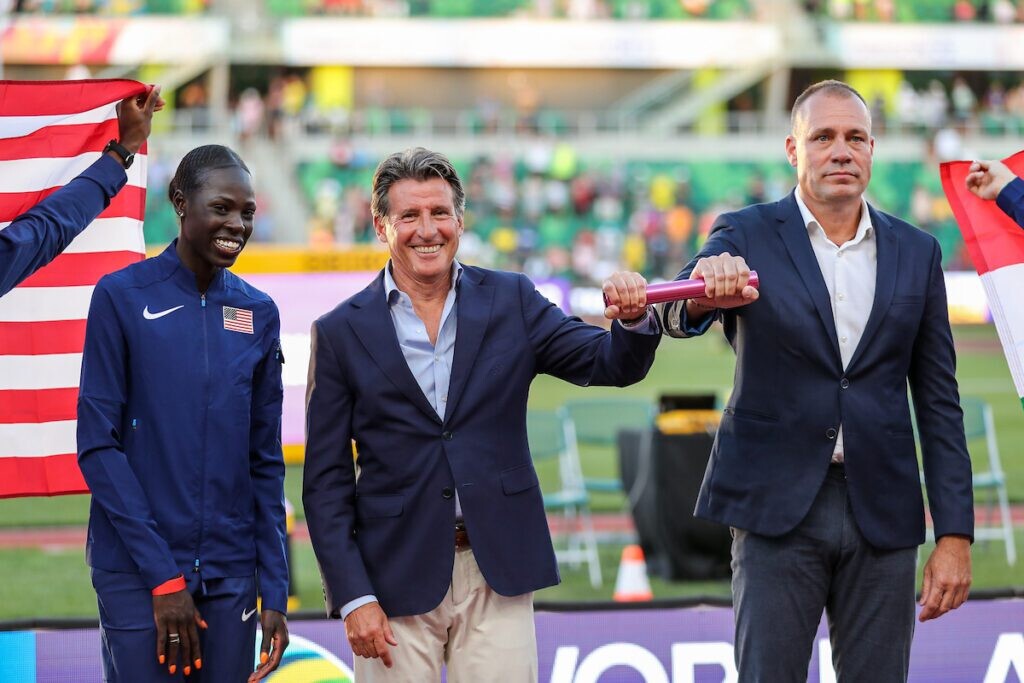
To expand the global audience, Coe believes the addition of fall or indoor sports into the Winter program could attract athletes and viewers from regions of the world that might not have snow. Cross country (running) and cyclo-cross (cycling) are at the forefront of this push, offering the opportunity to expand the Winter Games without straying too far from its profile or mission.
Cross country has faltered on the World Athletics calendar since the pandemic. The 2023 championships held in Bathurst, Australia, were too late in the season (February, two months after the cross-country season), which made it a lengthy commitment of time and travel for any athlete. The 2024 meet, originally scheduled for Croatia on Feb. 10-11, was reassigned to Serbia on March 30 when it emerged that Croatia was not ready to host. Although Serbia did all it could on six months’ notice, the event was heavily criticized for its course, spectator-friendly experience, and timing, as it was held (again) well after the cross-country season.
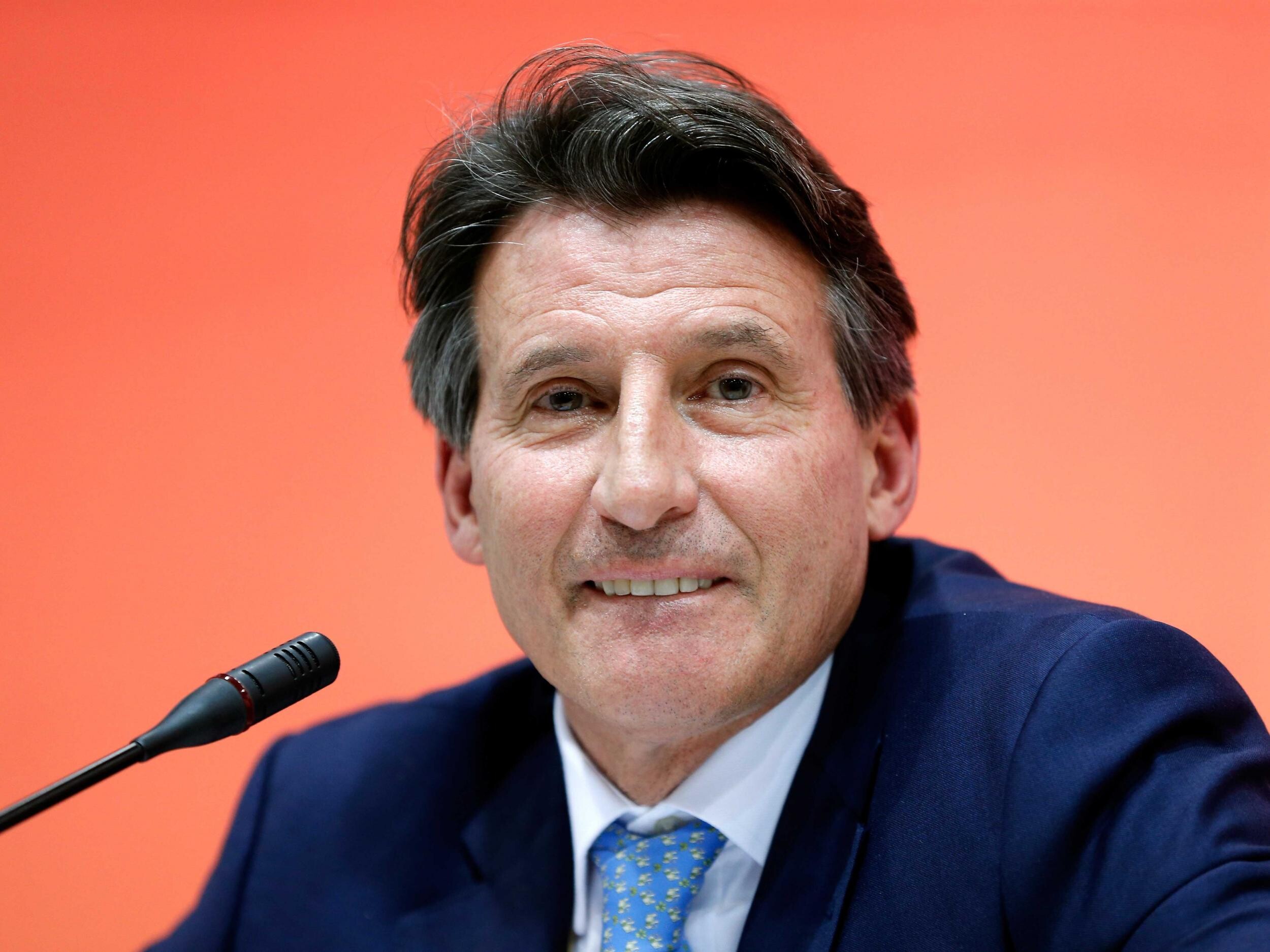
Coe has made it clear, on multiple occasions, that he believes there is a place for cross country in the professional running calendar, but there needs to be a way to make it more attractive to fans. “I’m a great adherent of cross country, and I think it’s a really important part of the endurance paradigm,” said Coe. “But it needs help… it needs space.”
The program for the 2026 Winter Olympics in Milan-Cortina D’Ampezzo, Italy is already set, but Coe is targeting the inclusion of the two sports by the 2030 and 2034 Olympics, which were awarded to the French Alps and Salt Lake City earlier this year.
If Coe is elected as the next president of the IOC in March 2025, he will vacate his current position as the head of World Athletics. The 68-year-old has served as World Athletics president since 2015 and was re-elected to a third (and final) four-year term in 2023. Coe was a two-time Olympic gold medalist during his own career and delivered the immensely popular London Olympics as chairman of the local organizing committee.
by Marley Dickinson
Login to leave a comment
'Something has to change'-American sprint legend on protecting women athletes in Kenya
An American sprint legend has raised concerns over women athletes' safety in Kenya, advocating for cultural change and systemic reform.
American sprint icon Allyson Felix has expressed deep concern over the safety of women athletes, describing violence against female competitors as a "real problem" that demands urgent attention.
Felix, the most decorated track and field athlete in history with 20 World Championship medals and 11 Olympic medals, spoke passionately about the challenges facing women in sports, particularly in light of recent tragedies in Kenya.
“There has to be a change in the culture. Something is not right, and it does make me worry,” Felix said during an interview with BBC 100 Women.
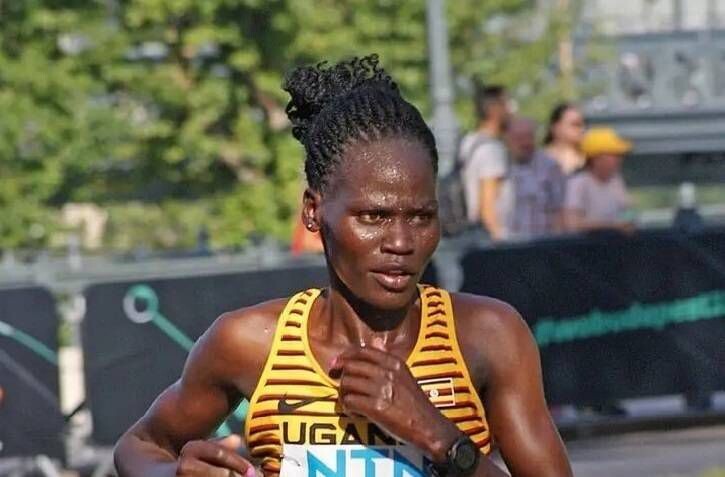
Her comments come few months of the devastating death of fellow Olympic athlete Rebecca Cheptegei, who was set on fire by her boyfriend earlier this year.
Cheptegei’s death marked the third killing of a female athlete in Kenya in the past three years.
Felix, recently elected to the International Olympic Committee (IOC) Athletes' Commission, pledged to prioritize addressing violence against women athletes.
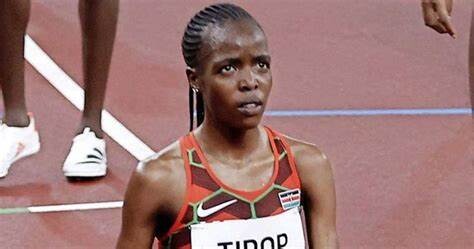
“The consequences have to be severe, but I think there has to be more than that,” she emphasized.
“I think we have to rally around the sports community and come together.”
The alarming trend of violence against female athletes in Kenya highlights the urgent need for change, Felix noted, adding her voice to growing calls for stricter penalties and cultural shifts to ensure women’s safety.
Her advocacy for women’s rights, both on and off the track, has become a defining feature of her legacy since retiring from competitive athletics in 2022.
Felix’s commitment to advocating for women goes beyond addressing violence.
She has been a trailblazer in fighting for maternal health rights and equal treatment for female athletes.
In 2018, after surviving a harrowing experience with severe pre-eclampsia during her pregnancy, Felix exposed systemic inequities when her former sponsor, Nike, threatened to slash her pay due to motherhood.
Her powerful op-ed in The New York Times led to groundbreaking changes in maternity protections for sponsored athletes, with Nike and other athletic apparel companies introducing policies to safeguard pay and bonuses for 18 months around pregnancy.
“I was terrified what the consequences would be,” Felix admitted.
“It just wasn’t in my nature. And so it was really difficult to be able to just be vulnerable.”
In Kenya, where cultural barriers and economic challenges compound the issues facing women athletes, Felix’s story resonates deeply.
Many athletes have struggled to find support systems to navigate the demands of sports and family life. Felix’s advocacy offers a blueprint for addressing these issues.
Through her leadership role with the IOC Athletes' Commission, Felix aims to amplify the voices of athletes and promote systemic reforms globally.
She has also launched Always Alpha, a management firm dedicated to women’s sports, to ensure female athletes receive tailored representation.
Felix’s advocacy extends to maternal health, particularly for Black women in the United States, where they are three times more likely to die from pregnancy-related causes than white women, according to the Centers for Disease Control and Prevention (CDC).
Her efforts recently secured a $20 million grant from Melinda Gates to improve maternal health outcomes, and she is exploring ways to extend her work internationally, including in Africa.
“I want [my children] to always know that you should have an impact, that you should help others, that you should stand up for what you believe in,” she concluded.
by Festus Chuma
Login to leave a comment
'My gold medal is peeling'- Tara Davis-Woodhall stuns fans as Paris Olympics medal quality concerns grow
Olympic and Paralympic medalists raise concerns about the rapid deterioration of their recently awarded medals, sparking widespread athlete frustration.
Olympic gold medalist Tara Davis-Woodhall has sparked a storm of controversy after revealing that her prized gold medal is peeling, joining the growing concerns of fellow athletes, including Paralympic bronze medalist Allison E. Lang.
What should be an enduring symbol of their achievements is, instead, tarnishing—both literally and symbolically—just weeks after the medals were awarded.
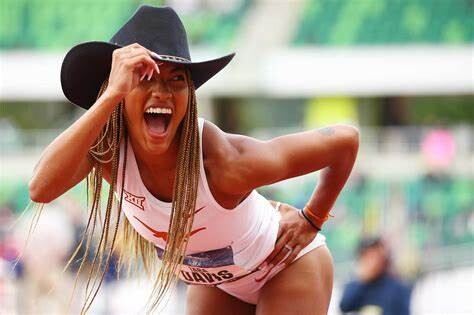
Davis-Woodhall’s revelation came after Lang, who secured bronze in the recent Paris Paralympic Games, expressed her frustration on Threads.
Lang shared a photo of her rapidly deteriorating medal, showing visible signs of oxidation and peeling.
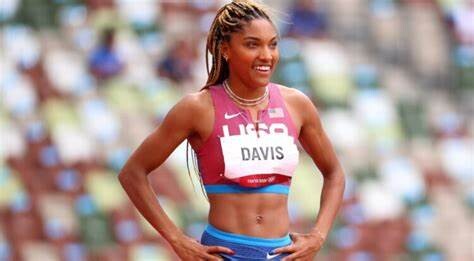
“I’m kind of disappointed. My Bronze Medal from Paris is already oxidizing and looks like it’s peeling/rusting like what’s going on @paralympics? I’ve only had it for less than a month!!” Lang posted.
Initially, some social media users dismissed Lang’s concerns, with one commenter stating, “Gold does not tarnish by the way,” but Davis-Woodhall quickly came to her defense with a stunning admission: “Actually… it does ? my gold medal is peeling.”
The long jump athlete’s candid response added fuel to the fire, shifting the spotlight from a single case to a potential widespread issue.
The idea that gold and bronze medals—symbols of lifelong dedication and effort—could deteriorate so quickly has shocked athletes and fans alike.
In the wake of the revelations, several athletes have started to inspect their own medals. Some, like Lang and Davis-Woodhall, are reporting similar problems, while others have claimed their medals remain in pristine condition.
This inconsistency has only deepened the mystery, raising questions about the materials and manufacturing processes behind these prestigious awards.
Tessa Axsom, the director of CNC at Fictive, a San Francisco-based company that specializes in custom mechanical parts, has weighed in on the issue.
According to Axsom, the problem may lie in the materials used in the medals, particularly copper oxidation.
“This year’s bronze medal is actually 97% copper, 2.5% zinc, and a half a percent tin,” Axsom explained as reported by The Sport Rush.
“Copper oxidation is natural, and it reaches stability when it forms oxides and salts. So, when you have sweaty athletes wearing these medals, getting salt on them, you’re going to get oxidation. The metal should have been protectively coated.”
Despite some media reports attributing the issue to the use of recycled metals—a sustainable practice championed by the Olympic and Paralympic committees—Axsom was quick to refute those claims.
She emphasized that using recycled metals is not the cause of the peeling and rusting. Rather, it is the lack of a proper protective coating that has left these medals vulnerable to the elements and wear.
As of now, neither the International Paralympic Committee (IPC) nor the International Olympic Committee (IOC) has issued an official statement addressing the situation.
However, whispers of cost-cutting measures have begun circulating, with speculation that the medals may have been produced under tighter budget constraints, potentially leading to the quality issues now being reported.
For athletes like Lang and Davis-Woodhall, the peeling medals are more than just a cosmetic problem. They represent the culmination of years of hard work, dedication, and perseverance.
Seeing their hard-earned medals deteriorate so quickly has left them and their fans questioning the lasting value of these symbols.
by Festus Chuma
Login to leave a comment
Paris bans plastic bottles from races
On Monday, Paris City Hall announced a ban on single-use plastic in all its races, including the Paris 20 km in mid-October and the Paris Marathon.
Didn't get to crisscross the Paris asphalt during the Paris 2024 Olympics' Marathon pour Tous ("Marathon for Everyone")? You'll have a chance to make up for it on October 13, with one of the many races taking place in the capital, the 46th annual Paris 20-kilometer race.
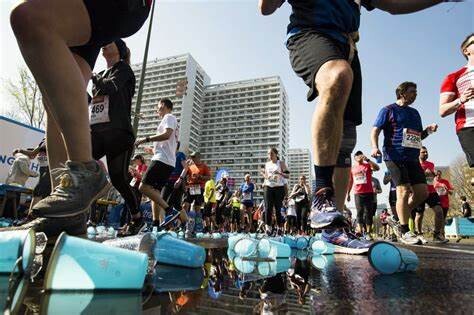
But don't forget your water bottle. At the press conference presenting the event on Monday, September 23, Pierre Rabadan, deputy mayor of Paris responsible for sports, confirmed that the ban on single-use plastic bottles would come into force.
"In Paris, you won't be able to organize a race if you use plastic bottles, it's as simple as that," assured the 44-year-old former rugby player, in remarks reported by sports paper L'Equipe. "It was one of the objectives of the Olympic legacy. We have to reduce the use of single-use plastic in our daily lives, and sport has to get on board. It's an evolution, and even a revolution for the organizers."
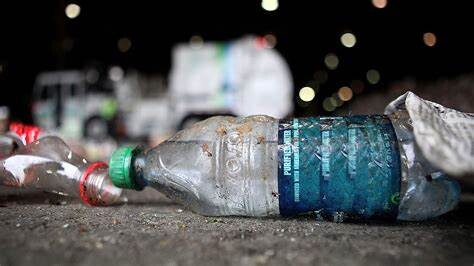
No fewer than 13 races will be held in Paris between now and December 31, for a total of some 50 events a year – including the Paris Marathon and Half Marathon, which attract around 50,000 runners. In these races, particularly the longer ones, over a million bottles are used each year to rehydrate runners – "who generally only take two or three sips before throwing it away.
I know because it's happened to me too when I used to take part in races," insisted Rabadan. So that's the end of the individual bottles cans, or cartons, which are to be replaced instead by reusable water bottles and reusable cups. The City of Paris has invested in a stock of 100,000 of these cups, which it can lend to race organizers.
Target 'zero single-use plastic' for the Olympics
During the Olympic marathon, however, competitors were granted a dispensation to continue using bottles – to avoid the risk of contamination, or even doping, according to the organizing committee – and elite athletes could continue to benefit from such policies. "It's all about the masses and all the other participants who aren't gambling their season on a race," said Paris's deputy mayor for sports.
Drawing inspiration from initiatives in Munich, Amsterdam and San Francisco, but above all from the refill London campaign (2018) across the Channel and the Brussels 20 km, the city has been working since 2019 to achieve the goal of "zero single-use plastic," for the hosting of the Olympic and Paralympic Games, which have claimed to be the greenest in history. This is a legacy that must live on.
Nevertheless, through the International Olympic Committee's (IOC) game of "world" sponsors, the American giant Coca-Cola – the world's leading "plastic polluter" according to the NGO Break Free from Plastic's 2023 ranking – was entrusted with the exclusive distribution of drinks at the 2024 Olympics. Numerous associations, including France Nature Environnement, Zero Waste France and No Plastic in My Sea, awarded the IOC partner the greenwashing medal.
The soda producer promoted its fountains, returnable cups and glass bottles. But over 40% of the total drinks distributed were poured into an eco-cup from... a plastic bottle. The kind of bottle that should no longer be seen at Parisian races.
by Sports department
Login to leave a comment
Les 20K de Paris
The 20 Kilometers de Paris (Paris 20 km) is an annual road running competition over 20 kilometers which takes place on the streets of Paris, France in October. First held in 1979, the race attracts top level international competitors and holds IAAF Bronze Label Road Race status. The competition was the idea of Michel Jazy, a French runner who was...
more...Košice Peace Marathon’s origins from Paris Olympic Marathon in 1924
The Košice Peace Marathon returns to Paris after 100 years
The inspiring and authentic story of the founder of the Košice Peace Marathon (KPM), Vojtech Bukovsky, has captivated the world. In the venue of the 2024 Olympic Games in Paris, the Maison Slovaque – the Slovak Olympic House – hosted the ceremonial presentation of Europe’s oldest marathon.
Today in the Slovak Olympic House, the organisers of the KPM, representatives of the Marathon Club, the Slovak Olympic and Sports Committee and the City of Košice presented the history of the race’s creation. The breathtakingly inspiring story of Vojtech Bukovsky was told through the premiere of a documentary film dedicated to the 100th anniversary of the founding of the Košice Marathon.
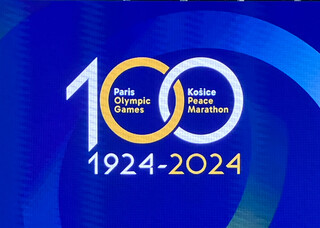
Among the invited guests were Mr. Christophe Najdovski, Vice Mayor of the City of Paris, Ms. Kirsty Coventry, Member of the Executive Committee of the International Olympic Committee and Minister of Sport of Zimbabwe, Mr. Dobromir Karamarinov, President of European Athletics, H.E. Ján Šoth, Ambassador of the Slovak Republic to France, and Mr. Jean-Michel Brun, Member of the Executive Board of the European Olympic Committee and Vice President of the French Olympic Committee.
“Over the weekend we will learn the names of the new Olympic winners in the marathon. We will pay tribute to them in the same way as Vojtech Bukovsky, the founder of the marathon in Košice, did here in Paris on 13 July 1924, when he stood up at the Colombes stadium to greet the Finnish runner Albin Stenroos and all his rivals in the finish line. 100 years have passed since then. We watch today’s battles under the Eiffel Tower with enthusiasm and are filled with pride that we can stand here and tell the story of the centenary of the marathon in Košice to the whole world. It is a story filled with courage, friendship, perseverance and the desire for peace and comfort. Vojtech Bukovsky was enchanted by the Paris Olympics 100 years ago and by the ideas of Baron Pierre de Coubertin. He said, among other things, that the most important thing in life is not to win, but to compete. And these words of his fully capture one of the basic philosophies of the modern marathon today. Let’s stay true to it,” said Branislav Koniar, Race Director of the Košice Peace Marathon.
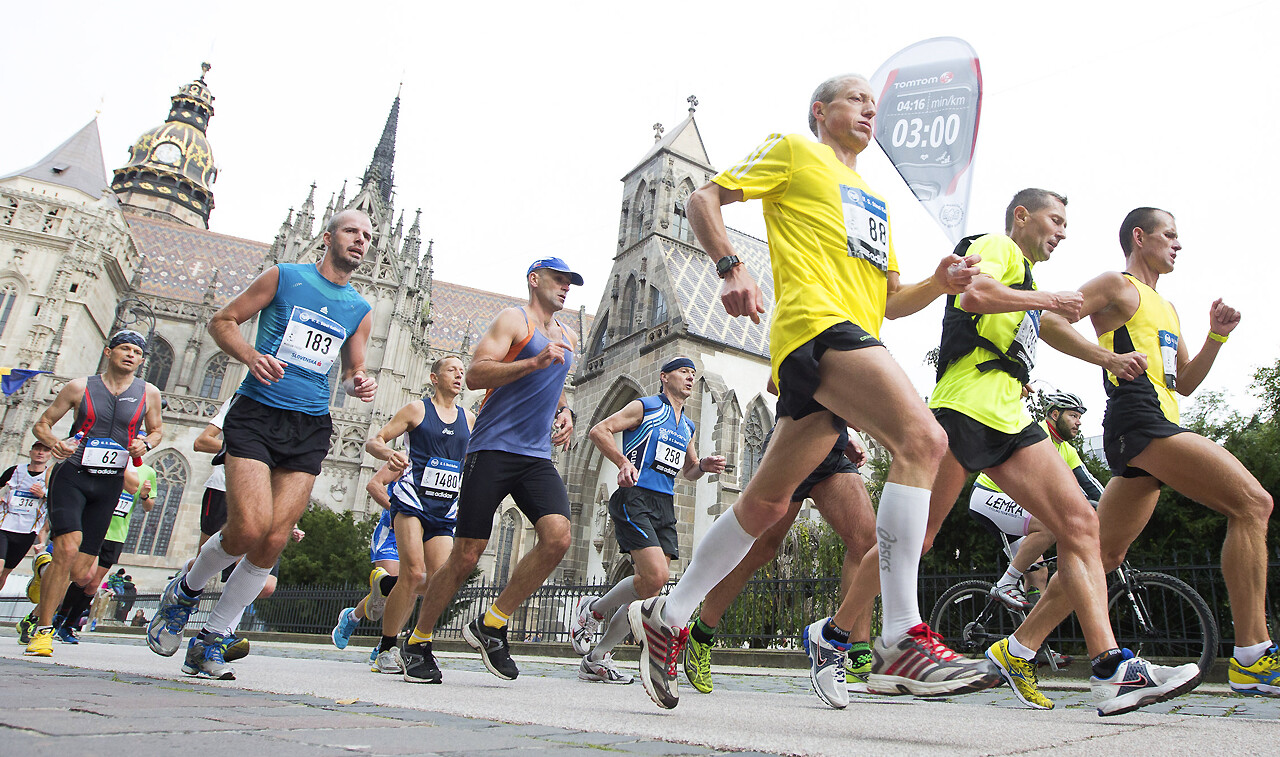
The metropolis of France and the Olympic ideals have a very special place in the birth certificate of the Košice Peace Marathon. The impulses leading to its creation are very stronglylinked to Paris, where, as today, the 1924 race was held under the five rings. The 30-year-old Vojtech Bukovský was also watching closely the competition that time. He came from Košice to experience this sporting event first-hand as a sports enthusiast, journalist and referee. When he applauded Albin Stenroos, the Finnish winner of the Olympic marathon, on 13 July, a dream was born in his mind, which he turned into reality just three months later.
“The Košice Peace Marathon marks an extraordinary milestone of its history. Inspired by the Olympic spirit of Paris 1924, it is a living example of the power of Olympic ideals to unite nations and celebrate peace through sport. At the Maison Slovaque, the Slovak Olympic House in Paris, we symbolically linked two historical moments. After 100 years, the story of one of the biggest and most important events in Slovak sport has once again returned to the city where the inspiration for its creation came from. Symbolically, it happened again at the time of the Olympic Games. This precious legacy reminds us that the Olympic Games are more than just a competition. They are an impulse that can inspire and change the world. We are proud at the Slovak Olympic and Sports Committee that the dream of one man inspired by the Olympic marathon continues today, uniting endurance athletes from around the world in the name of peace and understanding," said Slovak Olympic and Sports Committee Secretary General, Jozef Liba.
The courage with which Vojtech Bukovský set about organising the marathon is still an amazing act also on a global scale. Despite the fact that this sporting adventure did not come easily, today the marathon enjoys prestige and an important position on the world athletics map. In Košice, the tradition has become an event with a society-wide impact, representing the city and its inhabitants in a unique way. “The marathon is always a special event for us. And we, the citizens of Košice, are happy that runners from all over the world come back to us. But it is not for the records or the financial bonuses. They come for the people of Košice and the unrepeatable atmosphere. I also feel the need to recall the message of the Olympics, which is ekecheiria – that is, peace to arms, because the message of the Kosice Marathon is exactly that – peace. It is the strongest value for all of us, even in these times,” adds the Mayor of the City of Košice, Jaroslav Polaček. The City of Košice is one of the most important partners of the KPM, and it participates not only financially and organizationally, but also technically and personally in the preparations of the biggest sporting event.
The presentation of the KPM in Paris is the best invitation to the anniversary edition of the event. In addition to the sporting feats of elite runners, the performances of “mortals”, amateur or weekend runners, who sign up in their thousands for the Košice marathon course, will also resonate. This community has always been the soul of the KPM. “Millions of runners from all continents constantly confirm us that sport and marathon can unite people of every religion, every skin colour, every nationality. The strength of this community is unparalleled. And it gives strength to us in Košice. Without it, we would certainly not have been able to overcome the most diverse obstacles for 100 years. Let us wish that tomorrow’s marathon mission here in Paris will be a success for everyone – both for the medal winners and for those who finish later. It will certainly be the same on 6 October 2024 in Košice. Come to see it, come to experience it. You will be cordially welcome,” – concludes Ján Sudzina, the President of the Košice Marathon Club.Part of this commemorative meeting was also the presentation of miniaturized replicas of the statue of the marathoner, which has been a landmark of the city and the marathon itself since 1962. They will go to Paris City Hall and also to the International Olympic Committee and Europaen Athletics represented at this ceremony by President Dobromir Karamanirov.
And of course, there was talk of the actual Olympic marathon, which will become a hugely watched event on Saturday, 10th August. In addition to the best marathon runners, more than 20,000 runners from all over the world will take to the track in a unique project that has so far been unprecedented at the Games under five rings. The starting field of hobby runners will include those from Slovakia. Three of them have accepted the invitation from the Marathon Club and will personally take part in the ceremony. They are Milan Šimoník, Lukáš Jáchym and Marián Vidra. From the hands of Branislav Koniar and Jan Sudzina they have received symbolic starting numbers, with which they will take part in tomorrow’s marathon in Paris. They carry the logo and the message of the mutual relationship between the two cities, which was born from the enthusiasm of Vojtech Bukovsky 100 years ago.
Let us also add that two legendary athletes were also present at the ceremony. Kipchoge Keino of Kenya became the first African to win Olympic gold in track and field in Mexico City in 1968 and defended his title four years later in Munich. His compatriot Tegla Loroupe competed in Košice in 1997 and won a gold medal at the World Half Marathon Championships held in the city. After winning the world’s biggest marathons and retiring from her career, she became a special UN ambassador with the aim of putting together repeatedly a team of athletes made up of refugees who have had to leave their country for war or humanitarian reasons. Such a team is also starting this time at the Games in Paris.
by AIMS
Login to leave a comment
kosice Peace Marathon
The Kosice Peace Marathon is the oldest European marathon.This year for the organizers of Kosice Peace Marathon is also about memories and flashbacks. One of the fastest marathon courses has been created in Košice 20 years ago on that occasion it was the 1997 IAAF World Half Marathon Champioships. Tegla Loroupe and Shem Kororia were awarded from the hands of...
more...The orphaned refugee planning to make Olympic history
Two months ago, Dominic Lobalu thought he would not be able to compete at Paris 2024, but now he has the chance to make history.
The 25-year-old was ruled out of the Tokyo 2020 Games after claiming asylum in Switzerland, making him ineligible to compete for refugee teams.
After being given clearance by World Athletics to represent his adopted nation in May - despite not holding Swiss citizenship - Lobalu won two medals at the the European Championships the following month.
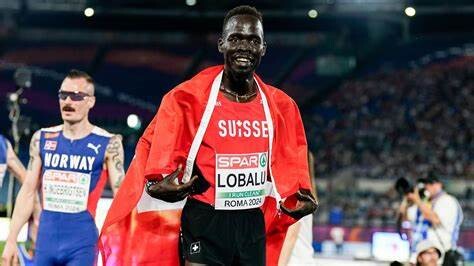
His gold in the 10,000m and bronze in the 5,000m persuaded the International Olympic Committee (IOC) to invite Lobalu to join its Refugee Olympic Team, and the South Sudanese-born runner will compete over the shorter distance in the French capital. “This is what I was dreaming for,” Lobalu told BBC Sport Africa.
“When I started my training, the goal was to go to the Olympics one day. And now I have it I'm so happy.”
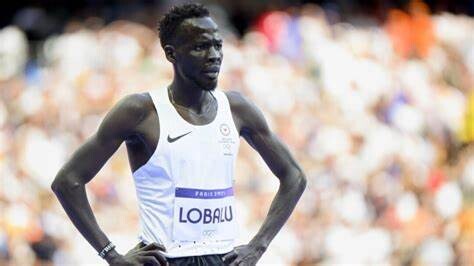
Boxer Cindy Ngamba has already assured the Refugee Olympic Team of its first ever medal, but Lobalu could upgrade her guaranteed bronze.
The first round of the 5,000m begins on Wednesday, but it has been a long journey for Lobalu to reach the start line. It is one that began in Sudan and has taken detours via Kenya and Switzerland. In 1998, Lobalu was born into a country in the middle of a long-running civil war.
He grew up in Chukudum, a small village in south-east Sudan which would become part of South Sudan when it gained independence in 2011.
The conflict, which ended in 2005, is estimated to have killed two million people. But two years after the war Lobalu's home village was raided by soldiers. The family fled but he was separated from his parents.
He wound up in an orphanage and then, at the age of nine, made it across the border to Kenya with the help of an Italian NGO.
The Kakuma Refugee Camp, a sprawling settlement in north-west Kenya run by the UNHCR, became his new home.
Now living in Switzerland, Lobalu is reluctant to talk in depth about his past before a competition, preferring to focus on the future.
However, he admits his experiences at the camp motivate him on the track.
by BBC News
Login to leave a comment
Paris 2024 Olympic Games
For this historic event, the City of Light is thinking big! Visitors will be able to watch events at top sporting venues in Paris and the Paris region, as well as at emblematic monuments in the capital visited by several millions of tourists each year. The promise of exceptional moments to experience in an exceptional setting! A great way to...
more...From Ancient Olympia to Paris 2024
Modern Olympic history is full of victories and defeats but along the way since the revival of the Olympics in 1896, we encountered geopolitics, a shift in women’s rights and the state of global affairs.
From Athens to Rio, in the last 125 years, the games have crossed five continents, added and removed events, resisted boycotts and were only canceled three times due to two World Wars.
In 1894, Pierre de Coubertin launched his plan to revive the Olympic Games, and in 1896 the first Games of the modern era were held in Athens
Origins of the Olympic Games
The history of the Games goes back around 3,000 years, to the Peloponnese in Ancient Greece. Sports contests organized at Olympia back then took place every four years and acquired the name Olympic Games.
The first written evidence of the official Games dates from 776 BC, when the Greeks began measuring time in Olympiads, or the duration between each edition of the Olympic Games.
The four-year interval between the Ancient Games editions was named an “Olympiad” and was used for dating purposes at the time: time was counted in Olympiads rather than years. They were held between August 6 and September 19 during a religious festival honoring Zeus.
The games were named after their location at Olympia, a sacred site located near the western coast of the Peloponnese peninsula in southern Greece.
The games included Chariot races – one of the oldest of Greek sports dated back to the Mycenean Period (1100 B.C) – consisting of 12 laps around a hippodrome (horse track) and 12 times in the opposite direction, with the length varying depending on where the event was held.
There was also kele (riders competing in horseback), footraces (running), wrestling, pentathlon – a five-event combination of long jump, running and wrestling – boxing, and lastly the pankration, which was a combined contest of boxing, wrestling and kicking.
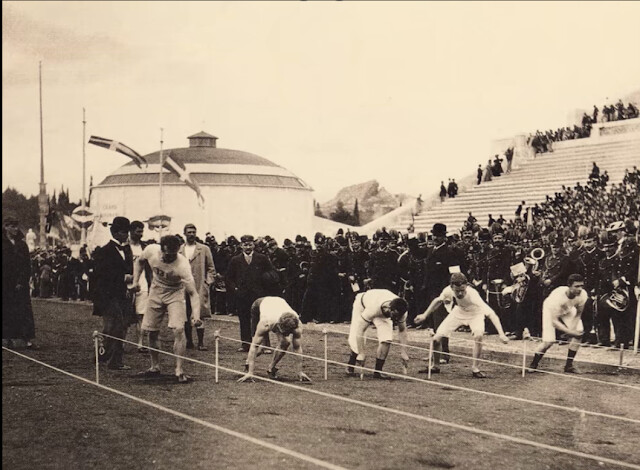
Structure and Traditions of the Ancient Olympics
All free male Greek citizens were entitled to participate in the ancient Olympic Games, regardless of their social status. Orsippos, a general from Megara; Polymnistor, a shepherd; Diagoras, a member of a royal family from Rhodes; Alexander I, son of Amyndas and King of Macedonia; and Democritus, a philosopher, were all participants in the Games.
Married women were not allowed to participate in, or to watch, the ancient Olympic Games. However, unmarried women could attend the competition, and the priestess of Demeter, goddess of fertility, was given a privileged position next to the Stadium altar.
One of the things that is commonly argued about is the question of whether there were amateur athletes in the ancient Olympic games. Ancient Olympic athletes were neither amateur nor professional. The word athlete is a Greek word that means “one who competes for a prize” and is related to two Greek words, athlos meaning contest and athlon meaning prize.
Greek athletes competed for prizes at athletic festivals. Some of the prizes were symbolic, for instance the wreath of olive leaves at Olympia, and others were material prizes worth money, for instance bronze tripods, or amphoras filled with olive oil. There were also cash awards of 500 drachmai (considered to be a fortune) or getting an early pension plan by receiving a free meal every day.
The Significance of Competition
For the ancient Greeks, whose fiercely independent city-states were often at war with one another, athletic contests became a unifying, peacemaking force. During the Olympic games, all hostilities were suspended. City-states sent their best athletes to compete
Decline of the Ancient Olympics
After thousands of years of the Greeks and Romans gathering at the Olympia to celebrate the festival in honor of Zeus, in 393 AD, the Christian emperor Theodosius I forbade the celebration of pagan cults, which included the Games.
Nonetheless, the popularity of sports contests and cultural festivities continued in many Greek-influenced provinces of the Roman empire as late as the 6th century AD.
Following Theodosius’ order, pagan cults began to disappear, and the site of Olympia was abandoned. Earthquakes destroyed the structures and their ruins disappeared gradually under the earth and sand.
Revival of the Olympic Spirit
There were no longer any visible traces of the site. Thanks to the writings of ancient historians, the memory of the Games and their place in the Greek world was not totally forgotten. The Games were known to have existed, but the knowledge of their exact location had been lost.
In 1776, the English traveler Richard Chandler discovered the site of ancient Olympia. The principal research digs were carried out a hundred years later by German archaeologists.
Pierre de Coubertin in re-establishing the Olympics
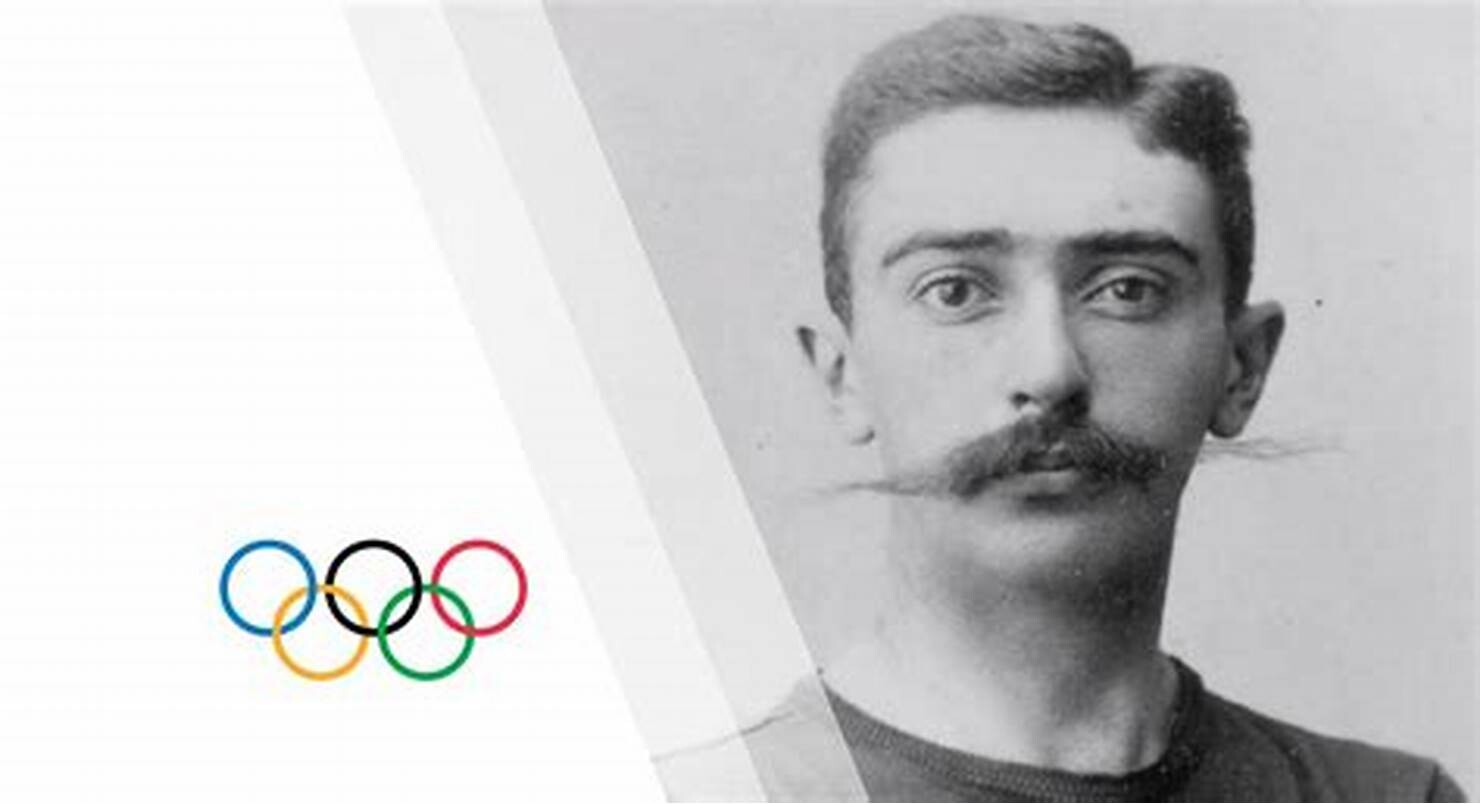
Pierre de Coubertin is widely recognized as the founder of the modern Olympic Games and the International Olympic Committee. Although artefacts suggested that ancient Olympia was prosperous, Coubertin was not put off and in 1894 invited athletes and sports people alike to attend a sports conference where he suggested the revival of the Olympics.
It was then decided on 23 June 1894 that a modern Olympic game should be held every four years and that each game should take place in a different country. It was unanimously agreed that the first modern Olympic games should be held in Olympia Greece.
Pierre de Coubertin was instrumental in establishing many of the Olympic traditions that continue to this day – the five rings, the Olympic flag, the oath and motto. He produced many writings about sport and education – one of his most famous quotes is “The important thing in the Olympic Games is not winning but taking part. Just as in life, the aim is not to conquer but to struggle well.”
The Modern Olympic Games
The International Olympic Committee (IOC) was founded on the initiative of Pierre de Coubertin on 23 June 1894, during the Olympic Congress.
At first Pierre de Coubertin planned to discuss amateur sport during the congress, however, by the time the invitations for the delegates to gather at the Sorbonne University in Paris were being sent, he changed both the programme and the title of the congress.
The event, which was eventually called the “Congress on the Revival of the Olympic Games”, served as an opportunity for de Coubertin to present his proposal to revive the Olympic Games. And thus, the International Olympic Committee was founded.
The 1894 Sorbonne congress was attended by 79 participants from 12 countries and its Opening ceremony featured musical pieces, songs, and poems.
First Modern Olympics (1896)
The first celebration of the modern Olympic Games took place in its ancient birthplace - Greece. The Games attracted athletes from 14 nations, with the largest delegations coming from Greece, Germany, France and Great Britain.
Due to its historical significance, the Greek hosts wanted to win the marathon above all else. Spyridon Louis set off from the city of Marathon and took the lead four kilometres from the finish line and, to the joy of the 100,000 spectators, won the race by more than seven minutes.
Hungarian swimmer Alfréd Hajós won the 100m and the 1200m events. For the longer race, the swimmers were transported by boat out to sea and left to swim the required distance back to shore. Hajós later confessed that his “will to live completely overcame [his] desire to win”.
On 6 April 1896, the American James Connolly won the triple jump to become the first Olympic champion in more than 1,500 years. He also finished second in the high jump and third in the long jump.
Evolution of the Games
The 1900 Summer Games in Paris took place from 14th May to 28th October and were held alongside the Exposition Universelle International which was staged to celebrate the achievements of the past century – the diesel engine (running on peanut oil), escalators, talking films and the telegraphone (the first magnetic audio recorder) were first displayed there.
Held as part of the Paris World’s Fair, the 1900 Games span five months, with 20 events and 24 countries represented. Because events are so spread out, many athletes and officials don't even realize they are competing in the Olympics.
But the 1900 Games introduce several new sports, including rugby, golf, cricket and croquet (the only year croquet is played), as well as equestrian events, archery and soccer. Swimming races take place in the Seine River and five sports—tennis, polo, soccer, rowing and tug of war—include athletes from differing nations playing on the same teams.
It’s also the first-time women participate, with 22 competing (along with 975 men). American Alvin Kraenzlein shines during the Paris Games when he takes gold in four track and field events.
Notable Olympic Events and Milestones
The Olympic flame, a symbol of peace and unity, was first introduced at the Berlin Games in 1936. The torch relay, which carries the flame from Olympia, Greece, to the host city, has become a cherished tradition. This relay not only symbolizes the connection between ancient and modern Games but also promotes the spirit of the Olympics across various nations
The concept of the Olympic Village was first realized during the 1924 Paris Games. This innovation provided a communal living space for athletes, enhancing the experience and fostering hospitality among competitors from around the world. The Village has since become a staple of the Olympic experience, allowing athletes to live and interact together during the Games
The Cold War era saw significant political tensions affecting the Olympics, leading to boycotts of the 1980 Moscow Games by the United States and the 1984 Los Angeles Games by the Soviet Union and its allies.
In response to various global challenges, including the COVID-19 pandemic, the Olympics have shown resilience by adapting their schedules and formats. The Tokyo 2020 Games were postponed to 2021, marking a significant moment in Olympic history as they navigated unprecedented circumstances while still aiming to uphold the Olympic spirit
A Symbol of Peace
As the world looks forward to future Olympic Games, including Paris 2024, we mustn’t forget that the Olympic Games have long served as a powerful symbol of peace, unity, and athletic excellence, transcending cultural and national boundaries. Their legacy is rooted in a philosophy that combines sport with education and cultural exchange, promoting values such as friendship, solidarity, and fair play.
by Juliana Alexandra
Login to leave a comment
Paris 2024 Olympic Games
For this historic event, the City of Light is thinking big! Visitors will be able to watch events at top sporting venues in Paris and the Paris region, as well as at emblematic monuments in the capital visited by several millions of tourists each year. The promise of exceptional moments to experience in an exceptional setting! A great way to...
more...8 Things You Need to Know About the Paris Olympics—Plus How to Watch
The biggest sport at the Paris Olympic Games will be held on August 1-11. And while it’s the oldest Olympic discipline, a lot will be new about track and field this year.
A lot has changed in the last 100 years. Feathers, jazz, and radios are out. Mom jeans, T-Swift, and TikTok are in.
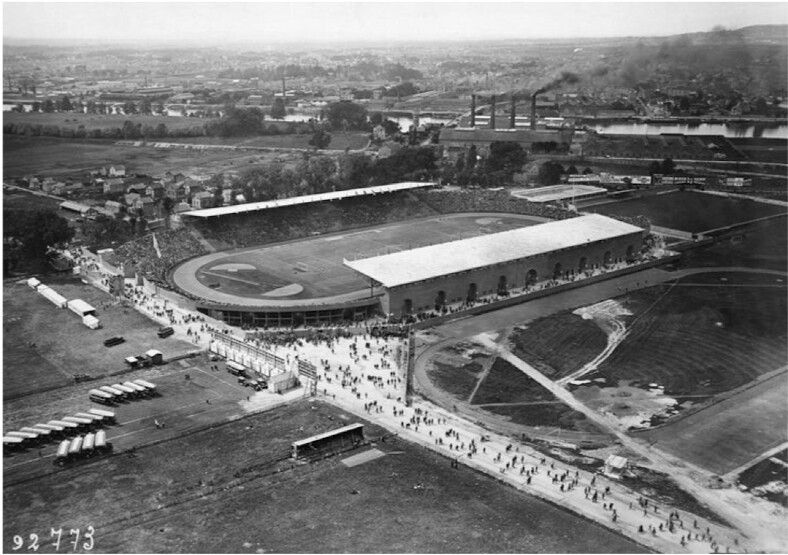
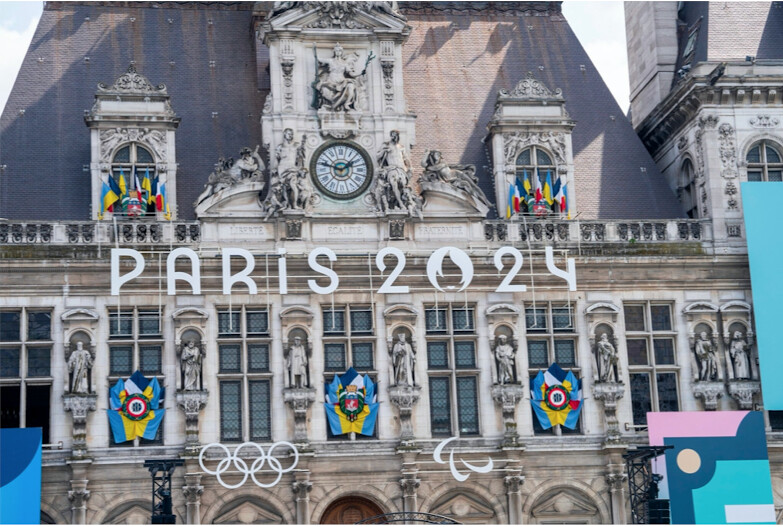
(We don’t make up the rules.)
Dirt tracks have been replaced by vibrant shades of bouncy mondo. Leather shoes cower next to featherlight carbon-plated spikes. Scouts sprinting along marathons, calling in the action by telephone to announcers projecting the information to spectators sitting in the stands, have been put out of business by helicopters and motorcades livestreaming the race on TV.
But one thing hasn’t changed: the 2024 Olympic Games will be held in Paris, France—where they were held for the last time exactly 100 years ago. And once again, track and field will be the star of the show.
(Sorry, break dancing and skateboarding.)
Here’s what you need to know about track and field, or what the rest of the world calls “athletics,” at the 2024 Paris Olympic Games on August 1-11.
Of the 10,000 athletes from 206 nations competing in 329 events at the Paris Olympic Games, 1,800 of them will be in the 48 events of track and field. That makes track and field by the numbers the biggest of the 32 sports.
It’s a fitting designation for a historic sport that traces its roots back to about 200 B.C. in Ancient Greece and the birth of the Olympics. Then, men (yes, just men) competed in sprints, the long jump, discus, and javelin to celebrate human potential and to honor the gods.
Those events are all still contended today (plus a whole lot more that would make the Ancient Greeks—and many of our contemporaries, for that matter—scratch their heads, like the 3,000-meter steeplechase and the 20K racewalk), giving special import to this sporting discipline.
In addition: unlike say, soccer or basketball, which have the Football World Cup and the NBA Finals, the Olympics represents the pinnacle of the sport for track and field. For all the disciplines within track and field, from the 100 meters, to hammer throw, to the decathlon, there is no higher honor than winning Olympic gold.
It’s been a long, arduous road since Pierre de Coubertin, founder of the modern Olympic Games in 1896, famously said that the point of the Olympics was “the solemn and periodic exaltation of male athleticism…with the applause of women as reward.”
At the 1900 Olympics, also in Paris, 22 women defied Coubertin’s dream and competed in a total of five events: croquet, equestrian, golf, sailing, and tennis. They made up a minuscule 2.2 percent of the 997-person field. This year, thanks to tireless work starting with the International Olympic Committee, the Paris Olympics will be the first to (basically) achieve gender parity.
Of the 329 medal events, 157 will be contested among men, five more than the 152 for women. (There are also 20 mixed-gender events, including the mixed-gender 4×400-meter relay on the track and the mixed-gender marathon race walk relay.) But within the 32 sports, 28 are gender equal—including, for the first time, track and field.
The devil is in the details, and if we’re putting true parity paramount then there’s still some work to go. Even within track and field, the men still compete in the decathlon (10 events) while the women compete in the heptathlon (seven). And then there’s everyone on the team beyond the athletes themselves: in Tokyo three years ago, 13 percent of coaches were women—and that’s up from 11 percent in Rio in 2016. A quarter of National Olympic Committees give less prize money to women gold medalists than men.
Speaking of prize money, track and field is breaking barriers this Olympics by becoming the first sport to give out prize money. Gold medalists in both women’s and men’s races will win $50,000, with relay teams splitting that pot four ways. In total, that’s $2.4 million that World Athletics will be coughing up to foot the bill, a sign of change for how the Olympics have bloomed from an exhibit of amateurism to full-blown commercialization.
Notably, this prize money is less than World Athletics hands out at the World Athletics Championships, which awarded gold medalists $70,000 in Budapest last summer. World Athletics intends to extend prize money to silver and bronze medalists at the 2028 Olympic Games in Los Angeles.
That prize money from World Athletics remains separate from prize money awarded by some national federations—including the U.S. Olympic and Paralympic Committee, which will award $37,500, $22,500, and $15,000 to Team USA gold, silver, and bronze medalists, respectively, in Paris.
Paris vowed to make this Olympics the greenest ever, building as little new infrastructure as possible and using the city’s iconic landmarks as venue backdrops instead. Rather than build dazzling new stadiums which quickly fall into disuse and disrepair after the Games—as we’ve seen at previous Olympics—Paris opted to revamp existing infrastructure, some of it dating back to the last Olympic Games here in 1924.
The Stade de Yves-du-Manoir, the main stadium of the 1924 games which hosted among other things track and field, has a new 1,000-seat grandstand and will host the field hockey events.
The pastel-colored high-rise apartments of the Olympic Village, where many athletes stay during the Games, add a splash of color to Seine-Saint-Denis, the poorest area not only in Paris, but the country. Water pumped from deep below the earth cool the apartments made from a mix of wood and concrete (although many delegations have requested AC units nonetheless) and the avenues outside are made from a permeable pavement composed of crushed seashells that cool the streets by allowing water stored underneath the ground to evaporate on hot days.
This initiative has also fast-tracked cleaning up the famously romantic and infamously gray city. Paris has built 250 new miles of bike lanes, continued to expand its Metro network, allegedly cleaned up the Seine, and planted 300,000 new trees.
Track and field will be held on France’s biggest stage, quite literally. Built for the 1998 Football World Cup, Stade de France seats more than 80,000, making it the largest stadium in France. It’s home to the French national football (soccer) and rugby teams as well as the country’s biggest concerts.
As you’ve probably seen by now, the track has been resurfaced to purple for the Games. The shade is reminiscent of lavender, a homage to both the creativity of the 2024 Olympics and to the ash-colored track at the 1924 Olympic Games across the city.
If you’ve watched track and field meets in the past, you may have been confused why some athletes names’ appear with a big “Q” or a little “q” on the scoreboard after the preliminary and semi-final rounds.
If that’s you, don’t stress. In the spirit of second chances, and well, simplicity, the Paris Games are doing away with this system (for the most part).
For the first time ever, individual track events ranging from the 200 meters to the 1500 meters (including hurdles races) will include a “repechage” round. Athletes in the preliminary round who do not automatically qualify for the semi-final will have an opportunity to race their way into the next round through this additional heat, the entomology of which comes from repêchage, or “second chance” in French.
Under this new format, events will have four rounds: preliminary, repechage, semi-final, and final. This guarantees that every athlete competing in the 100 through the 1500 will have the opportunity to race twice. The number of athletes who will advance out of the repechage to the semi-final varies depending on the event.
The repechage round replaces the former system, in which athletes advanced by running the fastest in their heats (Q), plus the next best getting in on time (q).
The 100 meters already has an additional round of preliminary heats, and the distance events (3,000-meter steeplechase, 5,000, and 10,000) require adequate time to recover, so these events will be conducted without the repechage round.
Expanding on the theme of gender equality at the Paris Olympics, the marathon route pays homage to a pivotal moment in women’s history during the French Revolution: the Women’s March on Versailles. The roughly 160 competitors in the men’s and women’s races (as well as the citizen’s race, Paris 2024 Marathon Pour Tous) will follow in the footsteps of roughly 7,000 Parisian women and men who marched from Paris to Versailles on October 5-6, 1789 to demand bread and arms. (It worked: King Louis XVI finally agreed to sign the Universal Declaration of the Rights of Man and Citizens that day.)
Just like those disgruntled Parisians 235 years ago, runners will start at Hôtel de Ville, the city hall in the center of Paris, and will make their way on foot to the Palace of Versailles about 12 miles to the west. Along the way, runners will pass through nine districts of the Île-de-France, against a backdrop of the City of Light’s most iconic landmarks, parks, and forests, including the Place de Concorde, Rue de Rivoli, Tuileries Garden, and, of course, the Louvre.
In addition to being steeped in history and splendor, the course will be particularly grueling for a road race: the middle section packs some kickers that add up to over 1,430 feet of climbing and descent, with a maximum grade of 13.5 percent. Throw in some heat and humidity and we’re in for two unpredictable, action-packed events.
You may be wondering why race walking, in which competitors basically try and cheat as much as possible without getting caught, is an Olympic discipline. We are, too. Just watching race walkers swing those hips along at 6-minute per mile paces seems injury-inducing. But hey, three-on-three basketball, badminton, and trampoline are in the Olympics, too, so who are we to judge.
But judging is in fact a critical component of sport. Race walking rules stipulate that competitors must keep one foot on the ground at all times, to the point where any loss of contact is not visible with the naked eye. In other words, the rules are basically begging athletes to cheat and run without getting away with it. In addition, the lead leg must remain straight until that leg passes under the body. Using just the naked eye, that is, no technology whatsoever, judges monitor competitors to try and uphold these regulations.
For the first time since the discipline became an Olympic event in 2000, race walking will provide gender-equal medal opportunities. There will be a men’s and women’s 20K race, as well as a marathon-distance mixed-gender relay, which will replace the men’s 50K.
In a highly unique format, the mixed-gender relay will see 25 teams of one man and one woman each. They’ll complete a marathon-distance race broken up into four 10K chunks, with each competitor racing twice (man, woman, man, woman).
Perhaps the greatest improvement from the 1924 Olympic Games is that we can watch it all without even being there. NBC Universal, the American multinational mass media and entertainment conglomerate that owns the media rights to the Olympics, is planning to air more than 7,000 hours of total coverage of the Paris Olympic Games. Track and field coverage will be broadcast on the NBC, USA, and E! TV networks and streamed on Peacock, NBCOlympics.com, NBC.com, NBC app, NBC Olympics app, and NBC Sports app.
The action kicks off with the men’s and women’s 20K race walk on August 1, and concludes with the women’s marathon on August 11. In between, enjoy a nine-day action-packed feast on the track at Stade de France. Find the full track and field schedule of events here and the full track and field viewing schedule here.
Morning viewing sessions on August 2-9 will commence at 4 A.M. ET, and medal events will be shown on NBC’s tape-delayed prime time broadcast. Don’t worry, you can watch them live, too! Peacock, the streaming service of the Olympics, will stream every sport and event.
Those willing to sacrifice some sleep can catch the men’s marathon coverage live beginning at 2 A.M. on August 10 on USA Network, Peacock, and the NBC Sports app, while the women’s marathon will be shown live beginning at 2 A.M. on August 11.
by Outside Online
Login to leave a comment
Transgender athletes will have more restrictions in Paris
Transgender women must have transitioned before the age of 12 to be eligible for the women’s category, to “prevent any potential biological advantage from male puberty”.
Transgender athletes will face more restrictions at the Paris Olympics compared to previous events. This is due to the recent regulation by numerous international federations that female athletes must have completed their transition before the age of 12 to avoid unfair advantages.
With this decision, the Paris 2024 Olympics has stricter rules and regulations regarding transgender athletes with differences of sexual development (DSD).
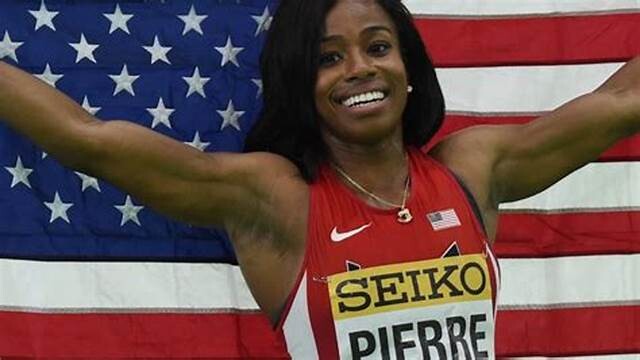
There have also been increased regulations for transgender athletes ahead of the Olympics, with many who have previously competed in international events, now unable to do so.
The Olympics in the French capital is set to make history as the first gender-equal games, with 50 per cent of the medals going to women, a first in the history of the event. There has been a rising interest in transgender athletes, with concerns that transgender women have an unfair advantage over fellow competitors, and a number of federations have strict guidelines.
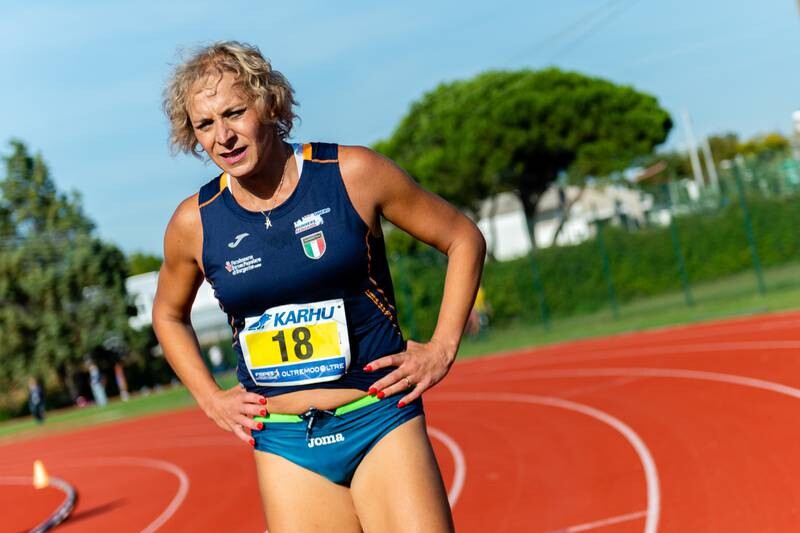
The International Olympic Committee, which oversees the Games, does not have specific rules or regulations and instead includes 10 guiding principles. The governing body also states that “each international federation is responsible for setting eligibility rules for its sport, including the eligibility criteria that determine qualification for the Olympic Games”.
The guidelines require transgender women to have transitioned before the age of 12 to be eligible for the women’s category, to prevent any potential biological advantage from male puberty.
The sports affected by this rules
The guidelines from the IOC have been adopted by World Athletics and Fina, swimming’s governing body.Cycling follow these guidelines for women’s categories but also allow for an “open” category which has replaced the current “men’s category” to allow transgender athletes to compete.
World Rowing allows those who transitioned before puberty to be eligible, and one of their criteria is for the testosterone concentration to be less than 2.5 nmol/L for a period of at least 24 months, while rugby has followed the IOC guidelines. Triathlon, tennis and archery however require testosterone levels to be below a certain limit to allow athletes to compete. Other sports allow transgender athletes to compete on a “case by case” basis.
Transgender and non-binary athletes at the Paris Olympics
Laurel Hubbard competed in the Tokyo Olympics, becoming the first openly transgender athlete to do so, and finished last in her competition group, and also Will be there in this edition. Nikki Hiltz is transgender and non-binary and uses the pronouns “they/them”, but has always competed in the female category, and will be representing USA at the upcoming Olympics. They set a US trials record in the 1500m to earn a place on the Olympic squad.
Quinn, a Canadian non-binary footballer, has also been chosen to represent their nation at the Olympic Games. The midfielder, who plays for Toronto, has always competed in female categories.
But there are other athletes that got out of the Games because of the new rules like the american BMX rider Chelsea Wolfe, who had been hoping to compete in Paris before the UCI, cycling’s governing body, changed its regulations and put an end to her hopes. She had qualified for Tokyo 2020 as an alternate.
Halba Diouf’s dream was also ended by World Athletics’ new regulations, effectively barring the Senegalese-born French sprinter from competing in Paris. Swimmer Lia Thomas became the first transgender athlete to win a US college title in 2022, but lost a legal case against World Aquatics for her right to compete. The American remains barred from competing in the female category.
by Marley Dickinson
Login to leave a comment
Paris 2024 Olympic Games
For this historic event, the City of Light is thinking big! Visitors will be able to watch events at top sporting venues in Paris and the Paris region, as well as at emblematic monuments in the capital visited by several millions of tourists each year. The promise of exceptional moments to experience in an exceptional setting! A great way to...
more...Why Daniel Simiu was not selected for the men's 10,000m for Paris Olympics
The selection panel has given a candid explanation of why Daniel Simiu was left out of the men's 10,000m team at the Paris 2024 Olympics.
The selection panel, led by Athletics Kenya Nairobi Chair Barnaba Korir has explained why world 10,000m silver medallist Daniel Simiu was snubbed from the men’s 10,000m team to the Paris 2024 Olympics.
As per the International Olympic Committee, the first two athletes to cross the finish line automatically qualify for the event with the third athlete being chosen by a panel of selectors.
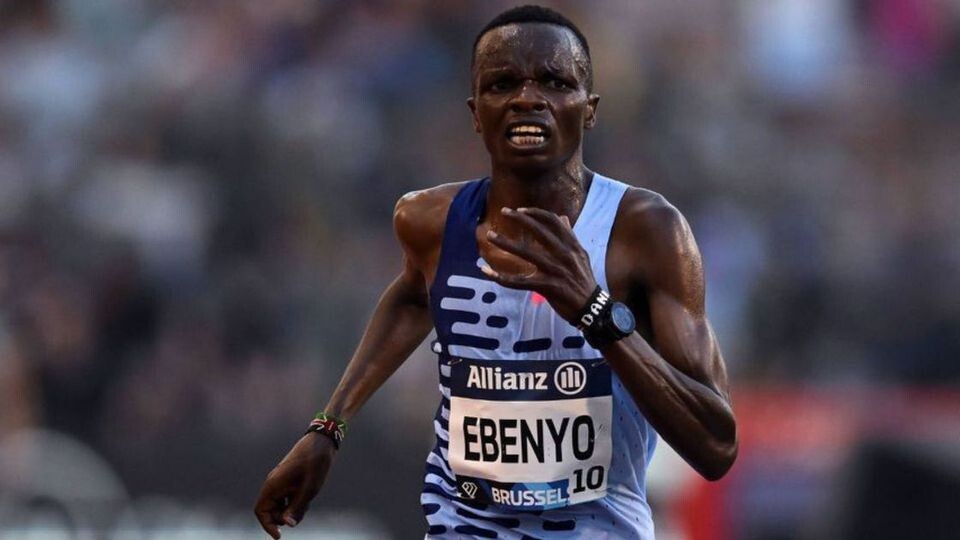
Daniel Mateiko and Nicholas Kimeli finished first and second respectively with Bernard Kibet finishing third in the race. Simiu stumbled and fell, but he had to push himself and could only afford an eighth-place finish at the event.
Athletics Kenya president Jack Tuwei weighed in and explained that all athletes had a n equal chance of qualifying and they all arrived at Oregon in good time ahead of the race.
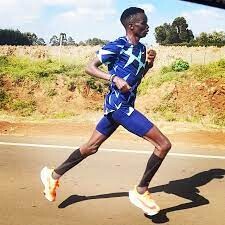
“We had a bit of a challenge with the travel documents but made sure that all the athletes who had been selected to go to Oregon to go there for the trials, Ebenyo included. There was a challenge but we made sure they all ended up there and they came back safely,” Tuwei said.
Meanwhile, Korir explained that Simiu arrived in Oregon, two days before the race, and had enough time to rest and also prepare himself for the race.
He added that there was tough competition since most athletes had qualified and they scratched their heads to come up with that decision.
“The preparation of the team to go to Oregon was very rigorous and the team that was selection process was done by the technical bench and the coaches who have been engaging with these athletes.
“Every athlete who had the opportunity to go and compete was contacted and nobody was left out in this process. The athletes who have been selected have all qualified and the 10,000m is currently limited and they have very few races in Europe.
“The decision was that most athletes had qualified and give them an opportunity to race and give them a feel of the track before the Paris Olympics. The selection had some problems but every athlete that was supposed to go there made it.
“Ebenyo made it there two days prior to the competition and he had an opportunity to rest and he had an advantage. All of them were okay and ready and the coaches prepared the athletes very well,” Korir said.
He added the committee had to check the performance of Kibet and Simiu and they realised that the former had also been performing well and there was no way he could have been left out.
He added that they did not want to name the team in Oregon since making the decision would be tough and they had to come back to the country to sit down and come up with a team.
“The committee realised that the third athlete had been performing well in other championships and there was no way he would be dropped. Selecting the men was very tough.
“We did not name the team since we had to sit down and rigorously decide on who was going to make the team. They made the decision according to many other reasons and the 10,000m was superb and the run was amazing,” Korir said.
Meanwhile, Milcah Chemos added that Kibet has shown impressive performances in previous races and he also played a huge role in Team Kenya winning silver at the World Championships in Budapest, Hungary.
She added that at the Prefontaine Classic, he fought hard for the third place and he deserves a chance. Chemos also believes that Kibet will not disappoint at the Paris 2024 Olympics.
“I was in Oregon and I witnessed all that was going on, so for the number three, we came up with them because of their performance. All athletes had an equal chance in Oregon and we all saw how Bernard did his best especially when the light had gone, he tried so had to close the gap.
“In Budapest, he also played a huge role in ensuring Kenya won the silver medal. It was hard to give out the number three but at least we sat, almost 10 of us, and we came up with the number three and I believe he deserves the position,” Chemos said.
by Abigael Wuafula
Login to leave a comment
Paris 2024 Olympic Games
For this historic event, the City of Light is thinking big! Visitors will be able to watch events at top sporting venues in Paris and the Paris region, as well as at emblematic monuments in the capital visited by several millions of tourists each year. The promise of exceptional moments to experience in an exceptional setting! A great way to...
more...Paris Olympic athletes won’t have air conditioning in Village
Last summer, Paris experienced record-breaking heat in late July and early August, with temperatures exceeding 35 C for seven of 14 days.
Athletes competing at the 2024 Paris Olympic Games can look forward to some warm summer nights without air conditioning in the Olympic Village. According to InsideTheGames, to make Paris 2024 the most sustainable and environmentally friendly Games in history, the organizing committee has designed the Olympic Village to rely on natural resources and an innovative underground cooling system, instead of (traditional) air conditioning.
The Olympic Village’s cooling system will draw water from the River Seine to cool power plants. The chilled water will circulate through the buildings’ pipes to reduce room temperatures. It’s no surprise that many athletes are skeptical the system will sufficiently cool their living quarters for crucial rest periods.
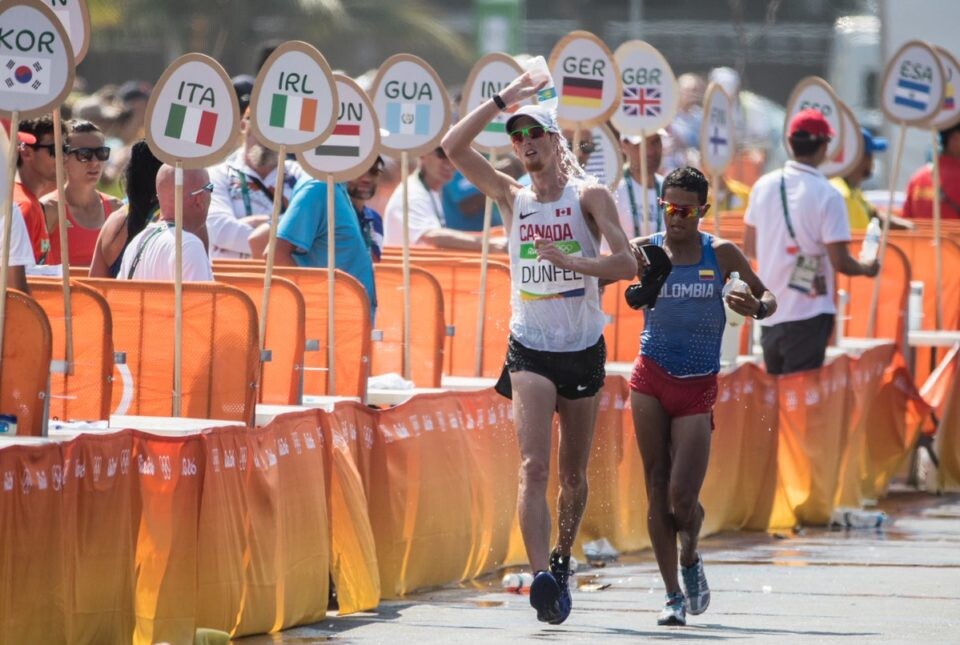
The average daily temperature in Paris for August is 26 C, with nightly lows around 14 C. Last summer, Paris experienced record-breaking heat in late July and early August, with temperatures exceeding 35 C for seven of 14 days.
Many athletes and national Olympic federations are reportedly taking matters into their own hands and threatening to bring their own portable air conditioners to the Olympic Village. The Australian Olympic Committee, in an effort to prioritize high performance, has decided to install air conditioning in all their athletes’ rooms. “This is strategic for high performance and will help them sleep,” said Anna Meares, head of the country’s delegation told The Guardian.
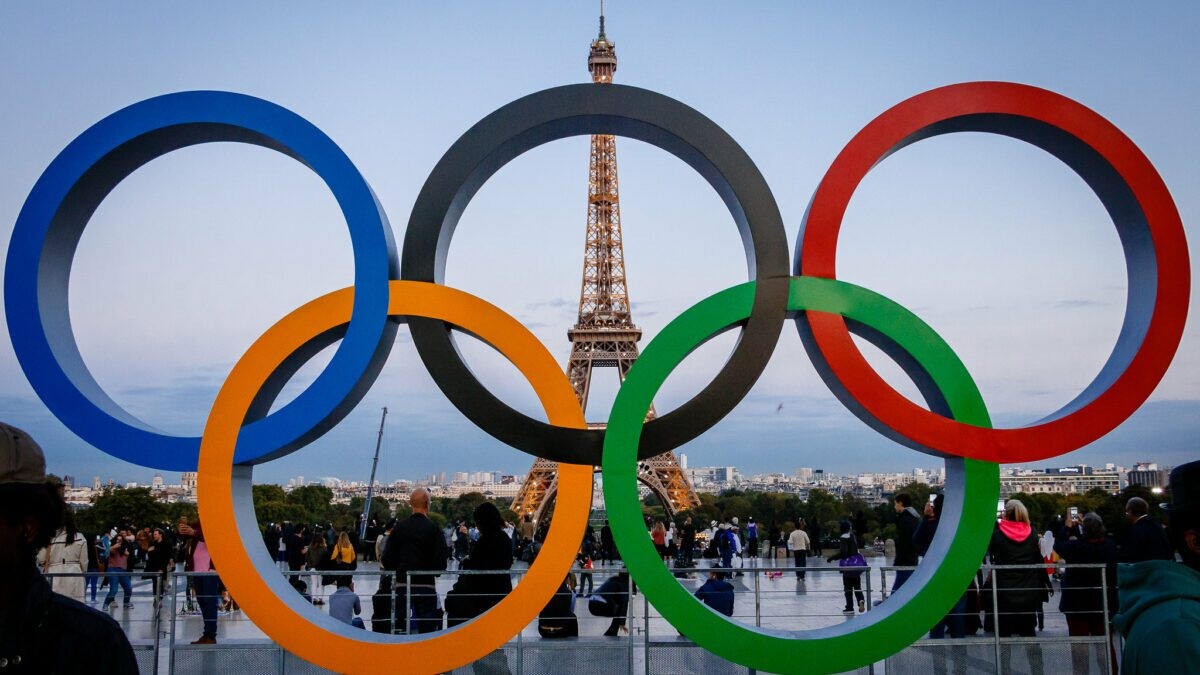
The Greek Olympic Committee will follow suit, further challenging the Paris 2024 organizers’ goal of reducing the carbon footprint of the Games by half, compared to previous editions. “Despite outside temperatures of 41 C, we had 28 C in most of these rooms,” said Laurent Michaud, director of the Olympic Village to InsideTheGames. “Air conditioning would only be necessary during extreme heat waves, as indoor temperatures rarely exceed 26 C.”
Several other countries, including Team USA, Great Britain and Italy, are considering portable air conditioning units for their athletes–a move that undermines the International Olympic Committee’s sustainability goal.
by Marley Dickinson
Login to leave a comment
Paris 2024 Olympic Games
For this historic event, the City of Light is thinking big! Visitors will be able to watch events at top sporting venues in Paris and the Paris region, as well as at emblematic monuments in the capital visited by several millions of tourists each year. The promise of exceptional moments to experience in an exceptional setting! A great way to...
more...World Athletics Adds Ranking Spots to Olympic Men’s Marathon Field — American Leonard Korir Will Run in Paris
The United States will have three men in the 2024 Olympic marathon after all. Following months of uncertainty, World Athletics added one universality place and four rankings places to the Olympic marathon field on Tuesday. The four ranking spots were awarded to athletes from Chile, South Africa, the United States, and Australia, meaning that Leonard Korir will join Americans Conner Mantz and Clayton Young on the Olympic marathon start line on August 10.
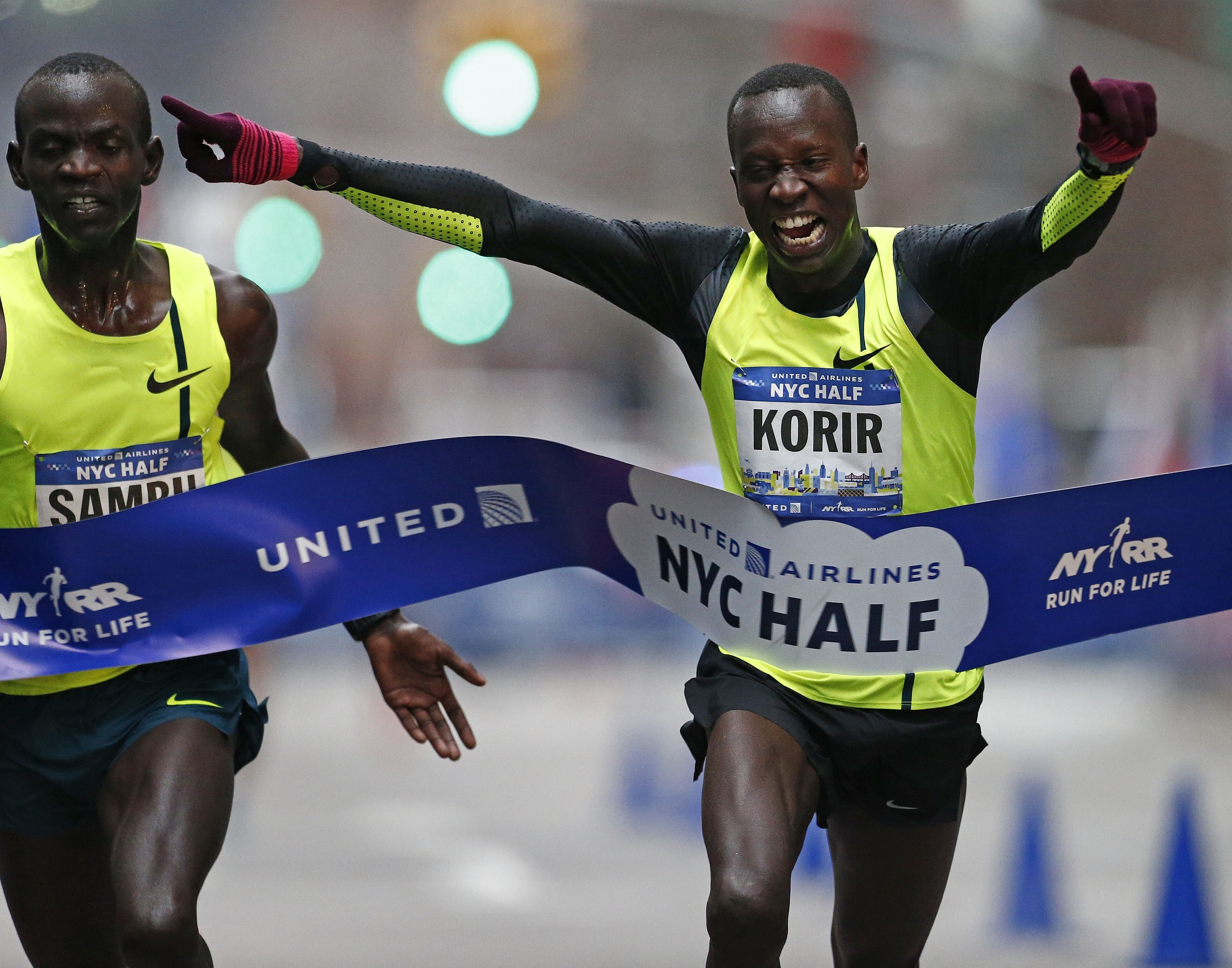
Korir’s spot had been in jeopardy after World Athletics added 11 universality places on May 8, but the Road to Paris list of qualifed athletes has been updated and American CJ Albertson is now listed as qualified at spot #84. Per USATF selection procedures, Albertson’s place will pass to Korir, the third-placer at February’s US Olympic Marathon Trials. Korir’s coach Scott Simmons confirmed to LetsRun.com that Korir is now qualified and will compete in the Olympic marathon on August 10.
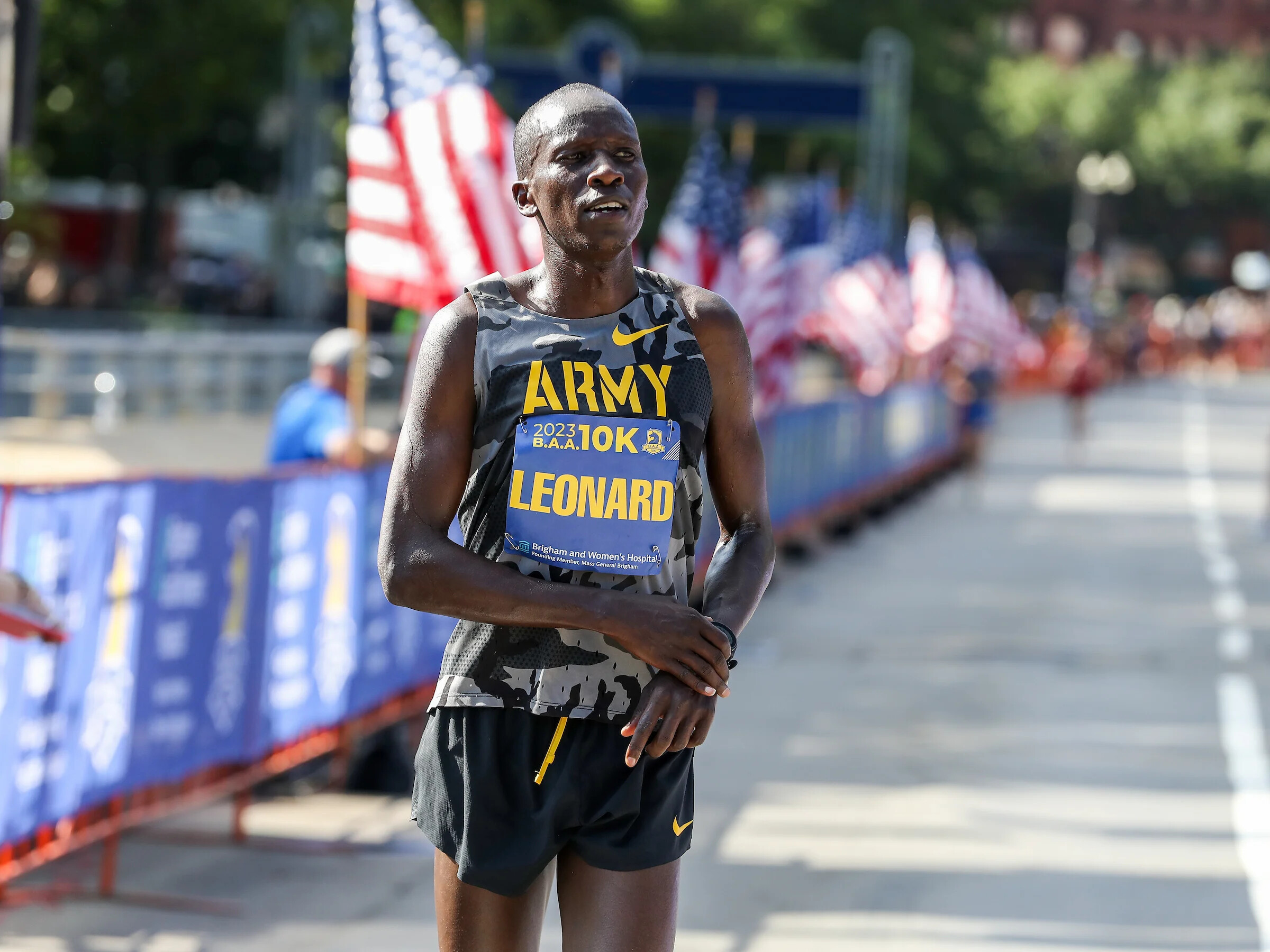
Australia’s Wide World of Sports reported that in recent weeks, World Athletics had been working on a solution to fit some highly-ranked athletes into the Olympic marathon while respecting Olympic sport quota limits set by the International Olympic Committee.
It was not immediately clear why World Athletics added four ranking places on Tuesday; this story will be updated as LetsRun.com learns more.
by Jonathan Gault
Login to leave a comment
Paris 2024 Olympic Games
For this historic event, the City of Light is thinking big! Visitors will be able to watch events at top sporting venues in Paris and the Paris region, as well as at emblematic monuments in the capital visited by several millions of tourists each year. The promise of exceptional moments to experience in an exceptional setting! A great way to...
more...The billions Michael Johnson has received ahead of launching his track league in 2025
Michael Johnson has received a financial boost of billions as he seeks to launch his track league next year, with more details concerning the same to be revealed in June.
American sprint legend Michael Johnson has received massive backing as he looks to launch a track league next year with more details concerning the same scheduled for June.
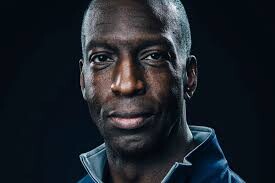
As per the Sports Business Journal, Johnson has so far secured more than Ksh 4 billion (about $30 million) from investors and strategic partners who plan to support his initiative for the track league.
Expressing his elation on his X (Twitter) handle, Johnson said: “Working to change the game for athletes and fans! League details coming this June.”
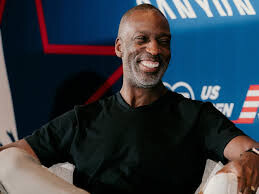
arlier this year, the four-time Olympic champion announced his partnership with Winners Alliance, the for-profit arm of the Professional Tennis Players Association. The Alliance was the lead investor and will be the league's operating partner.
During the partnership announcement, the American announced that they have a plan to launch a track series in 2025 aimed at promoting the sport meeting the needs of all track and field athletes, and bringing back the spark.
The league is set to include a series of events from April to September and will have a limited number of athletes and offer very lucrative prize money. It will also aim to renew rivalries between them while catering to fan interests.
As preparations ramp up, the league has also hired Doubleday & Cartwright, a creative studio that specializes in sports, music, art, and culture. The agency has a proven track record, having worked with the world’s leading brands including Apple and Nike among others.
Johnson's league has also signed Two Circles and SRK Strategies, a data-driven sports marketing agency. Two Circles has worked with World Athletics and the International Olympic Committee. The firm will advise the league on how to generate new fans and motivate the existing ones in support of the league.
by Abigael Wuafula
Login to leave a comment
Should trail running be an Olympic sport?
Did you know that off-road running was part of three historic summer Olympic Games, including the 1924 Olympics in Paris? One hundred years on, runners from four different clubs in Britain have come together to launch a campaign to bring trail running (as we now call it) back to the Olympics. The next Games to include new sports is Brisbane 2032, and the group of passionate trail runners feel strongly that trail running deserves a spot.
“At Paris 2024, four new sports are being added that include breakdancing, surfing, skateboarding and sport climbing,” runner Jimi Harrison said in an interview with British media outlet The Star. “We feel that new Olympic sports should reflect the trends and popularity of the current day and believe the time has come for trail running to be adopted at future Olympics.”
To raise awareness for the cause, Harrison and the group ran a relay of more than 455 km, from London to Paris. Their feat ended on Sunday in the French capital.
Backed by running shoe brand Merrell, the group are calling on Olympic decision-makers. They have written an open letter to representatives of the International Olympic Committee (IOC) and International Trail Running Association (ITRA) to support their cause. (Merrell recently signed Olympian Alexi Pappas to its athlete roster. Pappas, who raced the 10,000m at Rio in 2016, setting a national record for Greece, ran two big trail ultras in 2023: the Black Canyon 100K and the Leadville 100.)
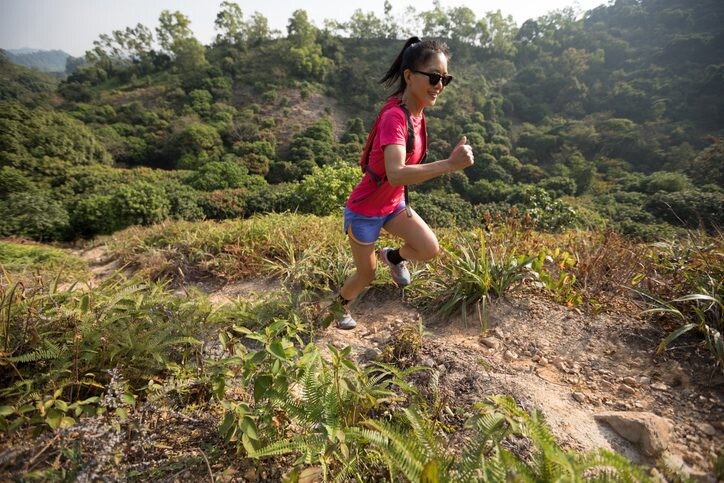
Some would argue that cross-country running is a more obvious fit for inclusion in the Olympics. With shorter, looped, spectator-friendly courses, cross-country could be more attractive to broadcasters, thus generating more interest. And cross-country usually features track runners. There is less crossover between track and trail running, though it’s not unheard of for track runners to transition to trails, as we have seen.
This is not the first attempt to bring trail running to the Olympics. In 2021, a trail running company from Spain launched its own campaign to bring it to the 2028 Olympics in Los Angeles. (They were not successful.)
Trail running has increased significantly in popularity in recent years, thanks partly to events like the Barkley Marathons, UTMB (Ultra-Trail du Mont-Blanc) and the Golden Trail Series, which make international news headlines.
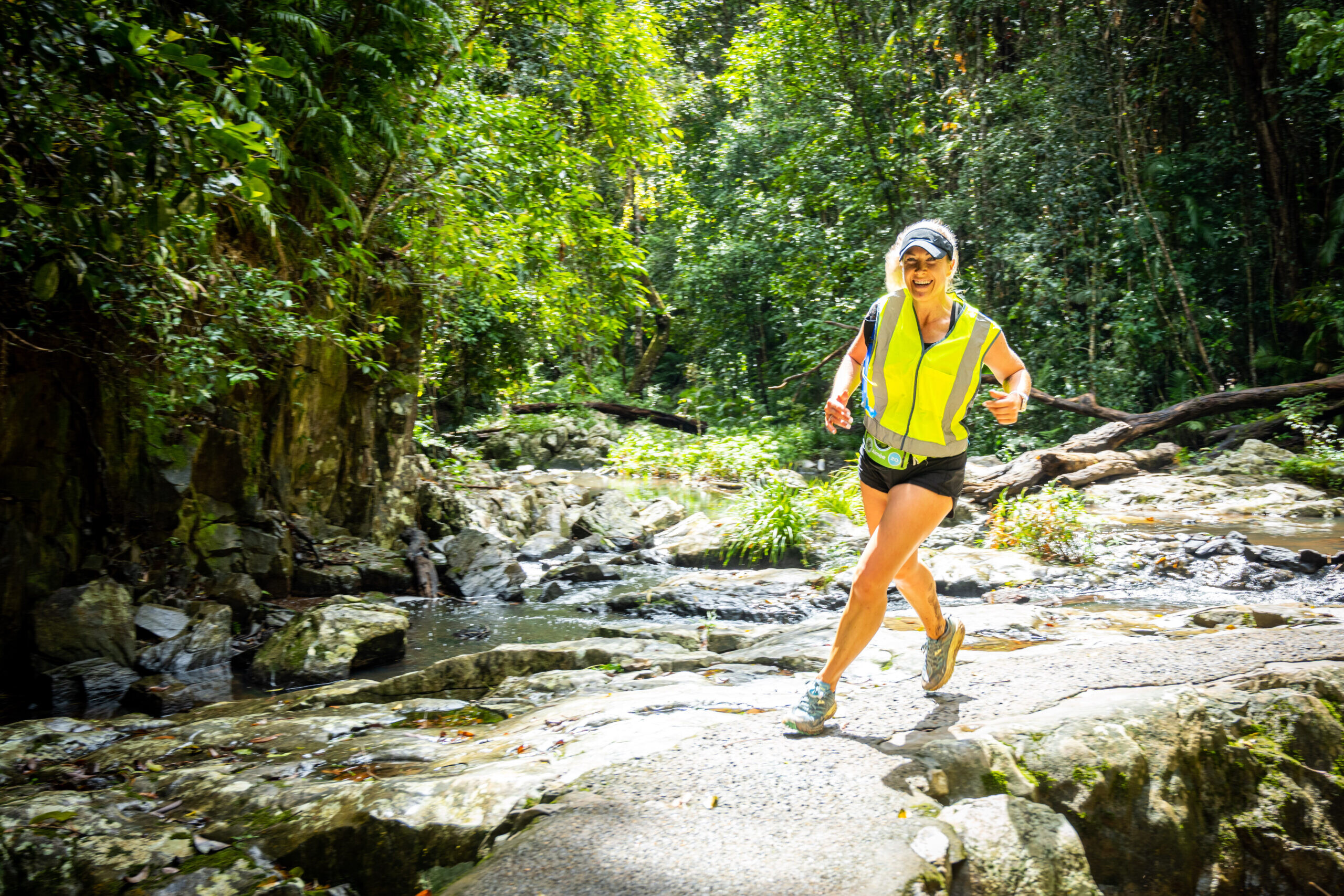
by Claire Haines
Login to leave a comment
Olympic champions to receive prize money for first time at Paris 2024 Games
Olympic champions will receive prize money for the first time this year after World Athletics announced gold medalists at the Paris 2024 Games would be paid $50,000 (£39,400) each.
Athletics is the first sport to financially reward its stars for success at the Olympics, which has stayed true to its amateur ethos by never offering prize money.
Winners of all 48 athletics events will receive a payout from the world governing body, which says it will extend the benefit to silver and bronze medalists from the LA 2028 Olympics.
“The introduction of prize money for Olympic gold medalists is a pivotal moment for World Athletics and the sport of athletics as a whole, underscoring our commitment to empowering the athletes and recognizing the critical role they play in the success of any Olympic Games,” said World Athletics president Lord Coe.
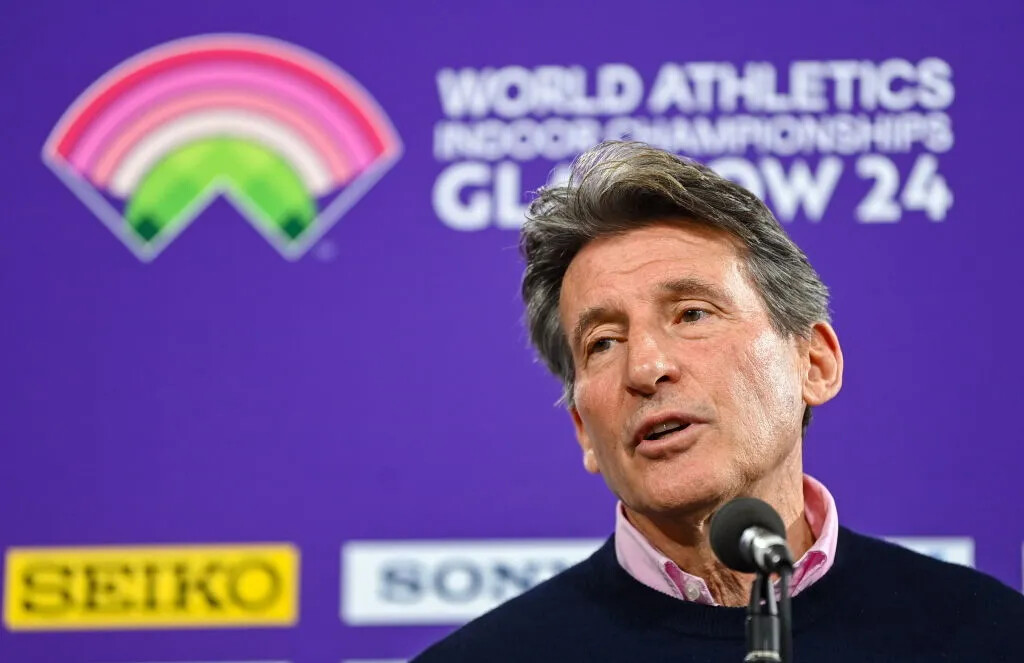
“While it is impossible to put a marketable value on winning an Olympic medal, or on the commitment and focus it takes to even represent your country at an Olympic Games, I think it is important we start somewhere and make sure some of the revenues generated by our athletes at the Olympic Games are directly returned to those who make the Games the global spectacle that it is.”
The size of the payouts is modest compared to those on offer elsewhere in sport – the average salary of a Premier League footballer is around £3m, for instance.
But the move is nonetheless a milestone for the Olympics, and recognition that it will be increasingly difficult to justify asking the stars of its core events to compete for glory alone.
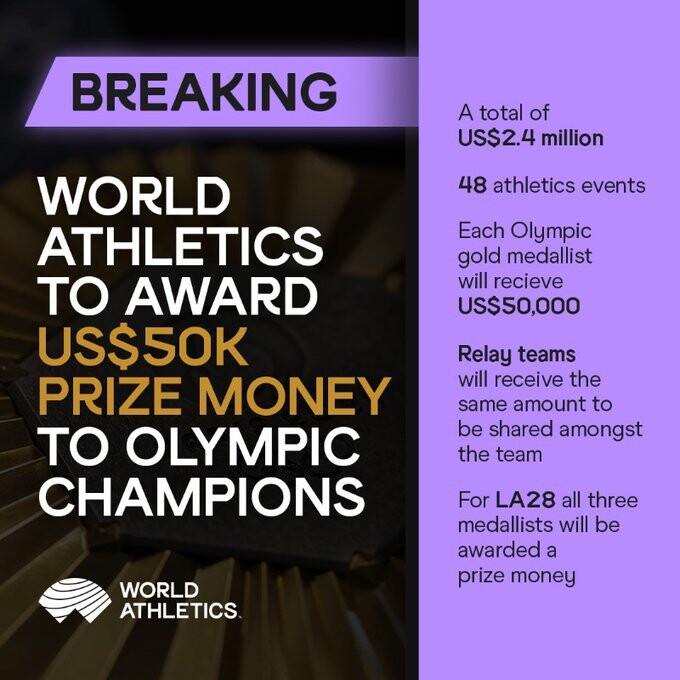
Many Olympic hopefuls rely on funding grants and personal sponsorship deals to train full-time, while others have to retain careers in order to make ends meet.
Meanwhile, athletes are being offered million-dollar incentives to defect to the doping-friendly Enhanced Games, a project Coe has derided as “bollocks”.
While winners of individual athletics events at Paris 2024 will receive $50,000, that sum will be divided up among team members for winners of the relay races.
“This is the continuation of a journey we started back in 2015, which sees all the money World Athletics receives from the International Olympic Committee for the Olympic Games go directly back into our sport,” Coe added.
“We started with the Olympic dividend payments to our Member Federations, which saw us distribute an extra $5m a year on top of existing grants aimed at athletics growth projects, and we are now in a position to also fund gold medal performances for athletes in Paris, with a commitment to reward all three medallists at the LA28 Olympic Games.”
Login to leave a comment
Paris 2024 Olympic Games
For this historic event, the City of Light is thinking big! Visitors will be able to watch events at top sporting venues in Paris and the Paris region, as well as at emblematic monuments in the capital visited by several millions of tourists each year. The promise of exceptional moments to experience in an exceptional setting! A great way to...
more...Pamela Jelimo set to receive Olympic silver after Ekaterina Guliyev's doping ban
South Africa's Caster Semenya has been elevated to gold with Kenya's Pamela Jelimo set for silver after doping reshuffle in 2012 Olympics 800m.
Former Olympic 800 champion, Pamela Jelimo, is poised to be awarded the 2012 London Olympic 800m silver, marking a significant shift in the event's final standings due to doping violations.
This development comes after the Russian Athletics Federation (RusAF) announced a four-year ban for Ekaterina Poistogova-Guliyev for historic doping offences, leading to a reshuffle of the medal positions from the London games.
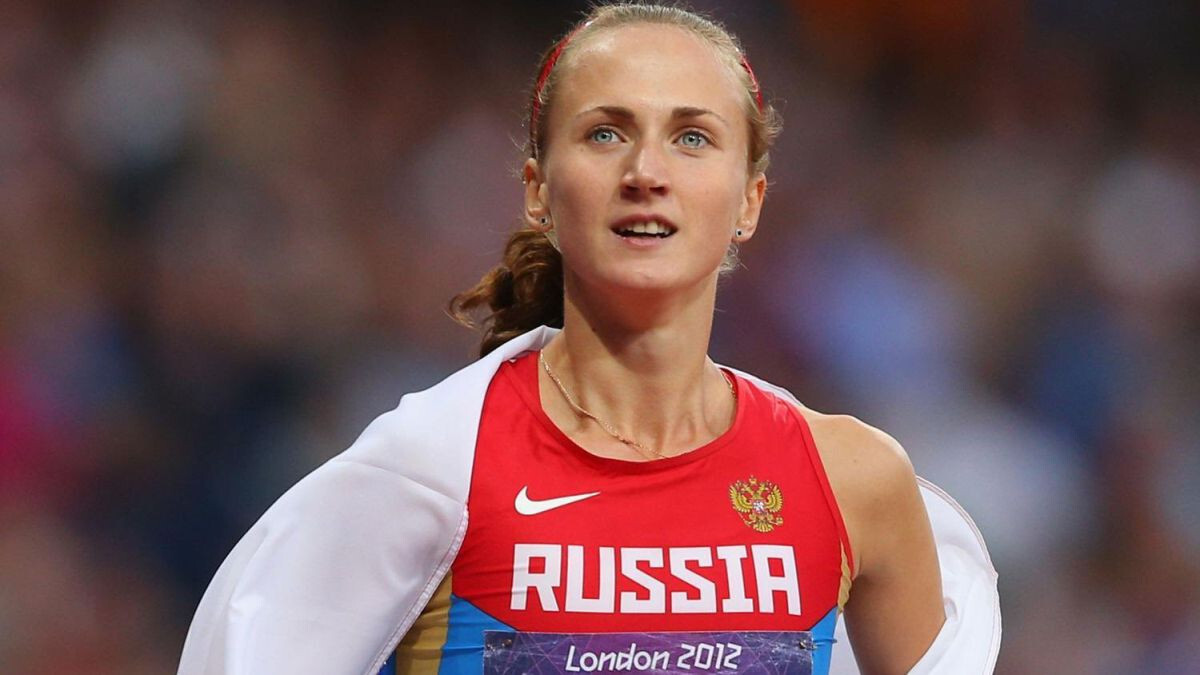
The ban, which results from violations between July 2012 and October 2014, voids all of Poistogova-Guliyev's results from that period, according to a RusAF statement.
The athlete, who initially competed for Russia before switching allegiance to Turkey, was implicated in the use or attempted use of banned substances, with evidence drawn from the Moscow anti-doping laboratory.
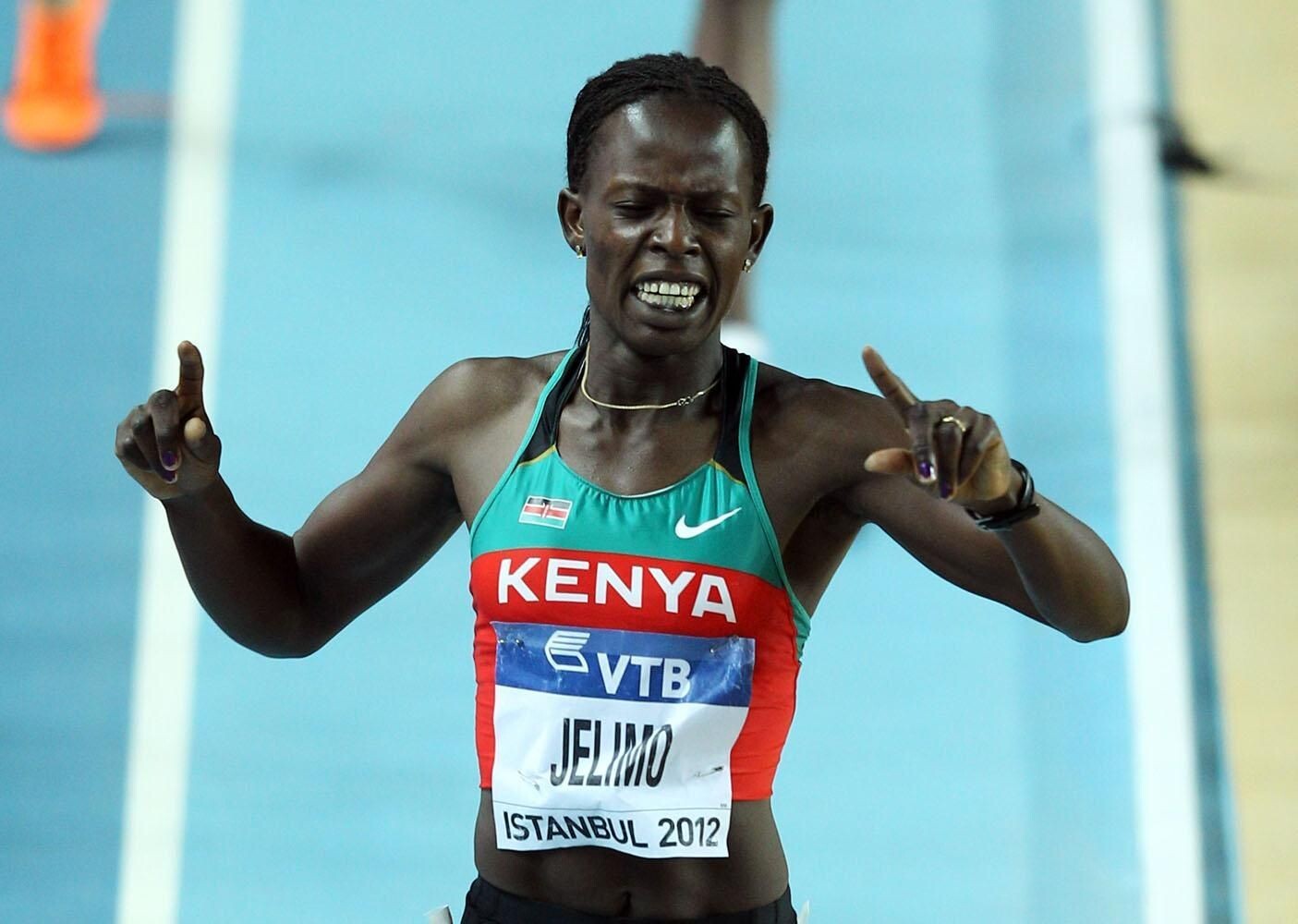
The case has had far-reaching implications, not only for Poistogova-Guliyev but also for other athletes in the 2012 Olympic 800m event.
Pamela Jelimo, the London Olympic bronze medallist, will be elevated to silver, and American Alysia Montano, who finished fifth, is set to inherit the bronze, pending official confirmation.
This adjustment stems from a broader investigation into systematic doping within Russian athletics, spearheaded by the World Anti-Doping Agency (WADA).
WADA had initially recommended a lifetime ban for Poistogova-Guliyev in 2015, alongside the stripping of her London medal, as part of its findings on state-sponsored doping.
Although the Court of Arbitration for Sport (CAS) imposed a two-year ban on Poistogova-Guliyev in 2017, her results were initially voided only back to October 2015, allowing her to retain her Olympic medal temporarily.
The recent decision by RusAF to extend the voiding of her results to July 2012 effectively strips her of the medal, subject to final approval by the International Olympic Committee (IOC).
The women's middle distance events at the London Olympics have been notably affected by doping, with three runners in the 800m final, including Poistogova-Guliyev, Mariya Savinova, and Elena Arzhakova, having their results voided due to doping offences.
Jelimo's elevation to the silver medal position comes after a long wait; it took 10 years for her to be awarded the bronze medal for the same event, following the disqualification of Maria Savinova for doping violations.
The reallocation of medals in cases of doping violations is a complex and often slow process, involving multiple organisations including WADA, CAS, RusAF, and the IOC.
The final decision on the redistribution of medals from the 2012 Olympics will be closely watched by the athletics community and represents a critical step in the ongoing fight against doping in sport.
Poistogova-Guliyev's ban, which lasts until 2026, reflects a deduction for the time served under her previous CAS-imposed sanction.
In addition to her case, RusAF has announced a two-year and six-month ban for 3,000m steeplechaser Nikolay Chavkin for similar doping offenses.
by Festus Chuma
Login to leave a comment
Paris 2024 Olympic medals to feature pieces of the Eiffel Tower
On Thursday, organizers of the Paris 2024 Olympic and Paralympic Games unveiled a unique addition to this year’s Olympic medals: pieces of the iconic Eiffel Tower. Each medal for the Games will incorporate a hexagonal piece of iron taken from the heart of the Eiffel Tower, Paris’s most recognizable monument.
Built for the Exposition Universelle (World’s Fair) in 1889 to celebrate the 100th anniversary of the French Revolution, the tower was designed to showcase France’s industrial prowess and serve as a symbol for the city. Each piece will be a focal point in the center of the medals.
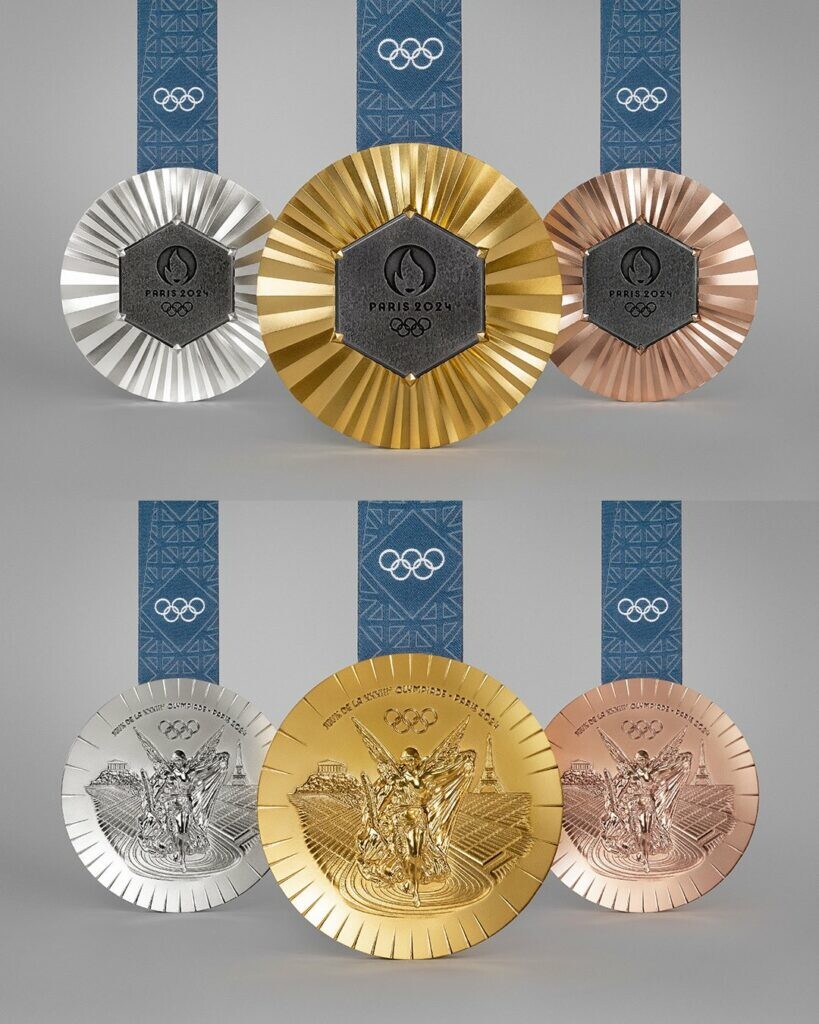
Crafted by the French jeweller, Chaumet, the six-sided piece will be in the medal of all 5,084 gold, silver and bronze medals. “We wanted to offer a piece of the 1889 Eiffel Tower to all the medalists of the Paris Olympic and Paralympic Games,” said Paris 2024 president Tony Estanguet.
You may be asking where did the metal come from? No, it was not cut directly off the Eiffel Tower. According to Inside The Games, the metal was sourced from a metal warehouse in Paris by the company responsible for maintaining the 330-meter landmark. The use of recycled metal is also in line with the trend seen at the Tokyo Olympics, where the metals were made partly from consumer electronics.
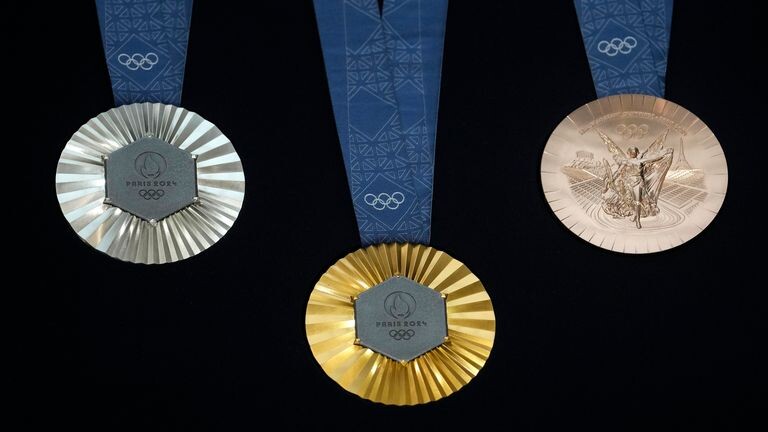
The reverse side of the medals will feature the Greek goddess Nike flying toward the historic Panathinaikos Stadium in Athens, a tradition since 2004. With the approval of the International Olympic Committee (IOC), Paris organizers modified the design to incorporate the Eiffel Tower in the background.
Beyond the medals, the Eiffel Tower will play a central role in the festivities at the Games. From the opening ceremony, where sports teams will sail down the River Seine, to the potential placement of the Olympic flame atop the tower, the iconic landmark will be a focal point throughout the Olympic and Paralympic Games, which run from July 26 to Aug. 11, and the Paralympics, from Aug. 28 to Sept. 8.
by Marley Dickinson
Login to leave a comment
Paris 2024 Olympic Games
For this historic event, the City of Light is thinking big! Visitors will be able to watch events at top sporting venues in Paris and the Paris region, as well as at emblematic monuments in the capital visited by several millions of tourists each year. The promise of exceptional moments to experience in an exceptional setting! A great way to...
more...Doping-approved games receive massive financial boost ahead of first-ever event in 2025
The doping-approved Enhance Games has received a huge financial boost from the co-founder of PayPal, Peter Thiel, and cryptocurrency investor Christian Angermayer among other billionaires.
Aron D’Souza, the man behind the doping-enthused Enhanced Games, has revealed he received millions of dollars in financial backing for his entrepreneurial idea a year and a half before his first planned Games in 2025.
As per the Canadian Running Magazine, D’Souza revealed that German-American billionaire and co-founder of PayPal, Peter Thiel, has invested a “single-digit million-dollar number” into the Enhanced Games.
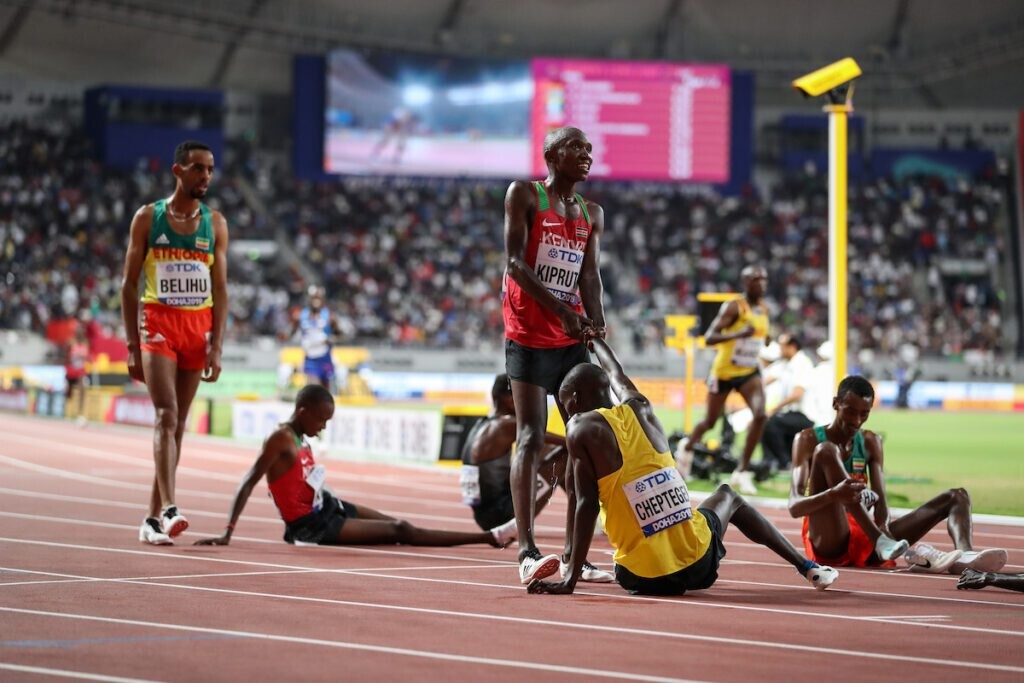
He disclosed that Thiel isn’t the only investor on board since cryptocurrency investor and billionaire Christian Angermayer and Balaji Srinivasan, former CTO of crypto exchange Coinbase, have also invested in his idea.
Meanwhile, D’Souza wants to provide an alternative to what organizers perceive as a ‘corrupt Olympics’ and he openly criticizes the International Olympic Committee (IOC) for its alleged exploitation of athletes, lack of payment of athletes, and rejection of “enhanced” world records.
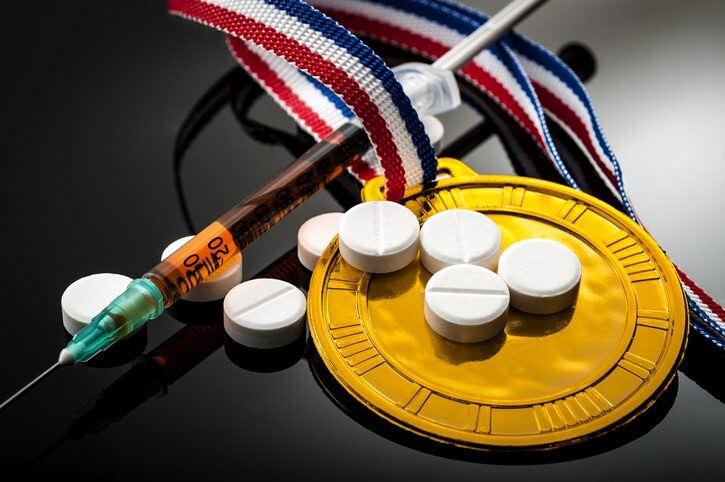
On their website, they openly speak about using science and focusing on core sports, aiming to break world records and ensure fair compensation for athletes.
They insist that performance-enhancing drugs, when used responsibly, can significantly enhance training outcomes and allow athletes to reach their full potential.
“The Olympic Games are this ancient model reinvented by a colonialist aristocrat in 1896 for the Victorian world.
“We need to design a modernized Games for social media [like TikTok and Instagram] and broadcast television for short attention spans,” he added.
The Enhanced Games will focus on a limited number of events that are of high interest, like track and field, and swimming.
“The core focus of the Games is breaking world records. We only want athletes who have the potential to break world records in sports that actually matter. And so by having a much narrower set (of events), we can deliver much more cost-effectively,” he said.
Speaking about the prize money, the Enhanced Games competitors will be paid a base rate for competing, with bonuses for winning events and setting world records.
“We anticipate there’ll be multi-million-dollar prize pools for breaking world records. We have to create real incentives for athletes to jump ship from this very established prestigious system,” he added.
by Abigael Wuafula
Login to leave a comment
Sebastian Coe says Russia, Belarus still banned, but situation could change
Athletes from Russia and Belarus are still banned from athletics events at the 2024 Paris Olympic Games, but World Athletics president Sebastian Coe said on Monday that the situation could change, and that a working group is monitoring it.
Earlier this month, the International Olympic Committee (IOC) approved the participation of Individual Neutral Athletes (AINs) at next year’s Olympics.
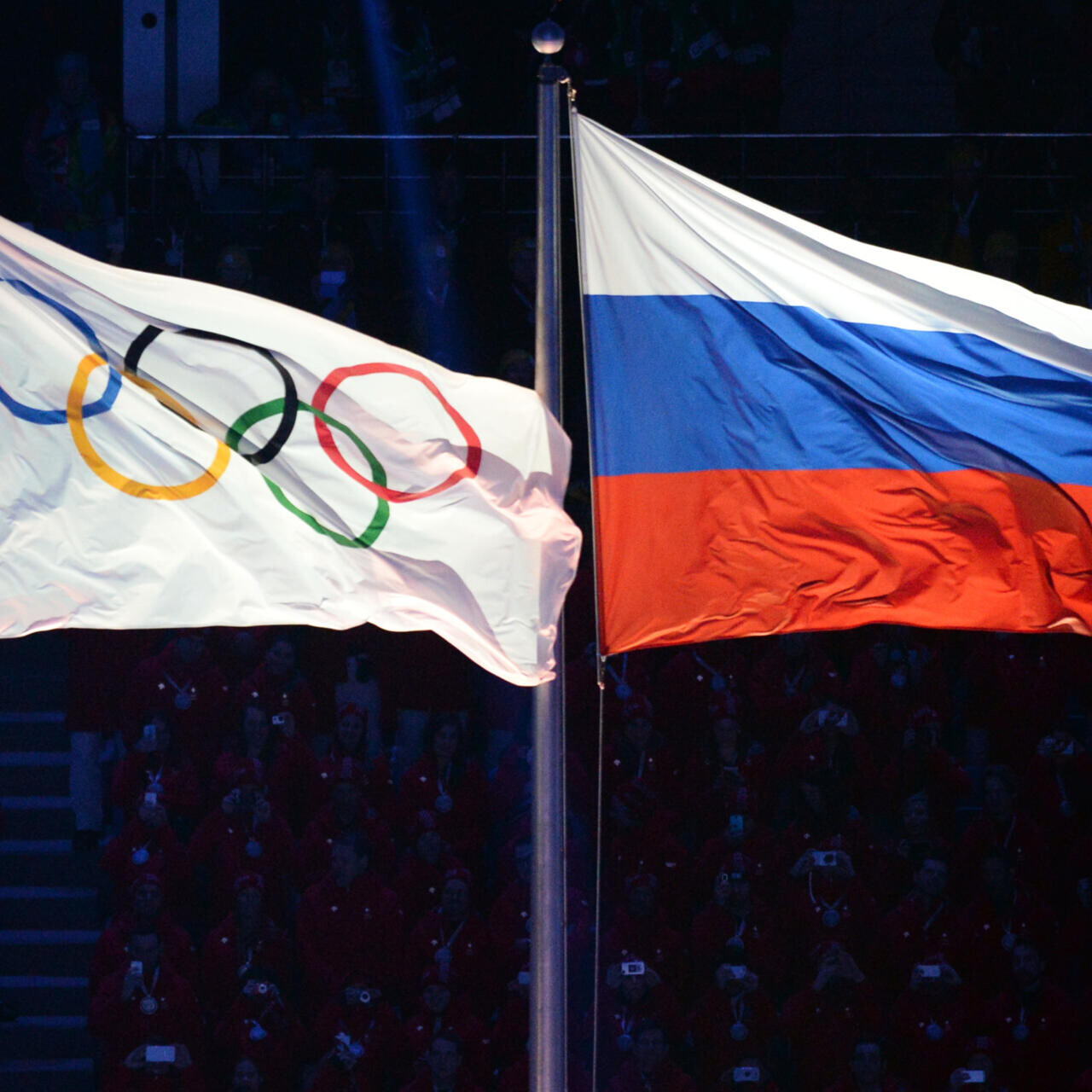
Athletes holding a Russian or Belarusian passport who have secured their places through existing qualification systems on the field of play will be deemed eligible to compete at Paris 2024, following specific conditions.
World Athletics, however, decided to stick to the blanket ban despite the IOC’s decision.
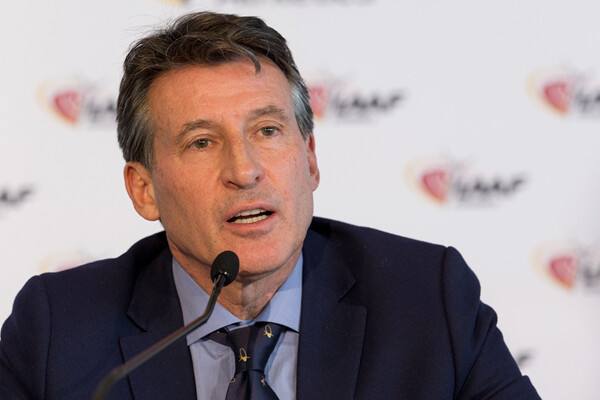
Athletes from both countries have faced a multitude of sanctions from international competitions since the conflict in Ukraine began in February 2022.
During a media call with agencies including Xinhua on Monday, Coe confirmed “there is no change [to the ban]”, but expressed hope that the sanctions could be lifted.
“The most important thing is that the autonomy and independence of international federations to make these judgements is really important. We made a judgement which we believe was in the best interest of our sport,” he said.
“Do I see anything changing in the foreseeable future? I don’t know. The world changes every five minutes, the situation could change. We do have a working group that is monitoring the situation within the sport, and it will advise and guide the Council on what circumstances might need to exist for any exclusion to be lifted,” Coe added.
Coe also expressed his confidence in the competitiveness of the athletics competitions in Paris, following a “stupendous” season that has seen 23 world records and nine world U20 records broken in 2023.
“The one word I would use [to sum up the 2023 season] is stupendous,” he said. “I can’t remember a season that has delivered more high quality performances across a broader bandwidth of disciplines.”
“Everywhere you look, you have the potential for some extraordinary head-to-heads in the sport, in pretty much every discipline,” added Coe.
Login to leave a comment
Paris 2024 Olympic Games
For this historic event, the City of Light is thinking big! Visitors will be able to watch events at top sporting venues in Paris and the Paris region, as well as at emblematic monuments in the capital visited by several millions of tourists each year. The promise of exceptional moments to experience in an exceptional setting! A great way to...
more...The Mysterious Case of the Asthmatic Olympians
You won’t freeze your lungs exercising outdoors this winter, but there are reasons to be cautious about inhaling extremely cold air
When an athlete reaches the podium despite a prior medical event—a cancer diagnosis, say, or a car accident—we consider it a triumph of the human spirit. When a bunch of athletes do so, and all of them have suffered the same setback, we can be forgiven for wondering what’s going on. According to the International Olympic Committee, roughly one in five competitive athletes suffers from exercise-induced bronchoconstriction, or EIB, an asthma-like narrowing of the airways triggered by strenuous exercise. The numbers are even higher in endurance and winter sports. Puzzlingly, studies have found that athletes with EIB who somehow make it to the Olympics are more likely to medal. What’s so great about wheezing, chest tightness, and breathlessness?
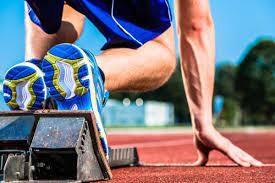
The answer isn’t what you’re thinking. Sure, it’s possible that some athletes get a boost because an EIB diagnosis allows them to use otherwise-banned asthma medications. But there’s a simpler explanation: breathing high volumes of cold or polluted air dries out the airways, leading to an overzealous immune response and potential long-term damage. “It’s well established that high training loads and ventilatory work increase the degree of airway hyper-responsiveness and hence development of asthma and EIB,” explains Morten Hostrup, a sports scientist at the University of Copenhagen and lead author of a new review on EIB in the Scandinavian Journal of Medicine and Science in Sports. In other words, the athletes who train hard enough to podium are more likely to develop EIB as a result.
That trade-off might be worthwhile if it means competing at the Olympics. For those of us who simply enjoy spending our winter days vigorously exploring the outdoors, the risk of EIB remains mostly unknown territory. Activities with the highest risk involve sustained efforts of at least five minutes, particularly if they take place in cold or polluted air. Cold air doesn’t hold much moisture, so it dries the airways. This affects skiers, runners, and triathletes, among others. Indoor environments like pools and ice rinks are also a problem, because of the chloramines produced by pool water and exhaust from Zambonis. As a result, swimmers, ice skaters, and hockey players are also at elevated risk of EIB. Over time, repeated attacks can damage the cells that line the airways.
Unfortunately, many athletes develop symptoms of EIB without realizing the underlying problem. After all, the feeling that you can’t catch your breath is pretty much written into the job description of most endurance activities. But starting in the 1990s, sports scientists began to suspect that top athletes had more breathing problems than would be expected. Before the 1998 Winter Games, U.S. Olympic Committee physiologists examined Nagano-bound athletes to see whose airways showed abnormal constriction in response to arduous exercise. Almost a quarter of the athletes tested positive, including half the cross-country ski team.
One reason EIB often flies under the radar is that the usual diagnostic workups aren’t challenging enough to provoke an attack in conditioned athletes. Among the accusations against disgraced coach Alberto Salazar was that he showed athletes how to fool EIB tests to get permission to use asthma meds. “He had a specific protocol,” star 5,000-meter runner Lauren Fleshman told ProPublica in 2015. “You would go to the local track and run around the track, work yourself up to having an asthma attack, and then run down the street, up 12 flights of stairs to the office and they would be waiting to test you.” Salazar certainly gave some shady advice, including encouraging Fleshman to push for the highest possible dosage of medication. But his tips for gaming the asthma test were similar to what USOC physiologists advocate, and an IOC consensus statement published last spring also concluded that more intense exercise challenges are better for diagnosing EIB in conditioned athletes. If you’re really fit, in other words, the rinky-dink treadmill in the doctor’s office isn’t going to push you hard enough.
If you do get an EIB diagnosis, your doctor can prescribe asthma medication, including inhaled corticosteroids like fluticasone and airway dilators like salbutamol. If you’re an elite athlete subject to drug testing, you’ll need to tread carefully, since some of those medications are either banned or restricted to a maximum dosage. Hostrup and his colleagues note that there’s also evidence that fish oils high in omega-3 fatty acids, vitamin C, and even caffeine might help reduce EIB symptoms. And on the non-pharmaceutical side, you can minimize the chance of an attack by doing a thorough warm-up of 20 to 30 minutes, including six to eight 30-second sprints. This can temporarily deplete the inflammatory cells that would otherwise trigger an airway-narrowing attack.
The best outcome of all, of course, is to avoid developing the problem in the first place. In 2008, I interviewed a Canadian military scientist named Michel Ducharme, who told me stories of cross-country skiers swallowing Vaseline in an attempt to protect their airways from the cold. This is a terrible idea on many levels—and, he assured me, totally unnecessary. Air warms up very quickly when you inhale it, so there’s no risk of freezing your throat tissue. But dryness is another question, and scientists have reconsidered whether some kind of protection—just not Vaseline—could be useful if you’re going hard on cold days.
One option is a heat-and-moisture-exchange mask, which warms and moistens the air you inhale. A company called AirTrim makes them with a range of levels of resistance for training or racing. Several studies have found that this type of mask seems to reduce EIB attacks. Research by Michael Kennedy at the University of Alberta found that EIB risk increases significantly when temperatures drop below about five degrees Fahrenheit. The precise threshold depends on conditions and individual susceptibility, so if you start coughing or wheezing, that’s a sign your airways are irritated. If you don’t have a breathing mask, a scarf or a Buff over your mouth can offer a temporary solution.
Don’t take all this as a warning against getting outdoors in the winter. I live in Canada, so staying inside when it’s below five degrees Fahrenheit would be a death sentence. But I’m no longer as macho about the cold as I used to be. I wear puffy mittens and merino base layers, and when my snot starts to freeze I cover my mouth and nose. Athletes with EIB may do better than their unimpaired peers at the Olympics, but that’s one edge I can do without.
by Outside Online
Login to leave a comment
The Fight Over the Olympic Trials Start Time Has Ended. But the Real Issue Runs Deeper.
Following significant athlete pushback, USA Track & Field moved the race’s start time earlier. But the governing body also needs to offer Trials host cities a better deal to prevent similar issues in the future.
It’s become a tradition of sorts that every Olympic Games needs to be preceded by stories of scandal and intrigue, so it’s perversely appropriate that the lead-up to the Olympic Team Trials marathon next February has been plagued with its own mini-fiasco.
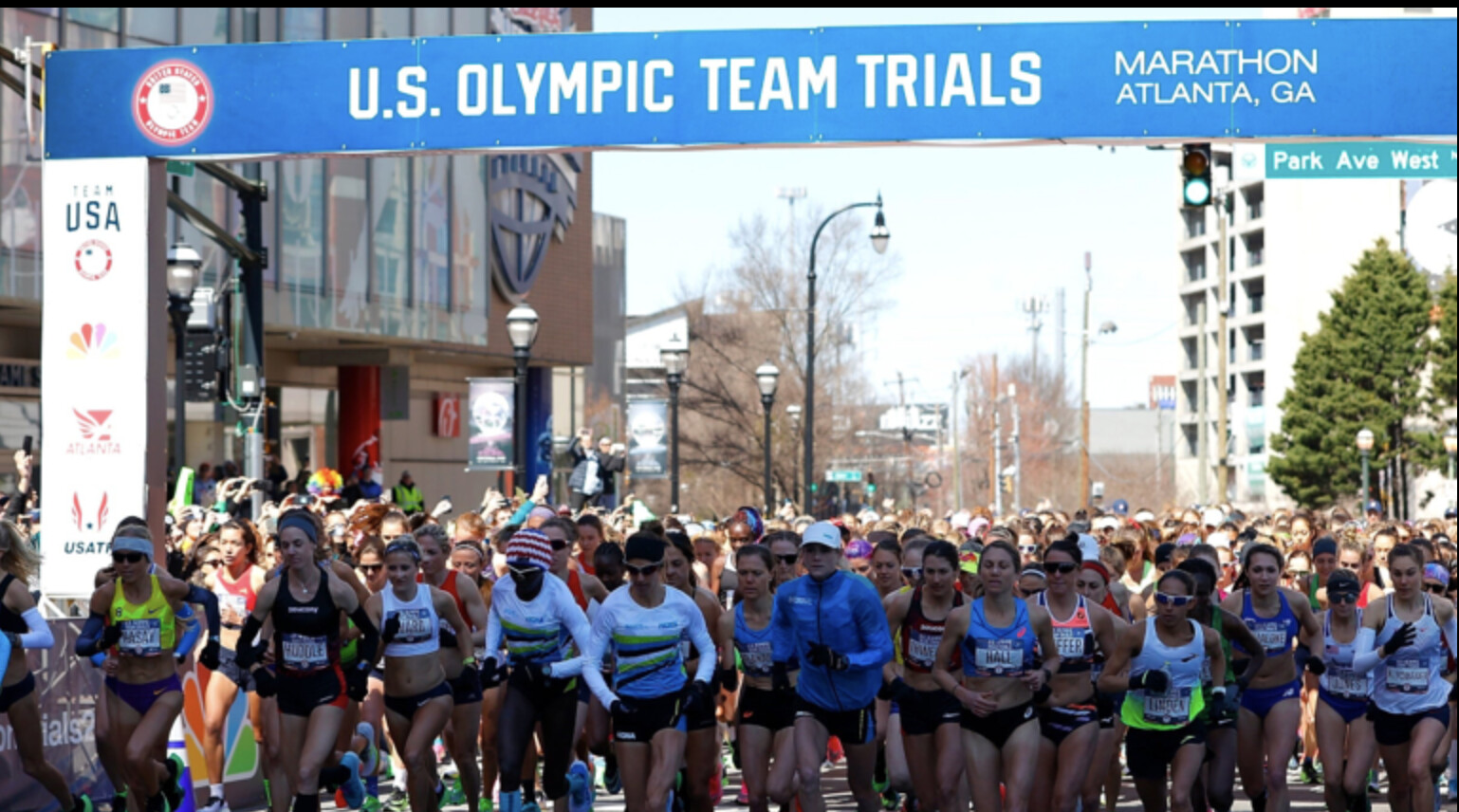
It began this past summer, after it was announced that the 2024 U.S. Olympic Trials marathon would take place shortly after noon on February 3, 2024. Not everyone was thrilled with the late start as the Trials are happening in Orlando. For some, staging a competitive, high-stakes marathon in the middle of the day in Florida seemed like a blatant disregard for athlete health.
In September, nearly 100 Trials participants co-signed a letter from the Athletes Advisory Committee to USA Track & Field leadership requesting that the race start time be moved to 6 or 7 A.M. to protect the participants from potential heat-related illness and injury. Following a private meeting with USATF CEO Max Siegel, the Athlete Advisory Committee was initially optimistic that the start times would be changed. However, two weeks ago, the Committee publicly reprimanded the Greater Orlando Sports Commission (GO Sports), the local organization responsible for putting on the Trials race. In a letter that was shared with the public, Trials athletes expressed their chagrin that while USATF and their television partners at NBC seemed amenable to an earlier start time of 10 A.M., GO Sports was refusing to budge on a noon start, unless they were compensated to the tune of $700,000.
“It is difficult to find words capable of expressing how angry and disappointed the athletes are to hear the ultimate hurdle they face is with the Greater Orlando Sports Commission,” the letter from the athletes read. In response, the owners of Track Shack, an Orlando-based running specialty store and event management company that is co-hosting the Trials, published an open letter of their own in which they maintained that they had been unfairly “blindsided” by the eleventh-hour request to move up the start time. The local organizers had repeatedly been told by USATF that a noon start was “non-negotiable,” largely due to the economic incentives of having a live TV broadcast of the race at a desirable time slot, and had developed their business model accordingly. This week, however, USATF announced that all parties had agreed on a 10 A.M. start after all. So much for non-negotiable.
As far as scandals go, an argument over the appropriate start time of a 26.2-mile road race isn’t exactly edge-of-your-seat type stuff. When I spoke to Rich Kenah, the CEO of the Atlanta Track Club and race director for the last Olympic Trials race, he told me that while “any opportunity for our sport to be ‘above the fold’ so to speak, tends to be good, when the challenges of our business are front and center, I think it has a detrimental effect on future opportunities for the sport to grow and flourish.”
Kenah is cautious not to make too much out of the start time debacle. He says that there’s almost always some sticking point when a local organizing committee has to coordinate with USATF in a way that satisfies the needs of their Olympic and broadcast partners. For Kenah, the larger issue, and the root cause of these more minor friction points, is a Trials business model that always puts the entire financial burden on the host.
For anyone who wants a detailed analysis of why that model is not sustainable, I’d recommend Jonathan Gault’s extensive report, published last year on Letsrun.com. In brief, the problem of the current Trials model is that it appears to mimic, albeit on a vastly smaller scale, the parasitic behavior of the International Olympic Committee, which takes in billions in sponsor and television revenue, while the host city is left to bankroll the lion’s share of the Games. While the cost of hosting the Olympic Trials might “only” be around two or three million dollars, that’s a hefty price tag for a running events company like the ATC, which has few viable ways to generate revenue from the event. (The local organizer cannot secure sponsorship agreements that threaten the exclusivity of USATF and USOPC partners, which leaves them with limited options.) In addition to being on the hook for all the operational and logistical costs of staging a world-class marathon, the local organizing committee is required to pick up the bill for stuff that, one would think, could be at least partially subsidized by USATF—like athlete prize money (at more than $500,000, this is one of the larger costs of staging the event) and event promotion ($75,000 minimum). As a final insult to injury, the Trials host needs to pay USATF a $100,000 rights fee.
With both the Olympic Games and the marathon Trials, prospective hosts are of course promised that staging the event will be a boon for the local economy. (The “Request for Proposal” guidebook for the 2024 Trials estimates that the “economic impact” of the event is around $20 million for the host city.) Arguably the bigger selling point is the sheer prestige of being associated with the Olympic brand. Hosting a Trials race can potentially elevate the profile of a city’s signature marathon.
Prestige, however, is a fickle thing. It’s no secret that the chorus of pushback against the Olympics has only grown louder in recent years, as more and more prospective host cities have retracted their bids. The Trials race—frequently touted as America’s greatest marathon—seems to be in danger of a similar fate. Only two cities were ever cited as showing any interest in hosting the 2024 edition; after Chattanooga was disqualified in another mini-scandal that is still playing out, Orlando seemed to be the winner by default. This does not bode particularly well for the future.
When it comes to fixing the Olympics, one idea that is frequently proposed is to give the Games a permanent home, or to rotate it between just a few cities; the idea is that this could help reduce costs by having a pre-set infrastructure already in place. What’s more, it could eliminate the rigmarole of the bidding process. Could something similar be the salvation for the U.S. Trials marathon? At the very least, having the race in the same location each time would allow the host to fine-tune their event with each iteration-—a win for the athletes. For better or worse, we already have a de facto permanent home for the Olympic Trials in track and field, which next summer will be staged in Eugene for the fifth consecutive time.
Brant Kotch, the former race director of the Houston Marathon who oversaw the city’s hosting of the Olympic Trials in 2012, told me that when his team tried to host the event again in 2016, part of their pitch was that they wanted to “make Houston the Eugene of long-distance road racing.” When Houston hosted in 2012, the event was a massive success; they had perfect weather and big-time performances from the stars of the sport. And, thanks largely to a million dollar grant from the state of Texas to help subsidize large-scale sporting events, they were able to host the race without taking too much of a financial hit. According to Kotch, Houston had a solid bid to host the 2016 Trials (one that was apparently unanimously approved by USATF’s Long Distance Running Division), but USATF’s leadership ultimately decided to give the race to Los Angeles. When we spoke, Kotch still sounded slightly bitter about being passed over.
Houston hasn’t tried to host the race again. There are some logistical reasons for this—for one, massive downtown construction projects in the intervening years have made the 2012 course obsolete—but economics are a significant factor. As someone open to the idea of a permanent home for the Trials, Kotch says that the only way that this will work, long-term, is for the sport’s national governing body to help subsidize the race: “With respect to its Olympic Trials, USATF has to pony up some amount of money. This is distance running. You can’t sell any tickets.”
Kenah agrees. He thinks that it would be in everyone’s best interest if USATF would incite competition between prospective host cities by promising some kind of revenue share system from one of its marquee events. (USATF did not respond to a request for comment on the suggestion that it should shoulder more of the cost to host the Trials.)
“Right now, you cannot make money hosting the Olympic Trials marathon,” Kenah told me. “I don’t care who you are or where you are, it’s just not possible with the current model.”
When I floated the idea of hosting the Olympic Trials marathon in the same place every Olympic cycle, Kenah told me that he was still very much in favor of moving the event to different cities. He mentioned that his father took him to see the Millrose Games in New York City when he was a kid. There was a distinct physical thrill to witnessing professional track and field up close that made him fall in love with the sport for life. (Kenah made the U.S. Olympic Team in 2000 and ran the 800-meters at the Sydney Olympics.)
“There is nothing better than experiencing the sport in person,” Kenah says. “If we had an Olympic Trials marathon in cities around the country, big and small, we would expose the sport in a very real, experiential way that otherwise kids of the next generation would not get. But that can be only accomplished if the current business model is just blown up.”
by Outside Online
Login to leave a comment
Chebets sets focus on 2024 Olympic Games after stellar season
Commonwealth Games 5000m champion Beatrice Chebet has said she has honed her skills sufficiently to secure a podium finish at the 2024 Paris Olympic Games.
Chebet, who blazed to the bronze medal in her specialty at the Budapest World Championships in July, said she is ready to secure the coveted gold at the quadrennial global extravaganza that will be held in July and August.
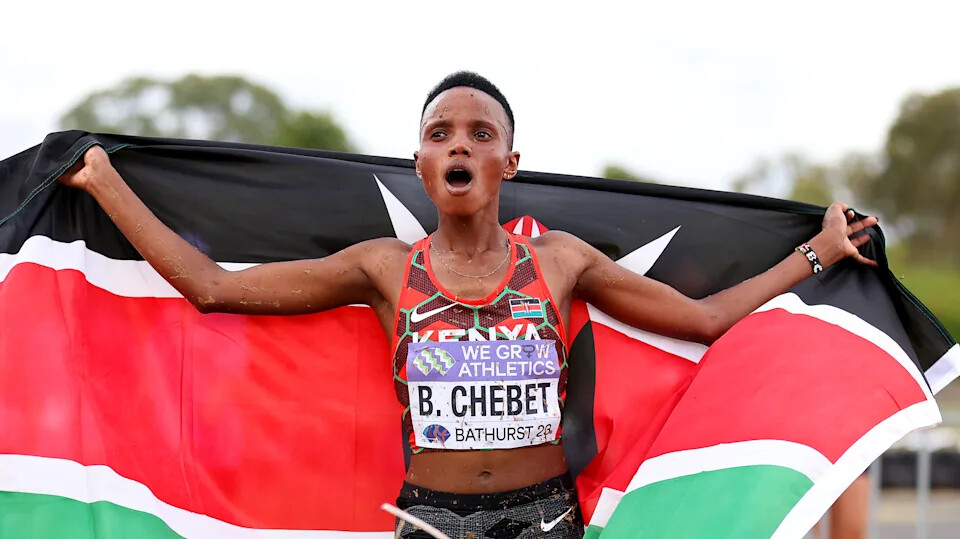
"I have prepared well for the Olympics and I'm grateful for the fine form I've accomplished this year," Chebet said in an exclusive interview.
"Winning an Olympic medal is everyone's dream and I am no different," she added.
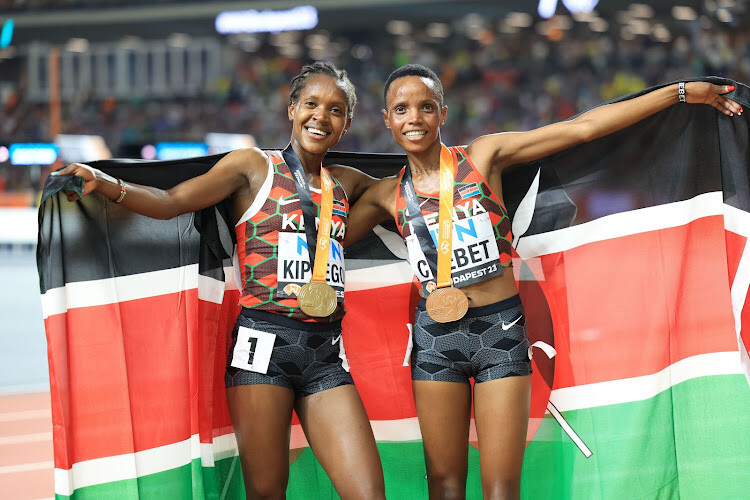
Chebet spoke a couple of days after storming the gold medal in the 5km race at the inaugural World Road Running Championships held in Riga on Sunday.
The victory confirmed her status as a dominant force on the international front.
She cruised through the course in an amazing 14:35 to register the fifth fastest time in the history of the 5km road race ahead of compatriot Lilian Rengeruk, and Ethiopia's Ejgayehu Taye, who settled for the silver and bronze medals respectively.
The victory further embellished her rich trophy cabinet which also boasts a gold bagged at the World Cross Country championship held in Bathurst, Australia in February.
Chebet said the presence of compatriot Faith Kipyegon in the race is a great source of inspiration, adding that she is not quaking in the boots at the mere thought of facing her over the distance.
Despite crashing to Kipyegon and Sifan Hassan of The Netherlands in the 5000m at the World Championships in Belgrade, Hungary, Chebet said she will do her best to reclaim her bragging rights in the 12-lap race.
"It will make the race all the more interesting and I believe the country is bound to benefit immensely if we field a strong team in Paris," Chebet said.
"Her presence in the race will also take the competition a notch higher," she added. The International Olympic Committee (IOC) approved Kenya's request to field Kipyegon in both the 1500m and the 5000m races at the upcoming Paris Games.
by Tony Mballa
Login to leave a comment
10 Things to Know About the World’s Fastest Man
Zharnel Hughes is the British record holder and the world’s top-ranked 100-meter sprinter this year who will bid for his first individual title at the World Championships in Budapest
American athletes have long dominated the 100-meter dash ever since the inaugural World Championships in 1983, amassing 11 titles in the event, the most of any nation. But for this year’s World Championships that kick off this Saturday—the most prestigious senior track competition outside of the Olympic Games—British record holder Zharnel Hughes wants to change the tally.
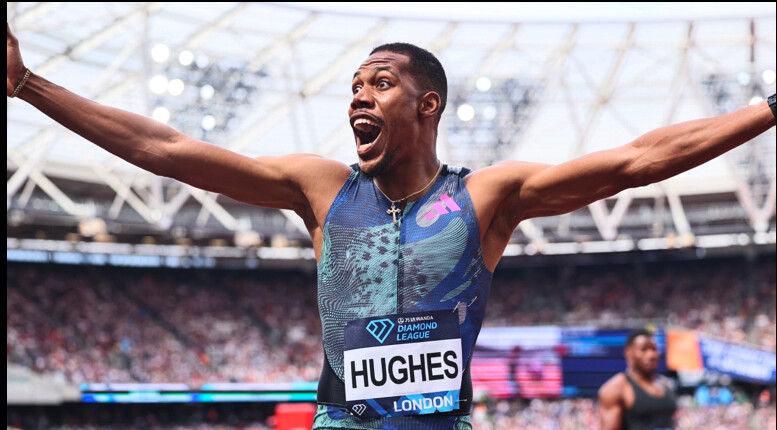
He enters the field with the fastest 100-meter time in 2023 (9.83 seconds), which he achieved in June at the USATF New York Grand Prix. The mark ranks Hughes as the 15th fastest of all time in the event, 0.25 seconds behind the world record held by eight-time Olympic gold medalist Usain Bolt.
Hughes, who has competed at three World Championships throughout his career, has twice-earned a silver medal in the 4 x 100-meter relay. And though he has come close—he was second in the 100-meter dash at the previous world champs—Hughes has never won an individual gold medal. If he is successful at the 2023 World Championships in Budapest, Hungary, August 19-27, Hughes will become the second man ever representing Great Britain to win the men’s 100-meter title, the marquee event of track and field.
Here are 10 things to know about the fastest man in the world in 2023:
Zharnel Hughes, 28, was born and raised on the island of Anguilla, a British territory in the Eastern Caribbean that is a mere 16 miles long and three-and-a-half miles wide. He holds dual citizenship for Great Britain and Jamaica. During his youth, Hughes competed for Anguilla, which is not recognized by the International Olympic Committee. In 2015, he opted to transfer his allegiance to represent Great Britain at international competitions.
Hughes hails from a family of runners on his father’s side, and his two younger brothers ran until high school. He got into the sport at age ten, often running against (and beating) peers. He competed in various track events, including the high jump, long jump, 400 meters, and 1500 meters.
“There was an annual sports day [at school], my first competition. At the end of it, I got seven medals—five gold, two silver. I got a trophy for being the most outstanding athlete of the day,” Hughes said. It gave him an early and strong impression of what else he might be capable of on the track.
Growing up, Hughes often watched YouTube videos of elite Jamaican sprinters, like world record holder Usain Bolt, as well as Yohan Blake, the third-fastest man in history. As fate would have it, Hughes would train alongside both of them when he moved to Jamaica as a teen to join the Racers Track Club, led by legendary coach Glen Mills.
Hughes describes his first in-person encounter with Bolt in 2012 as surreal. “I was striding on the grass field. I saw Usain on my left. He looked like a giant. He was striding as well. I just started mimicking everything he was doing. I don’t know why. I was young, 16. I was looking at Usain all in shock,” Hughes recalled. “Here’s the world’s fastest man. I’m right next to him!”
Hughes modified his training schedule to gym work in the morning and a two-hour sprint session in the afternoon and can be seen sprinting alongside “the youths” on the Racers Track Club, he says, adding, “they’re fast, they push me, and I like a challenge.”
Hughes points to nearly outrunning Usain Bolt in the 200-meter race in 2015 at his debut Diamond League meet—the Adidas Grand Prix in New York City—as one of his most memorable races. “Just before coming off the turn, I realized I was right there with Usain. I started running for my life,” Hughes said. “I was getting close to the line, and I was still there with him. I tried to lean forward, but his stride was longer than mine. The entire stadium thought that I won. Everybody was like, ‘Noooo!’” The race made headlines in Anguilla, and Hughes remembers motorcades and banners went up with his name on them.
The morning of June 24, 2023, prior to heading to the starting line of the New York City Grand Prix, Hughes wrote down the time he predicted he’d run: 9.83 seconds. He achieved exactly that, and it was a victory that shaved 0.04 seconds off the British record, previously set by Jamaican-born British Olympic champion Linford Christie at the 1993 World Championships in Stuttgart, Germany.
Hughes tore a ligament in his right knee after falling in a race in 2016 and consequently was absent from the Rio Summer Olympics. At the 2020 Tokyo Olympics, he qualified for the 100-meter final, but he couldn’t contend for a medal after a false start. Hughes later said the mishap was due to a sudden cramp in his left calf while in his set position in the starting blocks.
Hughes started investing in his nutrition at age 18. To this day, his diet is very conservative, partly the influence of a close friend, who is a bodybuilder. His morning routine includes a fruit smoothie, preferring bananas, pineapples, watermelon, and cantaloupe. He’ll sometimes blend spinach and oats. Boiled eggs, omelets, fish, and chicken are his protein staples. He likes to hydrate with coconut water every day, and he never leaves home without a snack, typically a Nature Valley granola bar. “Nutrition helps a lot, trust me,” Hughes said. “It helps keep injury away. Because your body is always being fed, it doesn’t feed on itself.”
While he had to wean himself away from his vice, chocolate cake, he maintains a nightly ritual of a bowl of corn flakes, which he says helps him sleep. On a rare occasion he splurges on a Burger King cheeseburger.
During a flight, Hughes will go to the back of the aircraft to stretch. “I don’t care if anyone is looking at me,” he said. As soon as he lands, he tries to do a shakeout run, sprinting 50 meters on a hotel walkway for up to 15 minutes, or else he’ll put on compression boots and later have his physio flush out his legs.
When he was 11, Hughes flew with a pilot from Anguilla to the British Virgin Islands. He remembers sitting in the cockpit, tempted to play with the instruments inside the aircraft. Only after the plane landed and was switched off did he have the opportunity to grab the control wheel. The experience encouraged his dream of becoming a pilot. He fulfilled his childhood goal of earning a pilot’s license in 2018, seven months after studying at the Caribbean Aviation Training Center in Jamaica.
So as not to interfere with track, he’d often arrive at the aviation center as early as 5 A.M. “I had to make a lot of sacrifices to make it happen,” he said, noting that on a couple of occasions he reconsidered pursuing the license. Flying is now one way he spends time before mid-afternoon track sessions. At times he has flown a Cessna 172, a single-engine prop plane, up to four days a week for an hour and as far away as Montego Bay in Jamaica.
Catch Hughes in action when he takes the starting line on August 19, day one of competition, for the first round of heats for the men’s 100-meter dash.
by Outside Online
Login to leave a comment
Ukrainian team prepares for World Athletics Championships
The Ukrainian athletics team will gather in Slovakia this week for a final training camp before travelling to Hungary for the World Athletics Championships Budapest 23, starting in less than three weeks (August 19).
World Athletics’ Ukraine Fund and the International Olympic Committee’s Solidarity Fund have combined to provide training camp accommodation for 40 athletes and officials in Banska Bystrica, Slovakia, which will allow Ukraine’s top athletes to complete their final preparations for their most important competition of the year.
World Athletics has provided additional accommodation for three athletes and their families for an extended period in Bankska Bystrica, from 1 June to 30 September.
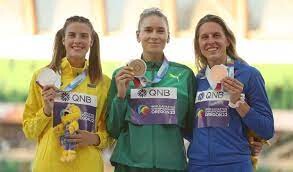
World Athletics President Sebastian Coe said: “We understand how important and inspirational Ukraine’s athletes are to their country at this terrible time and we want to give them every opportunity to compete and excel, despite the great hardship being visited on them and their communities by this horrific war. They have lost so much and the least we can do is help them to keep their athletics dreams alive. I am full of admiration for their fortitude and resilience and I am looking forward to welcoming the Ukrainian team to the National Athletics Centre in Budapest in the coming weeks.”
The general secretary of the Ukrainian Athletic Association Iolanta Khropach offered her “heartfelt thanks” for the “important financial assistance provided during this terrible war in our country”.
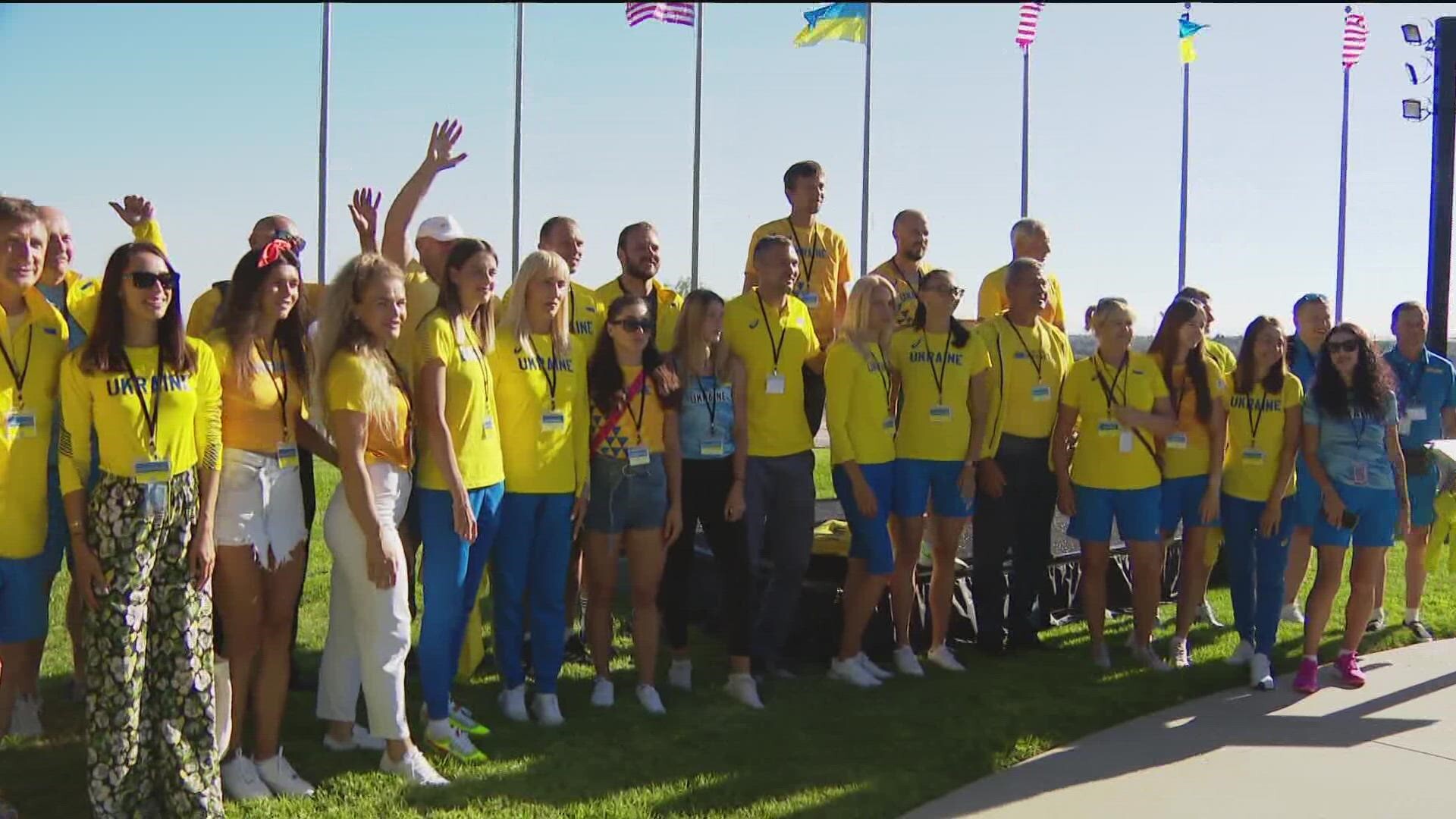
“Your unwavering belief in us has made a profound impact on the life of our team and the opportunities to prepare for world-class competitions,” she said. “Thanks to your support, we have been able to provide the best athletes of the Ukrainian team with the necessary conditions on the final stage of the preparation to the World Athletic Championships in Budapest to achieve their sports goals. We are happy to see your willingness to lend a helping hand in difficult times for us during the war.”
World Athletics and the US Olympic and Paralympic Committee funded a similar programme to help the Ukrainian team prepare for the World Athletics Championships Oregon22 last year, where two athletes emerged as medallists. World indoor champion Yaroslava Mahuchikh won the silver medal in the women’s high jump and Andriy Protsenko won bronze in the men’s high jump.
The IOC contributed an additional US$20,000 to support the Ukrainian team at the World Athletics U20 Championships in Cali last year.
Through its Ukraine Fund, World Athletics distributed more than US$220,000 last year to support Ukrainian athletes preparing for the World Championships and the World Athletics U20 Championships in response to the crisis caused by Russia’s invasion of Ukraine, and is distributing a further US$190,000 this year to support Ukrainian athletes preparing for Budapest.
This fund was launched by World Athletics, the Member Meetings of Diamond League Association and the International Athletics Foundation in April 2022 with the purpose of assisting professional athletes, immediate family members and their support personnel affected by Russia’s invasion of their home country.
This is in addition to the Solidarity Fund of US$7.5 million established by the International Olympic Committee (IOC) in February 2022 to support Ukrainian athletes and the Ukrainian Olympic community.
by World Athletics
Login to leave a comment
World Athletics Championships Budapest 23
From August 19-27, 2023, Budapest will host the world's third largest sporting event, the World Athletics Championships. It is the largest sporting event in the history of Hungary, attended by athletes from more than 200 countries, whose news will reach more than one billion people. Athletics is the foundation of all sports. It represents strength, speed, dexterity and endurance, the...
more...How to Properly Prepare for Hot-Weather Races
Ah, summertime! It's one of the best seasons for long trail runs, but it's also the hottest and one of the most difficult times to train.
As temperatures and UV indices climb, runners in many regions can feel the dew point explode, and that can make it seem like any semblance of fitness gained over the winter and spring is suddenly gone. We can all recall an early summer run that makes us not only question our confidence, but whether we're going to make it through the next few months.

There are notoriously warm races on the horizon, and there's a lot of talk about heat and how to mitigate it: sauna training, layering, topical cooling-all the tools to get amateur and elite athletes alike through challenging conditions. Many of the runners who just raced the Western States 100 had relied on mid-afternoon runs when temperatures were at their highest, as well as sauna or hot water immersion training. The race, as with many other summer and early fall races, typically boasts soaring high temperatures along sections at lower elevations.
For decades, the three most-watched sporting events worldwide-the Summer Olympics, FIFA World Cup, and the Tour de France-are typically held during the hot summer months of the Northern Hemisphere. However, prior to 2012, most of the scientific literature on heat acclimation for athletes was based on laboratory testing and controlled environments, and not from real competitions in scorching conditions. With eight of the hottest years in recorded human history having been logged since 2015, global sport organizations such as the International Olympic Committee have finally placed enormous emphasis on providing up-to-date guidelines and recommendations in order to keep athletes safe.
The COVID-19-delayed Tokyo Olympics in 2021 were the hottest Games in modern history with temperatures soaring into the mid-80s and humidity hovering at 82 percent during the women's marathon. The good news is that it sparked considerable discussion and hypothesizing in sport-science communities about best ways for the athletes and their teams to prepare and endure heat. Ultrarunners everywhere watched as the world's best distance runners implemented topical cooling techniques such as pre-competition ice vests and bags of ice during the marathon-a relatively new or at least a more aggressive tactic to attenuate the impact of heat before and during competition.
Heat is considered an equalizer, an element that everyone has to manage, no matter if you're attempting to train or race through it. But does it have to be a performance-sapping equalizer? Can heat training (potentially year round) be viewed as an opportunity to improve fitness, tolerance, and mental strength for challenging race day conditions?
How Heat Impacts Performance
First up, let's discuss what happens when athletes exercise in the heat. Blood flow to the skin, as well as sweat rate, increase to promote heat dissipation. While aimed at keeping the human body safe, these processes increase physiological strain and the chance for dehydration in prolonged endurance events, leading to a subsequent increase in cardiovascular strain. This creates a chain reaction that negatively impacts aerobic performance. Researchers globally agree that the most salient way to lessen the strain that heat imposes is to perform a heat acclimation period ahead of race day.
Improvements in aerobic performance and thermal comfort achieved through heat acclimation are bolstered by these processes, as outlined in a 2011 scientific article from the U.S. Army Research Institute of Environmental Medicine.
Heat Acclimation
Let's dive even further into what the science says about heat acclimation, when and how to implement it, and what athletes of all levels can do to mitigate heat stress before, during, and after exposure to a hot endurance event.
A study published in the British Journal of Sports Medicine in 2015 provided the first-of-its-kind, gold-standard consensus recommendations for heat acclimation, and remains one of the most cited pieces of recent literature regarding training and competing in heat, along with Julien Periard's comprehensive review from 2021 for the American Physiological Society. In both reviews, the authors discuss heat acclimation, hydration, and cooling strategies as the pillars of successfully competing in the heat.
The authors report that most adaptations happen within the first week and more slowly within the following ten days. In order to achieve near complete adaptations to fully optimize aerobic performance, athletes need to plan for two weeks of focused acclimation. A pre-Tokyo Olympics study from 2020 suggests following the gold standard of 10-14 days of long-term heat acclimation followed by a shorter five-day reacclimation period just ahead of competition (during the taper period) in order to get the most out of "peak weeks" of training without compromising the health of the athlete with the added stressor of heat training.
It is important to note that the average loss of heat acclimation is roughly two-point-five percent per day following 48 hours without exposure to heat. But reacclimation happens quickly. The rate of decline varies from individual to individual and typically occurs at a slower rate than induction to heat acclimation.
The literature favors training in the same environment as the upcoming race, and if that isn't possible, training indoors in a heated room is the next best option. These once-a-day sessions should last at least 60 minutes, at an easy effort, while keeping a close eye on heart rate (preferably at about 75 percent of max heart rate). Athletes should expect to see their heart rate decrease as adaptations continue to occur, and as such, the duration or intensity of the session should be increased in order to maintain the training stimulus.
What if you don't have access to the same outdoor environment nor the set-up to train in a heated room? A study from 2007 demonstrated that 12 sessions of post-exercise sauna bathing at approximately 190 degrees Fahrenheit for 30 minutes at a time over the course of three weeks enhanced endurance performance.
What about dry heat versus humid heat and acclimating to either? The science demonstrates that acclimating to dry heat improves exercise in humid heat and vice versa. But acclimating in humid heat evokes higher skin temperatures and circulatory adaptations. In other words, the stereotypical dad statement: "But it's a dry heat!" holds somewhat true.
Are there benefits to heat acclimation when your race is in temperate or cool environments? A study from 2010 on cycling performance demonstrated a five percent increase in VO2max in cool conditions versus an eight percent increase in hot; a six percent improvement in time-trial performance in cool conditions vs. an eight percent improvement in hot; and an equal increase in power output at lactate threshold in both cool and hot conditions of five percent.
Hydration
Training in hot conditions increases sweat rate, which leads to progressive dehydration (if fluid intake is not increased), causing a similar cascading effect that is essentially the reverse of what happens during heat acclimation: decrease in plasma volume, evaporative heat loss, and cardiac filling all leading to a reduction in capacity to tolerate the effort in the heat.
A 2015 study in the British Journal of Sports Medicine underscores the importance of starting training or competition in the heat in a well-hydrated state with sodium supplementation before and during the event, minimizing body water mass losses during prolonged exercise in the heat, and being sure recovery hydration regimens include sodium, carbohydrates, and protein.
A 2010 study published in the Journal of Applied Physiology demonstrated enhancement and acceleration of heat adaptations, as well as further increases in blood plasma volume by taking in a protein-carbohydrate mix (0.3g of protein/kg of body weight and 3.6kcal of carbohydrate/kg of body weight) within 10 minutes of heat training.
Cooling Strategies
Numerous studies underscore that cooling strategies implemented immediately before, during, or after competition should be used in addition to heat acclimation, not as substitutes. Cooling strategies provide the most benefit during sustained exercise, but should not be used for sprinters. They include both external methods like ice bandanas and saturated towels, cold water immersion, fanning, topical menthol sprays, and internal options such as the ingestion of cold fluids or ice slurries. (Did someone say post-run slushies?!)
Ice bandanas and saturated towels demonstrate the ability to lower skin temperature (without lowering muscle temperature and risking injury) and effectively lower cardiovascular strain. Ice slurries have been shown to be more effective at cooling athletes than cold fluid ingestion, as the latter has also shown reductions in sweating and evaporation. The literature encourages combining techniques (external and internal), as doing so has a higher cooling capacity than the same techniques used in isolation.
A meta-analysis from 2020 found that topical menthol spray caused cooler thermal sensation and improved thermal comfort, but no significant differences in sweat production, core temperature, or heart rate were demonstrated. Findings showed external application, warmer environment, and higher body mass indices as improving menthol's effects on endurance performance without compromising the body's response to the heat.
How to Apply This in Training?
For athletes targeting a warm or hot race, we have a few options in how to structure heat acclimation. As a coach, I recommend against adding in heat acclimation as a novel stimulus without an anticipated hot race on the calendar, because most athletes still have a lot of other low-hanging fruit to grab first. (Looking at you, quality sleep!). If you are a highly trained athlete, chat with your coach prior to initiating heat acclimation in the absence of a warm-weather event on your schedule.
If you have a history of RED-S (Relative Energy Deficiency In Sport), work closely with your coach and medical team to be absolutely certain you aren't adding in too much stress to your training all at once. Taking body weight measurements can be a part of hydration monitoring, but it's important to contemplate the pros and cons of doing so. Another consideration is making sure you have a clear picture of your iron/ferritin status prior to initiating a robust heat acclimation protocol, as iron is lost through sweat.
by Trail Runner Magazine
Login to leave a comment
Carbs and runners: friends or foe?
Runners create many reasons for limiting their intake of seemingly “evil” carbohydrates: I don’t like sandwiches … Pasta is so “heavy” … I’m staying away from gluten … I avoid any foods with added sugar … I prefer to eat two veggies at dinner instead of a veggie and a carby food. And, most often I hear: Bread is fattening!
Anti-carb sentiment has pervaded my entire career as a sports nutritionist. While some fads have come and gone, the “carbs are bad” fad remains ingrained in the brains of even elite athletes. I am (again) encouraging you to reconsider your stance.
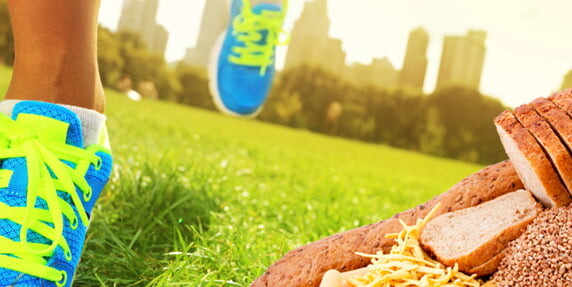
• Despite popular belief, carbohydrates are not inherently fattening. Excess calories of any kind are fattening. Excess calories of bread, bagels, and pasta are actually less fattening than excess calories of cheese, butter, and olive oil. That’s because converting excess calories of carbs into body fat requires more energy than does converting excess dietary fat into body fat. That means, if you want to be gluttonous yet suffer the least weight gain, indulge in fat-free frozen yogurt instead of gourmet ice cream!
• To allay any confusion, let’s clarify what carbs actually are. Carbohydrates include both sugars and starches. Carbs are in fruits, vegetables, grains, and milk (lactose). Sugars and starches all digest into the simple sugar glucose. Glucose travels in your blood and, with the help of insulin, gets taken into muscles and stored as glycogen for fuel. Runners who restrict carbs commonly complain about “dead legs.”

• Sugars and starches are biochemically related. For example, an unripe fruit, such as a banana, is starchy. As it ripens, it becomes sweeter; the starch converts into sugar. Similarly, vegetables, such as peas, are sweet when young. Their sugar converts into starch as they mature.
• All carbs—both sugars and starches—are excellent sources of fuel. Both “carby” bagels and sugary candy end up as glucose in your blood and feed your muscles as well as your brain. Whether you are running or lifting weights, a carb-rich sports diet (with adequate protein) can enhance your performance.
• Quality carbs, such as whole grains, fruits, and veggies, offer abundant vitamins, minerals (electrolytes), and other health-promoting nutrients. Refined sugar, however, offers little nutritional value. Yet, dietary guidelines say 10% of daily calories can come from added sugar. That’s at least 50 grams of sugar for most runners and allows for some “fun foods.”
• Sugar-avoiders please note: the 3 grams of added sugar in 2 tablespoons of peanut butter will not negate peanut butter’s health-promoting fiber, protein, and anti-inflammatory fats. Nor will the sugar in chocolate milk diminish its value as a helpful recovery fluid after a hard workout. Please look at the vitamins, minerals and protein that come along with the added sugar, not just the sugar itself.
• Sports drinks, gels, and sports gummies are little more than refined sugar. That’s not bad; it’s exactly what the body wants during extended hard exercise. Even though refined sugar adds “empty calories” to a sports diet, runners need not eat a perfectly sugar-free diet to have an excellent diet. There’s a time and a place for sweets.
• The messages that carbs are inflammatory, fattening, and bad for you is targeted at sedentary people who consume excessive calories, often from highly processed foods. For those unfit (often unhealthy) people, excess carbohydrate can contribute to elevated blood glucose, which triggers the body to secrete extra insulin. Consistently high insulin can be inflammatory and lead to nasty health issues. Yet, most runners can handle carbs with far less insulin than the average American—and without carbs causing “sugar crashes” or weight gain.
• The most common reason for “sugar crashes” (hypoglycemia) among runners relates to running out of fuel. The shakiness and sweats are because the athlete did not eat enough carbs to maintain normal blood glucose levels and the brain has to demand a quick fix—sugar! One marathoner credited the sugary gel he took at Mile 16 to cause him to “crash.” More likely, he needed more just one gel to meet his energy needs.
• For runners who routinely train hard 3 to 5 days a week, carbs should be the foundation of each meal. The International Olympic Committee’s recommendations for a performance diet include far more carbs than many runners consume via fruit, salads, and cooked veggies.
Baseline targets for a 150-pound runner are:
375 g carb/day for ~1 hour of moderate exercise
450 g carb/day for ~1-3 hours of endurance exercise
525 g carb/day for >4-5 hours of extreme exercise
This comes to about 100 to 150 grams carb per meal, which equates to about 400 to 600 calories of grains, fruits, and/or veggies per meal.
If your daily menu lacks starchy foods, experiment with adding grains to each meal and snack. You just might discover how much better you can feel and perform!
by Colorado Runner
Login to leave a comment
Paris Olympics introduces new mixed relay race-walking marathon
On April 8, World Athletics and the International Olympic Committee (IOC) announced a new Olympic event in athletics that will debut at the 2024 Olympic Games in Paris.
The new event is the race walk marathon mixed relay, which will feature 25 teams, each comprising one male and one female athlete, who will complete the marathon distance (42.195 km) in four alternating legs of 10.54 km.
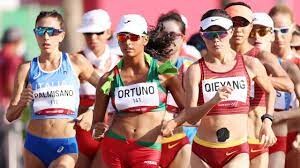
The event, scheduled to take place at 7.30 a.m. on Aug. 7, 2024, will be held on the same course as the individual race walking events at the foot of the world’s iconic Eiffel Tower.
The relay event will replace the men’s 50 km race walk, which was dropped following its last appearance at the 2020 Olympics in Tokyo. The 50 km race walk had appeared on every Olympic program since the event made its debut at the 1932 Olympics in Los Angeles (apart from Montreal 1976).
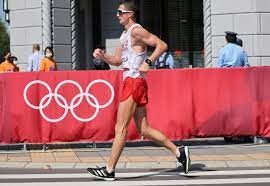
World Athletics had proposed the inclusion of the women’s 50 km event, but the IOC rejected the idea, which led to a consultation between the IOC and World Athletics on this new mixed-gender relay event.
Canadian Olympian and the reigning Olympic 50 km bronze medallist, Evan Dunfee, was unhappy to hear the news regarding the new event, especially after the 50 km race was cut for a more gender-balanced competition.
“In 2017, we were told there was no way to have a women’s 50 km walk in Tokyo because it was ‘impossible’ to change the program three years out. Now, less than 500 days away from the start of the 2024 Olympics, we’ve had our event completely changed,” Dunfee said on Twitter. “There is no endurance event for the race walk, which is what the event needs to be to make any sense.”
The current Olympic race walk program for the Paris Games has two individual 20 km race walk events and the mixed marathon relay.
When asked about the future of the sport, Dunfee shared, “Sadly, I suspect by Brisbane 2032, race walking will cease to exist.”
by Marley Dickinson
Login to leave a comment
Paris 2024 Olympic Games
For this historic event, the City of Light is thinking big! Visitors will be able to watch events at top sporting venues in Paris and the Paris region, as well as at emblematic monuments in the capital visited by several millions of tourists each year. The promise of exceptional moments to experience in an exceptional setting! A great way to...
more...Russian doping ban lifted, but Ukraine war keeps athletes out
Russia and its athletes will remain banned from competition due to the ongoing invasion of Ukraine.
On Thursday afternoon, the World Athletics Council announced the reinstatement of the Russian Athletics Federation (RusAF) following a seven-year doping suspension. Despite their reinstatement into the sport, however, Russia will remain banned from competition due to its ongoing invasion of Ukraine.
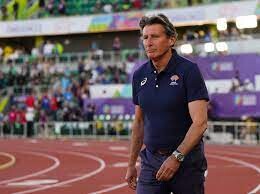
“Athletes and officials for Russia and Belarus are still excluded for the foreseeable future due to the invasion of Ukraine,” said World Athletics president Seb Coe.
In the case that Russia decides to leave Ukraine, Coe says his instinct is that the ban would be reversed, allowing Russian and Belarusian athletes to participate in all World Athletics events.
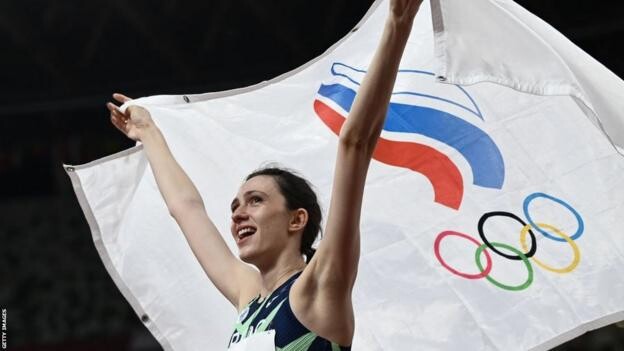
According to Rune Andersen, who served as the head of the World Athletics Task Force around reinstating the RusAF, told the WA Council that all required conditions have ultimately been met. RusAF has also accepted the ruling stating that there must be no backsliding from the new position.
“I believe RusAF still has a lot of progress to be made,” said Coe. RusAF has to follow 35 “special conditions” intended to ensure that anti-doping reforms remain in place, and continue to operate effectively. These special conditions will continue to be reviewed over the next three years.
The RusAF has been suspended from competing in World Athletics events since 2015 due to multiple doping violations. They are currently not eligible to host World Athletics events or send teams to international championships due to the World Athletics sanctions for the invasion of Ukraine.
“The integrity of our major international competitions has already been substantially damaged by the actions of the Russian and Belarusian governments through the hardship inflicted on Ukrainian athletes and the destruction of Ukraine’s sports systems,” said Coe in a press release. “Russian and Belarusian athletes, many of whom have military affiliations, should not be beneficiaries of these actions.”
The World Athletics stance on Russia continues to contrast with that of the International Olympic Committee (IOC), which is working to allow Russian and Belarusian competitors to participate in international competition and the Paris 2024 Games, as neutral athletes.
The reinstatement of RusAF was one of four noteworthy announcements to come from the 2023 World Athletics Council meetings.
by Running Magazine
Login to leave a comment
Belarusian coach charged after 2020 Olympics defection scandal
Belarusian coach Yury Maisevich was charged by the AIU for the defection of Belarus sprinter Krystsina Tsimanouskaya during the Tokyo Olympics.
On Thursday morning, the Athletics Integrity Unit (AIU) laid charges against Belarusian coach Yury Maisevich for his treatment of sprinter Krystsina Tsimanouskaya, who defected to Poland during the Tokyo 2020 Olympics.
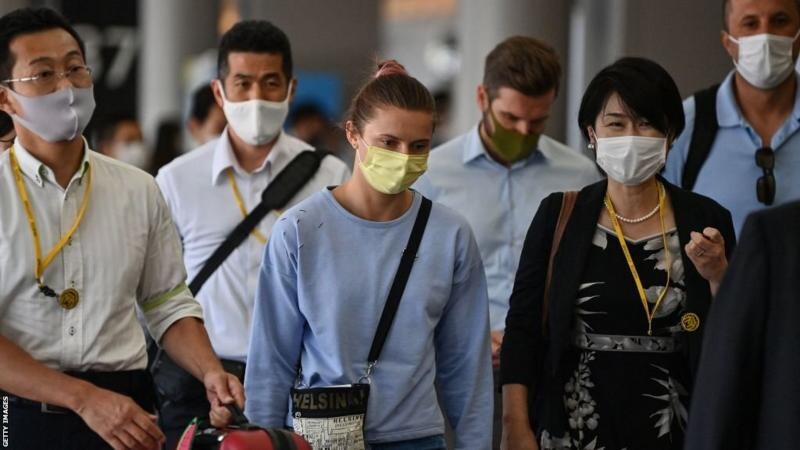
One day before Tsimanouskaya was due to compete in the women’s 200m at the Tokyo Olympics, she accused officials from the Belarus Olympic Committee of forcing her to compete in the 4x400m relay without her consent. She complained about the situation in a video on social media, which led to criticism by the Belarus media, which claimed she lacked team spirit.
She was forced to miss her 200m race because of the incident. The next day she was taken to Tokyo’s Haneda Airport and sent home, but she refused to board the flight back to Belarus.
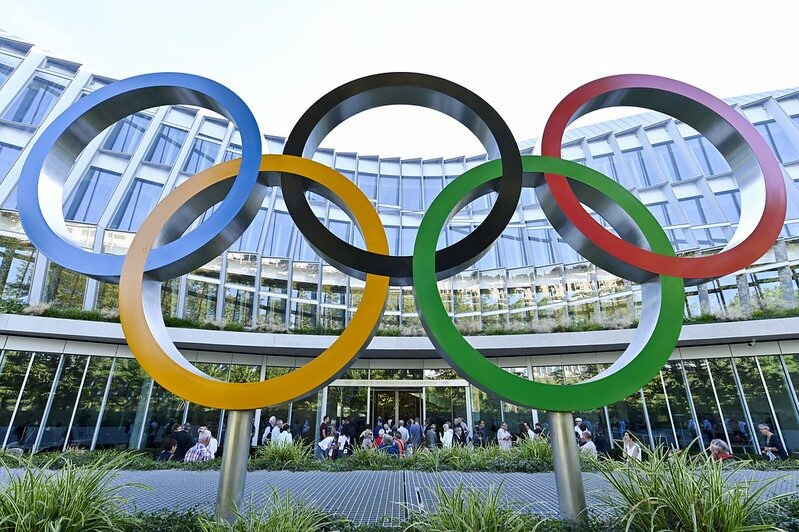
The national team coach, Maisevich, and Belarusian Olympic official Artur Shumak both had their accreditation revoked by the International Olympic Committee (IOC) after Tsimanouskaya claimed she was taken to the airport against her will. She sought help from the police in Japan; two weeks later, Tsimanouskaya, 26, received a humanitarian visa to Poland and safe passage to the country, which borders Belarus. She later became a Polish citizen, and is currently studying at the Józef Piłsudski University of Physical Education in Warsaw.
In Sept. 2021, IOC and World Athletics referred the matter to the AIU, charging Maisevich with breaching standards outlined in the Integrity Code of Conduct.
The AIU is an independent body created by World Athletics to manage all integrity issues (both doping-related and non-doping-related) for the sport of athletics.
The head of the AIU, Brett Clothier, explained in a press release: “An important role of the AIU is to safeguard athletes and protect them from harassment.”
The AIU alleges that, with respect to the circumstances of Tsimanouskaya’s removal from the Olympics, “Maisevich did not act with integrity and acted in bad faith; failed to safeguard the athlete’s dignity and his actions constituted verbal and mental harassment; and that he brought athletics generally into disrepute.”
The AIU has not revealed the specifics of the charge and the implications for Maisevich’s future in the sport are not clear.
by Marley Dickinson
Login to leave a comment
Refugee Olympic Team for Paris 2024 to have base in Kenya
The Refugee Olympic Team (EOR) will have a base in Kenya to prepare for the next year's Olympic Games in Paris, with eight athletes set to train in the North Rift of the country.
The National Olympic Committee of Kenya (NOC-K) has worked with the United Nations High Commission of Refugees and Athletics Kenya to find athletics training bases starting this month, with these visits led by its President Paul Tergat.
Kenya hosted five EOR athletes prior to Rio 2016 - all from South Sudan - with another four coming to the country from the same nation ahead of Tokyo 2020.
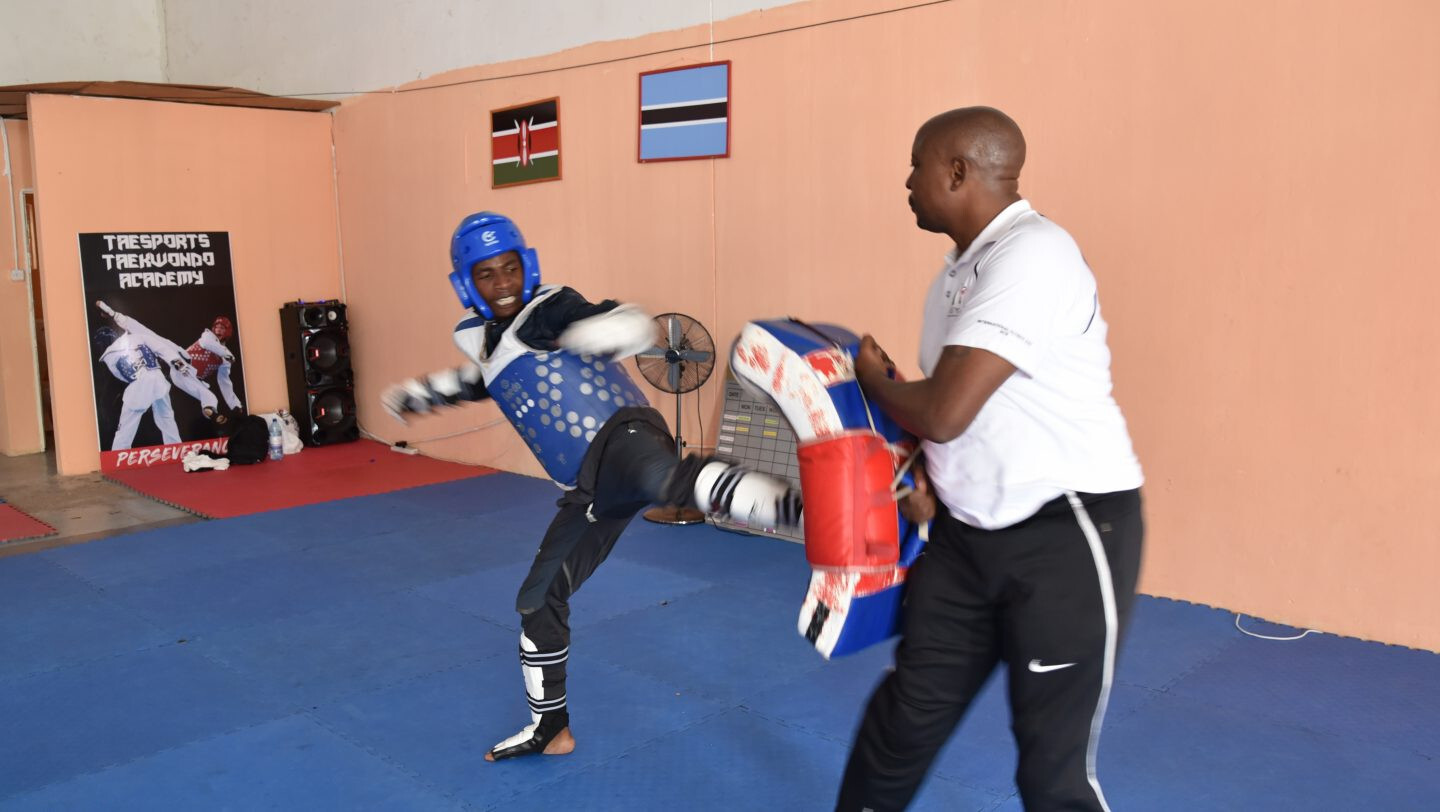
During a visit, the NOC head praised the work of Olympian and former women's marathon world-record holder Tegla Loroupe for their work in including refugees into sports programmes, like this one.
"The first batch of the athletes competed during the Rio 2016 Olympic Games and Loroupe was the Chef de Mission of the [EOR] Team," said Tergat, the double Olympic 10,000 metres silver medallist, according to Kenyan publication The Star.
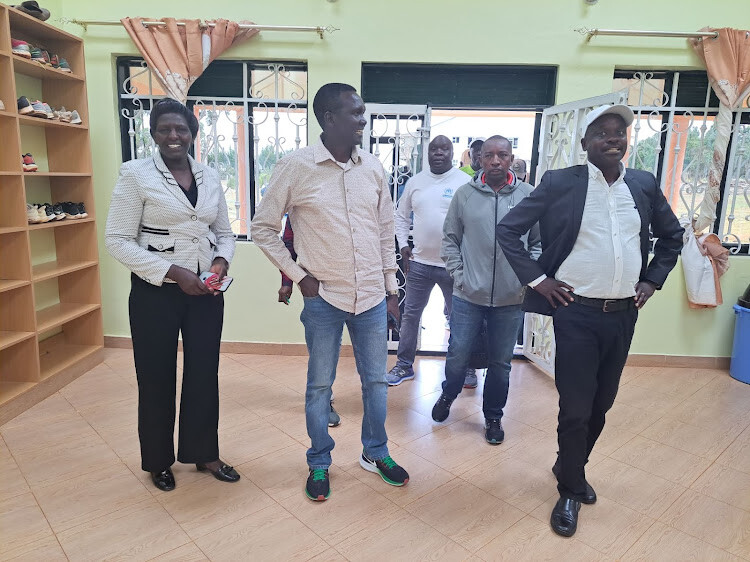
"We are very proud of the work and achievements that Loroupe, through her Foundation, has done in giving opportunities to these athletes."
This time, eight athletes are set to be at the training base.
Anjelina Nadai Lohalith is hoping to compete in her third Olympic Games as part of the EOR team with the South Sudanese athlete ready to race the women's 1500m again.
Dominic Lokolong, also from the country that spent seven years officially in a civil war, is to race the men's 1500m at his first Games.
Kun Waar and Rose Ihisa, competing in the men's and women's 400m respectively and originally from South Sudan, are on the team; as are their compatriots John Lokibe and Josephine Tein in the men's and women's 800m.
Emmanuel Ntagunga of the Democratic Republic of the Congo is to enter the men's 5,000m, while Gasto Nsazumukiza, also from this country, is the only member of the EOR team in Kenya who will not compete in athletics.
Nsazumukiza is set to compete in taekwondo.
NOC-K secretary general Francis Mutuku promised they would continue working with the refugees throughout the build-up to Paris 2024.
"The Refugee Team will now be working under NOC-K and we want to ensure that we get a good place for their training and produce proper results," said Mutuku.
"These athletes will fly the International Olympic Committee flag.
"We are not just looking at training camps but a good place for them to train.
"We are working hand in hand with Athletics Kenya and UNHCR to ensure that they perform well."
Parties visited the Complete Sports in Kaptagat, Lornah Kiplagat High Altitude Performance Centre in Iten, Kipchoge Keino facility and Ndura Sports Complex in Kitale as part of its training camp inspections.
The Paris 2024 Olympics are scheduled to take place from July 26 to August 11 2024, followed by the Paralympics from August 28 to September 8.
by Michael Houston
Login to leave a comment
Paris 2024 Olympic Games
For this historic event, the City of Light is thinking big! Visitors will be able to watch events at top sporting venues in Paris and the Paris region, as well as at emblematic monuments in the capital visited by several millions of tourists each year. The promise of exceptional moments to experience in an exceptional setting! A great way to...
more...You cannot perform well in a polluted environment Says Eliud Kipchoge
Protecting the environment is a priority for many in 2023, and athletes like Eliud Kipchoge are leading the way.
In 2020, the Kenyan double Olympic gold medalist and world record holder adopted 50 hectares of forest land in the Kaptagat Forest near where he spends most of the year training at high altitude.
“If you train in a polluted environment, then you cannot perform,” marathon great Kipchoge told the BBC from his homeland.
“Kaptagat Forest made a huge difference in my career. I’ve been here for the last 20 years and without this forest, and staying in the area, I think that I could not be where I am today.”
“I realized that the only way to perform and to actually enjoy running is by training in a good place, breathing clean air.”
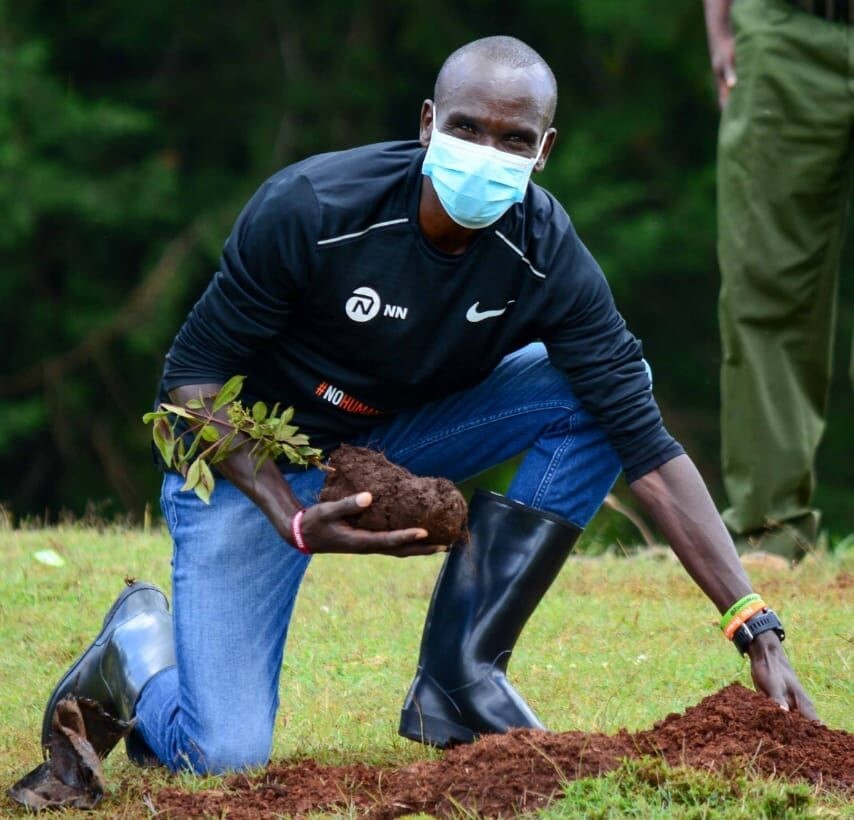
A year later, the distance-running great decided to create a foundation that focused on education and the environment, including planting trees.
To date, Kipchoge has adopted 130 hectares of forest, and claims that it’s ‘just the start’.
His wider goals include adopting a forest in every country in which he would plant indigenous trees.
Kipchoge revealed the principles he employs in his daily routine in order to help protect the environment, in an interview with Olympics.com for Earth Day 2022:
“Every day is Earth day for me,” Kipchoge told Olympics.com.
“I have improved my lifestyle to help fight climate change. I walk more, I minimize my water usage and I always try to encourage others to plant a tree on an important day or anniversary.
"My daily green effort is walking. I walk as much as I can instead of driving everywhere, so I can minimize my emissions."
Creating Africa’s Olympic Forest
Protecting the environment is also an area of focus for the International Olympic Committee (IOC).
In 2021, the IOC started an initiative to grow 590,000 native trees across approximately 90 villages in Mali and Dakar 2026 Youth Olympic Games host nation Senegal.
The Olympic Forest is an important element of the IOC’s strategy to address climate change, which includes cutting emissions in line with the Paris Agreement, and reducing the impact of the organisation’s footprint. With an end-goal to become climate positive, the IOC is set to cut its emissions 30 percent by 2024 and 50 percent by 2030, and compensate more than its remaining emissions.
While planting trees will help to protect the environment, the project also aims to create wider social and economic benefits for communities in Mali and Senegal that are heavily impacted by droughts and floods.
Login to leave a comment
Russian Natalya Antyukh officially loses London 2012 gold after not appealing doping sanctions
Russia's Natalya Antyukh has had her results from the 2012 Olympic Games in London officially disqualified, allowing a reallocation of medals from the women's 400 metres hurdles final, more than 10 years later.
Antyukh had her results from the Games officially disqualified in October, but was allowed time to appeal the decision.
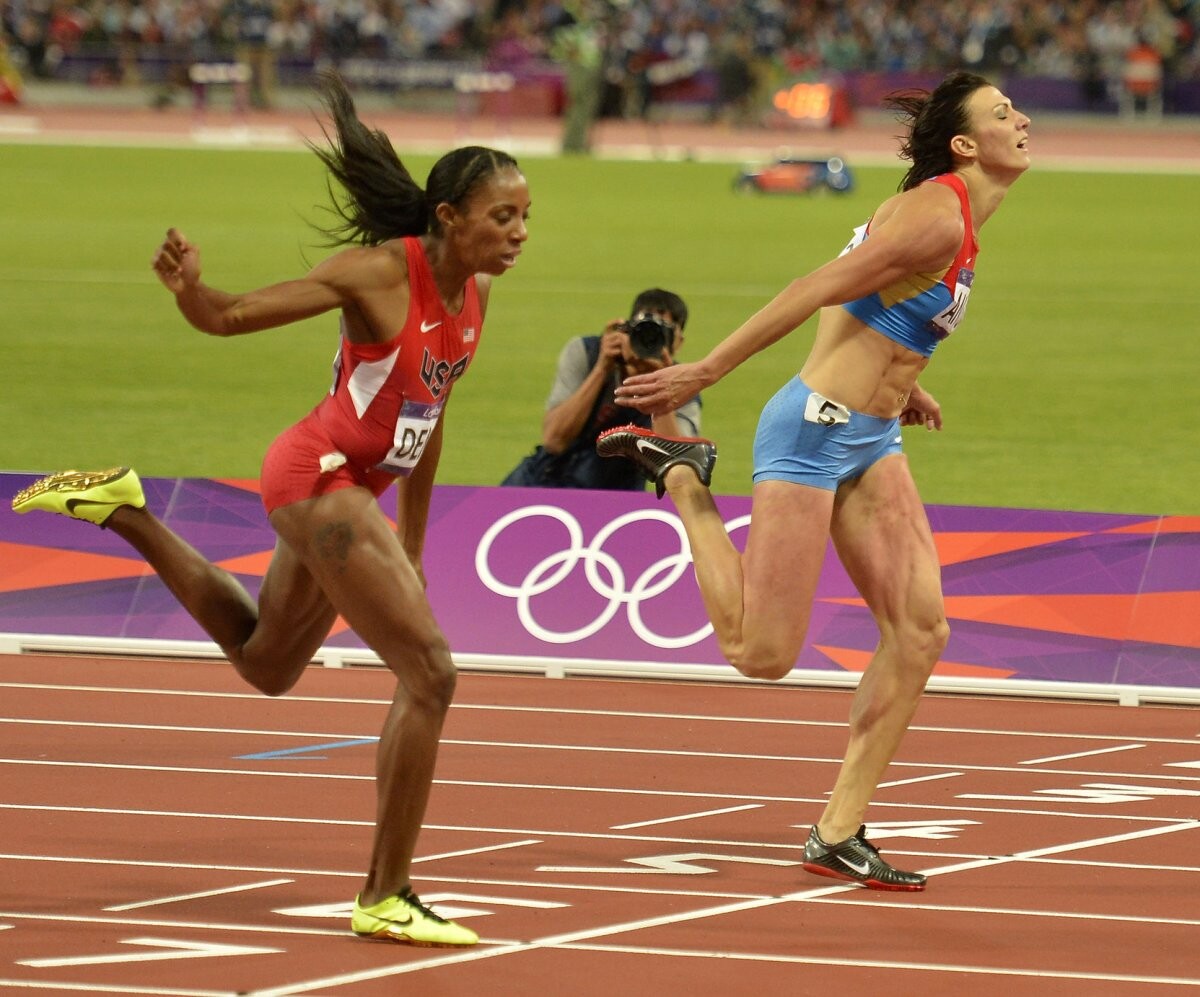
Following the expiration of the 45-day deadline, she had all results from July 15 in 2012 to June 29 the following wiped from her record, including the gold medal-winning run at London 2012.
This means Lashinda Demus from the United States is set to be awarded the gold medal retrospectively.
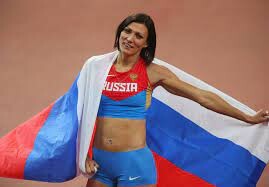
Demus was pipped in a photo finish with Antyukh in the final, with the Russian crossing the line in 52.70sec to the American's 52.77.
Czech Republic's Zuzana Hejnová, who would go on to win back-to-back World Championships titles in 2013 and 2015, has been promoted to silver, while Jamaican Kaliese Spencer will receive the bronze medal.
The Athletics Integrity Unit (AIU) charged the hurdler based on historical data at the former World Anti-Doping Agency (WADA)-accredited laboratory in Moscow.
Antyukh, now 41, was given a four-year-ban last year and had already had results wiped from June 30 in 2013 to December 31 in 2015.
World Athletics has changed its results on its website, with the AIU confirming in a statement that the International Olympic Committee (IOC) could now award the medals as planned.
"The IOC may now proceed with the reallocation of medals and the update of the IOC database," read the AIU statement.
"The AIU remains committed to investigating all cases of potential violations and securing the appropriate outcomes.
"The integrity of the sport of athletics is our utmost priority and we are pleased, in this instance, that athletes who competed fairly at the highest level will ultimately be acknowledged as the rightful medal winners."
AIU head Brett Clothier added that it was important to ensure "clean and fair competition and results, even if a decade later".
Antyukh is one of a record 46 Russian competitors at London 2012 disqualified for doping, leading to the country being stripped of 17 medals, including nine in athletics.
She also won silver in the women's 4x400m relay at London 2012, but this medal was already stripped six years ago when her team-mate Antonina Krivoshapka was given a doping ban and her results were disqualified.
Her results are not disqualified from before July 2012, meaning her 2011 world bronze and 2010 European gold medals - as well as her Athens 2004 400m bronze - still remain in her possession.
by Michael Houston
Login to leave a comment
10 years later: Pamela Jelimo to receive London Olympics bronze
Though out of the public limelight, the history-making Pamela Jelimo is still winning.
Jelimo, the first Kenyan woman to win an Olympic gold medal with her exploits in 800m at the 2008 Beijing Summers Games, is set to receive yet another medal.
Jelimo, the 2008 Africa 800m and 2012 World Indoor 800m champion, who finished fourth in one minute and 57.59 second set to benefit after race winner Mariya Savinova from Russia, was stripped of the gold medal for doping.
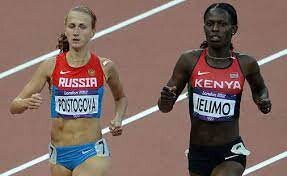
Jelimo, who celebrated her 32nd birthday on December 5, is set to receive her bronze medal from the 2012 London Olympic Games on Wednesday at the National Olympic Committee of Kenya (NOC-K) office, Gallant House, Nairobi.
Legendary Kipchoge Keino, who is an International Olympic Committee (IOC) member alongside NOC-K president, Paul Tergat, will preside over the presentation ceremony.
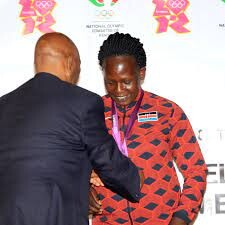
South Africa’s Caster Semenya and another Russian Ekaterina Poistogova, who had settled for silver and bronze, were scaled to gold and silver with their times of 1:57.23 and 1:57.53 respectively.
Kenya’s 2007 World 800m champion Janeth Jepkosgei, who had settled eighth in the race in 2:00.19 and Hellen Obiri, who came eighth in women’s 1,500m at the same Olympics, will receive their certificates.
Another Russian Elena Arzhakova, who finished sixth in 1:59.21 in the same race was also banned for having doped too.
With Savinova and Arzhakova banned, Jepkosgei, who had settled eighth in the race in 2:00.19 was upgraded to sixth.
On November 9, 2015, the Independent Commission Investigation of the World Anti-Doping Agency (WADA) asked for a lifetime ban for doping for Savinova, who had won gold and Poistogova, who had won bronze.
In February 2017, it was announced that Savinova was stripped of her gold medal but Poistogova was suspended in 2017 for two years, backdated to October 2014. Her London result, though, was not affected.
Alysia Johnson Montaño (1:57.93) from the United States of America and Burundi’s Francine Niyonsaba (1:59.63) finished fourth and fifth in the women’s 800m final.
A record four athletes that finished ahead of Obiri, who had settled 12th, were suspended for doping- Aslı Çakır Alptekin and Gamze Bulut from Turkey, who had won gold and silver respectively, Natallia Kareiva of Belarus, who had finished fifth and Russian Yekaterina Kostetskaya, who came sixth.
Maryam Yusuf Jamal (Bahrain), Tatyana Tomashova (Russia) and Abeba Aregawi (Ethiopia) were all scaled to gold, silver and bronze.
Aregwai, who changed allegiance to Sweden was suspended for doping in 2016.
This is the second time Olympics medals or certificates are being awarded in Kenya years later.
Asbel Kiprop received his gold medal from the 2008 Beijing Olympics in Nairobi in 2011 after the winner, Rashid Ramzi , was flagged down for doping.
by Ayumba Ayodi
Login to leave a comment
Trans female athletes: banning them from elite competition not supported by science, report says
Areview of the available literature on transgender female athletes who have taken steps to reduce their testosterone concludes there is no legitimate basis for their being banned from elite competition. “Transgender Women Athletes and Elite Sport: A Scientific Review”, commissioned by the Canadian Centre for Ethics in Sport (CCES), considered English-language scientific studies with a biomedical or sociocultural slant, as well as some “grey” (non-academic) literature published between 2011 and 2021, and focused on the science of testosterone and its effect on sports performance.
The review’s authors report there’s no evidence that trans women retain a performance benefit after 12 months of testosterone suppression. However, CCES president and CEO Paul Melia underlined the need for further research while urging that trans female athletes be included and welcomed in women’s elite and high-performance sports until the evidence shows significant harm or lack of fairness to other participants.
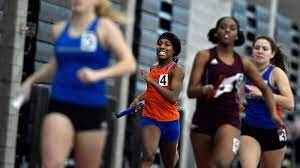
The review points out that there is almost no research on the performance advantage held by trans female athletes over cisgender women (those whose gender identity conforms to their birth sex) before and after HRT (hormone replacement therapy); they are presumed to have an unfair performance advantage based on studies using cis men or sedentary trans women rather than trans women athletes, and therefore the findings cannot be used to justify banning them from elite sport.
The report’s first Key Biomedical Finding states that “Biological data are severely limited, and often methodologically flawed.” The second says that “Some significant studies [on the impact of testosterone suppression] used misleading data sources and actively ignored contradictory evidence.” The third states that the available evidence shows that “trans women who have undergone testosterone suppression have no clear biological advantages over cis women in elite sport.”
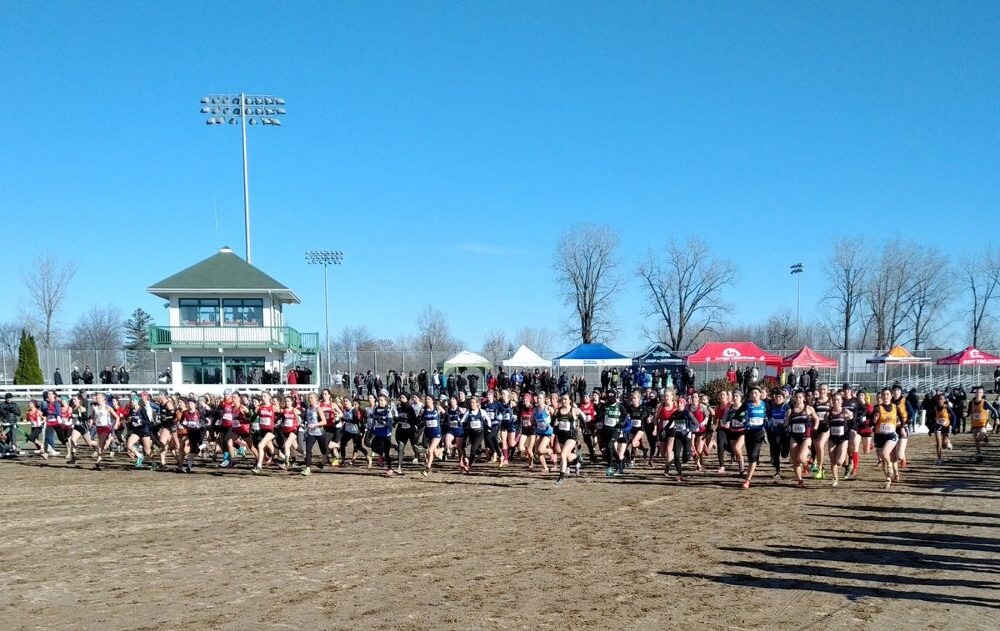
The International Olympic Committee’s current guidelines on transgender women athletes, which date from 2015, require them to have suppressed their testosterone to not more than 10 nanomoles per litre for at least 12 months before competing at the Olympic Games; previous to 2015, they were required to have had sex-reassignment surgery. There was some effort to tighten the rules going into the 2020 Games by scientists who claimed the current rules were too lenient, but discussions did not result in a new policy.
The review, which was carried out by E-Alliance, a research hub for gender equity in sport led by Dr. Gretchen Kerr of the University of Toronto and Dr. Ann Pegoraro of the University of Guelph, dealt only with male-to-female transgender athletes in any sport and cautions that the results may not be applicable to non-binary or intersex athletes.
by Anne Francis
Login to leave a comment
ADHD and runners: can diet help with management?
As a sports nutritionist, I commonly counsel runners and other athletes who have Attention Deficit Hyperactivity Disorder—generally referred to as ADHD (or ADD). ADHD is characterized by hyperactivity, impulsivity, and/or inattention. It affects 4-10% of all American children and an estimated 4.4% of adults (ages 18-44 years). ADHD usually peaks when kids are 7 or 8 years old. Some of the ADHD symptoms diminish with maturation but 65-85% of the kids with AHDH go on to become adults with ADHD.
Ideally, runners with ADHD get the help they need to learn how to manage their time and impulsiveness. Unfortunately, many youth athletes with ADHD just receive a lot of negative feedback because they have difficulty learning rules and strategies. This frustrates teammates and coaches. Older athletes with ADHD often run to reduce their excess energy, calm their anxiety, and help them focus on the task at hand. This article offers nutrition suggestions that might help coaches, friends, and parents, as well as runners with ADHD, learn how to calm the annoying ADHD behaviors.
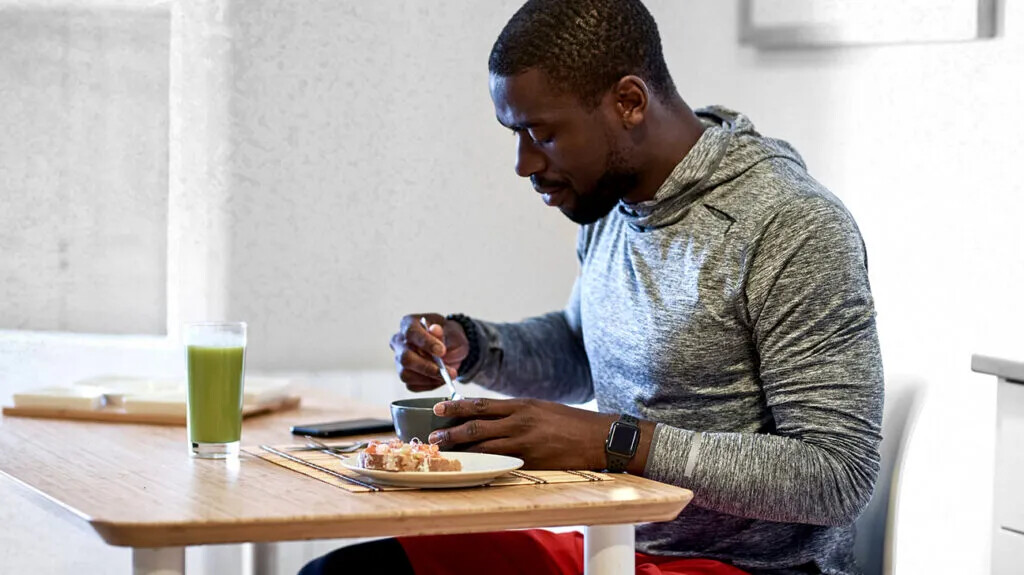
• To date, no clear scientific evidence indicates ADHD is caused by diet, and no specific dietary regime has been identified that resolves ADHD. High quality ADHD research is hard to do because the added attention given to research subjects with ADHD (as opposed to the special diet) can encourage positive behavior changes. But we do know that when & what a person eats plays a significant role in ADHD management and is an important complimentary treatment in combination with medication.
• ADHD treatment commonly includes medications such as Concerta, Ritalin & Adderall. These medications may enhance sports performance by improving concentration, creating a sense of euphoria, and decreasing pain. These meds are banned by the World Anti-Doping Agency (WADA) and the International Olympic Committee (IOC). Hence, runners who hope to compete at a high level are discouraged from taking ADHD medications

• To the detriment of ADHD runners, their meds quickly blunt the appetite. Hence, they (like all athletes) should eat a good breakfast before taking the medication.
• The medication-induced lack of appetite can thwart the scrawny teen runner who wants to gain weight and add muscle. Teens should be followed by their pediatricians, to be sure they stay on their expected growth path. If they fall behind, they could meet with a registered dietitian (RD) with knowledge of sports nutritionist (CSSD) to help them reach their weight goals.
• An easy way for “too thin” runners to boost calories is to swap water for milk (apart from during exercise). The ADHD athlete who does not feel hungry might find it easier to drink a beverage with calories than eat solid food. Milk (or milk-based protein shake or fruit smoothie) provides the fluid the athlete needs for hydration and simultaneously offers protein to help build muscles and stabilize blood glucose.
• A well-balanced diet is important for all runners, including those with ADHD. Everyone’s brain and body need nutrients to function well. No amount of vitamin pills can compensate for a lousy diet. Minimizing excess sugar, food additives, and artificial food dyes is good for everyone.
• Eating on a regular schedule is very important. All too often, high school runners with ADHD fall into the trap of eating too little at breakfast and lunch (due to meds), and then try to perform well during afterschool sports. An underfed brain gets restless, inattentive, and is less able to make good decisions. This can really undermine an athlete’s sports career
• Adults with ADHD can also fall into the same pattern of under-fueling by day, “forgetting” to eat lunch, then by late afternoon are hangry and in starvation mode. We all know what happens when any runner gets too hungry – impulsiveness, sugar cravings, too many treats, and fewer quality calories. This is a bad cycle for anyone and everyone.
• All runners should eat at least every four hours. The body needs fuel, even if the ADHD meds curb the desire to eat. ADHD runners can set a timer: breakfast at 7:00, first lunch at 11:00, second lunch at 3:00 (renaming snack as second lunch leads to higher-quality food), dinner at 7:00.
•For high school runners with ADHD, the second lunch can be split into fueling up pre-practice and refueling afterwards. This reduces the risk of arriving home starving and looking for (ultra-processed) foods that are crunchy, salty, and/or sweet.
• (Adult) runners with ADHD are often picky eaters and tend to prefer unhealthy snacks. For guidance on how to manage picky eating, click here for adults and here for kids.
• Fiber-rich fruits, vegetables, and whole grains can be lacking on an ADHD runner’s food list. Their low fiber diet can lead to constipation. Fiber also feeds the zillions of microbes in their digestive tract that produce chemicals that can positively impact brain function and behavior. Everyone with ADHD should eat more fiber-rich foods like beans (hummus, refried beans in a burrito), seeds (chia, pumpkin, sunflower, sesame), and whole grains (oatmeal, brown rice, popcorn). They offer not only fiber but also magnesium, known to calm nerves.
• With more research, we’ll learn if omega-3 fish oil supplements help manage the symptoms of ADHD. At least, eat salmon, tuna, and oily fish as often as possible, preferably twice a week, if not more.
• Picky eaters who do not eat red meats, beans, or dark leafy greens can easily become iron deficient. Iron deficiency symptoms include interrupted sleep, fatigue, inattention, and poor learning and can aggravate ADHD. Iron deficiency is common among runners, especially females, and needs to be corrected with iron supplements.
• While sugar has the reputation of “ramping kids up”, the research is not conclusive about whether sugar itself triggers hyperactivity. The current thinking is the excitement of a party ramps kids up, more so than the sugary frosted cake. Yes, some runners are sugar-sensitive and know that sugar causes highs and crashes in their bodies. They should choose to limit their sugar intake and at least enjoy protein along with sweets, such as a glass of milk with the cookie, or eggs with a glazed donut. Moderation of sugar intake is likely more sustainable than elimination of all sugar-containing foods.
by Colorado Runner
Login to leave a comment
Rising inflation has prompted a warning that the budget for the Paris 2024 Olympics and Paralympics is "very tight"
With tomorrow marking two years until the Olympics are due to begin in the French capital, concerns are mounting on preparations from a security and financial point of view.
AFP has reported that the Organising Committee's estimated budget for the Games has risen to €4 billion (£3.4 billion/$4.1 billion), with a source commenting: "Everything is very tight concerning the budget."

According to the unnamed source, the extent of the difficulties are expected to become clearer later this year.
Solideo, the public body charged with overseeing infrastructural projects for Paris 2024, also has a reported budget of €4 billion (£3.4 billion/$4.1 billion).

Inflation in France reached its highest level since 1991 last month, although remains lower than many other European countries.
Consumer prices rose by 5.8 per cent in the 12 months until June.
Tickets for the Games go on sale in December, and one premium partnership slot remains vacant, although it has been reported that there are hopes it could be filled by luxury goods company LVMH.
At the International Olympic Committee Session in Lausanne in May, Paris 2024 President Tony Estanguet conceded that the COVID-19 pandemic and war in Ukraine "caused major breakdowns in production and supply chains", and "generated an inflationary environment which was impossible to anticipate just a few months or weeks ago".
Budgetary issues are expected to be one of the topics examined when French President Emmanuel Macron meets other key Ministers at the Élysée Palace to discuss Paris 2024 today.
A French Presidential official told AFP that the meeting offers an opportunity "to take note of where there are weaknesses".
Concerns over security have escalated since Paris 2024 venue, the Stade de France, held the UEFA Champions League Final in May.
The match was marred by chaotic scenes which led to a delayed kick-off, led to widespread criticism of the French authorities and police, and prompted a warning in a French Senate report earlier this month that the Government and relevant bodies would be required to "draw the necessary lessons".
There are plans for around 600,000 people to watch the Opening Ceremony along the River Seine, but a police source cited in a AFP report warned that it would not be possible to secure the "nearly 7,000 officers" required, with a shortfall in the 24,000 required private security guards another stumbling block.
The Olympics in the French capital are due to run from July 26 until August 11 2024, followed by the Paralympics from August 28 until September 8.
by Patrick Burke
Login to leave a comment
Paris 2024 Olympic Games
For this historic event, the City of Light is thinking big! Visitors will be able to watch events at top sporting venues in Paris and the Paris region, as well as at emblematic monuments in the capital visited by several millions of tourists each year. The promise of exceptional moments to experience in an exceptional setting! A great way to...
more...Ukrainian athletes benefit from fund to attend World Athletics Championships
The first group of Ukrainian athletes and coaches depart today (Thursday) for the USA ahead of next month’s World Athletics Championships Oregon22.
World Athletics is distributing more than US$220,000 to support Ukrainian athletes preparing for the World Championships and the World Athletics U20 Championships Cali 22 in response to the crisis caused by Russia’s invasion of Ukraine.
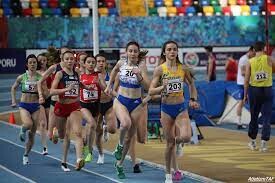
World Athletics, the Member Meetings of Diamond League Association and the International Athletics Foundation launched a Ukraine Fund in April with the purpose of assisting professional athletes, immediate family members and their support personnel affected by Russia’s invasion of their home country.
This was in addition to a Solidarity Fund established by the International Olympic Committee (IOC) in February, which has already allocated about US$2.5 million to the Ukrainian Olympic Community and sports movement.
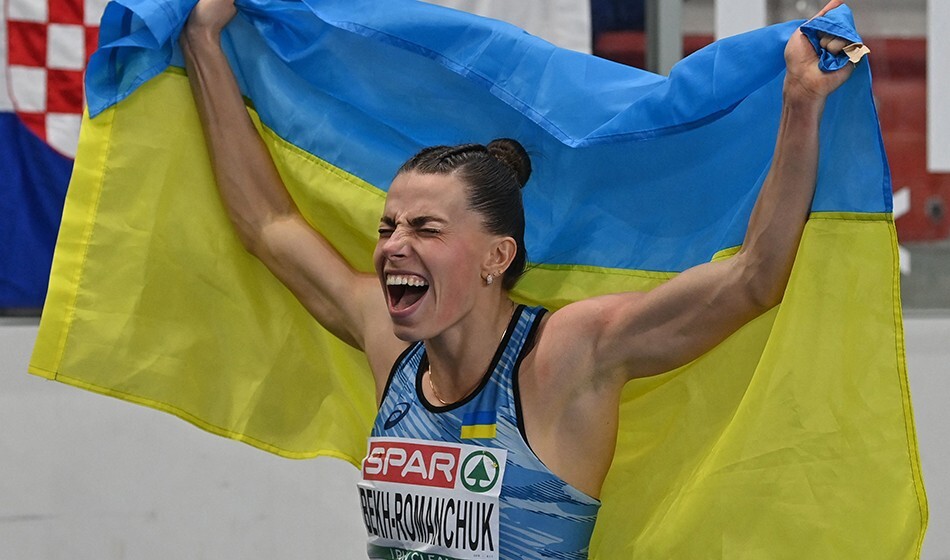
Both funds have enabled the Ukrainian Federation to pay a significant portion of the cost of training camps and competition across Europe for athletes preparing for these major events while a number of European National Olympic Committees, in coordination with the IOC, have provided support too.
The Athletics Ukraine Fund is now being used to fund the entire Ukrainian delegation’s attendance in Oregon.
So far 53 athletes, 25 coaches and officials, and 18 family members including children have received assistance from the Fund.
With the support of the IOC, the Fund will also ensure the Ukrainian team’s attendance at the World U20 Championships in Cali in August.
The IOC and European Athletics also assisted with training camps in Europe while the US Olympic and Paralympic Committee is providing additional support for athletes attending a training camp in California leading into the World Championships.
World Athletics President Sebastian Coe said: ”I am grateful and proud of the way the athletics community and the Olympic community have come together to support the Ukrainian Federation as they try to keep as many athletes as they can in training and competition. My thanks go to everyone involved for their support as these athletes prepare to represent their country while the war continues.”
Iolanta Khropach, General Secretary of the Ukrainian Athletic Association, said the federation was extremely grateful for the support of the combined athletics organisations and the IOC who came immediately to their aid after the invasion.
“They help our athletes to train and compete,” she said. “Without this support, it just would not be possible. This is more than just having good facilities and possibility to perform at World Championships and other events. World Athletics and European Athletics have helped to save the lives of our athletes.
“Many Ukrainian athletes now defend our country with weapons in their hands. Our sports infrastructure is destroyed. World Athletics was one of the first sports organisations in the world that banned Russian and Belarusian athletes and officials. We appreciate it so much and believe in World Athletics' strong position in the future.
“We are grateful to World Athletics and the IOC, as well as to every federation, LOC, other organisations, and individuals supporting us during these challenging times. Now we feel like never before that we are a true athletics family.”
World Athletics would like to thank all those organisations who have made generous contributions to the Ukraine Fund, including Members of the Diamond League Association, the International Athletics Foundation, the IOC, USOPC and PWC France Sport Challenge.
The fund can receive additional contributions at any time until fund closure which is set for 31 December 2023. Funding per beneficiary will be allocated on a needs-basis.
Potential donors to the fund should contact UKRFund@worldathetics.org.
World Athletics is coordinating with the International Olympic Committee’s Solidarity Fund for the Ukrainian Olympic Community to prevent any duplication of efforts.
by World Athletics
Login to leave a comment
World Athletics Championships Budapest23
Budapest is a true capital of sports, which is one of the reasons why the World Athletics Championships Budapest 2023 is in the right place here. Here are some of the most important world athletics events and venues where we have witnessed moments of sporting history. Throughout the 125-year history of Hungarian athletics, the country and Budapest have hosted numerous...
more...American olympic Allyson Felix to retire from track after this season
Seven-time Olympic gold medalist Allyson Felix said Wednesday she will run one final track season, months after competing in her fifth Games.
The most decorated American track and field Olympian picked up bronze in the 400 meters and gold in the 4 by 400 relay in Tokyo last year, having already confirmed that it would be her final Games.

In an Instagram post Wednesday, she said she would say goodbye to the sport "with one last run."
"This season isn't about the time on the clock, it's simply about joy. If you see me on the track this year I hope to share a moment, a memory and my appreciation with you," said Felix, 36, who is expected to run in the Penn Relays later this month.
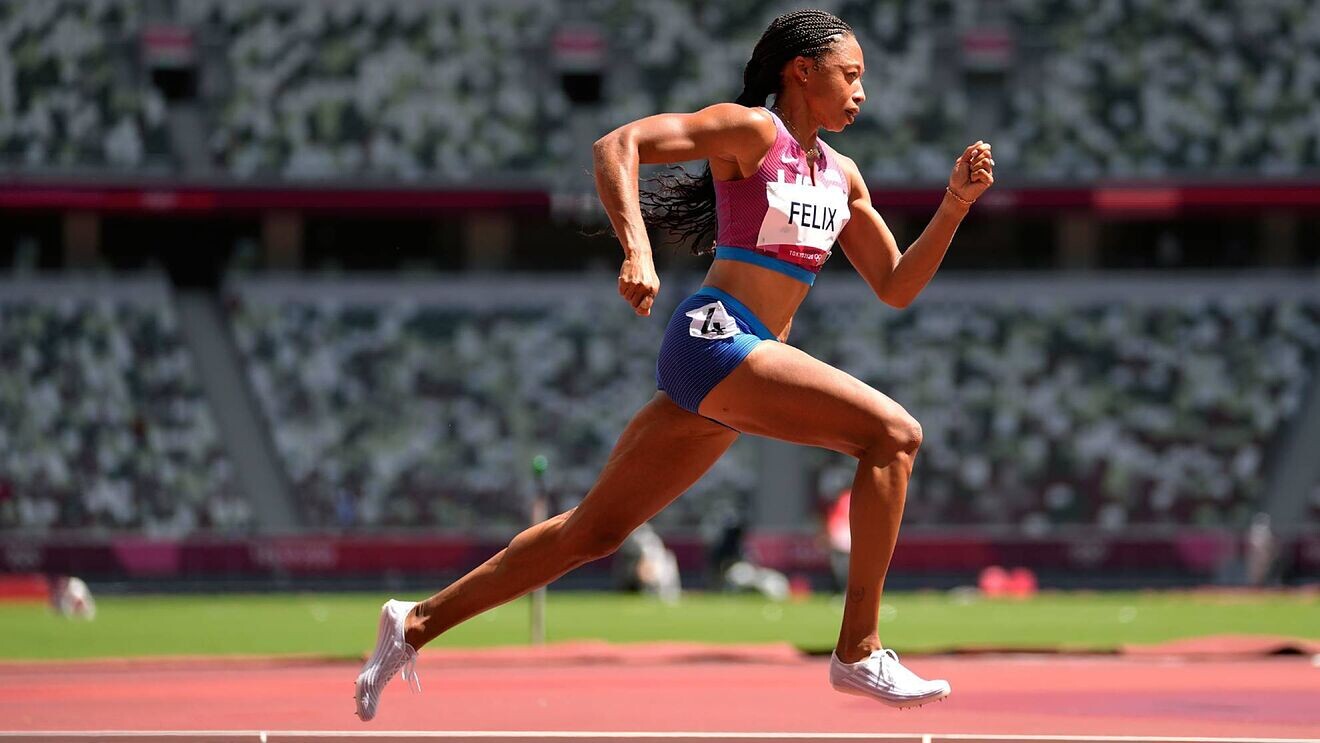
The 13-time world champion became an advocate for working mothers after giving birth to her daughter, Camryn, via an emergency C-section in 2018. In an opinion piece for The New York Times, she said she faced pay cuts from sponsors including Nike after having her child and competed in Tokyo wearing shoes from her own Saysh line.
"This season I'm running for women," Felix said. "I'm running for a better future for my daughter. I'm running for you."
Olympic sailor Eya Guezguez of Tunisia has died in a training incident, the International Olympic Committee announced on Monday. She was 17.
Guezguez was training with her twin sister Sarra alongside their national team on Sunday when their boat capsized because of strong winds. Eya died while Sarra survived.
Together, they competed at the Tokyo Olympics last year in 49er FX and finished 21st.
Thomas Bach, president of the IOC, said he was shocked by the news.
"She was an inspiring talent and role model for her athletes' generation," Bach said.
"Eya Guezguez's participation at Tokyo 2020 alongside her twin sister Sarra will continue to motivate girls everywhere. Our thoughts are with her family, friends and the Olympic community in Tunisia."
Login to leave a comment
Ukraine Fund launches to support athletes affected by conflict
World Athletics, together with the International Athletics Foundation (IAF) and the Members of the Diamond League Association, has today launched a Ukraine Fund to support professional athletes affected by the conflict in their home country.
The fund’s purpose is to ensure that elite Ukrainian athletes and their key support personnel can continue to train, qualify and participate in World Championship events following Russia’s invasion of Ukraine.
Two groups will be eligible for funding: individual athletes (Group One) and key athlete support personnel and immediate family members (Group Two).
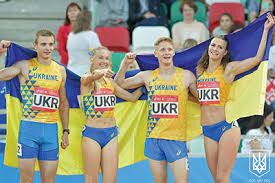
Group One includes athletes who are affiliated to the Ukrainian Athletic Association and have qualified, or have a credible chance to qualify, to compete at any upcoming World Athletics Championships until fund closure. Group Two includes those acting as a designated coach or team leader to athletes in Group One, as well as parents, spouses and children living together with athletes in Group One.
World Athletics President Sebastian Coe commented: “It’s only right that the athletics community provides whatever support we can to the athletes of Ukraine, who have been put in this terrible situation and need our assistance to continue training and competing. I know several of our Member Federations in Europe are already hosting groups of Ukrainian athletes in training camps and I’m grateful for their humanitarian approach to these tragic circumstances. This fund will provide further support for Ukrainian athletes to enable them to have some stability and security as they prepare to represent their country while the war continues.”
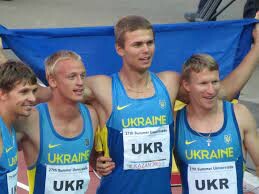
Commenting from Ukraine, President of the Ukrainian Athletic Association YevheniiPronin said: “In dark times you can clearly see bright people. World Athletics, Diamond League, IAF and all the national federations that offered us their help - this is the standard of unity and support!
"Thousands of victims, millions of refugees, destroyed infrastructure, including sports infrastructure, terrified our hearts, but we believe that the worst is over.
"Every day I thank from my heart the entire world community for opening the doors of their homes for our people, for everyone who helps our athletes and their families and for World Athletics, for creating this fund for our athletes and our sport.
"The entire team of the federation is safe and is working to ensure that the athletes of our country and their families are safe and together with you we will save our favorite sport and make it stronger. Thank you from all Ukraine."
The fund will provide financial assistance to the following:
For Group One:
• Enrolment, subsistence and accommodation, at training camps / temporary housing;
• Travel and accommodation to compete at qualifying events for World Championships;
• Travel and accommodation to compete at World Athletics Championships if not otherwise provided;
• Training material and equipment.
For Group Two:
• Coach attendance to training and competition;
• Travel and accommodation to accompany Group One athletes at qualifying events for World Championships;
• Travel and accommodation to accompany Group One athletes at World Athletics Championships.
The fund opens today with a current budget of US$190,000, created with contributions from the IAF, Diamond League members and World Athletics. The Diamond League Association has previously donated US$30,000 directly to the Ukrainian Athletic Association and many of the individual meeting organizers will provide additional travel and accommodation support to athletes wanting to compete in their meetings.
It is expected that up to 100 Ukrainian athletes may require some financial support this year.
The fund can receive additional contributions at any time until fund closure which is set for December 31, 2023. Funding per beneficiary will be allocated on a needs-basis.
Potential beneficiaries can register for consideration by emailing UKRFund@worldathletics.org
Other athletics organizations who would like to contribute to the fund, should also contact UKRFund@worldathletics.org
World Athletics will coordinate with the International Olympic Committee’s Solidarity Fund for the Ukrainian Olympic community, through senior vice-president Sergey Bubka, to prevent any duplication of efforts.
by World Athletics
Login to leave a comment
Ruth Chepngetich and Lonah Chemtai Salpeter ready to clash at Nagoya Women’s Marathon
World marathon champion Ruth Chepngetich and Tokyo Marathon winner Lonah Chemtai Salpeter will renew their rivalry at the Nagoya Women’s Marathon – a World Athletics Elite Platinum Label road race – on Sunday (13).
Athletes in Nagoya will be racing for the largest first prize in the world of marathon running: US$250,000. Being the world’s largest women’s marathon, one of the world’s top-level races, and the only women’s race with a World Athletics Platinum Label, the Nagoya Women’s Marathon continues to be a global leader in women’s running.
To date, Chepngetich has won five of the seven marathons she has completed, and still made it on to the podium in her other two. The consistent Kenyan had her best year in 2019, starting with her 2:17:08 PB in Dubai in January, then following it eight months later by winning the world title in Doha.
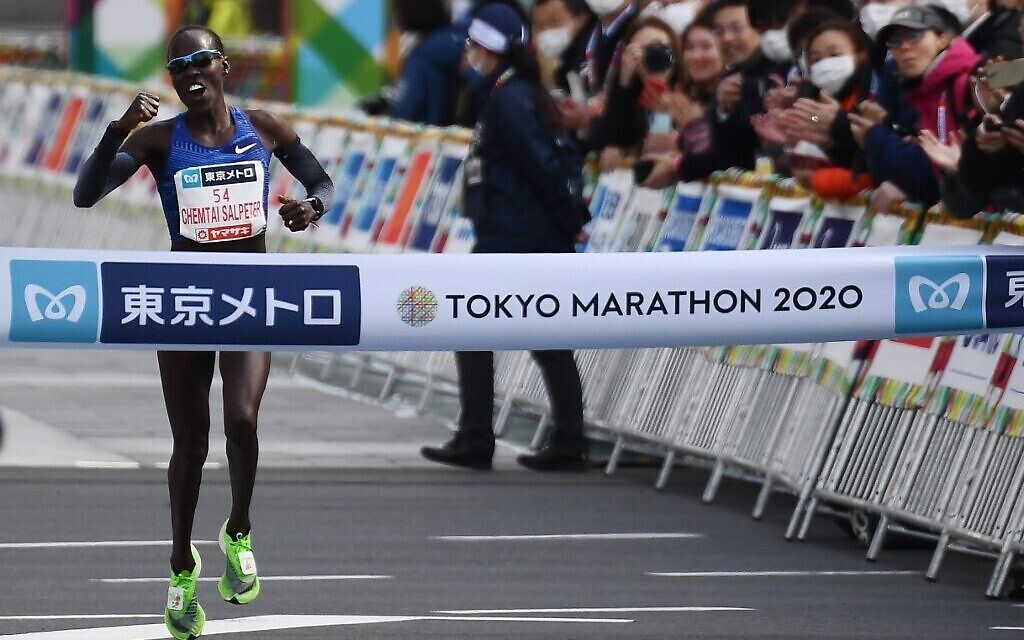
Like many athletes, she had a low-key year in 2020 but still finished third at the London Marathon in 2:22:05. Last year she failed to finish the Olympic marathon but rebounded two months later by taking victory in Chicago in 2:22:31.
While the 27-year-old appears to be more focused on victories than records, she is more than capable of producing fast times, too. In April last year she set a world half marathon record of 1:04:02 in Istanbul.
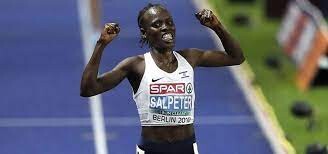
"I chose to run the Nagoya Women’s Marathon because Japan is a nice place and the environment is good," said Chepngetich. "And, as women, we have to encourage ourselves and do better. I'm looking forward to a nice race and I'd like to set a PB."
Chepngetich’s only competitive outing so far this year was at the Kenyan Cross Country Championships in Eldoret in January where she finished sixth – roughly in line with her performances at that event in previous years. She feels far more at ease racing on the roads, though.
So too does Salpeter. The Israeli distance runner won the 2020 Tokyo Marathon in a lifetime best of 2:17:45, having previously set national records when winning in Prague and Florence. Her return to Japan for the Olympics in 2021 didn’t quite go to plan as she finished down in 66th, but she bounced back in October to place fifth in London in 2:18:54.
"I’m happy to be here," said Salpeter. "It's my first time and I hope to do my best on Sunday. My training has been good. I was in Kenya for eight weeks, so I’m ready for Sunday. I’m trusting my training."
This could be the first time Chepngetich and Salpeter have a true clash over the marathon distance. In their two previous encounters over the distance, Salpeter failed to finish at the 2019 World Championships while Chepngetich did likewise at the Tokyo Olympics. Their only other duel to date was at the 2018 World Half Marathon Championships in Valencia, where Salpeter finished just one place ahead of Chepngetich.
Four years on from that, and over double the distance, this weekend’s race could be a different story.
They are among four sub-2:24 athletes entered for the event, as Japan’s Yuka Ando and Reia Iwade lead a strong Japanese contingent.
Ando ran her PB of 2:21:36 when finishing second in Nagoya in 2017 and started this year with a half marathon personal best of 1:08:13 in Yamaguchi, while Iwade ran her best marathon time of 2:23:52 in Nagoya in 2019.
Australia’s Sinead Diver will be making her third Nagoya appearance. She finished 10th in 2017 with a then PB of 2:31:37, then recorded a DNF in 2020. Now with a best of 2:24:11 and a 10th-place finish at last year’s Olympics, the 45-year-old could content for a top-five finish.
Japan’s Rie Kawauchi and marathon debutantes Kaena Takeyama and Yuka Suzuki are also athletes to look out for. Depending on their placing and position, the top Japanese finishers could earn selection for the World Athletics Championships Oregon22 or Japan’s Olympic Trials race for the 2024 Games.
Kenya’s Stellah Barsosio, Japan’s Mao Uesugi and Britain’s Charlotte Purdue will be among the pace-making team.
Last year’s edition of the Nagoya Women’s Marathon was held as a domestic race, and was won by Japan’s Mizuki Matsuda in 2:21:51.
Ten years on since the inaugural edition of the race in 2012, the Nagoya Women's Marathon continues to be the leading women-only marathon in the world. It attracted 21,915 runners in 2018 - a world record for a women-only marathon. After receiving the Japan Olympic Committee Women and Sport Award in 2017, the race was awarded the International Olympic Committee Women and Sport Achievement Diploma in 2019 for playing a significant role in the increase of women runner population in Japan.
The race, which starts at 9:10am local time on Sunday, will be streamed live to 33 countries and regions (Argentina, Australia, Brazil, Brunei, Cambodia, Chile, Colombia, Egypt, Ethiopia, France, Germany, Hong Kong, Indonesia, Italy, Kenya, Macau, Malaysia, Mexico, Monaco, Myanmar, Namibia, Netherlands, New Zealand, Papua New Guinea, Philippines, Singapore, South Africa, South Korea, Spain, Taiwan, Thailand, United Kingdom, and United States of America).
Elite field
Ruth Chepngetich (KEN) 2:17:45
Lonah Chemtai Salpeter (ISR) 2:17:45
Yuka Ando (JPN) 2:21:36
Reia Iwade (JPN) 2:23:52
Sinead Diver (AUS) 2:24:11
Rie Kawauchi (JPN) 2:25:35
Hanae Tanaka (JPN) 2:26:19
Mirai Waku (JPN) 2:26:30
Ayano Ikemitsu (JPN) 2:26:07
Ai Hosoda (JPN) 2:26:34
Chiharu Ikeda (JPN) 2:27:39
Eloise Wellings (AUS) 2:29:19.
by World Athletics
Login to leave a comment
Nagoya Women's Marathon
The Nagoya Women's Marathon named Nagoya International Women's Marathon until the 2010 race, is an annual marathon race for female runners over the classic distance of 42 km and 195 metres, held in Nagoya, Japan in early March every year. It holds IAAF Gold Label road race status. It began in 1980 as an annual 20-kilometre road race held in...
more...Paris 2024 confirms Seine will serve as venue for city centre Olympic Opening Ceremony
Paris 2024 has announced the Seine will serve as the venue of the Olympic Games Opening Ceremony, with athletes set to travel in boats during a six-kilometre route during the spectacle.
Paris 2024 President Tony Estanguet had suggested the river was under consideration to host the city-centre Opening Ceremony back in March.

Estanguet confirmed at a press conference today that the Paris 2024 Board and the International Olympic Committee (IOC) had approved the location.
The three-time Olympian said the objective was to make the Opening Ceremony more open to everyone, with estimates predicting 10 times more spectators will be able to watch the event compared to its typical stadium setting.
Paris 2024 say thousands of spectators will be able to attend the Opening Ceremony for free, while ticketed zones will also be in operation.
Around 600,000 people are expected to be watch the Ceremony in the capital city.
Organisers say the Seine will be a “runway for athletes”, with delegations set to travel on around 170 boats down the river.
The route will begin at the Pont d'Austerlitz, the bridge located close to the French national library.
The Pont d'Iéna marks the event of the route, with the bridge located next to the Eiffel Tower.
The Trocadéro Gardens will host the finale of the Opening Ceremony, having been the location of the live site during the handover at the conclusion of the Tokyo 2020 Closing Ceremony earlier this year.
Estanguet said the six-kilometre route would allow for full immersion into Paris, with landmarks including the Notre-Dame Cathedral, the Louvre Museum and the Place de la Concorde featuring.
The Paris 2024 President said the location would allow organisers to blend the existing background of the capital with modern creations, claiming the concept provided organisers with “unlimited potential” with what they can achieve artistically.
Artistic direction of the Ceremony is expected to be defined at a later date.
Suggestions include a floating orchestra and projections, with spectators potentially watching from stands on screens located on the water.
Estanguet said Paris 2024 would look to implement ideas used during their previous Olympic Day celebrations, where sporting events have been held within the French capital.
Paris 2024 say 50 meetings have been held with security experts since the start of 2021 on the concept.
It is claimed that no security obstacles have been identified so far.
The Opening Ceremony is scheduled to take place on July 26 in 2024, with the Olympics running until August 11.
“On 26 July 2024, a truly spectacular Opening Ceremony will mean the eyes of the world are on the city, proudly promoting the values of Olympism," said Anne Hidalgo, Paris Mayor.
“The ambitious project, which is the result of intensive collaboration between hundreds of stakeholders, will bring joy to Parisians, Île-de-France residents and tourists alike.
“This Opening Ceremony will mark the history of the Games.
“For the first time ever, rather than being contained in the stadium, it will take place in the heart of the capital.
“Along the quays and bridges of the Seine, against this grand and unique backdrop, the athletes will be carried by a majestic flotilla of boats.
“The ceremony will be accessible to one and all.
“The choice to launch the Paris Games on the Seine is a bold one, which is part of a long-term strategy.
“Beginning with the opening of the embankments to pedestrians in 2016, the idea is to give Parisians and local residents back their river banks, to walk along, engage in sports, or simply admire the beautiful surroundings.
“The Paris 2024 Olympic and Paralympic Games will mark the beginning of a new chapter in this story, with swimming in the Seine itself.”
IOC President Thomas Bach has been a supporter of the idea of a city-centre Opening Ceremony.
This followed the Buenos Aires 2018 Youth Olympics, which saw an Opening Ceremony held on the Avenida 9 de Julio in the Argentinian capital.
Bach said Paris 2024 has recognised the opportunity and challenges of the city-centre spectacle, but expressed his confidence that organisers would be able to hold the event with the security precautions required.
"This Ceremony will be an exceptional experience for all the athletes taking part, but also, and above all, for the people of Paris, for France and for the whole world," Bach said.
"We started discussing this ‘Seine’ option with the Paris 2024 team and its President, Tony Estanguet, after the great success of the Opening Ceremony of the Buenos Aires 2018 Youth Olympic Games.
“There, over 200,000 people gathered around the iconic Obelisk monument.
“We were all inspired by this magical moment, but we also recognised the challenges it could create.
“Today, I am happy that the French authorities on all levels have carefully considered this opportunity and come to the conclusion this will happen, under the premise of all necessary security precautions.
“The IOC has full confidence in the creativity, flexibility and sense of innovation demonstrated, from the beginning, by the Paris 2024 team.
“They will ensure that the Opening Ceremony is a truly unique and emotional Olympic experience for the athletes, who will be surrounded by the public, being welcomed and celebrated by the French people.
“It will be a spectacular spectacle on the Seine.”
Login to leave a comment
The 2024 Paris Olympic opening ceremony will be held on boats
The Paris 2024 Organizing Committee announced today that the popular river Seine that runs through Paris will serve as the venue to host the 2024 Olympic Games opening ceremony. Athletes are set to travel on a six-kilometre route by boat, as the general public cheers on from the river banks of the Seine.
“The objective was to make the opening ceremony accessible to everyone,” said Tony Estanguet, the Paris 2024 President, in a press conference. Estanguet suggested the idea to hold the opening ceremony on the river back in March.
The location for the ceremony was approved today by the Paris 2024 Board and the International Olympic Committee (IOC).

Since the ceremony is outdoors, the host nation predicts that 10 times more spectators will have access to and watch the event. This is the first time in recent Olympic history that an opening or closing ceremony will be held in an accessible public space.
The Paris 2024 organizing committee plans on having over 600,000 spectators able to attend the opening ceremony free of charge.
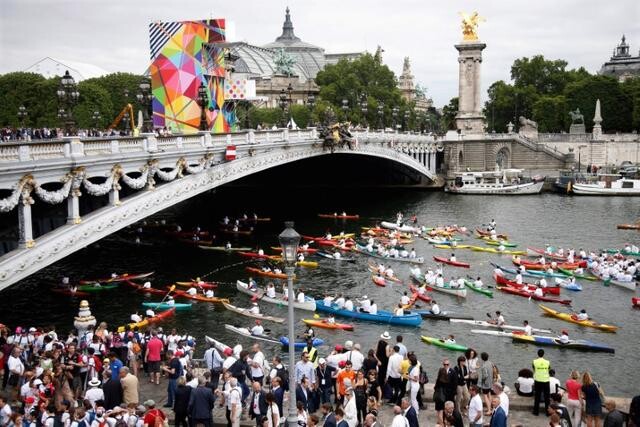
If you are looking for front-row seats on the Seine, they will come at a cost. Organizers mentioned that popular viewing points on the river will be operating in paid ticketed zones.
The concept is a boat party and parade with delegations and athletes set to travel down the river on 170 boats The route will begin at the Pont d’Austerlitz, which is close to the French National Library. The Trocadéro Gardens will mark the end of the opening ceremony. The location was the site of the handover celebration during the conclusion of the Tokyo 2020 closing ceremony.
Paris organizing officials mentioned that they had 50 meetings with top security experts since they developed the concept, with no security obstacles identified so far.
The Paris 2024 opening ceremony is scheduled to take place on July 26, 2024, with the Olympics running until Aug. 11. The Paris Games will also mark the first time that the Olympics will host a marathon for the general public on the same course as the Olympic Marathon.
by Marley Dickinson
Login to leave a comment
Paris 2024 Olympic Games
For this historic event, the City of Light is thinking big! Visitors will be able to watch events at top sporting venues in Paris and the Paris region, as well as at emblematic monuments in the capital visited by several millions of tourists each year. The promise of exceptional moments to experience in an exceptional setting! A great way to...
more...Former World Athletics president Lamine Diack has died
The former head of global athletics Lamine Diack, who presided over the sport from 1999 to 2015 but was later convicted for corruption, has died aged 88, his family told AFP.
The Senegalese was head of the International Association of Athletics Federations (IAAF), now renamed World Athletics, the world governing body of track and field, the cornerstone of Olympic sport.
Diack, who was also a powerful figure at the International Olympic Committee (IOC), was found guilty of corruption by a French court in 2020 for covering up Russian doping cases in exchange for millions of dollars of bribes.
He was sentenced to four years in prison, of which two were suspended, and fined 500,000 euros ($560,000).
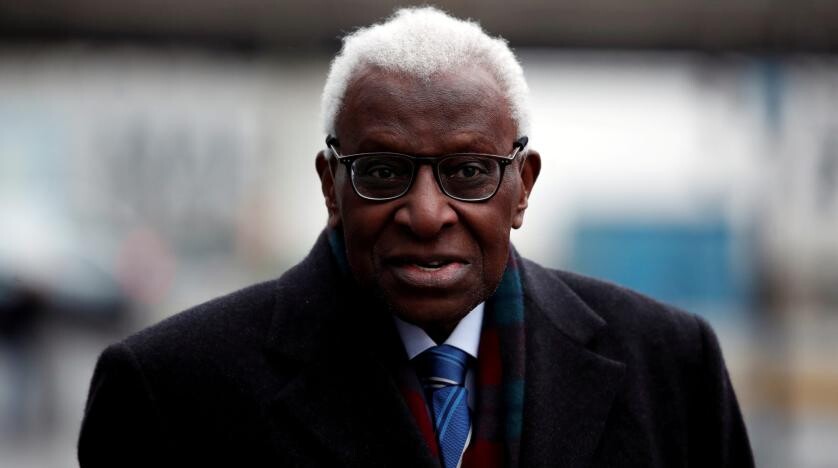
The trial in Paris heard that the money was paid in return for "full protection", to allow Russian athletes who should have been banned to escape punishment.
Twenty-three Russian athletes had their doping offences hushed up so they could compete at the 2012 London Olympics and 2013 world championships in Moscow.
Because of his age, Diack, a former long jumper, football coach and then businessman and politician who was decorated in the Kremlin in late 2011, was spared jail.
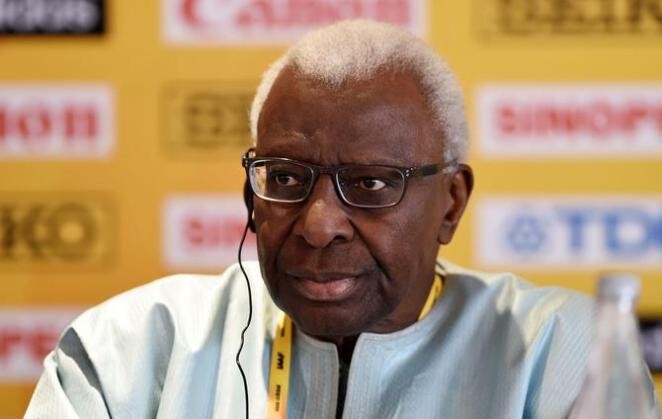
His son Papa Massata Diack, a former marketing executive for the IAAF, was tried in absentia because Senegal refused to extradite him. He was sentenced to five years in prison, fined one million euros and banned from all sport for 10 years.
- Olympic figure -
Lamine Diack, a member of the IOC from 1999 to 2013 and then an honorary member from 2014-15, was embroiled in another corruption affair linked to the awarding of the 2016 Rio Olympics and the Tokyo Olympics, that were postponed because of the pandemic but took place this year.
Despite not being jailed over the Russian corruption, he was held in France because of his indictment in the case involving suspected Olympic vote-buying. His passport had been confiscated.
But a judge soon lifted the ban on Diack leaving France, provided he paid a bond and that he continued to respond to summonses.
Senegalese Premier League side Jaraaf de Dakar, where Diack was club president, said it had sold part of its headquarters property to pay the bail.
Diack was replaced by Britain's Sebastian Coe in August 2015 as head of world athletics. The disgraced Senegalese had resigned from the IOC in the same year.
Coe had been one of Diack's vice-presidents at the then-IAAF between 2011 and 2014.
Born in Dakar on June 7, 1933, Diack started his sporting career as a long jumper, winning the French athletics championships title in 1958. A knee injury prevented him from competing in the 1960 Olympics, however.
He was also a footballer and was technical director of Senegal's national team from 1966 to 1969.
Diack also became head of Senegal's Olympic Committee, mayor of Dakar, a lawmaker and was head of the West African country's national water company before becoming the first non-European to take over as head of the IAAF following the sudden death of its previous president Primo Nebiolo.
The African power-broker said he had played a key role in globalising athletics and his time at the top certainly coincided with a huge boom in its revenues.
Diack was in charge as the sport grew and developed beyond its European and North American core.
He oversaw its move from amateur to professional status, ensured complete equality in events and prize money for men and women, and established international competition circuits for athletes in all the disciplines.
But the Senegalese had previous brushes with scandal before the most recent charges.
Diack and Issa Hayatou, acting FIFA president for four months in wake of the 2015 corruption case against Sepp Blatter, both received warnings from the IOC in 2011 over cash payments they received from International Sport and Leisure (ISL), a marketing company whose collapse caused a major scandal for football's governing body.
by AFP
Login to leave a comment
Jamaican Usain Bolt thinks he could have won 100m gold at Tokyo Olympics
Sprint legend Usain Bolt said he could have emerged from retirement to win a fourth straight Olympic 100m title in Tokyo this year, insisting the winning time was within his reach.
Bolt, 35, told AFP that it was frustrating to watch the delayed 2020 Games from his home in Jamaica as his male countrymen flopped and Italy's Lamont Jacobs claimed a shock victory.
"I really missed it. I was like, I wish I was there," he said in an interview at the Dubai offices of his sponsor PepsiCo on Sunday.
"Because for me, I live for those moments. So it was hard to watch."
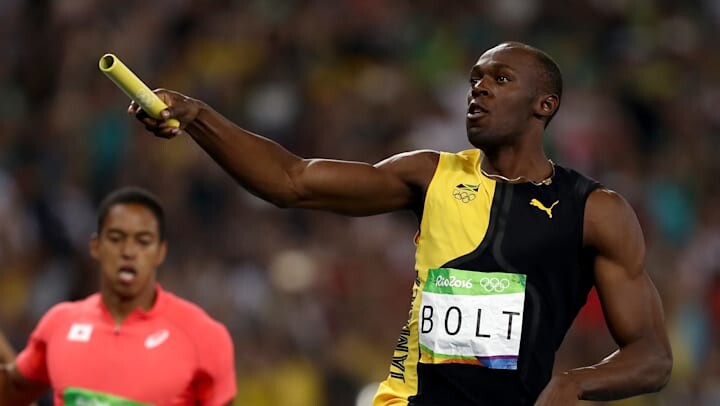
Bolt dominated sprinting for a generation, winning eight Olympic gold medals and only losing a ninth when his 2008 4x100m relay team-mate Nesta Carter failed a retrospective drugs test.
The first Olympic 100m final since the great showman's departure was a subdued affair, with Jacobs clocking 9.80sec at a Covid-emptied Tokyo National Stadium.
"My coach said something to me at the end of my career. He said, 'People are not getting faster. I was getting slower.' I never looked at it that way," said Bolt.
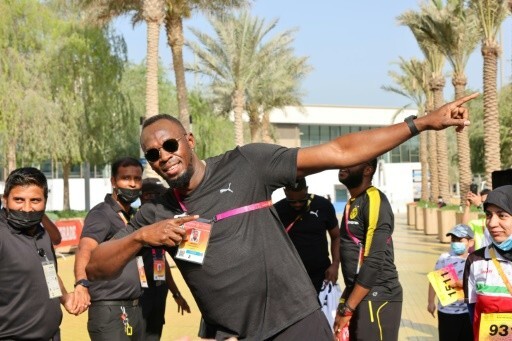
"And it's the facts because a lot of guys don't really get faster. Because I have pushed the barrier so far and then I started going backwards time-wise, so for me 9.80 was possible to get done."
But Bolt, who has dabbled in football and music since retiring, said it was "all about motivation" when he was considering a potential comeback in Tokyo.
"For the Olympics, it was gonna be different," said the father of three.
"I always show up ready because I think this is the highest level, but I've already done everything in the sport so it was all about motivation."
'Lightning Bolt' loses sparkle
With a rueful shake of the head, Bolt said it was "not looking good" for Jamaica's men's sprinters after they failed to reach the Tokyo 100m final and were fifth in the 4x100m relay.
And he said none of the current athletes looked capable of beating his 100m and 200m world records of 9.58 and 19.19, rarely threatened since he set them in 2009.
"I don't think I've seen anybody in this generation right now which I personally feel will break the records," he said.
"So I think I have a couple more years before somebody will actually break my world records."
Bolt, instantly recognisable worldwide, said he'd "love" to help World Athletics promote the sport and had approached its leader, Sebastian Coe, about a formal role.
But he said he had no designs on the presidency.
"No, I don't want that job. That's a lot of stress and a lot of work," he said.
He added that he would "definitely" have taken the knee to protest against racism on the Tokyo podium, where it was banned under International Olympic Committee rules.
"I understand what it's about. Racism, we've been through it so I understand the necessary aspect of it and what is needed," he said.
But he revealed that after years of striking the 'Lightning Bolt', his signature pose was beginning to grate.
"Sometimes it gets a little bit, I wouldn't say annoying. But I understand that I've done it to myself," he said with a chuckle.
"People really enjoy it and it's for the fans, you know. I mean, it's a picture that they will treasure forever.
"So for me, I'm not always happy doing it, but I do it anyways because it's for them and it makes them happy."
Login to leave a comment
Tokyo 2020 Olympic Games
Fifty-six years after having organized the Olympic Games, the Japanese capital will be hosting a Summer edition for the second time, originally scheduled from July 24 to August 9, 2020, the games were postponed due to coronavirus outbreak, the postponed Tokyo Olympics will be held from July 23 to August 8 in 2021, according to the International Olympic Committee decision. ...
more...IOC plans to move away from its current approach to protect and promote intersex and transgender athletes due to conflicting opinions
The International Olympic Committee has delayed its decision on addressing the fairness and inclusion of women’s sports at the Olympic Games, and the protection of transgender athletes during competition.
The IOC wanted to reach a decision before the 2022 Winter Games, but it has now been delayed due to conflicting opinions.
The news was revealed by the IOC’s Science and Medical Director, Dr. Richard Budgett, who wants to prioritize inclusion for international sports federations.
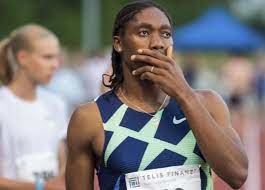
The current guideline from 2015 states that trans-women can compete in the women’s category if they choose to reduce their testosterone levels for 12 months below 10 nanomoles per litre.
However, for the IOC to protect the human rights of an intersex or transgender athlete during competition, the policy needs to shift.
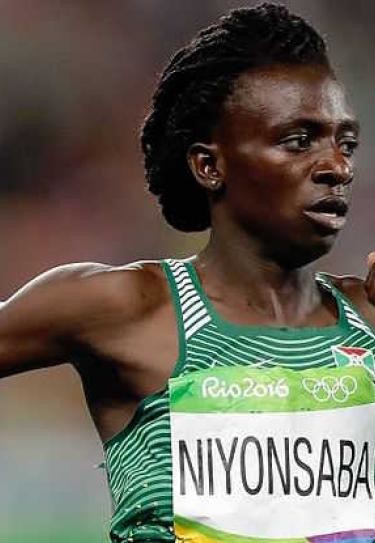
In Tokyo 2020, DSD-athlete Christine Mboma and Francine Niyonsaba had to compete outside of their middle distance events due to high testosterone regulations, and 2016 800m gold medallist Caster Semenya (also a DSD athlete) failed to qualify for the Games outside of her discipline.
The plan is to move away from the current approach to protect and promote intersex and transgender athletes in competitions. The idea is to allow trans-women to compete in the women’s category without having gender reassignment surgery, as long as they can keep their testosterone levels low.
When the IOC and World Athletics choose to make their decision, international federations will have to follow suit to determine specific rules for each sport.
by Marley Dickinson
Login to leave a comment


